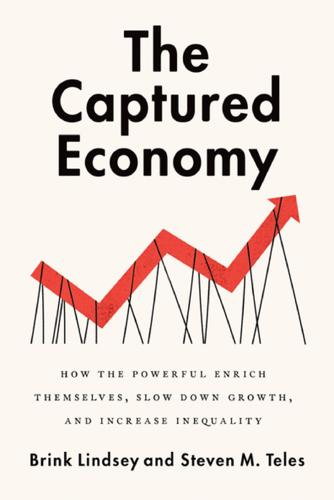
The Captured Economy: How the Powerful Enrich Themselves, Slow Down Growth, and Increase Inequality
by
Brink Lindsey
Published 12 Oct 2017
Labor unions have often been able to increase the wages and job security of their members above what a competitive market would provide, with costs passed on to consumers. But most union members are, at best, middle class. Our cases feature dynamics that are very distinct from the rent-seeking of taxi drivers and union members. Bluntly put, class matters in the politics of rent-seeking. Class influences rent-seeking through the absence of organizational interest in counteracting its effects. The wealthy have invested in fighting some forms of rent-seeking, as evidenced by the environmental and school reform movements. Given the enormous philanthropic investment in nonprofit policy activity, by contrast, it is quite striking how little money has gone into the areas under investigation in this book.
…
Around the globe, bigger governments actually seem to do better in controlling corruption and clientelism than smaller ones.15 Beating back rent-seeking here in the United States will sometimes require increasing the size of government; in particular, we will need to increase its analytical capacity and develop forms of government activity that cost taxpayers more up front but that are less susceptible to rent-seeking than those we have today. Yes, rent-seeking is endemic to government, as all human institutions are flawed and subject to principal-agent problems. But some nations—and some states and localities within this country—control those problems much better than others, and their example demonstrates that real improvement is possible.
…
It is not necessary that America’s large foundations become convinced of the problem of rent-seeking overall. They must only recognize it in their chosen domain of action. The sheer heterogeneity of America’s wealthy is one of the reasons the idea of greater philanthropic attacks on rent-seeking is not a pipe dream. The large fortunes reaped in finance, for instance, do not need to be targeted at the source of philanthropists’ own wealth, so long as they are turned against the rents of record companies, pharmaceutical firms, doctors, and lawyers. Philanthropists need to be willing to invest patiently in anti-rent-seeking efforts in precisely the way their counterparts in the environmental and school reform movements did.
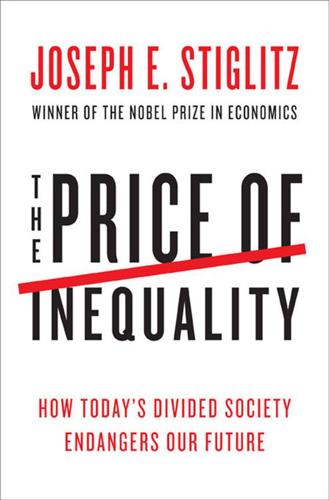
The Price of Inequality: How Today's Divided Society Endangers Our Future
by
Joseph E. Stiglitz
Published 10 Jun 2012
But instead of these market forces and politics balancing each other out, with the political process dampening the increase in inequality in periods when market forces might have led to growing disparities, instead of government tempering the excesses of the market, in America today the two have been working together to increase income and wealth disparities. RENT SEEKING Earlier, we labeled as rent seeking many of the ways by which our current political process helps the rich at the expense of the rest of us. Rent seeking takes many forms: hidden and open transfers and subsidies from the government, laws that make the marketplace less competitive, lax enforcement of existing competition laws, and statutes that allow corporations to take advantage of others or to pass costs on to the rest of society.
…
It’s not hard to become wealthy if the government sells you for $500 million a mine that’s worth $1 billion. Another form of rent seeking is the flip side: selling to government products at above market prices (noncompetitive procurement). The drug companies and military contractors excel in this form of rent seeking. Open government subsidies (as in agriculture) or hidden subsidies (trade restrictions that reduce competition or subsidies hidden in the tax system) are other ways of getting rents from the public. Not all rent seeking uses government to extract money from ordinary citizens. The private sector can excel on its own, extracting rents from the public, for instance, through monopolistic practices and exploiting those who are less informed and educated, exemplified by the banks’ predatory lending.
…
All told, more than $3.2 billion was spent on lobbying in 2011 alone.25 The main distortion is to our political system; the main loser, our democracy. But often rent seeking involves a real waste of resources that lowers the country’s productivity and well-being. It distorts resource allocations and makes the economy weaker. A byproduct of efforts directed toward getting a larger share of the pie is shrinkage of the pie. Monopoly power and preferential tax treatment for special interests have exactly this effect.26 The magnitude of “rent seeking” and the associated distortions in our economy, while hard to quantify precisely, are clearly enormous. Individuals and corporations that excel at rent seeking are amply rewarded. They may garner immense profits for their firms.
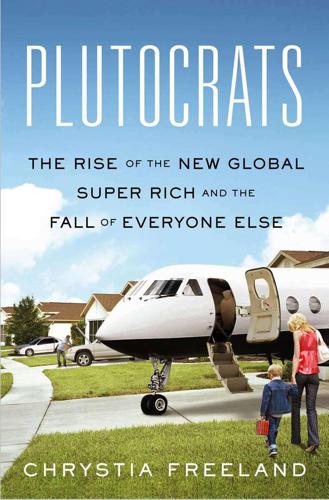
Plutocrats: The Rise of the New Global Super-Rich and the Fall of Everyone Else
by
Chrystia Freeland
Published 11 Oct 2012
Finally, the age of globalization has brought one more twist to the story of rent-seeking and how it has helped to create the super-elite: like so much else, rent-seeking has now gone global. That’s not entirely a new story—multinationals have long paid bribes to secure contracts abroad, and some of the most lucrative examples of historic rent-seeking have involved overseas concessions, like the East India Company’s right to trade in India granted by the British Crown, or the Hudson’s Bay Company’s rights to the Canadian fur trade. But the international ripple effect of rent-seeking is today even more extensive. A fortune created by rent-seeking in one country can have a powerful effect thousands of miles away.
…
One of the key recommendations was that the United States shift to the British “light touch” regulatory philosophy. As rent-seeking wealth spills across borders from the country where it was granted to other parts of the world, as rent-seeking plutocrats do deals with one another, and as economic rules go global, the question Professor Rajan asked of the Bombay Chamber of Commerce may need to be adjusted. He asked his Indian audience if their country was at risk of political capture by rent-seeking national oligarchs. An equal, and probably greater, danger is the rise of an international rent-seeking global oligarchy. SIX PLUTOCRATS AND THE REST OF US If you really wanted to examine percentage-wise who was hurt the most on their income, it was Wall Street brokers.
…
It is quite another for multimillion-dollar compensation to be paid to bankers whose institutions were bailed out by taxpayer trillions, or private equity fund managers who pay 15 percent tax on most of their earnings, or for the CEOs of multinational companies to take home higher paychecks than their billion-dollar firms pay in tax in the United States. — That’s why today rent-seeking is a favorite theme for the left. But as a field of formal study, rent-seeking was most energetically elaborated by economists on the right: it is, after all, the product of state control and distribution of wealth, something the right has been in the business of trying to decrease. And as inequality rises in twenty-first-century America, some on the right have returned to the idea that the central economic ill is rent-seeking. Speaking about “The American Idea” at the Heritage Foundation in the fall of 2011, Paul Ryan, the wonkish Wisconsin congressman, argued that, rather than raise taxes on individuals, we should “lower the amount of government spending the wealthy now receive.”
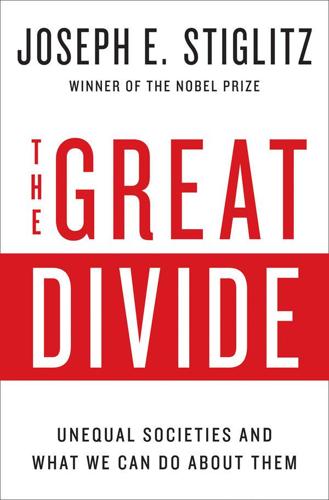
The Great Divide: Unequal Societies and What We Can Do About Them
by
Joseph E. Stiglitz
Published 15 Mar 2015
The crisis showed how it could wreak havoc on the economy. In a rent-seeking economy such as ours has become, private returns and social returns are badly out of whack. In their simplest form, rents are nothing more than redistributions from one part of society to the rent seekers. Much of the inequality in our economy has been the result of rent seeking, because, to a significant degree, rent seeking redistributes money from those at the bottom to those at the top. But there is a broader economic consequence: the fight to acquire rents is at best a zero-sum activity. Rent seeking makes nothing grow. Efforts are directed toward getting a larger share of the pie rather than increasing the size of the pie.
…
The magnitude of rent seeking in our economy, while hard to quantify, is clearly enormous. Individuals and corporations that excel at rent seeking are handsomely rewarded. The financial industry, which now largely functions as a market in speculation rather than a tool for promoting true economic productivity, is the rent-seeking sector par excellence. Rent seeking goes beyond speculation. The financial sector also gets rents out of its domination of the means of payment—the exorbitant credit and debit card fees and also the less well-known fees charged to merchants and passed on, eventually, to consumers. The money it siphons from poor and middle-class Americans through predatory lending practices can be thought of as rents.
…
Efforts are directed toward getting a larger share of the pie rather than increasing the size of the pie. But it’s worse than that: rent seeking distorts resource allocations and makes the economy weaker. It is a centripetal force: the rewards of rent seeking become so outsize that more and more energy is directed toward it, at the expense of everything else. Countries rich in natural resources are infamous for rent-seeking activities. It’s far easier to get rich in these places by getting access to resources at favorable terms than by producing goods or services that benefit people and increase productivity. That’s why these economies have done so badly, in spite of their seeming wealth.
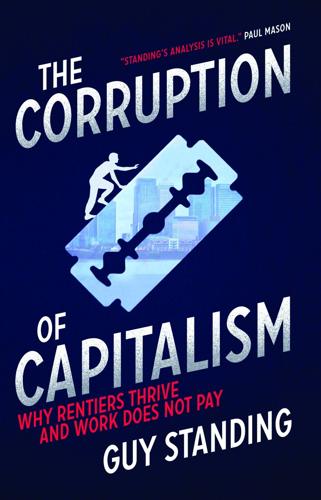
The Corruption of Capitalism: Why Rentiers Thrive and Work Does Not Pay
by
Guy Standing
Published 13 Jul 2016
The Economist has constructed an index of crony capitalism based on the wealth of billionaires in sectors such as casinos, oil and construction where, in its view, there is ample scope for rent seeking through cosy relations with government.2 It claims that rent seeking is worse in emerging-market economies, which account for two-thirds of ‘crony wealth’, with Russia heading the 2016 rankings of twenty-two countries. Britain, at fourteenth, comes top among industrialised economies, followed by the USA at sixteenth. However, the index does not include technology industries or much of finance as rent-seeking sectors, despite their lobbying power. In 2014 The Economist suggested that crony capitalism had peaked, but in 2016 it acknowledged that there was still reason to worry.
…
Including hedge-fund billionaires and other financiers would double the crony wealth share of total US billionaire wealth from 14 per cent to 28 per cent. Including the youthful billionaires of Silicon Valley would push it up even more. As The Economist admitted, ‘If technology were to be classified as a crony industry, rent-seeking wealth would be higher and rising steadily in the Western world.’ Moreover, The Economist’s narrow definition substantially understates crony capitalism. Its examples of rent seeking were ‘forming cartels’ and ‘lobbying for rules that benefit a firm at the expense of competitors and customers’. It thus omitted the most insidious way in which crony capitalism is extending its grip: political manipulation by the plutocracy and elite, who are funding politicians and political parties to favour the interest of rentiers (see Chapter 7).
…
Given the spread of intellectual property rules, development of the global capital-risk insurance system and the rent-seeking abilities of the plutocracy in crony capitalism, the existing situation is probably the most unfree market system in history. There has been a commodification of ideas, knowledge and information. While Paul Mason has interpreted the abundance of information as indicative of ‘postcapitalism’,52 the reality is actually a deepening penetration of capitalist logic and rules, in which rent seeking has been legitimised and strengthened by new global institutions and structures. Use of the word post-capitalism is revealing, as any word beginning with that prefix suggests a lack of direction.
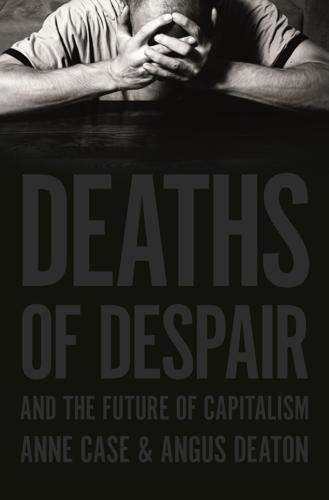
Deaths of Despair and the Future of Capitalism
by
Anne Case
and
Angus Deaton
Published 17 Mar 2020
After 1815, the notorious Corn Laws kept out imports of wheat until the local price was so high that people were at risk of starving; high prices of wheat, even if they hurt ordinary people, were very much in the interests of the land-owning aristocracy, who lived off the rents supported by the restriction on imports—rent-seeking of the classic and here literal kind, and rent-seeking that did not stop at killing people; laws that were “written in blood.” The Industrial Revolution had begun, there was a ferment of innovation and invention, and national income was rising. Yet working people were not benefiting. Mortality rates rose as people moved from the relatively healthy countryside to stinking, unsanitary cities.
…
But as we saw in chapter 14, it is not only globalization and the technology-infused labor market that are working against less educated workers. The exorbitant price of health insurance has caused firms to shed workers; this is not a natural disaster but rather one based on rent-seeking, politically protected profiteering, and weak enforcement of antitrust in the healthcare sector. Anticompetitive and rent-seeking behavior is not confined to healthcare. Mergers of firms can give employers power to set wages and working conditions in local markets. Large corporations can potentially use market power to raise prices. Such anticompetitive behavior hurts consumers, who face higher prices, and workers, who get hurt twice over, through lower wages and higher prices when they spend those wages.
…
That is why we are not disturbed by inequality in and of itself, but very concerned with the inequality that comes about through theft and rent-seeking, or through the involuntary upward redistribution that we have described throughout this book. To be clear, we are not denying that inequality can sometimes have consequences that undermine other important social goals—for example, if the rich use their wealth to corrupt democracy, or to agitate against public goods on which most people depend. But we are against the high marginal rates on top incomes that result from prioritarian calculations. Instead, we prefer to fight rent-seeking directly, which, if successful, will do much to reduce inequality.

Against Intellectual Monopoly
by
Michele Boldrin
and
David K. Levine
Published 6 Jul 2008
Indeed, even after their patent expired, Boulton and Watt were able to maintain a substantial premium over the market by virtue of having been first, despite the fact that their competitors had had thirty years to learn how to make steam engines. The wasteful effort to suppress competition and obtain special privileges is referred to by economists as rent-seeking behavior. History and common sense show it to be a poisoned fruit of legal monopoly. Watt’s attempt to P1: KNP head margin: 1/2 gutter margin: 7/8 CUUS245-01 cuus245 978 0 521 87928 6 April 29, 2008 17:24 4 Against Intellectual Monopoly extend the duration of his 1769 patent is an especially egregious example of rent seeking: the patent extension was clearly unnecessary to provide incentive for the original invention, which had already taken place. On top of this, we see Watt using patents as a tool to suppress innovation by his competitors, such as Hornblower, Wasborough, and others.
…
By way of contrast, 51 percent argue that trade secrecy is effective.23 Although in the simplest case patent law does not have an impact on trade secrecy, in cases where it is possible to expend real resources to make secrets less accessible, the innovator faces a real trade-off between private rent seeking through secrecy and public rent seeking through patents. This is true also in the case of copyright, as publicly enforced copyright is potentially an alternative to socially undesirable methods such as encryption and digital rights management that are designed to limit reproduction. There is a small literature in economics on this trade-off.24 One issue is how information that changes rival firm beliefs may work to the advantage of the firm releasing the information.
…
Monopolies innovate as little as possible and only when forced to; in general, they would rather spend time seeking rents via political protection while trying to sell at a high price their old refurbished products to the powerless consumers, via massive doses of advertising: “[Pharmaceutical] Companies today have found that the return on investment for legal tactics is a lot higher than the return on investment for R&D,” says Sharon Levine, the associate executive director of the HMO Kaiser Permanente. “Consumers today are paying an inordinate premium under the guise of the creating the stream of innovation in the future. But it’s actually funding lawyers.”37 Economists call this socially inefficient rent seeking. It is ugly, but the polite academic jargon rent seeking means “corruption” and all that comes with it. We have already mentioned the music industry, where corruption has become the standard marketing practice, as exemplified by the sorry story of payola. In industries that are highly monopolized and in which the returns from capturing the main distribution and information channels are enormous, the temptation to bend and then break the rules is too strong to resist, as public choice theory and economic common sense suggest.
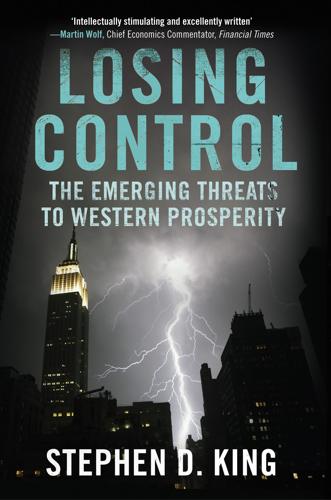
Losing Control: The Emerging Threats to Western Prosperity
by
Stephen D. King
Published 14 Jun 2010
Obvious ways to increase rental payments include the development of economies of scale, the creation of barriers to entry which keep competitors out, becoming a Hollywood superstar, friendly government regulation (otherwise known as protectionism), military action, bribery, racism in its many forms and slavery. Apart from Hollywood, these examples suggest that nation states have strong incentives to collude with commercial interests. Rent-seeking is not confined to the private sector alone. In modern-day parlance, we might call linkages between governments and commercial interests ‘state capitalism’. Western governments have used the methods of state capitalism for hundreds of years in their bid to shape the world around them. Indeed, rent-seeking behaviour was, over the centuries, closely linked to colonization. The discovery and exploitation of lands and peoples offered an abundance of raw materials and cheap labour designed to furnish Western economic tastes.
…
(i) healthcare (i), (ii), (iii), (iv), (v), (vi), (vii) hedge funds (i), (ii), (iii) Hertz, Noreena (i) Hitler, Adolf (i) Hobbes, Thomas (i) Home Office (i) Hong Kong (i) ‘hot money’ inflows (i) housing market anarchy in capital markets (i), (ii) capital controls (i) population ageing (i) price stability (i), (ii), (iii), (iv) savings (i) trade (i) human capital theory (i) human ingenuity argument (i), (ii) Hume, David (i), (ii) Hungary (i) hunt for yield (i), (ii), (iii), (iv), (v), (vi), (vii), (viii) Huntingdon, Samuel (i) Hutton, Will (i), (ii) hyperinflation (i), (ii) IFS see Institute for Fiscal Studies IMF see International Monetary Fund immigration economic integration, political proliferation (i) nationalism (i) number of migrants to US (i) political economy and inequalities (i), (ii), (iii) population demographics (i) Spain and silver (i) Immigration Act (i), (ii) Immigration and Naturalization Act (1965) (i), (ii), (iii), (iv) imperialism (i), (ii), (iii), (iv), (v) imports (i), (ii), (iii), (iv), (v), (vi) income inequality globalization (i), (ii) political economy and inequalities (i) education (i) the emerging gap (i) emerging nations and income inequality in the developed world (i) food shortages (i) globalization (i) living with inequality (i) new modes of redistribution (i) not getting just rewards (i) a three-country model (i) too much domesticity (i) United Kingdom (i) winners and losers (i) price stability and economic instability (i) resource scarcity (i) state capitalism (i), (ii) Western progress (i), (ii), (iii) the West’s diminished status (i) income per capita argument (i) incomes China (i), (ii), (iii), (iv) political economy and inequalities (i), (ii) price stability and economic instability (i), (ii), (iii), (iv), (v), (vi) rent-seeking behaviour (i) scarcity (i), (ii), (iii), (iv) trade (i), (ii), (iii), (iv) India anarchy in capital markets (i), (ii) Islam (i) political economy and inequalities (i), (ii), (iii), (iv), (v), (vi), (vii) population demographics (i), (ii), (iii) price stability and economic instability (i) rent-seeking behaviour (i) scarcity (i), (ii), (iii), (iv) state capitalism (i), (ii), (iii) trade (i), (ii), (iii), (iv), (v) the West’s diminished status (i), (ii), (iii), (iv), (v) Indonesia (i), (ii), (iii) Industrial and Commercial Bank of China Ltd (ICBC) (i) Industrial Revolution (i), (ii), (iii), (iv), (v), (vi) infant mortality rate (i), (ii), (iii) inflation anarchy in capital markets (i) economic integration, political proliferation (i) indulging the US no more (i), (ii) political economy and inequalities (i), (ii) population demographics (i), (ii), (iii) price stability and economic instability (i) back to the 1970s (i) defining and controlling inflation (i) emerging economies (i), (ii) inflation as an instrument of income and wealth distribution (i) inflation as a result of currency linkages (i) overview (i), (ii), (iii) from stability to instability (i) we are not alone (i) resource scarcity (i) state capitalism (i), (ii) trade (i), (ii) the West’s diminished status (i), (ii), (iii) information technology (i), (ii) Institute for Fiscal Studies (IFS) (i), (ii) interest rates anarchy in capital markets (i), (ii), (iii), (iv), (v), (vi) globalization (i) indulging the US no more (i), (ii) price stability and economic instability (i), (ii), (iii), (iv), (v), (vi), (vii) savings (i) state capitalism (i), (ii), (iii) trade (i) the West’s diminished status (i), (ii) International Monetary Fund (IMF) (i), (ii), (iii), (iv), (v), (vi) International Olympic Committee (i), (ii) Internet (i) investment anarchy in capital markets (i), (ii), (iii), (iv), (v), (vi) capital flows and nation states (i), (ii) economic integration, political proliferation (i) nineteenth century (i) political economy and inequalities (i) population demographics (i), (ii), (iii) price stability and economic instability (i) protectionism (i) resource scarcity (i) state capitalism (i) trade (i), (ii), (iii) investment banks (i), (ii) ‘invisible hand’ (i), (ii), (iii), (iv), (v), (vi) Iran (i), (ii), (iii), (iv), (v) Iraq (i), (ii), (iii) Ireland (i), (ii) Islam (i), (ii), (iii) Isutani, Minoru (i) Italy (i), (ii), (iii), (iv), (v), (vi), (vii), (viii) Izvolsky, Count Alexander (i) Japan anarchy in capital markets (i), (ii), (iii), (iv) political economy and inequalities (i), (ii), (iii), (iv), (v) population demographics (i), (ii), (iii), (iv), (v), (vi), (vii) price stability and economic instability (i), (ii) scarcity (i), (ii) secrets of Western success (i), (ii) state capitalism (i), (ii), (iii), (iv) trade (i), (ii), (iii) US trade deficit (i) the West’s diminished status (i), (ii), (iii), (iv), (v) Jay, Peter (i) Jefferson, Thomas (i) jet airline industry (i) Jewish populations (i), (ii), (iii) Jin Mao Tower (i) Jones, Francis (i) Judt, Tony (i) junk bonds (i), (ii) juntas (i) Kamin, Steven B.
…
CHAPTER TWO THE SECRETS OF WESTERN SUCCESS The Western world’s economic development over the last five hundred years was not the result of productivity gains or market forces alone. Western nations became wealthier because they were increasingly able to rig the global economy to suit their own aims, using a combination of economic, political and military power. Specifically, they were able to engage in what economists call ‘rent-seeking behaviour’. In very simple terms, those who successfully seek rents are paid above the free market price. Most of us are rent seekers. We like to be paid more even if there has been no rise in demand for our services or increase in our efforts. For the successful rent seeker, the Malthusian constraint can be removed even while others are still suffering.
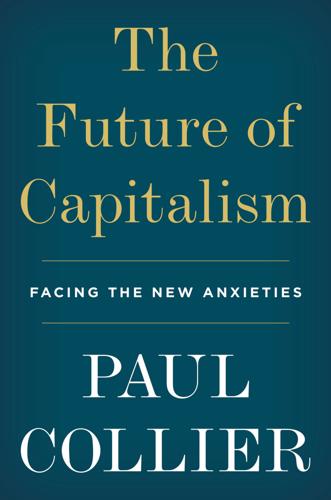
The Future of Capitalism: Facing the New Anxieties
by
Paul Collier
Published 4 Dec 2018
For this we need another handy economic concept – rent-seeking. Rent-seeking is a menace; here is an example. Suppose that a legislature passes a law that grants a monopoly to a group of producers. Why did the legislature do such a thing? Because the legislators were lobbied and coaxed with rewards. The regulation generated rents; the lobbying was rent-seeking. The distinguished economist Anne Krueger showed that lobbying, and other rent-seeking, will increase up to the point at which one extra dollar spent on it yields one extra dollar of rent. The resources devoted to rent-seeking are a total waste. The gains from agglomeration are rents: so, do they attract rent-seeking?
…
Or they squeeze their need for housing by delaying marriage, or delaying children. Each of these is a form of rent-seeking. Behaviour gets distorted in the competition to capture the lucrative rents of agglomeration. The rent-seeking does not increase the overall size of the pie, it just inflicts a collective loss of well-being upon mid-career people scrambling against each other. Potentially, these losses from rent-seeking are massive. By taxing the gains of agglomeration, we reduce the pressure for rent-seeking. Getting that job in the metropolis would still be worth doing, but since it would be less lucrative, people are less likely to be driven to extreme measures.
…
The gains from agglomeration are rents: so, do they attract rent-seeking? Economists have never posed that question and there is a simple reason for their neglect. If the Henry George Theorem is right and the gains accrue only to landowners, then there is no scope for rent-seeking. Land is in fixed supply and so not amenable to lobbying or any other action. But the Henry George Theorem is wrong. In a metropolis, most of the gains of agglomeration accrue to those people with high skills and little need for housing. Suddenly, many opportunities for rent-seeking open up. People elbow their way into jobs by lobbying well-connected relatives; they pay tutors for the extra study that gets them more credentials; they go to hundreds of interviews.
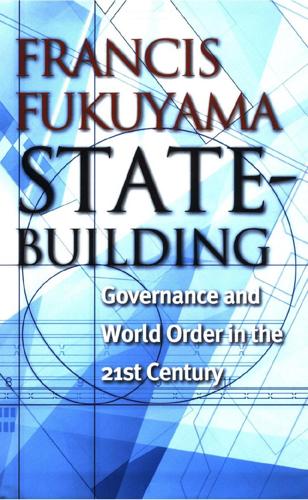
State-Building: Governance and World Order in the 21st Century
by
Francis Fukuyama
Published 7 Apr 2004
It is common to characterize regimes in sub-Saharan Africa as “neopatrimonial”— that is, with political power used to service a clientelistic network of supporters of the country’s leaders (Joseph 1987; Fatton 1992). In some cases, as with Mobutu Sese Seko of Zaire, neopatrimonial regimes result in what Evans (1989) characterizes as “predatory” behavior, where a large part of society’s resources are stolen by a single individual. In others, it merely amounts to rent-seeking—that is, use of the public sector to reallocate property rights to the benefit of a particular interest—that is directed toward a single family, tribe, region, or ethnic group. As van de Walle (2001) points out, the neopatrimonial regime, usually embodied in the office of the president, exists side-by-side with a Weberian rational bureaucracy, often created in colonial times, that seeks to perform routine public administration tasks.
…
Other observers pointed out that it was not presidentialism per se but rather the type of electoral system used in the legislative branch that frequently led to major problems like political gridlock (e.g., the combination of a presidential system with legislative proportional representation that is typical in much of Latin America—see Horowitz 1990; Lijphart 1996; Lardeyret 1996; Cowhey and Haggard 2001). Tendencies toward rent-seeking and pork-barrel politics are encouraged under a number of conditions, such as multimember electoral districts, geographically small constituencies, and open-list proportional representation, though the embedding of patronage in the party system depends heavily on the historical sequencing of franchise expansion and bureaucratic reform (Shefter 1993).
…
In the end, the empirical relationship between democracy and development remains complex and ambiguous: It does not support either authoritarian transitions as a general approach to economic reform or democratization as a growth strategy. Barro’s (1997) cross-country survey shows that democracy is positively correlated with growth at low levels of development but then becomes negatively correlated at medium levels of per capita GDP. Patronage and rent-seeking (Turkey, Argentina, Brazil), populism (Venezuela), and corruption (Pakistan under Bhutto and Sharif) all remain democratic vices. It the missing dimensions of stateness 29 is hard to see a clear causal relationship between the wave of democratization that hit sub-Saharan Africa during the 1990s and the continent’s slightly improved economic performance in this period.
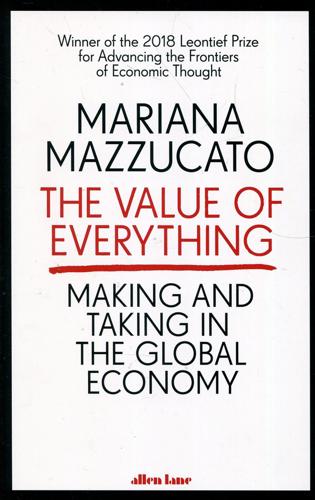
Value of Everything: An Antidote to Chaos The
by
Mariana Mazzucato
Published 25 Apr 2018
A common critique of contemporary capitalism is that it rewards ‘rent seekers' over true ‘wealth creators'. ‘Rent-seeking' here refers to the attempt to generate income, not by producing anything new but by overcharging above the ‘competitive price', and undercutting competition by exploiting particular advantages (including labour), or, in the case of an industry with large firms, their ability to block other companies from entering that industry, thereby retaining a monopoly advantage. Rent-seeking activity is often described in other ways: the ‘takers' winning out over the ‘makers', and ‘predatory' capitalism winning over ‘productive' capitalism.
…
This has essentially created a boundary - the fence in Figure 1 below - thereby establishing a conceptual boundary -sometimes referred to as a ‘production boundary' - between these activities.16 Inside the boundary are the wealth creators. Outside are the beneficiaries of that wealth, who benefit either because they can extract it through rent-seeking activities, as in the case of a monopoly, or because wealth created in the productive area is redistributed to them, for example through modern welfare policies. Rents, as understood by the classical economists, were unearned income and fell squarely outside the production boundary. Profits were instead the returns earned for productive activity inside the boundary.
…
The definition of value is always as much about politics, and about particular views on how society ought to be constructed, as it is about narrowly defined economics. Measurements are not neutral: they affect behaviour and vice versa (this is the concept of performativity which we encountered in the Preface). So the point is not to create a stark divide, labelling some activities as productive and categorizing others as unproductive rent-seeking. I believe we must instead be more forthright in linking our understanding of value creation to the way in which activities (whether in the financial sector or the real economy) should be structured, and how this is connected to the distribution of the rewards generated. Only in this way will the current narrative about value creation be subject to greater scrutiny, and statements such as ‘I am a wealth creator' measured against credible ideas about where that wealth comes from.
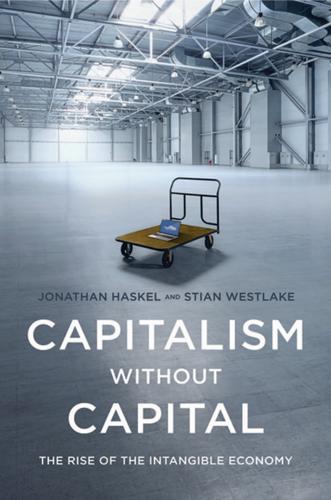
Capitalism Without Capital: The Rise of the Intangible Economy
by
Jonathan Haskel
and
Stian Westlake
Published 7 Nov 2017
Some tangible investment may also generate limited social returns: consider the fiber-optic cables installed by high-frequency trading firms for the sole purpose of shaving fractions of microseconds off trading times (described vividly by John Kay 2016). And not all money spent on rent-seeking generates an intangible investment, at least not in the main methodologies used to measure intangibles. But it does seem that rent-seeking or zero-sum investments are more common among intangible investments than among tangibles. This could have a bearing on investment and productivity figures. It is possible that the increase in intangible investment is concealing a rise in rent-seeking investments that do not increase GDP. This would not explain the fall-off in investment that has been observed in the economy, but it would help explain the fall-off in productivity and in TFP.
…
So for any given level of intangible investment, output would be lower, and TFP would fall. This risk provides a good reason for policymakers to guard against rent-seeking in an increasingly intangible economy. There is also the possibility that the rise of intangible investment may be encouraging more rent-seeking, which may be increasing the gap between leaders and laggards that we discussed earlier. A paper by James Bessen specifically asks whether the gap between leaders and laggards among US nonfinancial businesses has been caused by increasing intangible investment or by greater rent-seeking by leading firms. Bessen looks at the relationship between regulation in industries (measured by an index of regulation and by political lobbying expenditures) and the valuations of public companies.
…
An optimistic interpretation of this is that the legal and institutional structures behind a transformation to an intangible-intensive economy are being worked out and that until they are, there will be a disproportionate incentive for firms to spend more on rent-seeking relating to intangible investment. For example, as spillovers and scale effects become more important, existing tax and competition and IP rules get tested to destruction, requiring lobbying, legal arguments, and institutional reboots. This adjustment to a new type of economy will need a lot of spending by firms and governments that is not immediately productive. Thus a given dollar of business intangible spending has less productivity-raising effect. A more troubling interpretation is that these types of rent-seeking are linked to the inherent characteristics of intangibles, in particular their contestedness: this would imply that TFP growth will continue to be low until governments learn to do a much better job of preventing rent-seeking and designing the institutions an intangible economy needs.
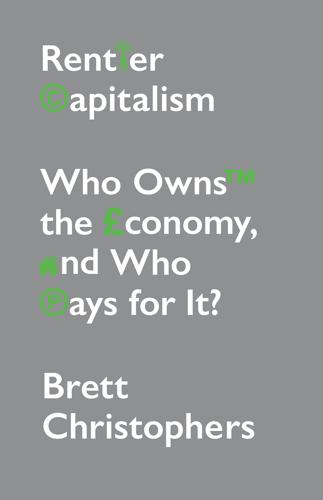
Rentier Capitalism: Who Owns the Economy, and Who Pays for It?
by
Brett Christophers
Published 17 Nov 2020
What Marx did not anticipate, writes David Harvey, was that new forms of capitalist rent might also evolve within the evolutionary structures of capitalism and that rent-seeking might go well beyond that which he found both necessary and functional as well as politically tolerable for a mature form of capitalist development. Rent-seeking through speculation in land markets and resource endowments (like oil wells) is bad enough. But what are we to make of rent-seeking through ownership of intellectual property rights? These are the types of questions that contemporary analysts of rent are asking, as the rentier’s terrain has widened to incorporate, in Harvey’s words, ‘asset markets of all sorts’.7 In fact, there is one important type of asset that Harvey – who defines rent in this broadened sense as ‘a return to the monopoly power of private ownership of some crucial asset’ – excludes from his treatment of rentierism: financial assets.8 Like Marx, Harvey regards rent (earned by rentiers) and interest (earned by finance capital) as categorically different from one another.
…
Precisely because rights are now so strong and so well enforced, they encourage instead what is often referred to as ‘rent-seeking’. Rent-seeking is a tricky concept to operationalize in a book all about rent. Are not all rentiers rent-seekers, by definition? That is certainly one possible interpretation. Nonetheless, if ‘rent’ as defined in this book encompasses all types of income derived from the control of scarce assets under conditions of limited competition, then rent-seeking, as I understand it, entails a particular mode of rentierism: investing time and money more in sweating existing rent-generating assets than in carrying out the research and development necessary to create new ones.
…
But some display it much more emphatically than others, not least, in recent times, IP rentiers. The current, expansionist system of IP rights is clearly partly responsible. That that system promotes rent-seeking is the crux of Stiglitz’s argument against it: ‘Research is often directed not at producing new products but at extending, broadening and leveraging the monopoly power granted through the [existing] patent’.84 Indeed, Stiglitz believes that the current IP system is configured precisely with the purpose of generating rent-seeking opportunities. In his view, the utilitarian justification invariably given for robust IP protection is nothing more than a sham: ‘The IP standards advanced countries favour typically are designed not to maximise innovation and scientific progress, but to maximise the profits of big pharmaceutical companies and others.’85 Whether or not this conspiratorial reading is correct, what is clear is that, with the monopoly powers conferred by IP rights now being so robust, rent-seeking is incentivized and widely pursued.
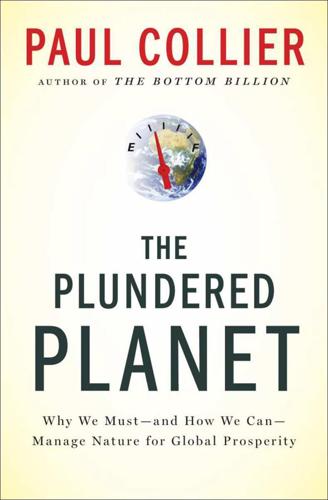
The Plundered Planet: Why We Must--And How We Can--Manage Nature for Global Prosperity
by
Paul Collier
Published 10 May 2010
In this society physical control of the asset is all that matters. This gives rise to three problems: mal-distribution, rent-seeking, and uncertainty. Mal-distribution comes about partly because the strong are advantaged over the weak, but it is compounded by chance: some territories are better endowed than others. If we imagine the population distinguished in the two dimensions of strength and luck, the natural assets are acquired disproportionately by those who are lucky and strong. “Rent-seeking” is the technical term for ways, including violence, to acquire ownership. Basic economics predicts that the value of natural assets, which technically are unearned “rents,” will be matched by the efforts to “seek” those rents, so that the potential social value of natural assets will be dissipated by the costs incurred.
…
If the government publicly decides to make a quantum leap in investment the outcome could be even worse than that. The political special-interest lobby groups that try to capture public spending are alerted that there is more money on the table and so exert themselves, through legitimate and illegitimate means. The resources burned up in such lobbying contests are called “rent-seeking.” If rent-seeking is frustrated by checks and balances such as veto points, the lobbies may try to dismantle them. Nuhu’s departure for Oxford was induced by effective lobbying, and dismantled one important check. Michael Ross, a political scientist from UCLA, aptly terms this higher-order destructiveness “rent-seizing.”
…
For example, a country might argue that it should have rights to emit carbon based on the carbon it was emitting when the cap was imposed. Or the right to emit as much carbon as some other country. Or because it is poor. Or because it did not emit any of the carbon that caused the problem. Rent-seeking over carbon rights can occur both nationally and internationally. At the national level it is already apparent in the U.S. Congress. Potentially, the assignment of carbon rights could make the huge rent-seeking machine that is the American agricultural lobby look like a side-show. Internationally, the scope for scams may well be even larger. Firms that want to continue emitting carbon simply need to purchase a piece of paper certifying that some firm somewhere elsewhere is emitting correspondingly less carbon than it otherwise would have done.
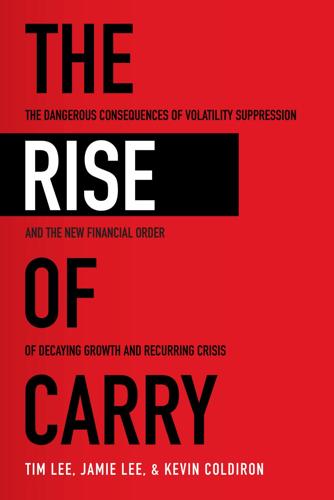
The Rise of Carry: The Dangerous Consequences of Volatility Suppression and the New Financial Order of Decaying Growth and Recurring Crisis
by
Tim Lee
,
Jamie Lee
and
Kevin Coldiron
Published 13 Dec 2019
Fundamentally, therefore, in some sense carry is its own antithesis. Carry as Rent-Seeking The notion of carry as fundamentally being about power and control of resources calls to mind the economic concept of rent-seeking. Wikipedia defines rent-seeking as extracting an income “by manipulating the social or political environment in which economic activities occur, rather than by creating new wealth. Rent-seeking implies extraction of uncompensated value from others without making any contribution to productivity.” Rent-seeking is usually thought about in terms of an industry group or interest group lobbying politicians in order to secure monopoly power.
…
It can be understood at an even more fundamental level, beyond merely financial markets, which we will touch on later in this book. In its more limited form, carry can be a motor, or at least a lubricant, for progress. The problem occurs when carry comes to dominate over other market behaviors or forces, in which case it can begin to manifest in forms that could be considered rent-seeking or even corruption or infringement of liberties. In financial carry trades, on the one side are those who could ultimately be desperate for liquidity, and on the other side are those—the carry traders—who are the suppliers of that liquidity. This can be perceived as an economic relationship, but in a broader context it could also be understood as a power relationship.
…
If the central bank succeeds in resurrecting the carry bubble, and hence broadening the carry regime further—as central banks finally did in 2009—then the illusion of central bank power can be restored, probably to an even greater extent than before. But really, more than being in control of it, the central bank is merely a captive of the carry regime; it is the vehicle for the broadening and extension of the carry regime and the rent-seeking opportunities that the regime ultimately permits. What this chapter has explained is that the carry regime is fundamentally deflationary in nature, but it has the effect of broadening the scope of money to encompass financial instruments that are not normally considered to be money, at least during the carry bubble phases.

People, Power, and Profits: Progressive Capitalism for an Age of Discontent
by
Joseph E. Stiglitz
Published 22 Apr 2019
This is nothing more than a redistribution of income; it does not increase the nation’s overall wealth. The technical term in economics is “rent”—rent-seeking is associated with attempting to get a large share of the nation’s economic pie, in contrast with wealth creation, which strives to increase the size of the pie. Policymakers should zero in on any market in which there are excessive rents because they are a sign that the economy could perform more efficiently: the exploitation inherent in excessive rents actually weakens the economy. A successful fight against rent-seeking results in redirecting resources into wealth creation. Fourth, a less divided society, an economy with more equality, performs better.
…
Thus, at best, rents are unhelpful to growth and efficiency, at worst harmful. They can be harmful because they distort the economy, because they “crowd out” the kinds of “good” economic activity that is the basis of true wealth creation. We naturally describe the pursuit of higher incomes through acquiring more rents as rent-seeking. If talented individuals in society are attracted to rent-seeking—whether making more money through the exertion of monopoly power or scamming others in the financial sector or enticing them into gambling or other nefarious activities—then fewer talented individuals will be engaged in basic research, providing goods and services that individuals really want and need, and other activities that increase the real wealth of the nation.
…
It combines taking down impediments to growth and equality, such as those posed by corporations with excessive market power, and restoring balance, for instance, giving more bargaining power to workers. It entails providing more support for basic research and more encouragement to the private sector to engage in wealth creation rather than rent-seeking. The economy, of course, is a means to an end, not an end in itself. And the middle-class life that seemed a birthright of Americans in the years after World War II seems to be slipping out of the reach of a large swath of the country. We are a far richer country now than we were then. We can afford to ensure that this life is attainable for the vast majority of our citizens.
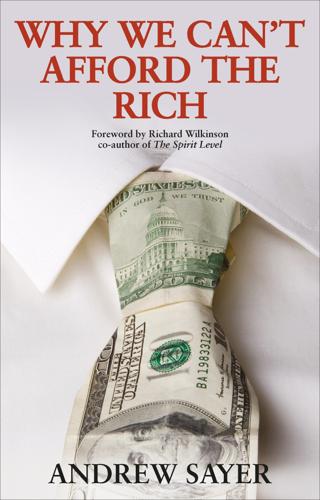
Why We Can't Afford the Rich
by
Andrew Sayer
Published 6 Nov 2014
There are intermediate cases too of ‘soft power’ where goods are provided, but as a means of getting rent: social networking sites provide users with ways of keeping in contact with people but their income is mainly economic rent from letting out advertising space. Businesses can compete not only by providing better products more cheaply but by ‘rent-seeking’, that is, seeking control of assets and resources that can be used to extract rent from users. Joseph Stiglitz, former Chief Economist at the World Bank, claims that the return of the rich is largely the result of a massive growth in rent-seeking, particularly in the financial sector. He argues that this not only transfers income from one group to another, but has a negative effect on the economy because it diverts resources from productive uses that create wealth, to mere wealth extraction.22 Instead of being reinvested in production, the money is merely siphoned off to the unproductive rentier.
…
116 Actually, some of them would also have been active rentiers when they were awake, working to find more sources of rent, interest and capital gains. But the question remains: how can income in the form of salary for work be ‘unearned’? It can if the work involves extracting unearned income through rent-seeking, interest-charging or any of the other methods covered in this book. ‘Even today’s rent-seeking plutocrats work for a living – Carlos Slim or the Russian oligarchs owe their fortunes to rents they’ve captured themselves, not to estates conquered by distant ancestors,’ writes Chrystia Freeland.117 Remembering the definitions in Chapter Three of earned income as conditional on producing goods and services (‘use-values’), and unearned income as derived from control of existing assets that others lack but need, then the salary earned – or rather received – by someone whose work consists of extracting rent or interest and getting control of new sources belongs to the second category.
…
But once they were privatised – and this first happened during a period in which top rates of tax fell to 40% in the UK – the rich could pay what to them were trifling sums for their services, while the rest had to pay dearly.26 Politicians may wring their hands when privatised suppliers push their prices up far above inflation, but it’s also out of their hands. But there’s another new area in which rent-seeking is advancing. ‘Intellectual property’ may sound dull, but it’s opened up huge new possibilities for companies to extract rent from others, with major consequences. Intellectual property is the ownership of ideas and the representation of those ideas, covering trademarks, patents (allowing ownership of inventions – tangible or virtual – for specific periods of time) or copyright, protecting authorship of books, music, art, images and films, again for specific periods of time.
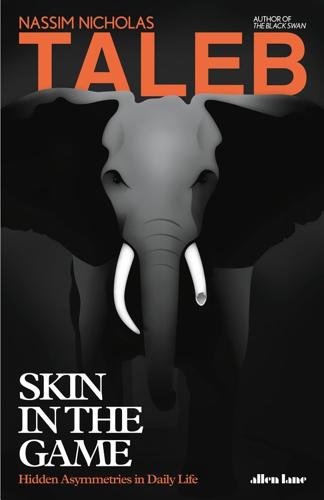
Skin in the Game: Hidden Asymmetries in Daily Life
by
Nassim Nicholas Taleb
Published 20 Feb 2018
For instance, the economist and psycholophaster Richard Thaler, partner of the dangerous GMO advocate übernudger Cass Sunstein, interpreted this piece as saying that “there are not many non-idiots not called Taleb,” not realizing that people like him are less than 1 percent or even less than one-tenth of 1 percent of the population. CHAPTER 7: INEQUALITY AND SKIN IN THE GAME fn1 It came to my notice that in countries with high rent-seeking, wealth is seen as something zero-sum: you take from Peter to give to Paul. On the other hand, in places with low rent-seeking (say the United States before the Obama administration), wealth is seen as a positive-sum game, benefiting everybody. fn2 Complex regulations allow former government employees to find jobs helping firms navigate the regulations they themselves created.
…
But the worst casualty has been free markets, as the public, already prone to hating financiers, started conflating free markets and higher order forms of corruption and cronyism, when in fact it is the exact opposite: it is government, not markets, that makes these things possible by the mechanisms of bailouts. It is not just bailouts: government interference in general tends to remove skin in the game. The good news is that in spite of the efforts of a complicit Obama administration that wanted to protect the game and the rent-seeking bankers,fn3 the risk-taking business started moving toward small independent structures known as hedge funds. The move took place mostly because of the overbureaucratization of the system as paper shufflers (who think work is mostly about paper shuffling) overburdened the banks with rules—but somehow, in the thousands of pages of additional regulations, they avoided considering skin in the game.
…
So it may suffice to have a tiny percentage—say, no more than 5 percent—of an evenly spatially distributed population of non-genetically modified eaters for the entire population to have to eat non-GMO food. How? Say you have a corporate event, a wedding, or a lavish party to celebrate the fall of the Saudi Arabian regime, the bankruptcy of the rent-seeking investment bank Goldman Sachs, or the public reviling of Ray Kotcher, chairman of Ketchum the public relations firm, which is the enemy of scientists and scientific whistleblowers. Do you need to send a questionnaire asking people if they eat or don’t eat transgenic GMOs and reserve special meals accordingly?
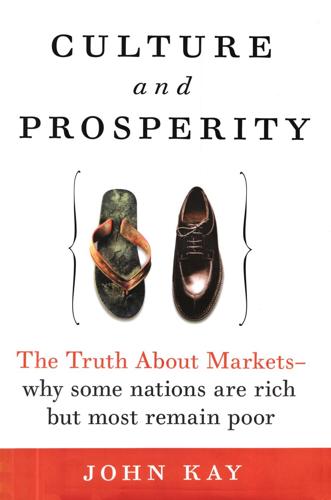
Culture and Prosperity: The Truth About Markets - Why Some Nations Are Rich but Most Remain Poor
by
John Kay
Published 24 May 2004
These restrictions often create large rents, and firms will spend correspondingly large sums to get them. A government that creates or assigns these resources can impose heavy taxes, or large up-front fees, for their use-as with specific taxes on oil and mineral deposits, or the allocation of spectrum for mobile phone companies. These fees and taxes yield revenue and discourage rent seeking. Rent seeking impedes the functioning of a market economy-the pursuit of gains from trade through specialization and differences in capabilities. It limits innovation though disciplined pluralism. It corrodes the integrity of politics. These adverse political and economic effects often reinforce each other.
…
This is an intriguing result, but it probably does not reveal much of the truth about markets. In modern economies, many factors are scarce and there are many sources of rents. The acquisition and defense of rents, and bargaining and dispute over their distribution, are the main influences on income distribution. Rent Seeking ••••••••••••••••••••••••••••••••••••• Economic rents are returns to scarcities-the exceptional talents of individuals, the distinctive capabilities of corporations. But not all individuals have scarce talents, not all corporations have distinctive capabilities. If scarcity does not naturally exist, perhaps it can be invented, and rents garnered anyway.
…
Monopoly closes down disciplined pluralism and stifles innovation in products and technology. The monopoly often goes to the best lobbyist, not the best competitor. So gains from trade due to specialization and differences in capabilities are likely to be lost. Under disinterested government, it is difficult to earn rents by buying monopolies or tax concessions. Rent seeking is most common in rich states in areas of genuine public interest in restricting entrysuch as protection from untrained doctors, unsafe aircraft, and dishonest financial advisers. But all entry restrictions, whatever their rationale, can create rents, and those who have entered lobby for tightening entry restrictions still further.
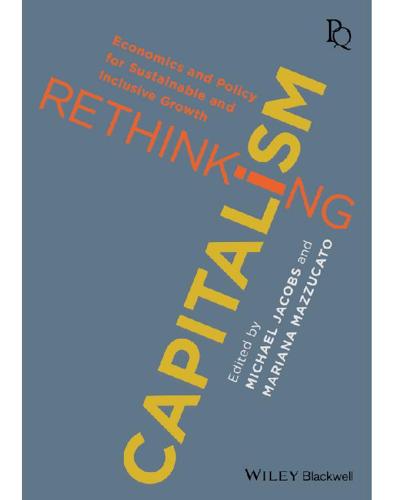
Rethinking Capitalism: Economics and Policy for Sustainable and Inclusive Growth
by
Michael Jacobs
and
Mariana Mazzucato
Published 31 Jul 2016
The question then is: what is the relative role and importance of these alternative hypotheses? There is no easy way of providing a neat quantitative answer, but recent events and studies have lent persuasive weight to theories putting greater focus on rent-seeking and exploitation. We shall discuss this evidence in the next section, before turning to the institutional and political factors which are at the root of the recent structural changes in income distribution. Rent-seeking and top incomes The term ‘rent’ was originally used to describe the returns to land, since the owner of the land receives these payments by virtue of his or his ownership and not because of anything he or she does.
…
The chapters by Joseph Stiglitz and Colin Crouch look at two of the major gaps between orthodox economic theory and the reality of modern capitalism. Stiglitz addresses the growth of inequality over the past thirty years. He takes on the neoclassical view that wages and salaries reflect the marginal productivity of workers, showing that the very high incomes of corporate executives in fact reveal a form of ‘rent-seeking’, in which rewards are extracted without relation to productivity or economic desert. Moreover he points out—again contrary to the orthodox view—that such inequality is not the price that has to be paid for greater economic prosperity, but actually retards growth. Stiglitz offers a range of policy measures which would reverse recent trends, including changes to executive compensation schemes, macroeconomic policies to reduce unemployment, greater investment in education and the reform of capital taxation.
…
Within the orthodox framework, the existence of some market failure is a necessary but not sufficient condition for state intervention.26 If government is to step in, it is claimed that gains from the intervention must outweigh the associated costs due to ‘governmental failures’27 such as capture by private interests (cronyism, corruption, rent-seeking),28 misallocation of resources (for example, ‘picking losers’)29 or undue competition with private initiatives (‘crowding out’).30 There is thus a presumed trade-off between two inefficient outcomes, one of which is generated by free markets (market failure) and the other by public intervention (government failure).

The Origins of Political Order: From Prehuman Times to the French Revolution
by
Francis Fukuyama
Published 11 Apr 2011
It is possible that patrimonial officeholding itself rests on a set of prior social conditions even as it is fostered by deliberate government policy. RENT-SEEKING SOCIETIES Ancien régime France was an early prototype of what is today called a rent-seeking society. In such a society, the elites spend all of their time trying to capture public office in order to secure a rent for themselves—in the French case, a legal claim to a specific revenue stream that could be appropriated for private use. Was this rent-seeking coalition a stable one? It lasted for almost two centuries and provided a political basis for France’s emergence as the dominant continental power.
…
Mancur Olson has made the general argument that entrenched interest groups tend to accumulate in any society over time, which aggregate into rent-seeking coalitions in order to defend their narrow privileges.19 They are much better organized than the broad mass of people in a society, whose interests often fail to be represented in the political system. The problem of a dysfunctional political equilibrium can be mitigated by democracy, which at least theoretically allows nonelites to have a greater share in political power. But even then there is usually a large disparity in the organizational capacity of elites and nonelites that prevents the latter from acting decisively. We have seen numerous examples of rent-seeking coalitions that have prevented necessary institutional change and therefore provoked political decay.
…
THE VICTORY OF SOCIETY OVER POLITICS NATION BUILDING BY FOREIGNERS CHINA VERSUS INDIA 13 - SLAVERY AND THE MUSLIM EXIT FROM TRIBALISM CREATION OF A MUSLIM STATE THE ORIGINS OF MILITARY SLAVERY 14 - THE MAMLUKS SAVE ISLAM MAMLUK DECAY STATES AS ORGANIZED CRIMINALS 15 - THE FUNCTIONING AND DECLINE OF THE OTTOMAN STATE A ONE-GENERATION ARISTOCRACY MILITARY SLAVERY PERFECTED THE OTTOMAN STATE AS A GOVERNING INSTITUTION REPATRIMONIALIZATION AND DECAY THE OTTOMAN LEGACY 16 - CHRISTIANITY UNDERMINES THE FAMILY EUROPEAN EXCEPTIONALISM MARX’S MISTAKE FROM STATUS TO CONTRACT THE SOCIAL BACKGROUND TO STATE BUILDING IN EUROPE PART THREE - The Rule of Law 17 - THE ORIGINS OF THE RULE OF LAW CONTEMPORARY CONFUSIONS CONCERNING THE RULE OF LAW HAYEK’S THEORY THAT LAW IS PRIOR TO LEGISLATION FROM CUSTOMARY TO COMMON LAW 18 - THE CHURCH BECOMES A STATE THE CATHOLIC CHURCH DECLARES INDEPENDENCE THE REAPPEARANCE OF ROMAN LAW LAW AND THE RISE OF THE MODERN STATE HOW THE MEDIEVAL CHURCH SET PRECEDENTS FOR CONTEMPORARY RULE OF LAW 19 - THE STATE BECOMES A CHURCH RULE OF LAW IN THE MIDDLE EAST SEPARATION OF MOSQUE AND STATE HOW THE RULE OF LAW FAILED TO SURVIVE CONTACT WITH THE WEST IN BOTH INDIA AND ISLAM WHY THE RULE OF LAW WAS STRONGER IN WESTERN EUROPE 20 - ORIENTAL DESPOTISM CHINA’S MODERNITY AFTER THE TANG-SONG TRANSITION THE EVIL EMPRESS WU THE MANDATE OF HEAVEN 21 - STATIONARY BANDITS GOOD GOVERNMENT, BAD GOVERNMENT THE “BAD EMPEROR” PROBLEM INSTITUTIONS AREN’T ENOUGH PART FOUR - Accountable Government 22 - THE RISE OF POLITICAL ACCOUNTABILITY EUROPE’S LATE STATE BUILDING THE MARCH OF EQUALITY HE WHO KNOWS ONLY ONE COUNTRY KNOWS NO COUNTRIES EUROPE’S EASTERN ZHOU PERIOD THE ROLE OF LAW IN EUROPEAN DEVELOPMENT A FRAMEWORK FOR STATE BUILDING 23 - RENTE SEEKERS THE BEGINNINGS OF PATRIMONIAL ABSOLUTISM THE INTENDANTS AND CENTRALIZATION THE LIMITS OF CENTRALIZED POWER AND THE IMPOSSIBILITY OF REFORM THE FAILURE OF RESISTANCE TO ABSOLUTISM IN FRANCE RENT-SEEKING SOCIETIES 24 - PATRIMONIALISM CROSSES THE ATLANTIC THE BANKRUPT SPANISH STATE TAXATION AND NO REPRESENTATION TRANSFER OF INSTITUTIONS TO THE NEW WORLD THE IRON LAW OF LATIFUNDIA 25 - EAST OF THE ELBE LORDSHIP AND BONDAGE CONSTITUTIONALISM AND DECLINE IN HUNGARY FREEDOM AND OLIGARCHY 26 - TOWARD A MORE PERFECT ABSOLUTISM SOURCES OF RUSSIAN ABSOLUTISM FREE ALTERNATIVES THE PEASANT-OWNING CARTEL AFTER PETER ABSOLUTISM ACHIEVED 27 - TAXATION AND REPRESENTATION THE ROOTS OF ENGLISH POLITICAL SOLIDARITY FREE CITIES AND THE BOURGEOISIE THE STRUGGLE OVER TAXATION THE GLORIOUS REVOLUTION TO THE AMERICAN AND FRENCH REVOLUTIONS 28 - WHY ACCOUNTABILITY?
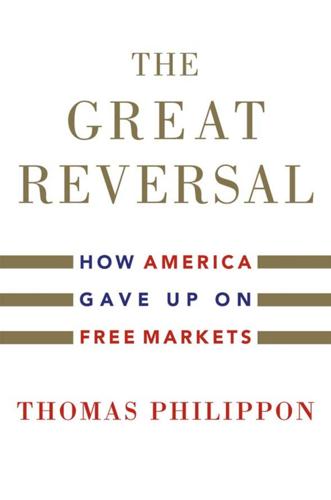
The Great Reversal: How America Gave Up on Free Markets
by
Thomas Philippon
Published 29 Oct 2019
Most of the campaign money does not come from interest group PACs, but rather from individual donors … It doesn’t seem accurate to view campaign contributions as a way of investing in political outcomes … Because politicians can readily raise campaign funds from individuals, rent-seeking donors lack the leverage to extract large private benefits from legislation. It is tempting to compare this statement to the “permanently high plateau” prediction for US stocks that Irving Fisher made in October 1929. To be fair, however, they did not claim to make a prediction about the future, as Fisher did. They were instead reflecting on the common wisdom at the time and, based on their reading of the evidence, they suggested a reorientation of research away from its focus on rent-seeking donors. Much has changed since then, and Luigi Zingales, an economist at the University of Chicago, worries in a 2017 article about a diabolic loop between economic power and political power.
…
For instance, if a good that can be produced for $10 is sold for $15 because it is protected by a patent, then the rent to the patent holder is $5. Some rents are protected by artificial restrictions. For example, draconian occupational licensing laws that restrict entry into certain professions protect those who already hold licenses from competition, allowing them to charge higher prices. When economists talk about “rent-seeking,” they refer to the attempt by individuals or by groups to tilt public policy in a way that establishes or increases those artificial advantages in their favor. This term does not necessarily have a moral connotation. It is rational for people to protect their rents. That does not make them bad people.
…
Put another way, if we hold the view that firms spend money on lobbying but it is useless, then we must recognize that this view is inconsistent with most of what we know about economics and human nature. It’s not strictly impossible, but I am not going to take this idea very seriously. Second, rent seeking is a zero-sum game, and zero-sum games are difficult to identify in the data. For instance, suppose firm A spends $100 to lobby for a regulatory change that would give it an advantage over firm B. Firm B then spends $200 to fight this change. Firm B prevails. What do we see? We see that they collectively spent $300 and that nothing has changed: the relative market shares, growth rates, and productivity of the two firms are the same as before.
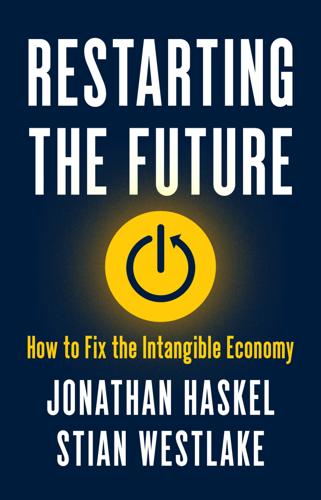
Restarting the Future: How to Fix the Intangible Economy
by
Jonathan Haskel
and
Stian Westlake
Published 4 Apr 2022
But achieving institutional change requires more than just policy wonkery. It also requires that we build state capacity, design systems that strike the right balance between quantity and quality of investment, resist influence activities (or rent seeking), and bring about cultural change. A Framework: Trade-Offs and Institutional Design Two key graphs can help us understand the impact of improving state capacity, the importance of resisting rent seeking, and how the quantity versus quality of intangibles matters. The Trade-Off between Collective Goods and Influence and Information Costs Figure C.1 sets out the key constraint trade-off faced by economies.5 As you go up the vertical axis, the economy is able to provide more centralised collective goods per spend.
…
One example is intellectual property rules, which we discuss in chapter 4. Intellectual property rules help mitigate the problem of spillovers with intangible assets, but as intangibles become more important, the costs of patent thickets increase and the incentives for rights holders to lobby governments to change the rules in rent-seeking ways increase. Summary Institutions, the humanly devised rules of interaction, help with particular dimensions of exchange, such as commitment, collective action, and information. But those dimensions change in importance over time, and so institutions have to change too. Thus, with the rise in intangibles, the various components of exchange have had to change, along with the institutions that help those particular components.
…
What we need instead, according to the critique, is less but better education: more hard science degrees and more high-quality apprenticeships and technical training programmes (in which there is a high degree of synergy between the skills that students learn and the assets of businesses seeking to employ them). This type of education is of course the quality theory in action. Many common proposals for reform are responses to the three problems that beset IP regimes or public funding: the problem of imperfect rules, the risk of rent seeking, and the difficulty of making sure the systems adapt to technological change. Proposals for more discretionary funding agencies, along the lines of the blue-sky US Defense Advanced Research Projects Agency (DARPA), abound. The United Kingdom announced its own version in 2019, while in the United States something similar but larger was proposed in the Endless Frontiers Act, which was introduced into Congress in 2020.27 These plans, which give the funding staff greater discretion to pick radical projects, can be considered attempts to escape the tyranny of increasingly metricised and bureaucratic research funding systems, which are sometimes accused of being captured by academic interests.
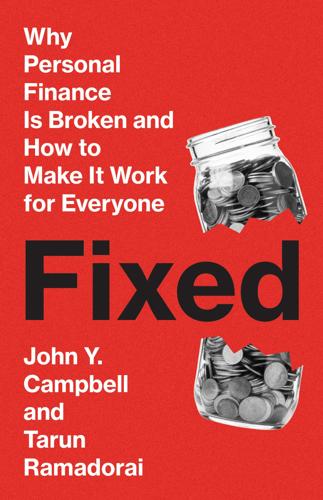
Fixed: Why Personal Finance is Broken and How to Make it Work for Everyone
by
John Y. Campbell
and
Tarun Ramadorai
Published 25 Jul 2025
In fact, any firm with market power has some ability to extract this economic rent from customers. The term “rent seeking” is used when people or companies expend resources trying to get into a position where they can earn rent. In England in the Middle Ages, rent seekers tried to persuade the king to grant them feudal privileges; today, they may lobby the government to impose tariffs on foreign competitors or, in the example we are concerned with in this book, they may wastefully expend resources to attract naive customers who are unaware of better deals offered by alternative suppliers.17 Rent seeking is destructive because it uses up resources in the process of transferring wealth from one person to another without actually creating wealth.
…
Mattia Landoni and Stephen Zeldes, “Should the government be paying investment fees on $3 trillion of tax-deferred retirement assets?,” Review of Financial Studies 38 (2025): 1014–1066, argue for the relevance of the Salop model in the context of household finance. 17. The original analysis of rent seeking is Gordon Tullock, “The welfare costs of tariffs, monopolies, and theft,” Western Economic Journal 5 (1967): 224–232. The phenomenon was named by Anne Krueger, “The political economy of the rent-seeking society,” American Economic Review 64 (1974): 291–303. 18. A classic model of this phenomenon is Abhijit Banerjee, “A simple model of herd behavior,” Quarterly Journal of Economics 107 (1992): 797–817.
…
In fact, unregulated markets delivered advertisements celebrating the health benefits of tobacco, with slogans such as “Smoke a Lucky to feel your level best” (1949) or “L&M filters are just what the doctor ordered” (1951).9 Societies responded by putting in place the modern system of medical regulation, under which only the most basic medicines are available on demand (“over the counter”), and most pharmaceuticals are available only upon prescription by a trained medical professional, and, more recently, the strict regulation of tobacco advertising.10 There is still a long way to go to stamp out abuses in the pharmaceutical industry, but we argue in part III of this book that personal finance can learn from these early moves to improve public health through regulation. Rent and Rent Seeking While competition may deliver the wrong products with hidden costs to confused consumers, it does at least tend to drive down the product prices that are quoted to and perceived by customers. But the picture changes when we consider the third mistake people often make, which is their failure to shop around for financial products.
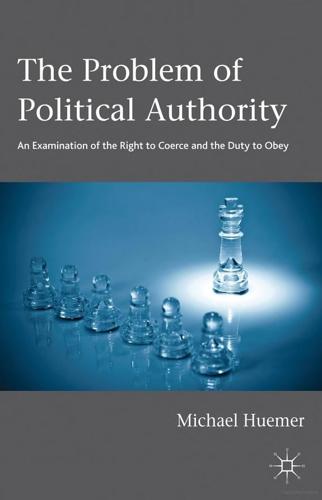
The Problem of Political Authority: An Examination of the Right to Coerce and the Duty to Obey
by
Michael Huemer
Published 29 Oct 2012
As these examples illustrate, legal paternalism is quite widespread in modern Western society. All of these are unjustified laws. 7.1.3 Rent seeking Rent seeking is behavior designed to extract wealth from others, especially through the vehicle of the state, without providing compensatory benefits in return.6 The most straightforward example is a company lobbying the government for subsidies. But many of the policies that exemplify legal paternalism are also motivated partly by rent seeking. Consider the following. – Prescription drug laws. These laws transfer money from consumers to doctors and pharmacists.
…
Belief in authority is socially harmful. 7 What if There Is No Authority? 7.1 Some policy implications 7.1.1 Prostitution and legal moralism If there is no authority, legal moralism, as in the case of laws against prostitution, is unjustified. 7.1.2 Drugs and paternalism Legal paternalism, as in the case of drug laws, is unjustified. 7.1.3 Rent-seeking Laws motivated by rent-seeking are obviously unjustified. 7.1.4 Immigration Immigration restrictions are unjustified. 7.1.5 The Protection of individual rights Laws that protect individual rights are justified. 7.1.6 Taxation and government finance Taxation is justified if and only if voluntary methods of government finance prove unworkable. 7.2 The case of aid to the poor 7.2.1 Welfare and drowning children It is sometimes permissible to force someone to help a third party in an emergency.
…
These motives are analogous to those displayed in policies of types (3)–(9) listed above.23 The specific examples I have given of policy types (3)–(9) are not important, so long as one agrees that there are (a nontrivial number of) policies of each of these types. It does not greatly matter, for instance, whether one agrees that licensing laws are motivated by rent seeking as long as one agrees that a significant number of laws are motivated by rent seeking. The point is that the state has many policies and laws whose motivations do not justify the coercion required to implement them. This is a problem because the state’s authority is generally held to be comprehensive and content-independent. On a very strict reading of the comprehensiveness and content-independence conditions, the existence of just a few laws that the state is not entitled to make would preclude the state’s having genuine authority.
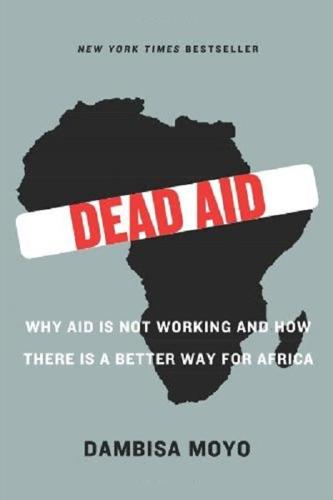
Dead Aid: Why Aid Is Not Working and How There Is a Better Way for Africa
by
Dambisa Moyo
Published 17 Mar 2009
Others estimate that of the US$525 billion that the World Bank has lent to developing countries since 1946, at least 25 per cent (US$130 billion) has been misused. Vast sums of aid not only foster corruption – they breed it. Aid supports rent-seeking – that is, the use of governmental authority to take and make money without trade or production of wealth. At a very basic level, an example of this is where a government official with access to aid money set aside for public welfare takes the money for his own personal use. Obviously, there cannot be rent-seeking without a rent. And because foreign aid (the rent) is fungible – easily stolen, redirected or extracted – it facilitates corruption. Were donor conditionalities remotely effective, this would not be the case.
…
In The Wealth and Poverty of Nations, David Landes argues that the ideal growth and development model is one guaranteed by political institutions. Secure personal liberty, private property and contractual rights, enforced rule of law (not necessarily through democracy), an ombudsman-type of government, intolerance towards private rent-seeking and optimally sized government are mandatory. In Empire: How Britain Made the Modern World, Niall Ferguson points to the common-law system and the British-type civil administration as two institutions that promoted development. Ferguson also notes that it is a country’s underlying legal and political institutions that make it conducive to investment (and counter-disinvestment through less capital flight) and innovation.
…
But these things are meaningless in the absence of trust. And while trust is difficult to define or measure, when it is not there the networks upon which development depends break down or never even form. Foreign aid does not strengthen the social capital – it weakens it. By thwarting accountability mechanisms, encouraging rent-seeking behaviour, siphoning off scarce talent from the employment pool, and removing pressures to reform inefficient policies and institutions, aid guarantees that in the most aid-dependent regimes social capital remains weak and the countries themselves poor. In a world of aid, there is no need or incentive to trust your neighbour, and no need for your neighbour to trust you.
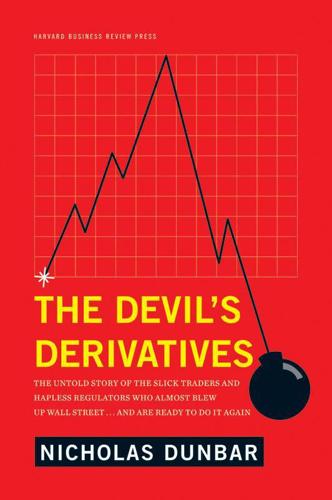
The Devil's Derivatives: The Untold Story of the Slick Traders and Hapless Regulators Who Almost Blew Up Wall Street . . . And Are Ready to Do It Again
by
Nicholas Dunbar
Published 11 Jul 2011
Such dangers are well understood in consumer financial markets.13 Where customers are confused about their buying decisions, they can fall prey to “rent seeking” by sophisticated vendors, who extract outsized profits without delivering real value for their customers. With bespoke over-the-counter derivatives and structured products, opaque pricing allows dealers to build hefty margins into the transaction. This means that the difference between the true manufacturing cost and what the customer actually pays can be earned as “rent” by the dealer over the life of the trade. So long as the customer feels that they are getting a good deal, such rent seeking can be extremely profitable for large financial institutions.
…
Since the late 1990s, financial institutions have earned billions annually in rent by selling these structured products to price-indifferent consumers and hedging their exposure over time.14 At first glance, institutional derivative customers would seem to offer fewer opportunities for rent seeking by banks. Shareholders require and reward managers to avoid the fog of confusion that makes consumers easy victims of rent seeking. The managers, in turn, expect the bankers that compete for their business to genuinely act in their best interest and not try to pull the wool over their eyes. “Our best relationship banks think intensively about our capital structure and hedging strategy,” is how the head of corporate finance at Lufthansa expresses it.
…
On a single transaction that reached $250 million in size, that meant J.P. Morgan could book a profit of over $10 million. One might say that there was no value being created here for Poste Italiane, just rent seeking by J.P. Morgan. If this wasn’t sufficient evidence of his lack of competence, Catasta made things worse by adjusting his derivatives, exposing himself to more trading costs and even more rent seeking. According to sources at the company, Catasta would periodically dismantle older deals and replace them with new ones, until July 2003. This last tweak—possibly a result of an earlier bet’s losing money—alone cost Poste Italiane €50 million.
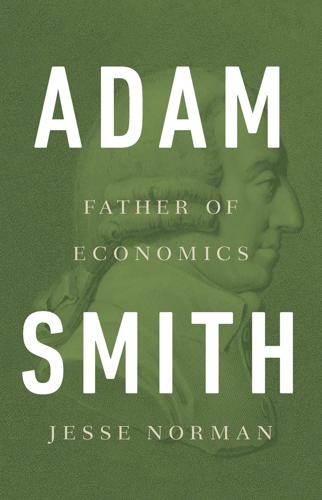
Adam Smith: Father of Economics
by
Jesse Norman
Published 30 Jun 2018
On the relation between famines and democracy, see Amartya Sen, Poverty and Famines, Oxford University Press 1981; and more recently, Cormac Ó Gráda, Famine: A Short History, Princeton University Press 2009 Rent-seeking: this idea was first specifically developed by Gordon Tullock in ‘The Welfare Costs of Tariffs, Monopolies and Theft’, Western Economic Journal, 5.3, 1967. It was further developed, and the term ‘rent-seeking’ coined, by Anne Krueger in ‘The Political Economy of the Rent-Seeking Society’, American Economic Review, 64.3, 1974. See also Roger D. Congleton and Arye L. Hillman (eds.), Companion to the Political Economy of Rent-Seeking, Edward Elgar 2015 James Anderson on rent: see An Enquiry into the Nature of the Corn Laws, 1777.
…
Indeed, Smith appears to have been the first person to present a comprehensive analysis of what crony capitalism amounts to, and why it is damaging to business and government alike. In doing so he opened up and made prominent three sets of ideas which, further refined and developed, have become analytic tools of lasting significance. The first of these is the idea of rent-seeking. ‘Rent’ in this sense, or ‘economic rent’, is not quite the same thing as the rent received on land or property, though the ideas are related. We can refine the description given earlier—as unearned income received, over and above the returns generated in competitive markets—by thinking of it as the difference between the market price and the lowest price a seller would accept.
…
Smith does not have a theory of economic rent as such—the first steps towards one were taken in 1777, a year after publication of The Wealth of Nations, in a work by his contemporary and critic James Anderson of Hermiston—and as a result he appears to underestimate the possibility that companies can build up ‘good’ rents and thus sustainable competitive advantage by entirely legitimate means. But, as we have seen, Smith is acute in identifying and characterizing the special interests of his time, and the interrelated issues of rent-seeking, collusion, lobbying and their effects; and the wider links he draws between mercantilism and colonization are bold and illuminating. The second important idea in analysing crony capitalism is that there can be asymmetries of information and power between players in a market. Merchants can readily hoodwink politicians, as we have seen; and in commerce, far from believing that an invisible hand inevitably works to create conditions of equal competition in markets, Smith is alive to the possibilities for some market players to exploit and derive unfair advantage over others.
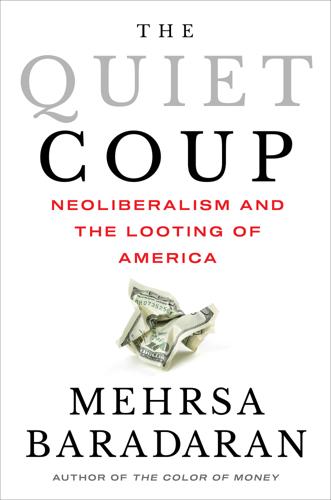
The Quiet Coup: Neoliberalism and the Looting of America
by
Mehrsa Baradaran
Published 7 May 2024
The book also rebutted the basic presumption underlying the political franchise, that of a citizenry shaping their governemnt by voting their values at the polls. Not so, it noted; voters formed cartel-like special interest groups for the purpose of rent seeking, or extracting more than their share from the government. If this was too dismal a description of government in 1962, it would not be after the neoliberal coup. Typically, rent seeking in a political context referred to corporate lobbyists who sought changes in the law to boost business profits (“rents”) that were paid for by the general public. Buchanan and Tullock’s public choice theory—the moniker they chose for their central idea—turned the common understanding on its head.
…
Although the era from the start of Reagan’s time in office to the end of Bill Clinton’s is often characterized as a time of “deregulatory” reforms, the claim has things almost exactly backward, if one separates rhetoric from action. Actually, the period saw more laws and regulations, requiring more lawyers, more compliance officers, and more lobbyists. Neoliberal elites increased their rent-seeking activities and thus their “rents.” As corporate coffers grew, money flooded into politics. Corporations’ increasing political sway then led to more profits through rent seeking. Buchanan’s fears about special interest vote-trading had come to life, only in reverse. From Reagan’s tax and spending cuts to Clinton’s tax and spending cuts, from Supreme Court decisions to Congress’s embrace of Chicago School economics, neoliberalism became the software of the state.
…
Although Keynesian and progressive economists had recognized that not all regulatory rules on business were made in the public interest—the term “rent seeking” was coined to describe the problem of businesses influencing laws to their benefit—Stigler took this observation to the extreme. Rather than arguing that only some regulations were unwarranted or counterproductive, Stigler posited that, “as a rule, regulation is acquired by the industry and is designed and operated primarily for its benefit.” By Stigler’s lights, all regulation, from any quarter, was rent seeking by special interest groups colluding with self-interested politicians to promote their own interests.19 As scholars at the time noted, the paper had many methodological flaws.
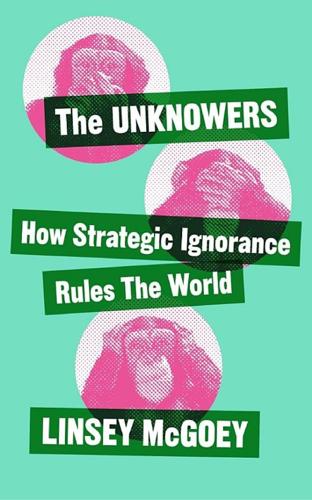
The Unknowers: How Strategic Ignorance Rules the World
by
Linsey McGoey
Published 14 Sep 2019
Ever since it was introduced, marginal productivity theory has been widely derided by scholars working inside and outside the economics mainstream, but it is still taught as orthodoxy at most US universities.11 One of the leading proponents today of marginal productivity theories is Gregory Mankiw, an economist at Harvard who argues that increased global wealth concentration – the fact the richest 1 percent of the global population control nearly two-thirds of the world’s resources – stems naturally from wealthy people making more valuable contributions to society than other people. He acknowledges that what classical economists like Smith saw as ‘rentier’ activities still do exist in theory, but he insists that rent-seeking plays little or no role in producing current wealth inequalities in countries such as the US. In his words (quotes taken from his article ‘Defending the One Percent’): if ‘a person’s high income results from political rent-seeking rather than producing a valuable product, the outcome is likely to be both inefficient and widely viewed as inequitable.’ But to his mind, this problem is exceedingly rare: ‘My own reading of the evidence is that most of the very wealthy got that way by making substantial economic contributions, not by gaming the system or taking advantage of some market failure or the political process.’12 His critics see this as nonsense.
…
First, government gifts to the rich were doled out too arbitrarily: he wanted the science of subsidies to improve. And second, he thought the revenue generated from government subsidies wasn’t shared fairly among the wider polity. Smith’s criticism of monopoly protections introduced a notion later described as ‘rent-seeking’ – the gaining of private benefits through disproportionate influence over government decision making. Smith also introduced a second aspect of rentier privileges, one that relates to the economic concept of ‘rent.’ By this, economists don’t mean the common meaning of rent; the eye-watering £2000 or so per month a two-bed flat in London costs to rent monthly (more in higher-end areas).
…
Marginal productivity theories deflected and obscured the criticism that Adam Smith and his peers directed at rentier profiteering and corporate abuses of power. My argument is that paying more attention to marginal productivity theories helps to create a plausible ‘ignorance pathway’ for understanding why 18th-century economic concerns about corporate rent-seeking were largely dropped as a major focus of mainstream economists over much of the 20th century.10 The new, marginal productivity theory of income distribution suggests that, under perfectly competitive markets, the remuneration that people receive from different economic activities tends to align naturally with the economic value that they have generated to society.

Markets, State, and People: Economics for Public Policy
by
Diane Coyle
Published 14 Jan 2020
All those who would otherwise have been paid less, and perhaps some who might have been paid more, are paid the legal minimum, so the distribution of earnings spikes at that point. Tackling Rent Seeking Since the 1980s there has been a dramatic increase in the earnings of the top 10% (or 1% or 0.1%) of the income distribution (figure 6.12 shows the US example—the most extreme among OECD member countries). The average pay of a US CEO has increased from about 40 times the workforce average to more than 340 times as big. However, it is not easy to figure out how much rent seeking has contributed to income inequality. This is a general term for using regulations or other government policies that diminish competition to the benefit of certain incumbent groups.
…
Total surplus is maximized under perfect competition, but this is a textbook benchmark; in real life the question is about the degree of competition—there is a spectrum, as illustrated in figure 2.2. Figure 2.2. Competition spectrum. Monopoly power can also cause additional efficiency losses, beyond those shown in figure 2.1. One source is known as rent seeking: big firms spend a lot of money on lobbying to protect their market power (more on this in chapters 4 and 7). This can be thought of as limiting the scope for a market to become more competitive. Another source of inefficiency concerns how market power affects costs over time in the industry.
…
Here it is (with some commentary): • People deserve higher pay for skilled, difficult, or dangerous work, or anything that has required years of training, such as surgery, or working on an offshore oil rig (although it must be acknowledged that many other people work in unpleasant jobs for low pay, while some highly skilled people such as ballet dancers or nurses are mostly not well paid) • Risk-taking should be rewarded (entrepreneurs deserve to get rich) • Inheritance is a matter of pure luck—but so is talent and we don’t begrudge the earnings of, say, basketball players or writers who have innate skills—that’s life, and we should not give in to the politics of envy • High incomes enable people to accumulate wealth so they can finance innovation and investment, provide patronage for new ideas, or fund philanthropy • Freedom is more important than coercive action to promote equality • As it happens, the more capitalist a society, the more equal it is (this was true in the 1960s when Friedman wrote this, but not now) • Government itself enables people to earn unfairly high incomes by creating barriers to entry to the professions or regulations that enable monopolistic rent seeking (see chapters 2 and 7) But Friedman also states that society needs a sense of social justice to function; and that income and wealth are the result of property rights, which are determined by the state and society. There is not a difference in principle between the state allocating the right to own property and limiting that right by imposing taxes, on pain of fines or even imprisonment for non-payment.
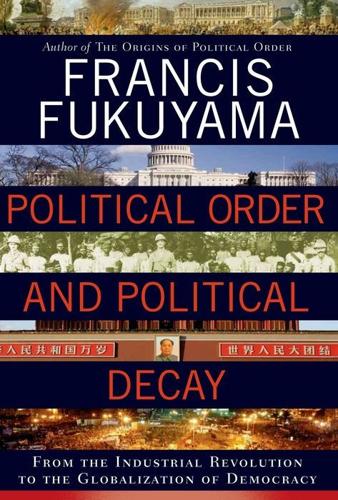
Political Order and Political Decay: From the Industrial Revolution to the Globalization of Democracy
by
Francis Fukuyama
Published 29 Sep 2014
The history of developing countries in Latin America, Africa, and the Middle East is littered with cases of industrial policy gone bad and collapsing in a flurry of corruption and rent seeking, like the Argentine effort to create a domestic car industry noted in chapter 18. For government intervention to work, the state must have what Peter Evans labels “embedded autonomy”: bureaucracies have to respond to social needs, but also must be free of pressures to satisfy rent-seeking political constituencies, allowing them to promote longer-term goals that serve a broad public interest. This kind of policy worked in Japan, South Korea, Taiwan, and China but failed elsewhere.
…
Public good may be invoked during election campaigns, but the state is not impersonal: favors are doled out to networks of political supporters in exchange for votes or attendance at rallies. This pattern of behavior is visible in countries from Nigeria to Mexico to Indonesia.2 Douglass North, John Wallis, and Barry Weingast have an alternative label for neopatrimonialism, what they call a “limited access order,” in which a coalition of rent-seeking elites use their political power to prevent free competition in both the economy and the political system.3 Daron Acemoglu and James Robinson use the term “extractive” to describe the same phenomenon.4 At one stage in human history, all governments could be described as patrimonial, limited access, or extractive.
…
Second, corruption acts as a highly regressive tax: while petty corruption on the part of minor, poorly paid officials exists in many countries, the vast bulk of misappropriated funds goes to elites who can use their positions of power to extract wealth from the population. Further, seeking such payoffs is often a time-consuming occupation that diverts the energies of the smartest and most ambitious people who could be creating wealth-generating private firms. Gaming the political system for private gain is what economists label “rent seeking.”2 It has been argued that bribery might increase efficiency by lubricating the process of getting business registrations, export licenses, or appointments with high officials. But this represents a very poor way of doing business: it would be much better if registration processes were quick, if export licenses didn’t exist at all, or if all individuals had easy and equal access to the government.
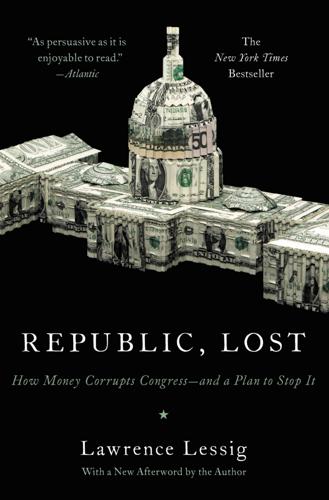
Republic, Lost: How Money Corrupts Congress--And a Plan to Stop It
by
Lawrence Lessig
Published 4 Oct 2011
And these interests could leverage their power to achieve this rapaciousness because—in part at least—of the “self-reinforcing cycle of mutual financial dependency” between members of Congress and the lobbyists, as the American Bar Association’s Lobbying Task Force put it.8 Reagan couldn’t see this in the early 1970s when his philosophy was finally set. The dynamic hadn’t quite taken hold. No doubt there was “rent seeking”—efforts by special interests to secure favors through the government that they couldn’t get through the free market. But then, the level of this rent seeking was nothing close to the level that is now the new normal. It’s not the game that has changed. It is the scale. Reagan can be forgiven for missing this scale. Likewise with the alleged rapaciousness of bureaucrats.
…
This was Teddy Roosevelt’s view: “Corporate expenditures for political purposes… have supplied one of the principal sources of corruption in our political affairs.”51 But however clever political antitrust might be, a more fundamental response would be to weaken the ability of wealth to leverage political power. Never completely. That would not be possible. But at least enough to weaken the return from rent seeking, perhaps enough to make ordinary innovation seem more profitable. Any reform that would seek to weaken the ability of wealth to rent-seek would itself be resisted by wealth. So long as private money drives public elections, public officials will work hard to protect that private money. And if you doubt this, look to Wall Street: never has an industry been filled with more rabid libertarians; but never has an industry more successfully engineered government handouts when the gambling of those libertarians went south.
…
The theory of regulatory capture raises questions about whether cartel-like industries will use their power to extract rents in the market or through government. And indeed, as Posner writes, the strongest examples of successful rent seeking come from relatively competitive industries. See Posner, “Theories of Economic Regulation,” 335, 343–45. The success of the “deregulation” movement may have now shifted the rent-seeking game toward the focus that now concerns Rajan and Zingales. 15. Rajan and Zingales, Saving Capitalism from the Capitalists, 296. 16. Eastern Railroad Presidents Conference v. Noerr Motor Freight, Inc., 365 U.S. 127 (1961); United Mine Workers v.

Enshittification: Why Everything Suddenly Got Worse and What to Do About It
by
Cory Doctorow
Published 6 Oct 2025
But for all that Google had arranged the game pieces so that it could cheat at will, mustering that will was always complicated, as Google contended with its workforce. Axing twelve thousand Googlers in 2023 and thousands more in 2024 was a small price for Google to pay to allow managers total discretion about when they’d cheat and how. It was a price Google paid gladly, and we’re all living in its aftermath. Rent Seeking and Technofeudalism Right about now, you might be thinking something like this: What did you expect? That’s just capitalism, right? Minimize costs (including labor costs). Maximize profits. Take care of the shareholders first, as is the sacred duty of every CEO. But is it capitalism? In his 2023 book, Technofeudalism: What Killed Capitalism, the radical economist Yanis Varoufakis, formerly both the chief economist of the video game company Valve and the finance minister of the sovereign nation of Greece, argues that tech firms have transitioned away from capitalism and into a new system he calls technofeudalism.
…
The capitalist era had plenty of rents, but those rents were secondary to profits, and where they conflicted with profit, rentiers were told to pound sand. Varoufakis’s technofeudalism thesis holds that, in the years after the Great Financial Crisis of 2008, tech was transformed from a primarily profit-seeking enterprise to a primarily rent-seeking enterprise. The thing that makes the tech giants powerful is that they control “factors of production” that they rent to actual, productive businesses. This is a powerful frame. It’s impossible to deny that the majority of Big Tech revenue comes from these rents. Amazon rents search placement to its merchants, to the tune of $38 billion a year.
…
Repealing the Law of “Felony Contempt of Business Model” Intermediaries rely on a tangle of overlapping IP laws to usurp and control the relationships of buyers and sellers, service providers and customers, cultural workers and audiences, politicians and voters, and families and communities. It will be the work of decades to pass laws reforming copyright, patent, anti-circumvention, trade secrecy, contract law, trademark, and all the other policies that stand in the way of interoperability as a means of giving users immediate relief from oppressive rent-seeking middlemen. But that’s not to say we shouldn’t try—and we are trying. One area where interoperability has made enormous progress is right-to-repair laws enacted at the state level. In the 2010s, repair advocates, organized under the Digital Right to Repair Coalition umbrella, authored model legislation that was introduced in dozens of states, only to be thwarted by a powerful coalition of giant manufacturers, from Big Car to Big Tech.
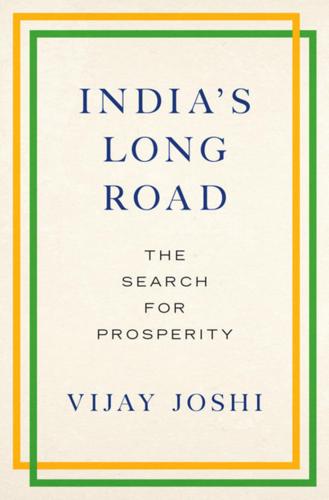
India's Long Road
by
Vijay Joshi
Published 21 Feb 2017
But history all over the world shows that entrepreneurship can be directed to productive or unproductive uses depending on the context.20 If the rewards are greater in unproductive rent- seeking than in productive activities, then that is where business energy will go.21 There is no doubt that liberalization in India has very been successful in channelling the energy of firms into innovative and productive uses.22 However, there is also evidence, especially in the recent past, that India’s corporate sector is vulnerable to rent-seeking and unproductive entrepreneurship, a disease that could arrest the growth of productivity in the long run. The lesson is that while the state must redouble its efforts to liberalize, it must at the same time safeguard competition and restrain corruption and crony capitalism (see Chapter 11).
…
Super-fast growth for a couple of decades or more is like running the distance of a marathon at the speed of a sprint. Most countries cannot make it. Many countries have brief high-growth spurts that fizzle out due to lack of stamina. Fast-growing countries slow down because they have fiscal explosions or fall prey to rent-seeking oligarchies and crony capitalists or simply fail to sustain the pace of productivity improvement.11 In recent years, India has looked vulnerable to falling at each of these hurdles. I emphasize again that India’s aim is not just fast growth but high-quality, fast growth. That sets the bar higher than fast growth pure and simple.
…
In India, a further twist was given to this kind of thinking by a ‘heavy industry’ strategy (based loosely on Soviet planning models), which was adopted in the Second Five Year Plan and used to justify the physical allocation of investment.5 It was taken for granted that extensive government intervention and controls were necessary to subdue or supplant the market, and make the private sector’s activities consonant with the planned trajectory of output.6 Once the controls were established, the dynamic of rent-seeking took over and they proliferated to the point where no economic activity, unless of very small scale, could be legally pursued without obtaining dozens of permits and licences from different departments of government. Controls permeated every facet of business decision-making including investment, output-mix, pricing, credit, employment, entry, and exit.
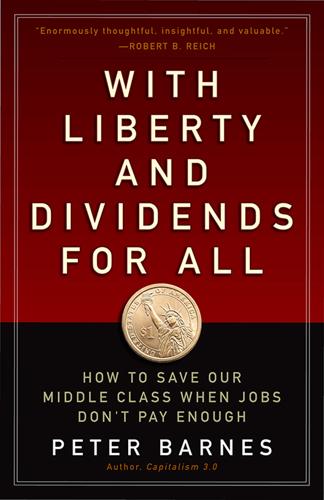
With Liberty and Dividends for All: How to Save Our Middle Class When Jobs Don't Pay Enough
by
Peter Barnes
Published 31 Jul 2014
The contemporary concept of rent also includes income from privileges granted by government—import quotas, mining rights, subsidies, tax loopholes, and so on. Many economists use the term rent seeking to describe the multiple ways in which special interests manipulate government to enrich themselves at the expense of others. If you’re wondering why Washington, DC, and its environs have grown so prosperous in recent decades, it’s not because government itself has become gargantuan, it’s because rent seeking has. In short, rent is income received not because of anything a person or business produces but because of rights or power a person or business possesses.
…
Further, it not only adds no value to the economy but “distorts resource allocation and makes the economy weaker.”14 And finally: “There’s no begrudging the wealth accrued by those who have transformed our economy—the inventors of the computer, the pioneers of biotechnology. But, for the most part, these are not the people at the top of our economic pyramid. Rather, to a too large extent, it’s people who have excelled at rent seeking in one form or another.” EIGHTY YEARS AGO, JOHN MAYNARD KEYNES looked forward to what he called “the euthanasia of the rentier.” That day would come when the supply of capital was so large, relative to the demand for it, that the return to capital “would have to cover little more than [its] exhaustion by wastage and obsolescence together with some margin to cover risk and the exercise of skill and judgment.”
…
The revenue for this fund would have come from selling rights to dump carbon dioxide into our co-owned air. The story of these failures is both political and intellectual. In this chapter, I trace the transformation of a good idea—a market-based limit on carbon pollution—into a compromised and beaten one. This transformation was driven by the familiar Washington process of rent seeking, and its story yields a number of lessons. THE IDEA OF CAPPING FLOWS of harmful substances, and then letting markets allocate them, goes back to 1968, when a Canadian economist, the late John Dales, floated the idea in a book called Pollution, Property & Prices1 At the time, Dales wasn’t thinking about climate change; he was thinking about farmers who polluted streams with chemical runoffs.

Currency Wars: The Making of the Next Gobal Crisis
by
James Rickards
Published 10 Nov 2011
Elites who manage the institutions of society slowly become more concerned with their own share of a shrinking pie than with the welfare of society as a whole. The elite echelons of society go from leading to leeching. Elites behave like parasites on the host body of society and engage in what economists call “rent seeking,” or the accumulation of wealth through nonproductive means—postmodern finance being one example. By 2011, evidence had accumulated to show that the United States was well down the return curve to the point where greater exertions by more people produced less for society while elites captured most of the growth in income and profits.
…
CEO pay increased 27 percent in 2010 versus 2009 while over twenty million Americans either were unemployed or had dropped out of the labor force but wanted a job. Of Americans with jobs, more worked for the government than in construction, farming, fishing, forestry, manufacturing, mining and utilities combined. One of the best measures of the rent seeking relationship between elites and citizens in a stagnant economy is the Gini coefficient, a measure of income inequality; a higher coefficient means greater income inequality. In 2006, shortly before the recent recession began, the coefficient for the United States reached an all-time high of 47, which contrasts sharply with the all-time low of 38.6, recorded in 1968 after two decades of stable gold-backed money.
…
The Gini coefficient trended lower in 2007 but was near the all-time high again by 2009 and trending higher. The Gini coefficient for the United States is now approaching that of Mexico, which is a classic oligarchic society characterized by gross income inequality and concentration of wealth in elite hands. Another measure of elite rent seeking is the ratio of amounts earned by the top 20 percent of Americans compared to amounts earned by those living below the poverty line. This ratio went from a low of 7.7 to 1 in 1968 to a high of 14.5 to 1 in 2010. These trends in both the Gini coefficient and the wealth-to-poverty income ratio in the United States are consistent with Tainter’s findings on civilizations nearing collapse.

Move Fast and Break Things: How Facebook, Google, and Amazon Cornered Culture and Undermined Democracy
by
Jonathan Taplin
Published 17 Apr 2017
He noted, “The right has colonized the digital space around these subjects—Muslims, women, Jews, the Holocaust, black people—far more effectively than the liberal left.” Google, Amazon, and Facebook are classic “rent-seeking” enterprises. The New York Times columnist Adam Davidson explains the concept: In economics, a “rent” is money you make because you control something scarce and desirable, whether it’s an oil field or a monopolistic position in a market.… The left, right and center of the economics profession all agree that reducing rent-seeking behavior, and improving overall growth, is essential if we want to “make America great again.” Google and Facebook each have more than one billion customers while Amazon has 350 million.
…
Two senior Obama economic advisers, Peter Orszag and Jason Furman, published a paper entitled “A Firm-Level Perspective on the Role of Rents in the Rise in Inequality,” which makes the argument that the rise in “super-normal returns on capital” at firms with limited competition is leading to a rise in economic inequality. They describe these firms as “rent seeking.” Economic rents are the return to a factor of production in excess of what would be needed to keep it in the market.… For example, capital can extract rents by engaging in anti-competitive behavior to earn revenues well in excess of opportunity cost.… Moreover, labor market structure can lead to some elements of monopsony in certain industries, slanting the division of this labor contract rent towards the firm. The classic example of rent seeking we all deal with is our cable service, which costs more than it should and is less responsive than it should be because its local monopoly allows the company to make a better “deal” for itself.
…
The classic example of rent seeking we all deal with is our cable service, which costs more than it should and is less responsive than it should be because its local monopoly allows the company to make a better “deal” for itself. It is probably fair to ask whether Google, Facebook, and Amazon are rent-seeking firms—i.e., whether they monopolize the resources they use. Does the fact that Amazon can deny a publisher access to its vast customer base allow it to extract rents from publishers in excess of what it would be able to extract if there were multiple large sellers in the ebook market? Yes. Can Facebook and Google extract monopoly rents in excess of normal market prices from advertisers in return for the targeted access to their billions of users?

The Billionaire Raj: A Journey Through India's New Gilded Age
by
James Crabtree
Published 2 Jul 2018
The first included companies in sectors that were mostly untouched by government, in which business success was assumed to come mostly from efficiency and innovation. The second featured businesses in what Walton called “rent-thick” sectors, meaning those where firms made money—or “rents”—via access to favors. Economists worry about what they call “rent seeking,” meaning the way some businesses earn profits beyond what they could make in a competitive market, for instance by owning the rights to land or resources or intellectual property. Some companies earned rents by lobbying or bribing, others from operating in cartels or as monopolies. The term “rentier” was sometimes used by left-wing thinkers to describe the same thing, meaning those who grabbed valuable resources, such as licenses to drill oil fields or develop real estate.
…
The term “rentier” was sometimes used by left-wing thinkers to describe the same thing, meaning those who grabbed valuable resources, such as licenses to drill oil fields or develop real estate. Digging into the data, Walton found a clear pattern. In the early years after its 1991 reforms India’s new billionaires operated mostly in areas like IT services, which had little in the way of rent-seeking. But as the economy took off and globalization jacked up demand for things like commodities and land, so the wealth of billionaires shot up most of all in rent-thick sectors, from mining and property to cement, infrastructure, and telecoms. Over the years since, the various billionaires’ fortunes had ebbed and flowed.
…
But most merely operated in sectors that were tied closely to the government, where they could put their connections to good use. There was even a special local word for the tycoons themselves: “promoters,” a term that referred to the individual or family who owned most of the equity in the business and who in turn tightly controlled its operations. The business of rent-seeking in India led many tycoons to build up sophisticated influence machines. Some, like Vijay Mallya, became politicians themselves. Others created modern versions of the old Reliance Industries “intelligence agency” in New Delhi, the sophisticated lobbying operation built up over the decades by Mukesh Ambani’s father.
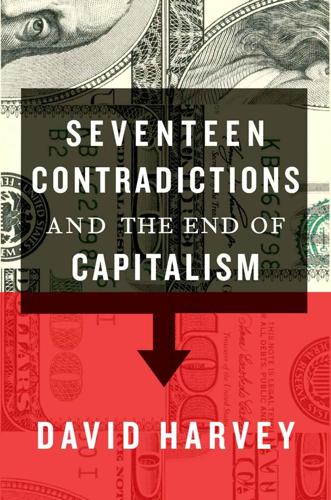
Seventeen Contradictions and the End of Capitalism
by
David Harvey
Published 3 Apr 2014
This has now led to an admission that monopoly power is more than an aberration but a systemic problem that arises out of what economists refer to as ‘rent seeking’. ‘To put it baldly,’ says the economist Joseph Stiglitz, ‘there are two ways to become wealthy: to create wealth or to take wealth away from others. The former adds to society. The latter typically subtracts from it, for in the process of taking it away, wealth gets destroyed.’1 Rent seeking is nothing more than a polite and rather neutral-sounding way of referring to what I call ‘accumulation by dispossession’. The virtue of Stiglitz’s somewhat truncated account of rent seeking or accumulation by dispossession is that it recognises the seamless way in which monopoly power in economic transactions is paralleled by monopoly power in the political process.
…
Regressive taxes and write-offs; regulatory capture (in which the foxes are put in charge of the henhouse); acquiring or leasing state or private assets at discount prices; inflated cost-plus contracts with state agencies; writing legislation to protect or subsidise particular interests (energy and agribusiness); buying political influence through campaign contributions – these are all political practices that give a free hand to big moneyed and monopolistic interests while permitting them to plunder the public treasury at the expense of the taxpayer. These political practices supplement conventional rent seeking in land and property markets; rents on resources and on patents, licences and intellectual property rights; plus excess returns due to monopoly pricing. Then there are all the quasi-legal ways of gaining excess profits. The creation of financial markets that lack any transparency or in which adequate information is lacking creates a fog of misunderstanding in which sharp practices are impossible to curb.
…
As Stiglitz remarks, ‘Some of the most important innovations in business in the last three decades have centered not on making the economy more efficient but on how better to ensure monopoly power or how better to circumvent government regulations intended to align social returns and private rewards.’2 What is missing from Stiglitz’s account of rent seeking as a strategy (though not from his account of the social outcomes) is the demolition of a wide range of democratic rights, including economic rights to pensions and health care, and free access to vital services such as education, police and fire protection, and state-funded programmes (like nutritional supplements and food stamps in the case of the USA) that have hitherto helped to support low-income populations at an adequate standard of living.
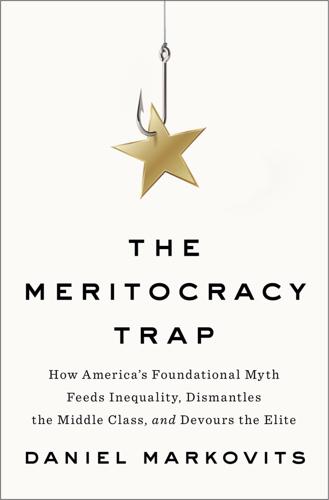
The Meritocracy Trap: How America's Foundational Myth Feeds Inequality, Dismantles the Middle Class, and Devours the Elite
by
Daniel Markovits
Published 14 Sep 2019
But it is a mistake to leap from these uncontested facts to the conclusion that deregulated elite finance workers’ immense incomes arise from exploitation or rent seeking. If the techniques employed by deregulated finance make super-skilled finance workers especially productive, then no increase in rent seeking is required to explain the increase in finance-sector wages. The figures, which show that relatively fewer, relatively more-skilled workers are taking the same cut from a relatively rising share of GDP explain rising finance-sector wages in this way, without needing to resort to rising rent seeking. None of this demonstrates, nor does it even assert, that finance workers extract no rents.
…
Critics of inequality commonly attribute rising top incomes to personal vices rather than to economic structures, and to too little meritocracy rather than too much, arguing that superordinate workers get their extravagant incomes through nepotism and class snobbery, rent seeking that exploits economic power, or even outright fraud. These arguments resemble suggestions, discussed earlier, that top incomes must come from capital rather than labor. Like those suggestions, these charges have a point. Meritocrats retain all the familiar vices, and class snobbery, rent seeking, and fraud contribute—including outrageously—to the advantages that superordinate workers enjoy. But once again, the scale of the moral vices does not match (or even approach) the scale of the rise in elite incomes.
…
According to this view, elite schools and universities admit students based on cultural capital, class background, or legacy status rather than intelligence or academic ability, elite employers hire based on social networks and pedigree rather than skill or talent, and superordinate workers command their immense incomes through rent seeking or outright fraud. A second familiar criticism, developed in great detail by Thomas Piketty, attributes increasing economic inequality to a shift of income away from labor and in favor of capital and, in the extreme, to a rising oligarchy. According to this view, economic and political forces are reconcentrating wealth, redistributing income to become both more capital-intensive and more concentrated at the top, and by these means rebuilding an old-fashioned rentier elite as the economically and politically dominant caste in a twenty-first-century version of patrimonial capitalism.
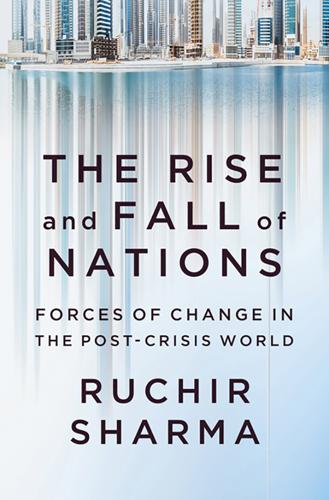
The Rise and Fall of Nations: Forces of Change in the Post-Crisis World
by
Ruchir Sharma
Published 5 Jun 2016
Rising Japanese billionaires like Hiroshi Mikitani, an e-commerce magnate known for adopting ideas from American corporate culture and criticizing his countrymen for their lack of English proficiency, get a lot of media attention precisely because they are so unusual. It’s not a good sign when dynamism is seen as offbeat. Quality: The Good versus Bad Billionaires Though new faces on the billionaire list can be a favorable sign for the economy, this holds true only if they are good billionaires, emerging outside what economists call “rent-seeking industries.” These industries include construction, real estate, gambling, mining, steel, aluminum and other metals, oil, gas, and other commodity industries that mainly involve digging natural resources out of the ground. The competition in these sectors is often focused on securing access to a greater share of the national wealth in natural resources, not on growing the wealth in fresh, innovative ways.
…
These trends may have taken the edge off the anticorporate, antigrowth sentiment that had been building in Delhi over the prior decade. An Indian brokerage firm called Ambit started tracking the fate of crony capitalists through its “connected companies index,” which monitors seventy-five firms that operate in rent-seeking industries and are believed to have benefited significantly from close ties to government officials. The stock prices for these companies have collapsed with the growing backlash against political influence peddling and the public’s intense focus on corrupt deals. Between mid-2010 and mid-2015, India’s stock market rose 50 percent, while the connected companies’ index lost half its value, a sign that crony capitalism was in decline, along with the luster of making money on rising commodity prices.
…
Few new or good billionaires are to be found in nations where an aging regime has turned away from reform and cultivated a class of politically connected tycoons. Two of these regimes are in Putin’s Russia and Erdoan’s Turkey. The billionaire class in Turkey controls a rising share of the economy, and the share of wealth that comes from rent-seeking industries has spiked. Nine out of every ten Turkish billionaires live in Istanbul, long the commercial center of the country. Even billionaires who hail from the heartland of Anatolia tend to relocate to Istanbul, to be closer to the action. But no city rivals the concentration of wealth and power in Moscow.
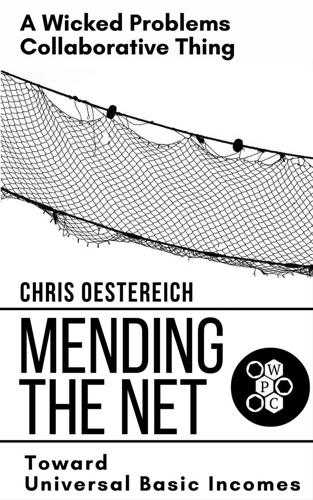
Mending the Net: Toward Universal Basic Incomes
by
Chris Oestereich
Published 20 Oct 2016
And plenty of other potential pitfalls may lie waiting in the road ahead. Thinking about what problems might lurk, and designing experiments with those possibilities in mind, should help us arrive at a workable starting point. A few potential obstacles I see are (1) the likelihood of rent seeking, (2) the curtailment of welfare programs, and (3) the financialization of basic incomes. The economy is already rife with rent seeking; the pursuit of economic gain without reciprocation. Imagine what those who already pursue such “opportunities” might try when they learn that everyone will start receiving regularly scheduled checks. What would cartoonishly rapacious capitalists like Turing Pharmaceuticals,[19] the EpiPen’s maker Mylan,[20] and all the garden-variety profiteers who keep their inequitable dealings under the radar do in those circumstances?

Them And Us: Politics, Greed And Inequality - Why We Need A Fair Society
by
Will Hutton
Published 30 Sep 2010
Three leading theorists from Harvard and MIT – Kevin Murphy, Robert Vishny and Andrei Shleifer – argue in an important paper that countries in which talent pursues such rent-seeking activity rather than genuine entrepreneurship grow at a slower rate: ‘Pure entrepreneurial activities raise current income because resources are used more efficiently, contribute to growth because technology is improved, and take profits away from competitors.’19 Rent-seeking does the opposite. Moreover, as Schumpeter pointed out, the innovating entrepreneur who had to overcome the resistance of the conservative to change probably expended more energy and effort.
…
It might even indirectly contribute to growth if more efficient financial markets reduce the cost of capital. But the main gains from trading come from the transfer of wealth to the smart traders from the less astute who trade with them out of institutional needs or outright stupidity.’ Finance – along with the law and piracy – has always been a route to great wealth, a classic rent-seeking occupation. Today, it is even more so. In their defence, bankers and financiers usually point to ‘financial innovation’ as an attribute that society should desire and value, but their arguments are hamstrung by their own astonishing inability to distinguish between innovation that is economically and socially useful and that which is not.
…
The cases for inheritance tax – a tax on good luck – and social insurance – a means to counter bad luck – are both deeply rooted in human motivation. Moreover, fairness suggests that the operation of markets should be limited when they create economic ‘bads’. Fairness undermines the spurious justification for the explosion in executive pay and demands activism to ensure that entrepreneurship maximises genuine wealth-creation rather than rent-seeking. Obstacles to social mobility and self-improvement by the disadvantaged are similarly unfair. However, fairness poses a challenge to the political left in respect to need. The left has largely adopted a Rawlsian position on poverty: put simply, it believes that inequality is not driven by personal capacities, choices and values.
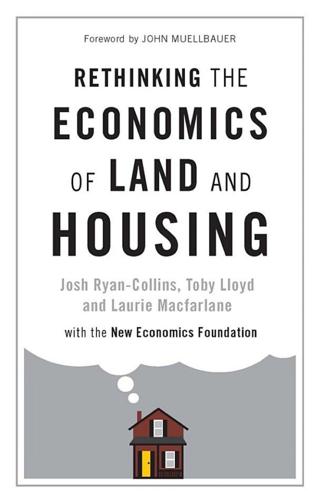
Rethinking the Economics of Land and Housing
by
Josh Ryan-Collins
,
Toby Lloyd
and
Laurie Macfarlane
Published 28 Feb 2017
As David Ricardo (and later Henry George) identified, the ability to extract economic rent is so powerful it can effectively monopolise much of the growth created in an economy, the vast bulk of which will not have been created by the landowners themselves. In its simplest conception, as the economy grows, landowners can increase the rent they charge non-owners to absorb all the additional value that their tenants (such as workers, shopkeepers and industrialists) generate. Rent-seeking seems intuitively unfair to many, but it is also inefficient. If the worker, the shopkeeper or the industrialist cannot benefit from their own efforts, but must watch it being extracted in the form of rent, why would they exert themselves or innovate? As is often noted by studies of the divergent economic health of different cities, successful urban centres around the world experience soaring land and housing costs, which ultimately threaten the very economic success of those cities, as valuable workers choose to move to less dynamic places where lower wages are more than compensated by much lower housing costs (Hsieh and Moretti, 2015).
…
Historical evidence suggests that markets in private property tend towards concentration, and to absorb a disproportionate share of growth (George, [1879] 1979; Ricardo, 1817). The result is growing wealth inequality, acute poverty for some, and inefficient capital allocation which dampens economic growth (which we explore in Chapter 6). As Joseph Stiglitz has put it, rent-seeking involves directing effort ‘toward getting a larger share of the pie rather than increasing the size of the pie’ (Stiglitz and Bilmes, 2012). 1.4 Summary of chapters The remainder of this book is laid out as follows. Chapter 2 describes the emergence of tradeable, privately owned landed property and the enclosure of previously common or feudal lands into private ownership.
…
Despite the stated policy goal of extending the opportunities of homeownership to more people, when trade-offs between different interest groups have to be made, government policy has invariably entrenched the growing divide between those who own homes and those who do not (see Chapter 5), with the result that homeownership has been in absolute decline in the UK since 2003 (DCLG, 2016). Ultimately, in its policies towards land and property, the state has legitimised what would be described in economic terms as ‘rent-seeking’ behaviour. 2.5 Hypothesis: property is liberty, property is theft It would seem that the transformation of land into private property brings both economic advantages and disadvantages. Thinkers have wrestled with this problem since the birth of political economy (the forerunner to economics) as a subject of study.
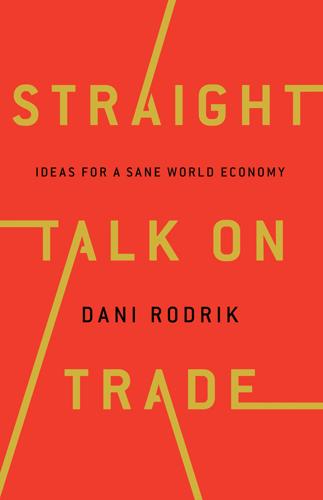
Straight Talk on Trade: Ideas for a Sane World Economy
by
Dani Rodrik
Published 8 Oct 2017
But it is more accurate to think of mercantilism as a different way to organize the relationship between the state and the economy—a vision that holds no less relevance today than it did in the eighteenth century. Mercantilist theorists such as Thomas Mun were in fact strong proponents of capitalism; they just propounded a different model than liberalism. The liberal model views the state as necessarily predatory and the private sector as inherently rent-seeking. So, it advocates a strict separation between the state and private business. Mercantilism, by contrast, offers a corporatist vision in which the state and private business are allies and cooperate in pursuit of common objectives, such as domestic economic growth or national power. The mercantilist model can be derided as state capitalism or cronyism.
…
we turned our analytical toolkit on the behavior of politicians and bureaucrats themselves. We began to examine political behavior using the same frameworks that we use for consumer and producer decisions in a market economy. Politicians became income-maximizing suppliers of policy favors; citizens became rent-seeking lobbies and special interests; and political systems became marketplaces in which votes and political influence are traded for economic benefits. Thus was born the field of rational-choice political economy and a style of theorizing that many political scientists readily emulated. The apparent payoff was that we could now explain why politicians did so many things that apparently violated economic rationality.
…
It may be used to provide aid donors with cover in case of failure, as a signal for new governments that they are the “good guys,” and by domestic lobbies to legitimize their own self-interested agenda.24 Paul DiMaggio and Walter Powell have coined the term “isomorphic mimicry” to denote the pressures that organizations face to become similar, even as they struggle to change.25 My colleague Matt Andrews documents how reform in poor countries through “isomorphic mimicry” results in the semblance of change, with little real progress achieved: a bureaucracy gets reorganized to look like those from advanced countries, but bureaucratic efficiency hardly improves.26 In a paper with Sharun Mukand, we develop a formal model of the incentives for governments to mimic other countries’ policies: implementing policies with a poor fit is costly, but so is experimentation—and an imperfectly informed electorate may be more likely to interpret domestic experimentation as an attempt at rent seeking, while being willing to accept emulation.27 What Do We Gain by Considering the Role of Ideas? I have tried to show that, for all the emphasis placed on them in political economy, vested interests play a considerably less significant role than appears at first sight. Indeed, because of their neglect of ideas, political-economy frameworks often do a poor job of accounting for policy change.
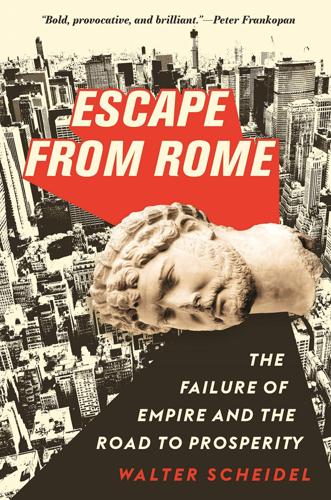
Escape From Rome: The Failure of Empire and the Road to Prosperity
by
Walter Scheidel
Published 14 Oct 2019
The mature Roman empire sustained a standing army deployed in and increasingly replenished from frontier regions and augmented by provincial auxiliaries, whereas the Han empire (the much longer-lived successor to the Qin regime) gradually came to rely on a mixture of convicts, colonists, mercenaries, and “barbarian” contingents. In both cases, territorial expansion slowed and then ceased altogether. At the same time, rent-seeking local elites increasingly constrained central authority and state control (figure 7.1).5 FIGURE 7.1 Empires of the Old World, c. 200 CE. The two empires even failed in a similar fashion. The third century CE witnessed temporary splits into three subimperial states: however, Rome experienced a more robust recovery (from the 270s to the 390s CE) than Jin China (where unity was chiefly limited to a quarter century after 265 CE).
…
It was revived when state power recovered in the north during the later stages of the Period of Disunion. And it greatly gathered strength under the Song dynasty, which had established the strongest state in China thus far. This belief system did best when the state was strongest and the empire was intact—and thus able to provide sponsorship and material and status benefits to rent-seeking elites. It was at its most stable during the second millennium CE, when China was essentially either united or, at worst, split in two. All this speaks strongly in favor of explaining the success of this particular brand of elite Confucianism’s success with reference to the fortunes of empire, rather than the other way around.
…
The large volume of legislation betrays its incremental and piecemeal character, often enacted to grant special favors to proponents. By current standards, Parliament was corrupt, often favoring legislation that targeted specific constituencies in exchange for inducements. Even so, over the course of the eighteenth century, rent-seeking gave way to considerations of national interest: instead of pleasing the highest bidder, Parliament sought to arbitrate among competing interest groups. Moreover, the sheer volume of acts underlined their relevance and Parliament’s responsiveness to interest groups from across the country. These interactions strengthened the ties between center and regions, promoting integration.96 In Julian Hoppit’s words, parliamentary intervention in the aggregate represented “a commercialization of political power leading to an intensification of market relations within society.”
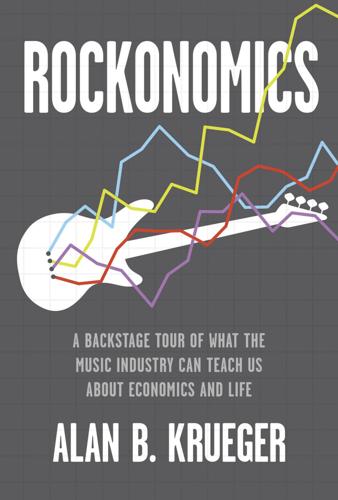
Rockonomics: A Backstage Tour of What the Music Industry Can Teach Us About Economics and Life
by
Alan B. Krueger
Published 3 Jun 2019
As the team of economists wrote, “Term extension in existing works provides no additional incentive to create new works and imposes several kinds of additional costs.” The costs are higher prices for books, cartoons, T-shirts, costumes, and other products related to Mickey Mouse or Winnie the Pooh. Not surprisingly, owners of valuable copyrights have lobbied strongly for term extensions around the world, an activity that economists refer to as “rent-seeking.” Rent-seeking is an attempt to extract greater compensation without creating additional value for society. In other words, rent-seekers expend resources to obtain a larger slice of the pie, while doing nothing to increase the size of the pie. There is little evidence that copyright term extensions produce beneficial effects.
…
Figure 9.1 shows that music radio stations pay out a much smaller share of their revenues to music rights holders than do satellite music stations or streaming services.30 This creates a profitable business model for radio stations: music radio stations pay out only 4.6 percent of their operating budget for music, although music makes up two-thirds of their on-air content. And radio station owners, who are located in nearly every congressional district, and their trade group, the National Association of Broadcasters, have successfully lobbied to avoid paying performance royalties for decades, in a successful exercise of rent-seeking. Non-interactive streaming services, such as Sirius XM and Pandora, where users cannot select a specific song to play, qualify for a compulsory license with royalty rates set by the Copyright Royalty Board (CRB). But the neutrality principle is further muddied because the two services pay different royalty rates, as they are subject to different legal standards and different CRB rulings.
…
The Clinton administration did not anticipate that Google, which would later acquire YouTube, and other Internet service providers would become so large and powerful that it would be a Herculean task to unwind the temporary protection that DMCA afforded and legislate a more reasonable balance between content creators and Internet platforms. This is another example of the power of rent-seeking. Modernizing Copyright for a Digital World Early in this chapter I warned that music copyright rules can make your head spin. The lines that divide legitimate copyright protection from excessive copyright exploitation are blurred, the laws that dictate copyright fees and licensing requirements across different platforms are uneven, and the restrictions that govern the organizations that collect and distribute music royalties are antiquated.
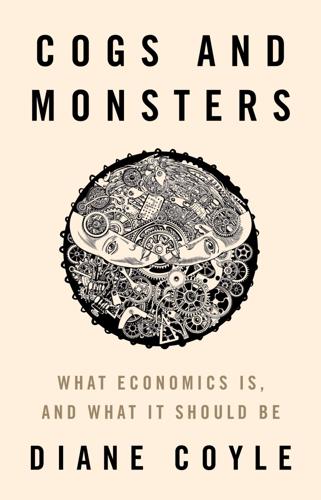
Cogs and Monsters: What Economics Is, and What It Should Be
by
Diane Coyle
Published 11 Oct 2021
Recently in development economics there has been great emphasis on the need for sound political institutions, including the rule of law but also inclusive institutions enabling successful entrepreneurship and new entry to the economic elite (Besley and Persson 2012; Acemoglu and Robinson 2012). The more recent institutional economics is also descended from the public choice school, which emphasises the role of incentives in politics and government as well as in purely ‘economic’ decisions. Mancur Olson argued that a successful economy depends on government overcoming rent-seeking behaviour by interest groups. Special interest groups with restricted or delineated membership, such as cartels, trade bodies, unions, or professions, will seek to persuade politicians to deliver policies that favour their members. These policies will rarely be the best outcome for other parts of society, but they have no incentive to organise or lobby against the policies (Olson 1982).
…
Amartya Sen forcefully demonstrated the importance of good politics for a sound economy in his work linking the presence of famine to the absence of democratic voice (Sen 1982). His account of the capabilities necessary for economic development includes political participation (Sen 2009). So economists are familiar with the importance of understanding institutions and indeed see their own participation in policy institutions as a contribution to overcoming rent-seeking behaviour. There are quite a few examples of the use of economist-centred institutions in government. In addition to independent agencies like central banks and competition authorities, another type is the expert report. Governments frequently commission an independent economist to take an impartial view of the evidence and make policy recommendations.
…
A few hundred pages of careful analysis lack political weight compared to the lobbying efforts of the special interests affected. This can equally derail economic analysis inside government, of course. Powerful lobby groups are—well, powerful. If interest group pressures make the independent report too weak a political instrument, other institutional embodiments of economic analysis as a counter to rent-seeking have been more effective. In the UK, Royal Commissions in the past typically had enough stature to enable governments to legislate against special interest groups. They are no longer used, though. In contrast, economic regulators have grown in number and are empowered to take decisions more or less independently of the political process, in the general public or consumer interest as set out in statute.
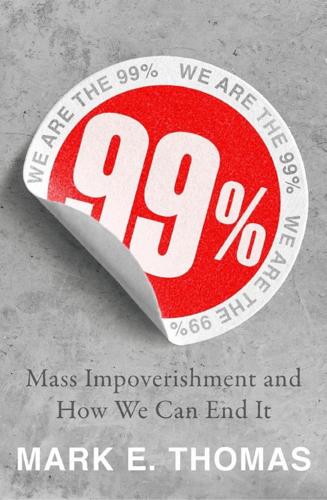
99%: Mass Impoverishment and How We Can End It
by
Mark Thomas
Published 7 Aug 2019
Over time, this constant rewriting of the rules results in an ever-greater concentration of wealth and power – it can be seen as the fundamental cause of the emergence of mass impoverishment. The process of manipulating public policy or economic conditions as a strategy for increasing profits is sometimes called ‘rent-seeking’ by economists because it enables one to appropriate the benefits of someone else’s work in the same way that a landlord can raise farm rents if farmers become more successful. There are so many different forms of rent-seeking – from exploiting tax loopholes to ensuring favourable privatizations; from creating monopolies to weakening the bargaining power of employees; from externalizing the costs of one’s business to society to capturing control of regulators; and, of course, literal rent on land or property – that it would be difficult to produce a comprehensive list.
…
There are so many different forms of rent-seeking – from exploiting tax loopholes to ensuring favourable privatizations; from creating monopolies to weakening the bargaining power of employees; from externalizing the costs of one’s business to society to capturing control of regulators; and, of course, literal rent on land or property – that it would be difficult to produce a comprehensive list. But if rent-seeking continues unchecked, so will mass impoverishment. Individuals with extreme wealth are able, if they choose, to have an impact on the dominant narrative in society disproportionate to their numbers but perhaps proportionate to their wealth, shaping public perceptions of reality in line with their own wishes and influencing the votes of thousands or even millions of their compatriots. They do not literally have more than one vote at the ballot box but they are able to influence the votes of millions.
…
The fourth proposal seems more contentious but even if enacted, it would still mean that ten firms or individuals between them could maintain absolute dominance over the principal media – and, to a large extent, over public discourse. Nevertheless, in many countries this would be a much better situation than currently exists. As Chapter Five pointed out, there are many ways of rent-seeking for those with their hands on the levers of power. Without the kind of democratic reform set out above, even if one government manages to pass effective legislation that reduces or even halts mass impoverishment, it will only be a matter of time until another government comes to power and undoes the good work.
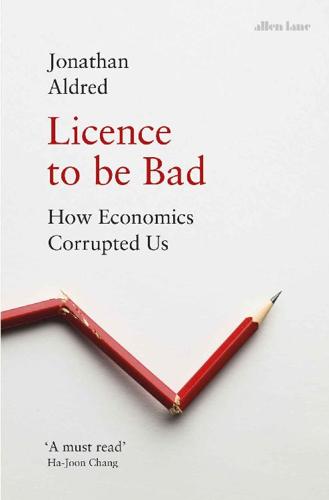
Licence to be Bad
by
Jonathan Aldred
Published 5 Jun 2019
Another problem with excessive remuneration packages in finance is that they lure too many talented people into the sector – people who would make a greater economic contribution elsewhere. On top of this waste of human resources, there are the resources wasted solely on getting excessive remuneration – merely redistributing the pie, rather than enlarging it. More rent-seeking, in other words. A rough estimate of the scale of the waste comes from the classic rent-seeking activity, lobbying. In the US in 2011 alone over $3 billion was spent on lobbying.44 Turning to the other end of the income distribution, poverty is not just a tragedy for the poor. It is an appalling waste of productive capacity in the rest of the economy.
…
Holmström concluded that ‘bringing the market inside the firm is such a misguided idea, something I failed to understand [earlier] and advocates of market-like incentives in firms seem to miss today’.26 Better late than never, although the more inventive self-enrichment efforts of the top 1 per cent have now moved elsewhere. Most of these efforts involve changing the rules underpinning economic activity in their favour. Economists call it rent-seeking: any action undertaken with the principal purpose of redistributing income, wealth or resources in your favour – in contrast to most economic activity, which in some sense creates wealth or adds value to economy or society. The only objective of rent-seekers is grabbing a bigger slice of the pie; they do nothing to enlarge the pie for everyone.
…
air travel, commercial, 63–4 Akerlof, George, 223, 237, 248 altruism, 150–51, 159, 162–4 game theory’s denial of, 31–2, 41, 42–3 misunderstanding of, 13–14, 25, 31–2, 41–3, 112, 178–9 as not depleted through use, 14 seen as disguised selfishness, 11–12, 25, 112, 178–9 Amazon, 155, 178, 208 American Economic Association, 257, 258 Angrist, Joshua, 249 antitrust regulation, 56–8 Apple, 222–3 Aristotle, 14 Arrow, Ken awarded Nobel Prize, 71 and blood donations, 14, 163 at City College, New York, 74–5, 91 collective preference, 73–4, 75–7, 78–82 and democracy, 72–4, 75–7, 78–83, 95, 97 framework presented as scientific, 81–2, 124–5 and free marketeers, 78–9, 82 Impossibility Theorem, 72, 73–4, 75–7, 78–83, 89, 97 and mathematics, 71, 72, 73–5, 76–7, 82–3, 97 and Mont Pèlerin Society, 9 preference satisfaction’, 80–82, 97, 124–5, 129 and Ramsey, 189 at RAND, 70–71, 72–3, 74, 75–6, 77, 78 top-secret-level security clearance, 71–2 ‘A Cautious Case for Socialism’ (1978), 83 ‘On the Optimal Use of Winds for Flight Planning’, 71 Social Choice and Individual Values (1951), 71, 72, 75–7, 78–80, 97 artificial intelligence, 214, 242 Atlas Economic Research Foundation, 7–8 Austen, Jane, 134 austerity policies, recent, 258 Axelrod, Robert, 41 Babbage, Charles, 222 baby-market idea, 61, 138, 145, 146 Bachelier, Louis, 193 Baird, Douglas, 58–9 bandwagon effect, 110 Bank of England, 96, 120, 185, 211–12, 258 bankers excuse/permission to be greedy, 1–2, 204, 238 and Keynesian economics, 5 performance as wholly relative, 204 quantification and recklessness, 213 rigged pay-for-performance contracts, 229–30, 238 role in 2007 crisis, 1–2, 57, 182, 192 as serial offenders over uncertainty, 201 see also financial markets Barro, Josh, 63, 64 Bateson, Gregory, 28 battery-chicken farming, 7 Baumol, William, 90–92, 93, 94 BBC, 48, 98 Beaverbrook, Lord, 157 Becker, Gary amoral understanding of crime, 137, 152 and citizenship rights, 146 and Coase, 69 Freakonomics followers of, 130, 134, 148–9, 156 and Friedman, 126, 131 hidden assumptions of, 130–31, 133–4 human capital idea, 149 and individualism, 134, 135–8 and maximization, 129–31, 133–4, 147 as outsider, 50 and Posner, 56 rejects need for realistic assumptions, 132, 133–4, 148 and sale of body parts, 147–8 sees poor health as just a preference, 135, 136, 140 sees values as mere tastes, 136–8, 140 theories as deeply controversial, 127–9, 130 theories as slippery, 129, 133–4 and ‘universality’ of economics, 125, 126–31, 133–4, 135–8, 147–8 version of ‘rational’ behaviour, 128–9, 135, 140, 151 De Gustibus Non Est Disputandum (with Stigler, 1977), 135–6 The Economic Approach to Human Behavior (1976), 130 The Economics of Discrimination (1957), 126–7 A Treatise on the Family (1981), 127–8, 130–31, 133 behaviourism, 154–8, 237 behavioural economics context and culture, 175–6 framing effects, 170–71, 259 and incentives, 160, 171, 175, 176–7 methods from psychology, 170–71 and Nudge, 171–2 and orthodox economics, 173, 174–5, 247, 255 and physics envy, 175–6 problems with, 173–5, 250–51 ‘self-command’ strategies, 140 theory of irrationality, 12, 171, 250–51 and welfare maximization, 149 Bell, Alexander Graham, 222 bell curve distribution, 191–4, 195, 196, 201, 203–4, 218–19, 257 Bentham, Jeremy, 102 Berlin, Isiah, 166, 167–8 Beveridge Report (1942), 4 Bezos, Jeff, 208 Black, Duncan, 77–8, 95 Blackstone (private equity firm), 235 black swans, 192, 194, 201, 203–4 Blinder, Alan, The Economics of Brushing Teeth (1974), 136 blood donors, 14, 112, 162–3, 164, 169, 176 Borel, Émile, 185* Brennan, William, 56 broadcasting, 48–50, 98 spectrum auctions, 39–40, 47, 49–50 Buchanan, James McGill, 8, 83–5, 87–8, 89, 95, 115 Buffett, Warren, 229, 230, 236 Calcraft, John, 120, 121 Cameron, David, 172 Caplan, Brian, The Myth of the Rational Voter, 245–6 carbon markets, 47, 65–7 Carlson, Jack, 141–2 Carroll, Lewis (Charles Lutwidge Dodgson), 72, 77 cartels and monopolies, 101, 102, 103–4 Cheney, Dick, 232–3 Chicago, University of, 2, 4, 34, 40, 49–51 antitrust ideas, 56–8 Buchanan at, 84 and Coase, 49–52, 53–4, 55, 56–7, 61, 68–9, 132 Friedman’s dominance, 50, 132 law and economics movement, 40, 55, 56–63, 64–7 revolution of 1968 at, 56, 58–9 zero-transaction-costs assumption, 51–2, 68–9 Chicago law school, 55, 56, 58–9 child labour, 124, 146 China, 65 City College, New York, 74–5, 91 climate change average temperature rises, 205–6, 207 and carbon markets, 47, 65–6 ‘cashing in’ on carbon markets, 67 Coasean worldview on pollution, 65–7, 68 denialists, 8 ‘discount rate’ on future costs, 208–9, 212 discrimination against future generations, 208–9 and free-riding theory, 2, 99, 113–17, 120 Intergovernmental Panel on, 207 measurement in numerical terms, 206–11, 213 and precautionary principle, 211–12 premature deaths due to, 207–9 and Prisoner’s Dilemma, 27 Stern Review, 206, 209–10 threat to economic growth, 209 Coase, Ronald argument given status of theorem, 51–2, 67 awarded Nobel Prize, 52 background of, 47–8 and Chicago School, 49–52, 53–4, 56–7, 61, 68–9, 132 and created markets, 47, 65–7 dismissal of ‘blackboard economics’, 48, 54, 64, 67–9 on Duncan Black, 77 evening at Director’s house (early 1960), 49–51, 132 fundamental misunderstanding of work of, 51, 52–3, 67–9 hypothetical world invoked by, 50–51, 52, 54–5, 62, 68 as Illinois resident, 46–7 and Mont Pèlerin Society, 8 and public-sector monopolies, 48–51 and transaction costs, 51–3, 54–5, 61, 62, 63–4, 68 ‘The Nature of the Firm’ (1932 paper), 48 The Problem of Social Cost’ (1960 paper), 47, 48, 50–51, 52, 54–5, 59 cognitive dissonance, 113–14 Cold War, 18–19, 20, 21–2, 24, 27, 181 Cuban Missile Crisis (1962), 33–4, 140 and Ellsberg, 184, 197, 198, 200 and game theory, 18, 20, 21–2, 24, 27, 33–4, 35, 70, 73, 198 and Impossibility Theorem, 75–6 RAND and military strategy, 18, 20, 21–2, 24, 27, 33–4, 70, 73, 75–6, 141, 200, 213 and Russell’s Chicken, 33 and Schelling, 138, 139–40 Washington–Moscow hotline installed, 139–40 collective preference and Ken Arrow, 73–4, 75–7, 78–82 Black’s median voter theorem, 77, 95–6 Sen’s mathematical framework, 80–81 communism, 82, 84, 101, 104, 237 Compass Lexecon, 58, 68 Condorcet Paradox, 76, 77 conspiracy theories, 3, 8, 9 cooperation cartels, monopolies, price-fixing, 101, 102, 103–4 and decision-making processes, 108–10 and free-riding theory, 2, 101, 102, 103–10 office teamwork, 109–10, 112 older perspective on, 100–102, 108, 111, 122 and Scandinavian countries, 103 view of in game theory, 21–2, 23, 25–32, 36–8, 41–3 corporate culture and antitrust regulation, 57–8 changes due to Friedman, 2, 152 Chicago approach to regulation, 40 and climate change, 113, 114, 115 executive pay, 215–16, 219, 224, 228–30, 234, 238 Jensen and Murphy’s article, 229 ‘optimal contracting’/pay-for-performance, 228–30, 238 predatory pricing, 57 and tax evasion/avoidance, 105–6 cost disease, 90–92, 93, 94 Cowles Commission in Chicago, 78 CP/M (Control Program for Microcomputers), 222 criminal responsibility, 111, 137, 152 Cuban Missile Crisis (1962), 33–4, 140 Damasio, Antonio, 14 data geeks, 248–50 ‘dead peasants insurance’, 124 decision-making processes, 108–10, 122, 170–71 ‘anchoring effect’, 212 authority figure–autonomy contradiction, 180 avoidance of pure uncertainty, 198–9 axioms (abstract mathematical assumptions), 198 Ellsberg Paradox, 184, 199–200 Ellsberg’s experiment (1961), 182–4, 187, 197, 198–200, 205 Linda Problem, 202–3 orthodox decision theory, 183–4, 185–6, 189–91, 193–4, 198–200, 201–2, 203–5, 211, 212–14 and the Savage orthodoxy, 190–91, 197, 198–200, 203 scenario planning as crucial, 251 Von Neumann’s theory of decision-making, 189, 190, 203 see also probability; risk and uncertainty democracy and Ken Arrow, 72–4, 75–7, 78–83, 95, 97 Black’s median voter theorem, 77, 95–6 and crises of the 1970s, 85–6 and economic imperialism, 145–7 equal citizenship principle at heart of, 145–6, 151 free-riding view of voting, 99, 110, 112, 115–16, 120–21 marketing by political parties, 95–6 modern cynicism about politics, 94–7 paradox of voter turnout, 88–9, 95–6, 115–16 paradox of voting, 75–7 politicians’ support for depoliticization, 96–7 post-war scepticism about, 78–9 and public choice theory, 85–6, 95–7 replacing of with markets, 79 Sen’s mathematical framework, 80–81 voter turnout, 88–9, 95–6, 115–16, 120–21 see also voting systems Dennison, Stanley, 13 dentistry, 258–9, 261 Depression (1930s), 3 digital technology, 68, 214, 222–3 data revolution, 247–50 and rising inequality, 215, 220, 242 Director, Aaron, 4–5, 49–51, 132 Disney World, 123 Dodd–Frank Act, 256 Dodgson, Charles Lutwidge (Lewis Carroll), 72, 77 dot.com bubble, 192, 201 Douglas Aircraft Corporation, 18 Downs, Anthony, An Economic Theory of Democracy (1957), 86, 89, 95 Dr Strangelove (Kubrick film, 1964), 19, 35, 139 DreamTours Florida, 123 Drucker, Peter, 153 Dulles, John Foster, 20 Dundee School of Economics, 48, 77–8 Dürrenmatt, Friedrich, The Visit of the Old Lady, 166 earthquakes, 194–5 Econometrica (journal), 77–8 economic imperialism arrogance of, 246–7 auctioning of university places, 124, 149–50 continuing damage wrought by, 151–2 and democracy, 145–7 emerges into the limelight, 130 Freakonomics, followers of, 130, 134, 148–9, 156 and inequality, 145–7, 148, 151, 207 markets in citizenship duties, 146 origins of term, 125 price as measure of value, 149, 150, 151 purchase of immigration rights, 125, 146 and sale of body parts, 123, 124, 145, 147–8 sidelining of moral questions, 125–9, 135–8, 141–5, 146–7, 148–9, 151–2, 207 value of human life (‘statistical lives’), 141–5, 207 welfare maximization, 124–5, 129–31, 133–4, 146–7, 148–9 see also Becker, Gary economic theory Arrow establishes benchmark for, 71 Baumol’s cost disease, 90–92, 93, 94 Coase Theorem, 45–7, 48–55, 56–7, 61, 63–6 and data revolution, 247–50 exclusion of by data geeks, 248–50 and financial markets, 9, 12–13, 182, 253 as focus of economics courses, 260 Kahneman and Tversky’s theory of irrationality, 12, 171, 250–51 of labour, 237 marginal productivity theory, 223–4, 228 Pareto efficiency, 217–18, 256* perfect competition, 103, 193–4 profit-maximizing firms, 228–9 rent-seeking, 230, 238 theory of motivation, 157–8, 164, 166–7, 168–70, 178–9 see also game theory; homo economicus; public choice theory; social choice theory economics accidental economists, 47–8 and Arrow’s framework, 78–9, 82 causes of growth, 223, 239 created markets, 47, 65–7 crises of the 1970s, 85–6 digital technology, 68, 214 efficiency as fundamental, 63, 64–5, 141, 153, 155, 193–4, 201, 211, 217–18, 255 empirical research as still rare, 247–8 extension into non-economic aspects of life, 40, 54–60, 65, 123–31, 132–4, 135–6, 145–50 gulf between reality and theory, 10–13, 31–2, 41–3, 51–3, 64–9, 86–9, 133, 136, 144–5, 228–30, 250–53, 260–61 history of, 260 lack of objective ‘facts’, 253 modern debate on, 9 and Olson’s analysis, 104 our love–hate relationship with, 3, 245 as partially self-fulfilling, 12–13, 14, 159, 253 percentage of GDP impact of climate change, 206–11, 213 positional goods, 239–41 Posner’s wealth-maximization principle, 57–63, 64–7, 137 predatory pricing, 57 principles for new relationship with, 251–61 privatization, 50, 54, 88, 93–4 rise of game theory, 40–41 Smith’s enlightened self-interest, 11 value of human life (‘statistical lives’), 141–5, 207 vocational role of, 260 see also behavioural economics; free-market economics economics, aims/pretensions to be science arrogance of, 205, 245–7, 258 Arrow’s framework presented as scientific, 72, 81–2, 124–5 attitude to value judgements, 10, 60–61, 64–9, 112, 136–8, 173–4, 204–5, 218, 247 claims of game theory, 21, 24–6, 28–9, 32, 34, 35, 38, 41 and data revolution, 247–50 desire for neutral science akin to physics, 9–10, 20–21, 34–5, 41, 116, 125, 132–3, 151, 175–6, 187–90, 212, 217–18, 246–56 desire for science of social control, 153, 154, 155, 164, 167 Friedman’s ‘The Methodology of Positive Economics’, 132–3 hidden political/ethical agendas, 10, 213, 253, 255–8 measurement of risk in numerical terms, 181–4, 187, 189, 190–94, 196–7, 201–2, 203–5, 212–13 natural experiments, 248–50 Pareto improvements, 217–18 and physics envy, 9, 20–21, 41, 116, 175–6, 212, 247 and public choice theorists, 88 quantification of all risks and values, 201–2, 203, 212–13 real world as problem for, 10–13, 31–2, 42–3, 51–3, 64–9, 86–9, 133, 136, 144–5, 228–30, 250–53, 260–61 ‘some number is better than no number’ mantra, 212–13 uncertainty as obstacle to, 190–91, 212–13 and use of mathematics, 9–10, 26, 72, 247, 248, 255, 259 use of term ‘rational’, 12 Von Neumann and Morgenstern’s grand project, 20–21, 24–5, 26, 35, 125, 151, 189 and wealth-maximization approach, 58, 60 economists advice to former Soviet Bloc nations, 257 conflicts of interest, 256–7, 258 data geeks, 248–50 economics curriculum reform needed, 259–60 errors and misjudgements, 13–14, 16, 132–3, 144–5, 256*, 257–8, 260–61 failure to explain ideas, 254–5 insularity of, 246–7 Keynes’ dentistry comparison, 258–9, 261 lack of ethics codes, 257–8 misunderstanding of altruism, 13–14, 25, 31–2, 41–3, 112, 178–9 need to show more humility, 258–9, 260–61 as not separate from economy, 251–3 and ordinary people, 245–6, 254–5, 258, 261 self-image as unsentimental and honest, 10 sneering descriptions of virtuous behaviour, 112 stating of the obvious by, 134, 259 education auctioning of university places, 124, 149–50 Baumol’s cost disease, 91, 92, 93, 94 incentivization as pervasive, 156, 169 value of, 150, 169, 170 ‘efficient market hypothesis’, 193–4, 201, 255 Einstein, Albert, 17, 22, 33, 213 Eisenhower, Dwight D., 19, 20, 231 Ellsberg, Daniel, 182–4, 187, 197–8 Ellsberg Paradox, 184, 199–200 and the ‘Pentagon Papers’, 200 probability experiment (1961), 182–4, 187, 197, 198–200 ‘Risk, Ambiguity and the Savage Axioms’ (paper, 1961), 198–9, 200 Engelbart, Douglas, 222–3 Engels, Friedrich, 223 English, Bill, 222–3 Enlightenment thinking, 11, 185 Epstein, Richard, 127 ethics and morality and autonomy, 164, 165–6, 168, 169–70, 180 bad behaviour redefined as rational, 12 and blame for accidents, 55, 60–61 and Coase Theorem, 46–7, 54–5, 56–7, 61, 63–6 Coasean worldview on pollution, 66–7, 68 as conditioned and limited by economics, 3, 10, 15, 43, 55, 60–61, 64–5, 179, 204–5, 218, 247 cooperative behaviour in game theory, 29, 30–32 core principles of current economic orthodoxy, 253 distinction between values and tastes, 136–8 economists’ language on virtuous behaviour, 112 inequality as moral issue, 242–3 influence of recent economic ideas, 1–3, 15–16 Keynes on economics as moral science, 252–3 law and economics movement, 40, 55, 56–63, 64–7 moral disengagement, 162, 163, 164, 166 morally wrong/corrupting incentives, 168–9 and Nash program, 25 Nudge economists, 173–4, 251 Posner’s wealth-maximization principle, 57–63, 64–7, 137 Puzzle of the Harmless Torturers, 118–19 Ramsey Rule on discounting, 208–9, 212 sale of body parts, 123, 124, 145, 147–8 sidelined by economic imperialism, 125–9, 135–8, 141–5, 146–7, 148–9, 151–2, 207 small contributions as important, 110, 114–15, 122 Smith’s enlightened self-interest, 11 value of human life (‘statistical lives’), 141–5, 207 see also altruism; free-riding behaviour European Commission, 96 Facebook UK, 99 fairness, 1, 149, 218, 228, 253 and Coase, 54, 55 and free-riding behaviour, 107 and game theory, 43 and incentives, 177, 179 and lucky geniuses, 221–3 and Posner’s wealth-maximization principle, 60, 61, 62 see also inequality family life, 127–8, 130–31, 133, 156 famine relief, 99, 114–15 Farmer, Roger, 259 Federal Communications Commission (FCC), 48–9 Ferdinand, Archduke Franz, 185 financial crisis, global (2007–10) Becker on, 128–9 and bell curve thinking, 192, 193–4, 196, 257 ‘blame the regulators’ argument, 1–2 and financial economists, 9, 88, 260–61 persuasive power of extreme numbers, 181–2 and Posner’s wealth-maximization principle, 57 underlying maths of, 194, 195–6 financial markets Bachelier’s theory of speculation, 193 bell curve thinking, 192, 193–4, 195, 196–7, 201, 203–4, 257 benchmarking against the market, 204 Black Monday (1987), 192 deregulation of US banks, 194 derivatives, 253 dot.com bubble, 192, 201 East Asian crisis (1997), 192 and economic theory, 9, 12–13, 182, 253 economists’ ignorance of, 260–61 and First World War, 185 and fractals (scale-invariance), 194, 195–6, 201 orthodox decision theory, 190–91, 193–4, 201 persuasive power of extreme numbers, 181–2, 191, 192 and rent-seekers, 230, 238 rigged pay-for-performance contracts, 229–30, 238 First World War, 185, 210, 211–12 Fisher, Antony, 6–8 Forster, E.
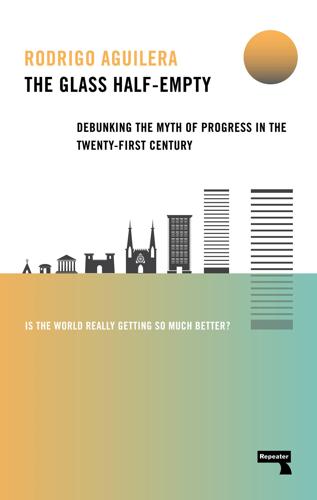
The Glass Half-Empty: Debunking the Myth of Progress in the Twenty-First Century
by
Rodrigo Aguilera
Published 10 Mar 2020
But many critics of Olsen noted that while The Rise and Decline of Nations was being published, the US and UK were undergoing profound political and economic transformations under Reagan and Thatcher that would lift them from their 1970s stupor, even if the gains would not be distributed evenly across society. On the one hand, this would appear to confirm one of Olson’s original beliefs: that only a pure laissez-faire state, or an autocracy, could prevent rent-seeking, and this was as close to laissez-faire as any countries have come. But on the other hand, the rise in economic inequality that began with the Reagan and Thatcher revolutions also suggests that rent-seeking behavior by distributional coalitions simply got worse once one group of these coalitions, the unions, were neutered. This meant that there was little challenge to the deregulatory and liberalizing efforts of industry lobbies.
…
And in others like Russia, kleptocracy is self-sustaining when you a mutually reinforcing interest between economic elites and rulers in keeping it going.19 But in liberal democracies, oligarchy is much more insidious. The facade of democracy and rule of law, after all, must be preserved. Even so, it is not enough to consider a society captured to a greater or lesser degree by rent-seeking interest groups to be fully oligarchic insofar as political parties offer reasonable alternatives to each other; one of these alternatives being at the very least the promise of finding counterweights to these interest groups’ political influence. This would typically be the duty of left-of-center political parties, most of which notionally exist to represent the interests of the “have-nots”.
…
Olson’s thesis (largely adapted and expanded from an earlier book, The Logic of Collective Action) was that democracies had heterogenous interests which in turn lead to the formation of collective action groups to protect those interests.22 Many of these groups, which he called encompassing coalitions, would be broad and potentially lead to improved economic outcomes for the whole but would suffer from being too large and difficult to organize. Their size would also make the marginal benefits to each member quite small. In contrast, rent-seeking distributional coalitions would be smaller and better organized, but would lobby entirely on their own behalf to the detriment of society; for example, by convincing governments to tolerate uncompetitive economic practices like cartelization and protectionism. This would provide disproportionate marginal benefits to their smaller number of members.
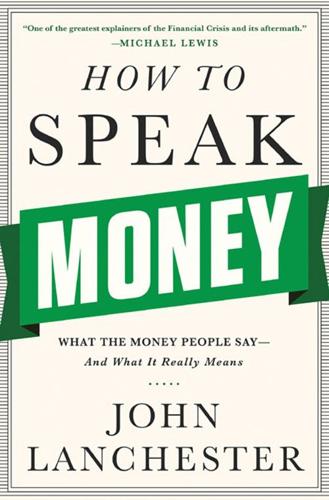
How to Speak Money: What the Money People Say--And What It Really Means
by
John Lanchester
Published 5 Oct 2014
In the opinion of some observers, one of the reasons why the current growing gap between the rich and the poor is especially dangerous is that it is being accompanied by a growth in “rent seeking” behavior. A typical feature of such behavior is the attempt to take a bigger piece of the existing pie, rather than to make the pie bigger. A useful definition of rent seeking was given by Matthew Taylor of the RSA: “using market position to make money without adding value.” When the rich lobby for tax breaks at a time of no economic growth, they are indulging in rent seeking. All corruption is a form of rent seeking. repo A repurchase agreement, in which A sells B something, while simultaneously promising to buy it back at a specified future date.
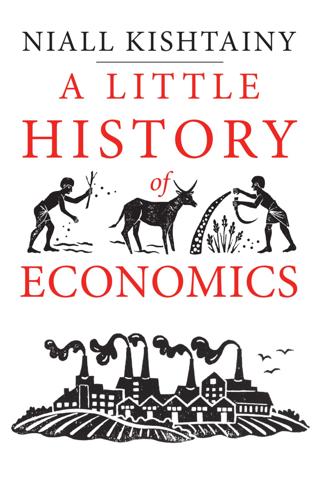
A Little History of Economics
by
Niall Kishtainy
Published 15 Jan 2017
For example, if the government puts a tax on foreign cars then domestic car producers, protected from overseas competition, make big profits. By giving privileges to special groups of people, politicians hope to gain political support, perhaps even money. The prospect of earning extra profits for doing very little encourages ‘rent-seeking’. Businesses spend money trying to persuade the government to give them privileges. They might take government officials out for expensive lunches to try to get them to do what they want. They might set up an organisation to help their case, the American Association of Umbrella Manufacturers, perhaps.
…
They might set up an organisation to help their case, the American Association of Umbrella Manufacturers, perhaps. Organisations like this are often defended on the grounds that in a healthy democracy they help to air the views of varied groups of people. In public choice theory, they’re rent-seekers whose activities use up resources that could have been employed more usefully in a different way. Rent-seeking hurts consumers because if the markets for cars and umbrellas are protected from foreign competition then people have fewer cars and umbrellas to choose from. The problem is that consumers, being so many scattered people, would never find it individually worth their while to spend time organising their own group to prevent protection.
…
(i), (ii) Kerala (India) (i) Keynes, John Maynard (i), (ii), (iii), (iv), (v), (vi) Keynesian theory (i), (ii), (iii) Klemperer, Paul (i) Krugman, Paul (i), (ii) Kydland, Finn (i), (ii) labour (i) in ancient Greece (i) and market clearing (i) women as unpaid (i) labour theory of value (i), (ii) laissez-faire (i) landowners (i), (ii), (iii) Lange, Oskar (i) law of demand (i), (ii) leakage of spending (i) Lehman Brothers (i) leisure class (i) leisured, women as (i) Lenin, Vladimir Ilyich (i), (ii) Lerner, Abba (i) Lewis, Arthur (i) Lincoln, Abraham (i) List, Friedrich (i) loss aversion (i) Lucas, Robert (i), (ii) MacKay, Charles (i) Macmillan, Harold (i) macro/microeconomics (i) Malaysia, and speculators (i) Malthus, Thomas (i), (ii), (iii) Malynes, Gerard de (i), (ii) manufacturing (i), (ii) division of labour (i) see also Industrial Revolution margin (i) marginal costs (i), (ii) marginal principle (i), (ii), (iii) marginal revenue (i) marginal utility (i), (ii) market, the (i) market clearing (i) market design (i) market failure (i), (ii), (iii), (iv) ‘Market for Lemons, The’ (Akerlof) (i) market power (i) markets, currency (i), (ii) Marshall, Alfred (i), (ii), (iii), (iv), (v) Marx, Karl (i), (ii), (iii), (iv), (v), (vi), (vii) Marxism (i) mathematics (i), (ii), (iii) means of production (i) mercantilism (i), (ii) Mesopotamia (i) Mexico, pegged currency (i) micro/macroeconomics (i) Microsoft (i) Midas fallacy (i) minimum wage (i) Minsky, Hyman (i) Minsky moment (i), (ii) Mirabeau, Marquis de (i), (ii), (iii) Mises, Ludwig von (i), (ii), (iii), (iv) mixed economies (i), (ii) Mobutu Sese Seko (i) model villages (i) models (economic) (i), (ii), (iii), (iv) modern and traditional economies (i), (ii) monetarism (i) monetary policy (i), (ii) money (i), (ii), (iii), (iv), (v), (vi) see also coins; currency money illusion (i) money wages (i) moneylending see usury monopolies (i), (ii) monopolistic competition (i), (ii) monopoly, theory of (i) monopoly capitalism (i), (ii), (iii) monopsony (i) moral hazard (i), (ii) multiplier (i) Mun, Thomas (i), (ii), (iii) Muth, John (i) Nash, John (i), (ii) Nash equilibrium (i) national income (i), (ii), (iii), (iv), (v) National System of Political Economy (List) (i) Nelson, Julie (i) neoclassical economics (i) net product (i) Neumann, John von (i) New Christianity, The (Saint-Simon) (i) new classical economics (i) New Harmony (Indiana) (i) New Lanark (Scotland) (i) Nkrumah, Kwame (i), (ii) non-rival good (i) Nordhaus, William (i), (ii) normative economics (i), (ii) Obstfeld, Maurice (i) Occupy movement (i) oligopolies (i) opportunity cost (i), (ii) organ transplant (i) output per person (i) Owen, Robert (i) paper money (i), (ii) Pareto, Vilfredo (i) pareto efficiency (i), (ii) pareto improvement (i) Park Chung-hee (i) partial equilibrium (i) pegged exchange rate (i) perfect competition (i), (ii), (iii), (iv), (v) perfect information (i) periphery (i) phalansteries (i) Phillips, Bill (i) Phillips curve (i), (ii), (iii), (iv), (v), (vi), (vii) physiocracy (i), (ii) Pigou, Arthur Cecil (i), (ii), (iii) Piketty, Thomas (i), (ii), (iii) Plato (i), (ii), (iii) policy discretion (i) Ponzi, Charles (i) Ponzi finance (i) population and food supply (i), (ii), (iii) of women (i) positive economics (i) poverty (i), (ii), (iii), (iv), (v) in Cuba (i) Sen on (i) and utopian thinkers (i) Prebisch, Raúl (i) predicting (i) Prescott, Edward (i), (ii) price wars (i), (ii) primary products (i) prisoners’ dilemma (i) private costs and benefits (i) privatisation (i) productivity (i), (ii), (iii) profit (i), (ii), (iii), (iv) and capitalism (i), (ii) proletariat (i), (ii) property (private) (i), (ii), (iii), (iv), (v) and communism (i), (ii), (iii), (iv) protection (i), (ii), (iii) provisioning (i) public choice theory (i) public goods (i) quantity theory of money (i) Quesnay, François (i) Quincey, Thomas de (i), (ii) racism (i) Rand, Ayn (i) RAND Corporation (i), (ii) rate of return (i), (ii) rational economic man (i), (ii), (iii), (iv), (v) rational expectations (i), (ii), (iii), (iv), (v) real wages (i), (ii), (iii) recession (i) and governments (i), (ii), (iii) Great Recession (i) Keynes on (i), (ii) Mexican (i) redistribution of wealth (i) reference points (i) relative poverty (i) rent on land (i), (ii), (iii) rents/rent-seeking (i) resources (i), (ii) revolution (i), (ii), (iii), (iv) Cuban (i) French (i), (ii), (iii), (iv) Russian (i), (ii) Ricardo, David (i), (ii), (iii) risk aversion (i) Road to Serfdom, The (Hayek) (i) robber barons (i) Robbins, Lionel (i) Robinson, Joan (i) Roman Empire (i) Romer, Paul (i) Rosenstein-Rodan, Paul (i) Roth, Alvin (i), (ii) rule by nature (i) rules of the game (i) Sachs, Jeffrey (i) Saint-Simon, Henri de (i) Samuelson, Paul (i), (ii) savings (i), (ii) and Say’s Law (i) Say’s Law (i) scarcity (i), (ii), (iii), (iv), (v), (vi) Schumpeter, Joseph (i), (ii) sealed bid auction (i) second price auction (i) Second World War (i) securitisation (i) self-fulfilling crises (i) self-interest (i) Sen, Amartya (i), (ii) missing women (i), (ii), (iii) services (i) shading bids (i), (ii) shares (i), (ii), (iii), (iv), (v), (vi) see also stock market Shiller, Robert (i), (ii) signalling (i) in auctions (i) Smith, Adam (i), (ii), (iii), (iv), (v) social costs and benefits (i) Social Insurance and Allied Services (Beveridge) (i) social security (i), (ii) socialism (i), (ii), (iii), (iv), (v) socialist commonwealth (i) Socrates (i) Solow, Robert (i) Soros, George (i), (ii), (iii) South Africa, war with Britain (i) South Korea, and the big push (i) Soviet Union and America (i) and communism (i), (ii) speculation (i) speculative lending (i) Spence, Michael (i) spending government (fiscal policy) (i), (ii), (iii), (iv), (v), (vi), (vii) and recessions (i), (ii) and Say’s Law (i) see also investment stagflation (i), (ii) Stalin, Joseph (i) standard economics (i), (ii), (iii), (iv) Standard Oil (i) Stiglitz, Joseph (i) stock (i) stock market (i), (ii), (iii), (iv), (v) stockbrokers (i) Strassmann, Diana (i), (ii) strategic interaction (i), (ii) strikes (i) subprime loans (i) subsidies (i), (ii) subsistence (i) sumptuary laws (i) supply curve (i) supply and demand (i), (ii), (iii), (iv) and currencies (i) and equilibrium (i), (ii) in recession (i), (ii), (iii) supply-side economics (i) surplus value (i), (ii) Swan, Trevor (i) tariff (i) taxes/taxation (i) and budget deficit (i) carbon (i) and carbon emissions (i) and France (i) and public goods (i) redistribution of wealth (i) and rent-seeking (i) technology as endogenous/exogenous (i) and growth (i) and living standards (i) terms of trade (i) Thailand (i) Thaler, Richard (i) theory (i) Theory of the Leisure Class, The (Veblen) (i) Theory of Monopolistic Competition (Chamberlain) (i) Thompson, William Hale ‘Big Bill’ (i) threat (i) time inconsistency (i), (ii) time intensity (i) Tocqueville, Alexis de (i) totalitarianism (i) trade (i), (ii), (iii) and dependency theory (i) free (i), (ii), (iii) trading permit, carbon (i) traditional and modern economies (i), (ii) transplant, organ (i) Treatise of the Canker of England’s Common Wealth, A (Malynes) (i) Tversky, Amos (i), (ii) underdeveloped countries (i) unemployment in Britain (i) and the government (i) and the Great Depression (i) and information economics (i) and Keynes (i) and market clearing (i) and recession (i) unions (i), (ii) United States of America and free trade (i) and growth of government (i) industrialisation (i) and Latin America (i) Microsoft (i) recession (i), (ii) and the Soviet Union (i) and Standard Oil (i) stock market (i) wealth in (i) women in the labour force (i) unpaid labour, and women (i) usury (i), (ii), (iii) utility (i), (ii), (iii), (iv) utopian thinkers (i), (ii) Vanderbilt, Cornelius (i), (ii) Veblen, Thorstein (i), (ii), (iii) velocity of circulation (i), (ii) Vickrey, William (i) wage, minimum (i) Walras, Léon (i) Waring, Marilyn (i) wealth (i) and Aristotle (i), (ii) and Christianity (i) Piketty on (i) and Plato (i) Smith on (i) Wealth of Nations, The (Smith) (i), (ii) welfare benefits (i), (ii), (iii), (iv) welfare economics (i) Who Pays for the Kids?
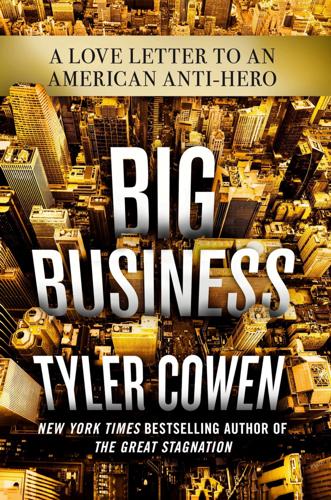
Big Business: A Love Letter to an American Anti-Hero
by
Tyler Cowen
Published 8 Apr 2019
Or are many of America’s top CEOs somehow ripping off their own companies? What we’ll see is actually a pretty positive picture about America’s corporate leaders. In particular, CEO pay mostly—not entirely—reflects the productive contributions of talented individuals to very important companies, rather than corruption, rent-seeking, and personal enrichment. The best model for understanding the growth of CEO pay is that of limited CEO talent in a world where business opportunities for the top firms are growing rapidly. The scarcity of top-rate candidates sometimes causes corporate boards to make or stick with hiring mistakes, but overall the process has worked pretty well in allocating talent to important jobs and keeping that talent motivated.
…
By 2006, however, that premium rose to about 50 percent, and for top management it was about 250 percent. About half of that can be attributed to risk bearing, and another fifth follows from the greater size of financial firms. The rest is a mix of special talents for which educational degrees do not serve as a good proxy (ambition and drive?) and unproductive rent-seeking—in what proportions, we do not know.23 One likely possibility is that the highest-earning firms enjoy some economies of scale, due to the network effects of bringing together so many smart people. Those firms earn much more, and in turn they share some of those earnings by paying their employees more, most of all top management.
…
That could become a wasteful drain of resources from the rest of the economy, as too much talent would pursue monopoly profits rather than useful production for consumers. But such clusters of financial talent are difficult to build, just as few local banks try to take on Goldman Sachs and few global cities try to rival New York and London as financial centers. And so the rent-seeking costs and the talent drain costs of the financial sector are much less than the size of the large rewards at the top might indicate. Furthermore, the best direct evidence we have suggests that, as things stand right now, finance is not draining away America’s best talent from science and engineering.
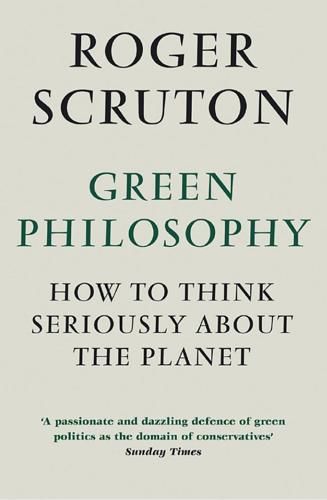
Green Philosophy: How to Think Seriously About the Planet
by
Roger Scruton
Published 30 Apr 2014
But it does mean that, in negotiating such a treaty, we are not dealing with a normal corporate agent, nor are we aiming at a change in the law that governs it. We are dealing with a massively powerful cartel of wealthy people, who control the law that purports to control them, and who cannot tolerate any erosion of their privileged status. Power is no longer centralized as it was under Mao Zedong; but the government must buy support from the rent-seeking elites in industry and local administration, and can do nothing that will undermine their privileges.290 Even if something of the Confucian spirit has returned, therefore, it is impossible to assume that the elites will respond to it. The point is developed in different terms by Douglass C. North, John Joseph Wallis and Barry R.
…
Such economies are often caught in a vicious circle of population growth, environmental degradation and natural resource depletion that ultimately can destabilize the social and political order.’ Arab Human Development Report 2009: Challenges to Human Security in the Arab Countries, UNDP Regional Bureau for Arab States, p. 118, www.arab-hdr.org/publications/other/ahdr/ahdr2009e.pdf. 16 On the theory of ‘rent seeking’, see Chapters 3 and 4. 17 Garrett Hardin, ‘The Tragedy of the Commons’, Science, 162.1, 1968, pp. 243 –8. 18 Thomas Hobbes, Leviathan, 1651; John Rawls, A Theory of Justice, 1971, 2005. 19 Edmund Burke, Reflections on the French Revolution, 1790; G. W. F. Hegel, Outlines of the Philosophy of Right, 1820; Joseph de Maistre, Le Principe Générateur des Constitutions, 1809. 20 I return to them in Chapters 7 and 8. 21 And whose antics are thoroughly discredited by Adam Zamoyski in Holy Madness: Compatriots, Patriots and Revolutionaries, 1776–1871, London and New York, 2001. 22 George Monbiot, The Age of Consent, London, 2003. 23 For an eloquent assessment of the adverse effects of globalization on the identity, and therefore the environment, of the English nation, see Paul Kingsnorth, Real England, London, 2008. 24 See Roger Scruton, The Need for Nations, London, 2004. 25 Criticisms of these institutions from the left are assembled on the websites of the Global Justice Center and the Global Justice Ecology Center.
…
Rilke’s ‘Archaischer Torso Apollos’ occurs in Neue Gedichte, 1907. 108 James Buchanan and Gordon Tullock, The Calculus of Consent: Logical Foundations of Constitutional Democracy, Ann Arbor, 1962. See also Gordon Tullock, ‘The Welfare Costs of Tariffs, Monopolies, and Theft’, Western Economic Journal, 5.3, June 1967; James Buchanan, ‘Rent-seeking, Non-compensated Transfers, and Laws of Succession’, Journal of Law and Economics, 26, April 1983, pp. 71–85; Cost and Choice: An Inquiry in Economic Theory, Indianapolis, 1999. 109 Ted Malloch, Spiritual Enterprise, New York, 2009. 110 See the Library of Congress summary of the Polish situation at www.countrystudies.us/poland/25.htm.
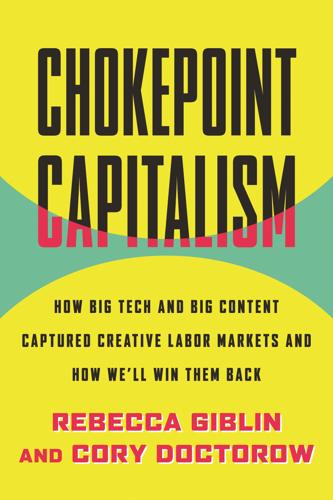
Chokepoint Capitalism
by
Rebecca Giblin
and
Cory Doctorow
Published 26 Sep 2022
This new theory unleashed a powerful, slow-moving glacier of monopolization upon the world in the Reagan years, and it has now scraped away nearly all the beautiful and lively things in its path. Capitalism is supposed to be based on free markets, but markets have a natural tendency “toward monopoly, destructive extraction, and rent-seeking,” and so “require vigilant stewardship precisely to ensure they remain sufficiently marketlike.”6 That vigilance has been AWOL during the fifty-odd years of the Chicago School’s hands-off approach, and, as a result, competition in the US was virtually eliminated in an astonishing variety of industries.
…
The ferryman might also spend some of his excess profits on lobbying lawmakers to pass rules mandating a minimum number of boats be operating at any one time—making it hard for any new operator to start up. Where a person or corporation seeks to increase their profits through more favorable regulation, it’s called rent-seeking. We saw how regulatory capture can harm creative producers in the context of radio: changes to ownership laws allowed Clear Channel to buy its way to a dominant position, use that position to crush rivals, and use some of the resulting profits to maintain its outrageous advantage in not having to pay recording artists or labels for their music.
…
If rights reverted to creators every twenty-five years, the artists who were signed to those 4 percent royalties in the 1950s would have been able to secure 10 percent rates by the 1980s, and then 20 or 25 percent rates in the 2000s. That would mean the biggest labels would get less of a profit edge from their backlists than they do today, meaning less to spend on rent-seeking. It would also give newer competitors an opportunity to compete for that older catalog. Artists could choose companies offering fresh marketing investments, new exploitation opportunities, or higher royalties instead of just being stuck with the company that happened to sign them decades earlier (or more likely—a giant who swallowed up their original label).
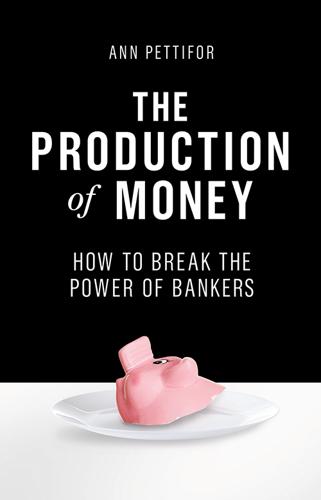
The Production of Money: How to Break the Power of Banks
by
Ann Pettifor
Published 27 Mar 2017
This, I will argue, is the worst possible combination for society and the ecosystem as high and rising real rates of interest require high and rising rates of return from investment, from labour and from the earth’s finite assets. Most orthodox economists also have an unhealthy dislike of the state, which they accuse of ‘rent-seeking’ while simultaneously ignoring the rent-seeking of the private sector. As recently as October 2008 former governor of the US Federal Reserve Alan Greenspan made the orthodoxy explicit under cross-examination by a Congressional committee, chaired by Henry Waxman.7 The chairman reminded Mr Greenspan that he had once said, ‘I do have an ideology.
…
Gillian Tett, one of the few journalists bold enough to explore and challenge the world of international financiers and creditors, blames a ‘pattern of “social silence” … which ensured that the operations of complex credit were deemed too dull, irrelevant or technical to attract interest from outsiders, such as journalists and politicians.’8 Finance was indeed too dull and arcane to attract the interest of mainstream feminism and environmentalism. As a result of this ‘social silence’ citizens were unprepared for the crisis, and they remain on the whole ignorant of the workings of the financial system and its operations. The experience of financial deregulation has shown that capitalism insulated from popular democracy degenerates into rent-seeking, criminality and grand corruption. As Karl Polanyi predicted in his famous book The Great Transformation, societies are building resistance to the ‘self-regulating market comprising labour, land and money’ – or market fundamentalism, even when blind resistance appears irrational.9 In the US, as I write, the voters of the United States have sought protection from a demagogic president-elect who promised to defend them by erecting a wall between the United States and Mexico.
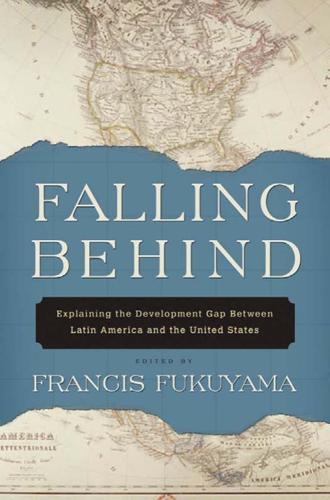
Falling Behind: Explaining the Development Gap Between Latin America and the United States
by
Francis Fukuyama
Published 1 Jan 2006
It also needed sustained public sector policies to reduce asset inequality through carefully planned investments in health, education, and public housing. As Campos and Root note, “Wealth sharing insured broad social support, thereby reducing the threat that the regime would fall to destructive rent seeking or insurgency. It encouraged the belief that the government was acting on behalf of citizens’ interests.”44 All too often, it is the “destructive rent seeking” among Latin America’s economic and political elites that preclude confidencebuilding strategies and set citizens against political authority. Creating a consensus about growth and development requires mutual trust and shared goals.
…
From this perspective, and as we explained in the previous section, even though there has been dramatic institutional change in Latin America since 1982, characterized by transitions from authoritarian to democratic rule and from relatively closed, state-led economies to open, market-driven economies, weak states whose jurisdiction and enforcement capacities have remained weak and open to traditional capacity-draining activities, such as rent seeking and moral hazard, have helped to reproduce the conditions that allow the survival and growth of high-stakes politics. To this element, we have to add others, namely, the persistence of dramatic socioeconomic inequality and widespread poverty, which have nurtured the zero-sum conditions that allow high-stakes politics to thrive and dominate in Latin America at the beginning of the twenty-first century.
…
Uncompetitive protected industries were made even more uncompetitive by overvalued exchange rates; this, combined with unconstrained fiscal spending, led to currency crises, devaluation, rising real interest rates, and a reversal of economic growth in a seemingly endless cycle. The package of liberal economic policies recommended by the International Monetary Fund and other multilateral lenders sought to break several links in this cycle by encouraging competition and openness, improving fiscal discipline, reducing opportunities for rent seeking, and eliminating the discretionary use of monetary policy to resolve fiscal problems via inflation. 272 Conclusion This medicine by and large worked: the runaway inflation that characterized Bolivia, Peru, Argentina, Brazil, and other countries during the 1980s was tamed by the 1990s.6 Elimination of the regressive tax represented by inflation then encouraged the return of flight capital and, indeed, increasing levels of foreign investment.
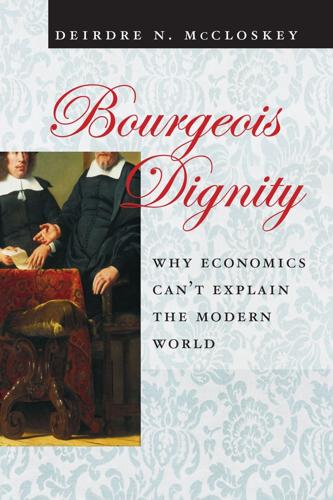
Bourgeois Dignity: Why Economics Can't Explain the Modern World
by
Deirdre N. McCloskey
Published 15 Nov 2011
Merchant guilds and associations were so widespread and so tenacious not because they efficiently solved economic problems, making everyone better off, but because they efficiently distributed resources to a powerful urban elite, with side benefits for rulers.11 People in the poorest countries nowadays, who assume not unreasonably that their economies are zero-sum, reckon that they can best advance by theft, graft, influence, corruption, rent-seeking. People in rich countries reckon, on the contrary, that the best way to advance is invention and betterment, which is why such countries became wealthy, at any rate until government expenditures got large enough to encourage rent-seeking to take over again.12 But anyway the “major growth phases” were periods in which income per person rose by factors of 2 or at most 3, not factors of 10 or 30 or 100. Economic history needs, in other words, to deemphasize, as Jones sometimes does not, in deference to the Continuists, the manufacturing-cum-regional-specialization that we call loosely “industrialization.”
…
Albert Hirschman quotes, and applies to the antibourgeois Spaniards of Castile, the backward-looking opinion of the Marquis de Vauvenargues (1715–1747) that “a man of quality, by fighting, acquires wealth more honorably and quickly than a meaner man by work.”1 It was the antique sentiment of the nobility. According to Tacitus the ancient German warrior thought it “tame and spiritless to accumulate slowly by the sweat of his brow what can be got quickly by the loss of a little blood.”2 In such a society the incentives to zero-sum rent seeking, as the economists put it nowadays, are plain enough. By contrast the Portuguese merchant and the “merchant knight” (cavaleiro-mercador, an impossible juxtaposition in most of Europe at the time) encouraged by Prince Henry the Navigator (1396–1460) and others in its vigorous royal family gave little Portugal the third European empire of trade, after those three centuries earlier of Venice and Genoa.
…
(Yet putting Amsterdam in the category of failure is a scientific mistake: I have noted that the place merely changed, as London did, from being chiefly manufacturing and merchanting to being chiefly banking and merchanting; and Florence is to this day a substantial industrial city; and Genoa is still the port of northern Italian industrialization.) Jones opines that “what kept growth episodes so few was mainly excessive rent-seeking on the part of the holders of political power.”10 Probably. The economic historian Sheilagh Ogilvie, for instance, presents evidence that medieval guilds of merchants were growth-killers—not the growth-makers that some recent theorists and historians of the neo-institutionalist school have posited.
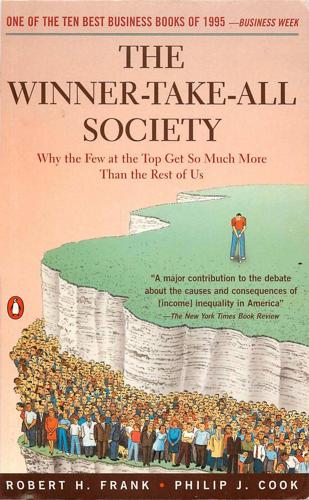
The Winner-Take-All Society: Why the Few at the Top Get So Much More Than the Rest of Us
by
Robert H. Frank, Philip J. Cook
Published 2 May 2011
"Changes in the Structure of Wages in the 1980s: An Evaluation of Alternative Explanations," American Econom ic Review 82 (June 1992): 371-92. Brimelow, Peter, and Leslie Spencer. "The Plaintiff's Attorney's Great Honey Rush," Forbes, October 16, 1989, pp. 197 ff. Buchanan, James, Robert Tollison, and Gordon Tullock, eds. Toward a Theo ry o/the Rent-Seeking Society, College Station: Texas A&M Press, 1 980. Burrough, Bryan, and John Hellyar. Barbarians at the Gate. New York: Harper & Row, 1990. Bibliography 249 Byrne, John A. "The Craze for Consultants." Business Week, July 25, 1994, pp. 60-66. . "That's Some Pay Cap, Bill." Business �ek, April 25, 1994, p. 57.
…
"The Big Stars on Campus Are Now Research Labs." New York Times, December 4, 1994, pp. 1 , 38. Chass, Murray. "Motivation Upon Arrival for Henderson." New York Times, March 3 , 1 993, p. B lO. Chi, Victor. "Football Abolished at Santa Clara." San Jose Mercury News. Feb ruary 4, 1993 , pp. 1 G, 9G. Chung, Tai-Yeong. "Rent-Seeking Contest When the Prize Increases with Ag gregate Efforts." University of Western Ontario Department of Econom ics Research Report 9407, 1994. Clotfelter, Charles T. "Demand for Undergraduate Education." In Charles T. Clotfelter, Ronald G. Ehrenberg, Malcolm Getz, and John J. Siegfried, Economic Challenges in Higher Education.
…
.: Education al Testing Service, 1976-77. Comstock, G., and H. Paik. Television and the Amen'can Child. San Diego, CA: Academic Press, 1 99 1 . Congleton, Roger. "Competitive Process, Competitive Waste, and Institu tions." In J. Buchanan, R. Tollison, and G. Tullock, eds. Toward a Theory 0/ the Rent-Seeking Society. College Station: Texas A&M Press, 1 980, pp. 153-79. Conover, Carole. Conover Cover Girls. Englewood Cliffs, NJ: Prentice-Hall, 1 978. Cook, Philip J., and Robert H. Frank, "The Growing Concentration of Top Students at Elite Schools." In Charles Clotfelter and Michael Rothschild, eds.
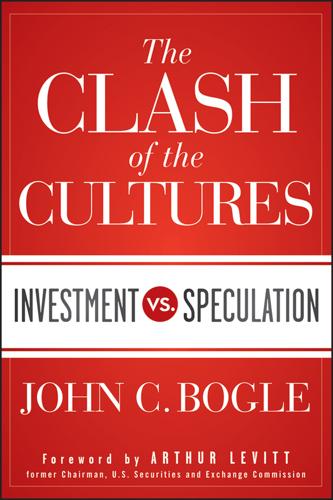
The Clash of the Cultures
by
John C. Bogle
Published 30 Jun 2012
After all, innovation, information, instant communications, and competition have brought great benefits to our society. But I see our financial system as somehow separate and distinct from the other business and commercial systems that permeate our world. “Value-Creating” and “Rent-Seeking” There is a difference—a difference in kind—between what economists describe as “value-creating” activities that add value to society and “rent-seeking” activities that subtract value from society on balance. One provides new and improved products and services, delivered through ever more efficient channels and at prices that are more competitive, and the other simply shifts economic claims from one set of participants to another.
…
Creating Value versus Subtracting Value In yet another distortion aided and abetted by our financial system, too many of the best and brightest young people in our land, instead of becoming scientists, physicians, educators, or public servants, are attracted by the staggering financial incentives offered in the investment industry. These massive rewards serve to divert vital human resources from other, often more productive and socially useful, pursuits. Even in the field of engineering, “financial” engineering, which is essentially rent-seeking in nature, holds sway over “real” engineering—civil, electrical, mechanical, aeronautical, and so on—which is essentially value-creating. The long-term consequences of these trends simply cannot be favorable to our nation’s wealth, growth, productivity, and global competitiveness. Finally, the dominance of speculation in our financial affairs shifts our society’s focus from the enduring reality of corporate value creation, on which our nation ultimately depends, to the momentary illusion of stock prices.
…
Develop Limits on Leverage, Transparency for Derivatives, and Stricter Punishments for Financial Crimes We need stronger, smarter, and wiser regulation that is principles-based where possible, and rules-based in all other cases. No, I do not believe that our government should run our financial sector. But I would be willing to accept the cost of its inevitable bureaucratic drag on the system since, after all, most government activity itself is also rent-seeking rather than value-adding. Regulation is needed in order to: Establish and enforce sterner limits, as appropriate, on leverage and portfolio quality. Bring the opacity of today’s derivatives trading into the bright sunlight of transparency and openness, with public reporting of all transactions.
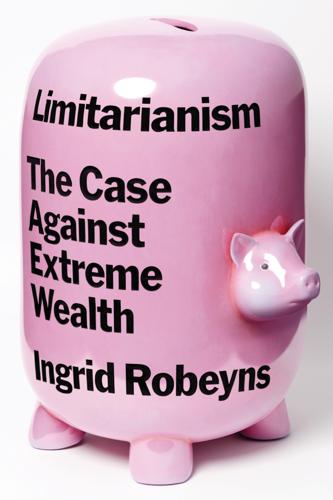
Limitarianism: The Case Against Extreme Wealth
by
Ingrid Robeyns
Published 16 Jan 2024
If all companies worldwide were to agree on a maximum level of compensation for CEOs, then they wouldn’t put in any less effort.17 If an exceptional salary does not reflect exceptional performance, then what explains the fact that top executives earn hundreds of times more than the average worker? The empirical literature suggests that much of their pay is “rent”—that is, money above what one would earn in a genuinely competitive market. “Rent-seeking” refers to how much more a person is paid above the rate for which they would be willing to do the work. Most of the highest salaries consist of such rent. These enormous rents are facilitated by oligopolistic structures which influence the level and structure of executive pay. Those who advise on or approve the top levels of compensation in companies look at similar companies, and make sure that what they offer reflects more or less what others in similar positions get around the world.
…
Those who advise on or approve the top levels of compensation in companies look at similar companies, and make sure that what they offer reflects more or less what others in similar positions get around the world. These people are themselves often extremely well compensated, making it all the less likely that they will advocate restraint. And CEOs will be rent-seeking too, since they know what top executives in other companies earn and will generally strive for a higher salary as this reflects higher status. Another reason for the rise of rents is the fact that, in many cases, including that of very well-paid soccer players, we are looking at a “winner takes all” market in which one person or brand is able to dominate and crowd out the competition.
…
See equality inflation 28, 34 inheritance 7, 81–82, 121–5, 133, 134, 139, 160, 174, 191, 193, 201, 226–7 tax 8, 68, 82, 121–5, 191, 226–7 Inside Climate News 98 Institute of Economic Affairs 40 Intergovernmental Panel on Climate Change (IPCC) 97, 106 Internal Revenue Service (IRS) 62 International Consortium of Investigative Journalists (ICIJ) 63, 64, 180 International Labour Organization (ILO) 58 International Monetary Fund (IMF) 39 Jacobson, Mark 113 Jong, David de: Nazi Billionaires: The Dark History of Germany’s Wealthiest Dynasties 44 judiciary 52, 76, 94, 199, 219 Kerala, India 21 kerosene 102 Keynes, John Maynard 33 Kiribati 102, 106 kleptocracy 47–52, 70, 76 Koch, Charles and David 89–90 Koch Industries 90 labor Global South and 153, 154 human capital and 216 manual labor, demand for 32 market discrimination 125 platform economy and 210 rights 23, 57, 166 taxing 69, 226 unions see unions wages/pay inequalities see wages Lakner, Christoph 21 Lega 50–51 liberal democracies 73–4, 94, 141, 180, 219, 222 libertarianism xxvii, 55, 77, 90, 120, 169, 173 Liechtenstein 166 life expectancy 18 limitarianism basic income and see basic income class and see individual class name climate change and see climate change defined xiv democracy and see democracy direct cash transfers and see direct cash transfers dirty money and see dirty money economic systems and see individual system name equality and see equality ethical action and xvi ethical limit xix, 12, 15–6, 93, 117, 139, 182, 186 fiscal action and xvi, xvi future of 203–229 inheritance and see inheritance limitarian ethos xvi, 186 markets and see markets philanthropy and see philanthropy political limit xix, 15–6, 25, 116, 126, 161, 228 poverty and see poverty regulative ideal xiv, 214 riches line and see riches line tax and see tax structural action xv super-rich and see super-rich wages see wages literacy 18, 21 living wage 142, 160, 223 lobbying 56, 70, 84–5, 166, 167, 178, 203 Loblaw 58 London 9 homelessness in 143 living standards in 10 real-estate prices 13 refugees in 79 study into riches line in 11–2, 15, 41, 200 lower-middle class 5, 10, 25, 111 luck 14, 75, 82, 122, 129–130, 131, 139, 148, 155, 161, 174, 191, 200, 201, 212, 217 Lutheran Church 149 Machin, Dean 95 Madoff, Bernie 196–7 Malleson, Tom: Against Inequality 64, 162 Malm, Andreas 115–6 Malta 9, 78, 79, 80 Mangue, Teodoro Nguema Obiang 47–8 Marcos, Imelda 48–9 markets xii abolition of 208 big government and 169 climate change and 177 constraints on xix failures, uncorrected 134–5, 145 ideologies see individual ideology name non-market economy 213–4 regulation 209, 211, 213 rent-seeking and 128–9 as social institution 118–22 Marshall Islands 106 maternal mortality rates 18 Mathisen, Ruben 83 Mayer, Jane 88–9, 89–90 Mazzucato, Mariana Mission Economy 159 The Entrepreneurial State 137, 159 Mbappé, Kylian 126 media outlets, super-rich acquire 52, 86–9 meritocracy 141 Messi, Lionel 64 middle class climate change and 100, 108, 110, 111, 114–5, 143 definition of 10–11, 29 energy prices and 96 global inequalities and 93–4 income tax and 185–6 inequality and xv, xxv–xxvi, 2, 3 inheritance cap and 227–8 savings and 4 “self-made” super-rich and 5, 6 trickle-down effect and 38 wages and 189 wealth-defense industry and 70 wealth of 25, 45 win-win narrative and 21, 22 working class and 217–8 migration 23, 79, 94, 127, 150, 155 Milanovic, Branko 21 military infrastructure 172 Mill, John Stuart 146 Millionaires for Humanity 6 miners strike, Britain (1984) 33 Minimum Income Standard 10 minimum wage xiv, 160, 174, 176, 211, 224 mixed economy 33–4, 209, 210–211 Monbiot, George 98, 232; Regenesis 108 “moonshot” strategies 114, 159 morality 106, 148 climate change and 103–4, 106, 110, 115–6 democracy and 72, 75, 81 dirty money and see dirty money ethical limit see ethical limit full determinism and 131 inheritance and 122, 125, 134, 226 philanthropy and 165–6, 168, 173, 176–7, 181, 184, 185, 186 riches line and 15 wealth inequality and xiii, xiv, xvii, xxiv, xxvi, 15, 16, 24, 31, 34, 36, 118, 120, 122, 125, 131, 134, 135–6, 138, 148, 161, 187, 188, 193, 194, 196, 197–8, 199, 212, 223–4 mortgage 11, 37, 61, 121, 227 Mossack Fonseca 63–4 Murdoch, Rupert 86–9 Murphy, Liam 120 Musk, Elon xi, 9, 181, 199, 212–3 Nagel, Thomas 120 narcissism 174 national parks 210–11 national public service 218–9 natural lottery 130 Nazi atrocities 43–5 Nembwaya, Frida 151 neoclassical economic theory 111–2 neoliberalism xxv, 38, 38–9, 54–5, 187 atomized individuals and 144–5, 200 climate change and 114 consumer and 191, 202 democracy and 90, 94 deserving poor and 151 dismantling 215–8 distrust of government and 172–3 entrepreneurs and 159 “greed is good” mantra 162 philanthropy and 165–6, 171, 172, 179–180 poverty in affluent nations and 156 progressive parties and 190 “self-made” super rich and 143 spread of 34, 191 tax rates and 146, 221 welfare state and 171 network effects 129 News of the World 87 New York Times 91, 198 Nielsen, Lasse xxii non-financial incentives 162–3 Norton, Michael 204 Obama, Barack xx, 88, 90 Obermayer, Bastian 63–4 Obiang, Theodore 47, 47 obliviousness 174–5 Occupy movement xii, 9 oil 47, 83, 96, 98, 103, 211 oligarchy 9, 10, 73, 78, 79 O’Neill, Jessie: The Golden Ghetto 194–5 opioid crisis 53–4 Oportunidades (Opportunities) 152 Optimist, The 18 Orbán, Victor 73 Organization of Economic Cooperation and Development (OECD) 36, 155, 225–6 Ortega, Amancio 135–6 Osnos, Evan 89 Otele, Olivette 46–7 Otjivero, Namibia 149–52, 178, 226–7 Our World in Data 18–19 Oxfam report on inequality 3, 17 OxyContin 53–4 Page, Benjamin 83 Page, Larry 137 Panama Papers 63–4, 180 Paris Climate Agreement (2015) 104 Patagonia xxiii, 180 Patriotic Millionaires 6, 12, 69, 169, 172, 188 Payne, Erica 12; Tax the Rich!
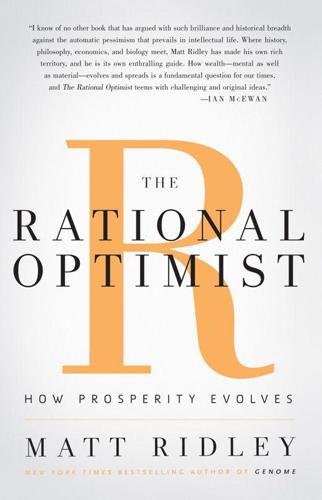
The Rational Optimist: How Prosperity Evolves
by
Matt Ridley
Published 17 May 2010
Had I only known it, experiments in laboratories by the economist Vernon Smith and his colleagues have long confirmed that markets in goods and services for immediate consumption – haircuts and hamburgers – work so well that it is hard to design them so they fail to deliver efficiency and innovation; while markets in assets are so automatically prone to bubbles and crashes that it is hard to design them so they work at all. Speculation, herd exuberance, irrational optimism, rent-seeking and the temptation of fraud drive asset markets to overshoot and plunge – which is why they need careful regulation, something I always supported. (Markets in goods and services need less regulation.) But what made the bubble of the 2000s so much worse than most was government housing and monetary policy, especially in the United States, which sluiced artificially cheap money towards bad risks as a matter of policy and thus also towards the middlemen of the capital markets.
…
Most past bursts of human prosperity have come to naught because they allocated too little money to innovation and too much to asset price inflation or to war, corruption, luxury and theft. In the Spain of Charles V and Philip II, the gigantic wealth of the Peruvian silver mines was wasted. The same ‘curse of resources’ has afflicted countries with windfalls ever since, especially those with oil (Russia, Venezuela, Iraq, Nigeria) that end up run by rent-seeking autocrats. Despite their windfalls, such countries experience lower economic growth than countries that entirely lack resources but get busy trading and selling – Holland, Japan, Hong Kong, Singapore, Taiwan, South Korea. Even the Dutch, those epitomes of seventeenth-century enterprise, fell under the curse of resources in the late twentieth century when they found too much natural gas: the Dutch disease, they called it, as their inflated currency hurt their exporters.
…
And it was they who began to trade with the ports of Italy. Italian peasants started to discover that instead of dividing their land among impoverished heirs they could send sons to town to trade with Maghribi Jews. Northern Italy, because of a stand-off between the Holy Roman emperor and the pope, was temporarily favoured by an absence of greedy rent-seeking kings. When Arab piracy and papal plunder paused under the influence of the first Otto, the towns of Lombardy and Tuscany found themselves free to set up their own governments, and since towns were there because of trade, these governments became dominated by the interests of merchants. Amalfi, Pisa, and above all Genoa began to flourish on the back of the Maghribi trade.
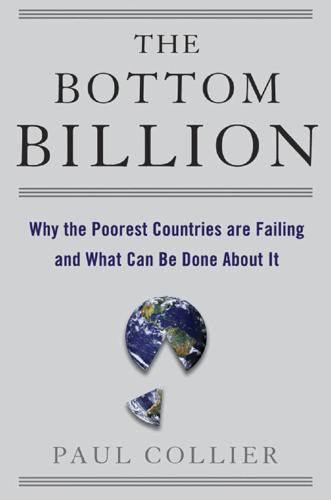
The Bottom Billion: Why the Poorest Countries Are Failing and What Can Be Done About It
by
Paul Collier
Published 26 Apr 2007
When Charles Soludo became governor of the Central Bank of Nigeria, his priority was to reform the banking sector, a notorious epicenter of rent seeking. Unsurprisingly, this was not popular with the rent seekers among the banks. They organized a fighting fund of around $2 million to campaign against him. Among other tactics, this enabled them to buy allies in the media. Charles did not have $2 million to oppose them; he just had guts and intelligence and the right arguments. As I write, he seems to have won, closing and merging sixty-four banks. Reform is tough, but it can triumph. The day after President Mwai Kibaki replaced the rent-seeking Daniel arap Moi in Kenya in 2002, ordinary Kenyan citizens frog-marched police officers who demanded the usual bribes to their own police stations to be arrested.
…
There is now a huge amount of money being directed by the Nigerian federal government to the delta region, and the oil companies are desperately spreading protection money—paying ransoms to free kidnapped workers is pretty well a daily occurrence. Within the region local politicians are fighting it out for control of all this money, and violent protest has become an orchestrated part of this political rent seeking. Grievance has evolved, over the course of a decade, into greed. Let us get back to the costs of conflict. Many of the costs are borne by neighboring countries. Diseases don’t respect frontiers, and the economic collapse also spreads. Since most countries are bordered by several others, the overall cost to neighbors can easily exceed the cost to the country itself.
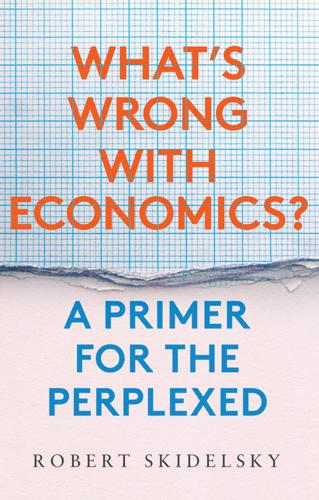
What's Wrong With Economics: A Primer for the Perplexed
by
Robert Skidelsky
Published 3 Mar 2020
Nobel Laureate Amartya Sen (b.1933) has pointed out that famines in poor countries are as much the consequence of a politically determined distribution of food as of natural shortage.16 Eradicable diseases like malaria and leprosy fail to be eradicated not because nature is niggardly but because some rulers prefer to spend the money buying arms and enriching themselves and their families. Economists may reasonably point out that such artificial scarcity is produced by bad politics, not by bad economics; and indeed they have been persistent critics of ‘rent-seeking’ by governments. However, they have been relatively blind to the ability of big private corporations to extract rent. Today the biggest rent-extractor is the cartel of big banks, which controls the means of financing production. The method of mainstream economists has blunted criticism of actual market distributions by setting out to ‘prove’ that in fully competitive markets consumers are sovereign and all the factors of production are paid what they produce.
…
The attempt in the 1970s to control inflation by wage and price controls led directly to a ‘crisis of governability’, as trade unions, particularly in Britain, refused to accept them. Large state subsidies to producer groups, both public and private, fed the typical corruptions of behaviour identified by the new right: rent-seeking, moral hazard, free-riding. Palpable evidence of government failure obliterated memories of market failure. The new generation of economists abandoned Keynes and, with the help of sophisticated mathematics, reinvented the classical economics of the self-regulating market. Battered by the inflationary crises of the 1970s, governments caved in to the ‘inevitability’ of free market forces.
…
The Strategy of Economic Development, New Haven: Yale University Press. Johnson, Harry (1977). ‘Keynes and the Developing World’, in Robert Skidelsky (ed.), The End of the Keynesian Era: Essays on the Disintegration of the Keynesian Political Economy, London: Macmillan. Krueger, Anne (1974). ‘The Political Economy of the Rent-Seeking Society’, American Economic Review, Vol. 64 (3): 291–303. Krugman, Paul (1987). ‘Is Free Trade Passé?’, Journal of Economic Perspectives, Vol. 1 (2): 131–44. Lewis, W. Arthur (1954). ‘Economic Development with Unlimited Supplies of Labour’, The Manchester School, Vol. 22 (2): 129–91. List, Friedrich (1909 [1841]).

The Metaverse: And How It Will Revolutionize Everything
by
Matthew Ball
Published 18 Jul 2022
The use of common standards also meant that it was easier and cheaper to hire and work with outside vendors, integrate third-party software and apps, and repurpose code. The fact that so many of these standards were free and open-source meant that individual innovations often benefited the entire ecosystem, while placing competitive pressures on paid, proprietary standards, and helping to check the rent-seeking tendencies of platforms sitting between the web and its users (e.g., device manufacturers, operating systems, browsers, and ISPs). Importantly, none of this prevented businesses from making a profit on the internet, deploying a paywall, or building proprietary technology. Rather, the “openness” of the internet enabled more companies to be built, in more areas, reaching more users, and achieving greater profits, while also preventing pre-internet giants (and, crucially, telecom companies) from controlling it.
…
The more a developer invests in a given IVWP, the harder it becomes for them to ever leave—not only will they need to reacquire their customers, they’ll have to rebuild from scratch. Thus, developers will be less likely to support new IVWPs that might offer superior functionality, economics, or growth potential—and existing IVWPs will face less pressure to improve. Over time, dominant IVWPs might even “rent-seek.” Over the past decade, most of the major platforms have been criticized for such behaviors. For example, many brands argue that changes made to Facebook’s Newsfeed algorithm effectively forced them to buy ads in order to reach the very Facebook users who had voluntarily “liked” their Facebook pages.
…
See augmented reality (AR); virtual reality (VR) “mobile internet era,” 12, 35, 63, 64, 240, 242–44, 269, 291 Mojang, 114 Monsters University, 36, 89–90 Moore’s Law, 100, 161 “most favored nations” (MFN) clauses, 180–81, 183 Motorola, 158, 212, 213 multiplayer games battle royale games, 32–33, 91–93, 98, 114–15, 117n, 146–47, 268, 275 computing and, 75 “massively multiplayer” online games, 55 matchmaking, 81, 176, 178 the problem of concurrent users (CCUs), 54–55, 90–92, 122, 146, 234, 245, 261, 268, 283 see also specific games and gaming platforms Multi-User Dungeons (MUDs) and related topics, 7–8, 12, 13–14, 30 Musk, Elon Neuralink, 154 SpaceX, xi, 4, 87 Starlink, 87 Tesla, 101, 166, 271 X.com, 61 MySpace, 34, 274 Nadella, Satya, xii, 18, 141, 239, 279–80 Naked Sun, The, 5 Namco, 173 NASA, ix NASDAQ, 309 National Advisory Committee for Aeronautics, ix National Basketball Association (NBA), 218, 259 National Football League (NFL), 139 National Science Foundation, x native apps, 26, 194–95 near-field communication (NFC), 142, 189, 199–200, 203 Nest Labs, 158 “netcode” solutions, 81–82 NetEase, 19–20 Netflix, 19, 49–53, 96, 100, 111, 187, 194, 196–98, 244, 270, 276n Netherlands, 203 Network Attached Storage (NAS) drive, 74 networking, 71–88, 85 acceptability thresholds in, 80–81 bandwidth and, 27, 41, 48–51, 64, 72–79, 80, 96, 100, 305 broadband operators, 15–16, 38, 49, 271 fiber optic networks, 27, 84, 87, 128 4G networks, 81, 87, 244, 245, 249 5G networks, 87, 243 the internet as a “network of networks,” 16, 23–24, 62 latency and, 27, 48–53, 64, 79–88, 95–96, 99–100, 230, 243, 248, 271, 305 network gateways, 130 rent-seeking and, 15, 299 3G networks, 243 undersea cables, 84–85, 85 Neuralink, 154 Neuromancer, 5–6, 8 Newsweek, 308 New World, 277 New York Times, xv, 4–5, 73, 224, 256 as an app, 149, 185, 194, 196, 202 Live Election feed, 49 Nexon, 105 NextVR, 144 Niantic, 115, 144, 275 Nike, 121, 139, 189–90, 208, 248, 264 Nintendo, 11, 104, 151–52, 173, 303 Nintendo Entertainment System (NES), 32, 173 Nintendo Switch, 30–32, 75, 97, 134, 174–76 Nintendo Wii, 132 Nokia, 136–37 non-fungible tokens (NFTs), 140, 216–22 avatars and identity, 218, 229, 293–94 fractionalization into fungible tokens/shares, 202 marketplaces, 202, 301 “minting” in, 217 speculation, 128, 220, 231 as useless, 220 nonprofit organizations, 227, 231 Nouns DAO, 229 Nuance Communication, 212 Nvidia, xii, 66, 97–98, 282 Android and, 213 GeForce Now, 131, 282, 286 market capitalization of, 166 NVM software development kit, 175 Omniverse, 136–37, 282 see also graphics processing units (GPUs); Huang, Jensen Nye, David, 242 “Oasis, The,” 22, 289 OBJ file format, 299 occlusion, 97 Oculus VR, xi, 21, 57, 143, 153, 160, 274, 276 Horizon Worlds, 115, 204, 277 Oculus Quest 2, 143, 145–47, 161–62 Population: One, 146–47, 268 Office of Scientific Research and Development (OSRD), ix–x OKCupid, 19, 261 Omniverse from Nvidia, 136–37, 282 OnLive!
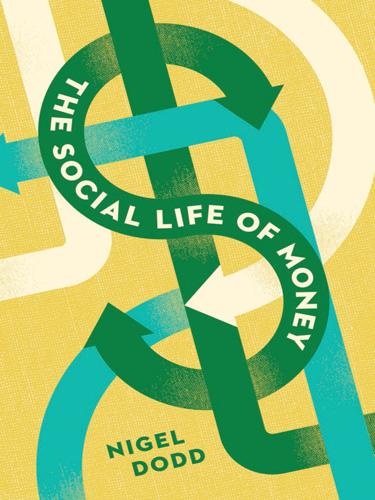
The Social Life of Money
by
Nigel Dodd
Published 14 May 2014
Meanwhile, the Fed faces an interest rate quandary: if it keeps rates low, the financial sector will be forced to gamble to achieve the growth in asset values it needs; if rates rise, real estate values will fall and the banks and pension funds will be forced even further into negative equity. If Hudson is right, we ought to be witnessing the end of two myths. The first is about free markets. We cannot continue to believe that they are free when they support rent seeking rather than real GDP, reward banks for pushing junk mortgages, and use credit rating agencies to make predatory finance look like sound wealth creation. Free markets need to be protected from fraud and rent seeking. The second myth is that central banks cause inflation by monetizing public spending. They do not cause inflation if the spending in question goes toward new production and employment. Instead, such spending is being diverted to support inflated asset prices and continued financial speculation.
…
Moreover, the state played a crucial role in that history—just as it continues doing so today.27 Third, Marx’s analysis of the role of the “modern bankocracy” opens up an analytical space in which finance can be understood in relation to a particular kind of accumulation, more akin to mercantilism and rent seeking than more conventional forms of capitalist production.28 Financial derivatives did not exist in Marx’s day. Nor did hedge funds or sovereign wealth funds. Nonetheless, his analysis of primitive accumulation provides a powerfully suggestive means of framing these forms of financial capitalism (McNally 2009; Ekman 2012).
…
Of greatest interest to us here is Harvey’s attempt to produce a full-fledged Marxist theory of money and credit that can be applied to the present day, taking account of developing connections between finance and the state, the near-disappearance of gold from the world’s monetary system, and the recent huge expansion of financial services as a major force in the dynamics of contemporary capitalism. In light of our discussion so far, Harvey’s approach is particularly interesting because he draws out the theme of primitive accumulation in Marx and applies it to key aspects of financial capitalism, such as rent seeking and debt. Harvey’s analysis is underpinned by the crucial assumption that capitalism needs to sustain an average compound growth rate of around 3 percent in order for most capitalists to make a reasonable profit (Harvey 2010b: 27). Anything less is problematic, and zero or negative growth defines a depression.
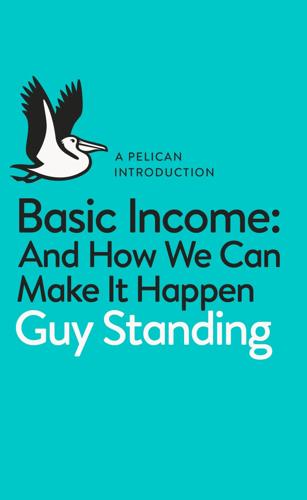
A Pelican Introduction: Basic Income
by
Guy Standing
Published 3 May 2017
Sixth, they encourage the provision of low-quality goods and services and disdain on the part of those delegated to administer or provide them. In the US, housing vouchers have been associated with increased concentration of impoverished people in poor neighbourhoods where the vouchers are more widely accepted by landlords.19 Seventh, they are prone to corruption and/or rent seeking by special interests. In the US, food stamps have been vigorously promoted by farm-state Republicans. In India, less than 10 per cent of the food the government buys for its Public Distribution System reaches the poor; almost half mysteriously disappears between warehouse and ration shop, and most of the rest is left to rot in government storage.20 Moving to a basic income scheme, based on direct provision of cash to the intended beneficiaries, would remove layers of intermediaries and their lobbying potential at a stroke.
…
Although food and other subsidies may seem to satisfy the Security Difference Principle by reaching out to the most insecure groups in society, some of the most vulnerable are locked out of such schemes. They surely fail the Paternalism Test Principle and the Rights-not-Charity Principle. They are also costly to administer, inefficient and prone to corruption and rent seeking. An experiment in Ecuador that ran simultaneous trials of cash assistance, food vouchers and in-kind food aid found that less than 10 per cent of those receiving cash would have preferred another form of assistance, whereas a quarter to a third of the others wanted to change.21 Those who received cash valued being able to use some of the money for other essentials, including savings.
…
In the Indian case, and probably elsewhere as well, there would be no need to introduce a basic income as an alternative to existing social programmes. A third method of funding is through the sovereign wealth fund, social dividend route mentioned in Chapter 7. This is eminently suited to developing countries rich in oil and other minerals, or valuable commodities such as timber, the revenues from which go mainly to rent-seeking elites. Many have already set up sovereign wealth funds, but these have been used mainly as investment vehicles to help stabilize future government finances. In Goa, India, the Goenchi Mati Movement is pressing for the proceeds of iron ore mining to go into a permanent fund, similar to Alaska’s Permanent Fund, which would be used to finance a citizen’s dividend.
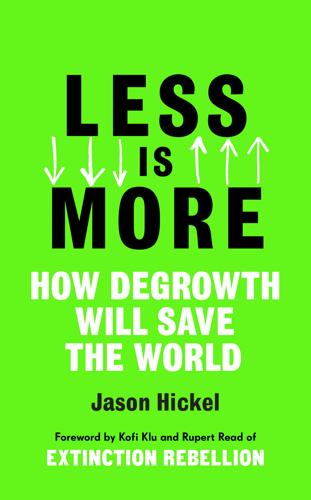
Less Is More: How Degrowth Will Save the World
by
Jason Hickel
Published 12 Aug 2020
When capital has bumped up against limits to profit-growth in the past, it has found fixes in things like colonisation, structural adjustment programmes, wars, restrictive patent laws, nefarious debt instruments, land grabs, privatisation, and enclosing commons like water and seeds. Why would it be any different this time? Indeed, a study by the ecological economist Beth Stratford finds that when capital faces resource constraints, this is exactly what happens: it turns to aggressive rent-seeking behaviour. It seeks to grab existing value wherever it can, with clever mechanisms to suck income and wealth from the public domain into private hands, and from the poor to the rich, exacerbating inequality. Now, some might argue that capitalism could theoretically find growth opportunities in completely immaterial goods.
…
This would push the richest to sell some of their assets, thus distributing wealth more fairly. But in an era of ecological crisis, we must be more ambitious than this. After all, nobody ‘deserves’ this kind of wealth. It’s not earned, it’s extracted: from underpaid workers, from cheap nature, from rent-seeking, from political capture and so on. Extreme wealth has a corrosive effect on our society, on our political system, and on the living world. We should have a democratic conversation about this: at what point does hoarding become destructive and unacceptable? $100 million? $10 million? $5 million?
…
As we saw in the previous chapter, reducing inequality is a powerful way to reduce ecological pressure. It cuts high-impact luxury consumption by the rich, and reduces competitive consumption across the rest of society. But it also removes pressures for unnecessary growth. The policies I’ve proposed here would lead to a disaccumulation of capital. This would cut rent-seeking behaviour, and the rich would lose their power to force us to extract and produce more than we need. The economy would shift away from unnecessary exchange-value and more towards use-value. It would also reduce political capture and improve the quality of democracy; and democracy, as we will see later, has intrinsic ecological value.

The Most Powerful Idea in the World: A Story of Steam, Industry, and Invention
by
William Rosen
Published 31 May 2010
Economists have studied the human predilection for shutting out competitors once they have achieved a position of prosperity, and they refer to the behavior that follows as “rent seeking.” Rent-seeking behavior is simply the practice of earning income from an asset without currently working at it. Landlords are rent seekers, particularly to the degree that the land in question is unimproved, and inherited. So are monopolists. And so, indeed, are owners of copyrights and patents, so much so that one of the head-spinning challenges faced by Enlightenment thinkers like Adam Smith was to reconcile their antipathy to all forms of rent seeking, particularly in the form of state-chartered monopolies, with their enthusiasm for inventors and technological innovation.
…
In the first spinning machines, the operator had to simultaneously shape the winding and turn the spindles at precisely the same rate, so as to wind up the yarn—the term of art is “winding the cop”—without either stretching the yarn or allowing it to go slack. The craft was difficult enough that spinners became not only indispensable to the process, but highly protective of their place in it, exhibiting all the rent-seeking mania of a medieval guild. Along the way they transformed themselves from independent contractors into the nation’s most powerful and highly organized craft union. At one union meeting, a spinner argued violently against allowing “piecers” (the subordinates on the spinning line, who tie together threads when they break) to actually put up a cop of cotton yarn unless he was “a son, brother, or orphan nephew.”51 In the industry’s Lancashire heartland,52 mule spinners developed work rules in 1780 that remained in force until the 1960s, and partly in consequence, the new and improved ring-spinning machines, invented by the American John Thorp in 1828, which operated continuously and twisted fibers into yarn by attaching them to a rotating ring, didn’t catch on in Britain53 until the end of the nineteenth century.
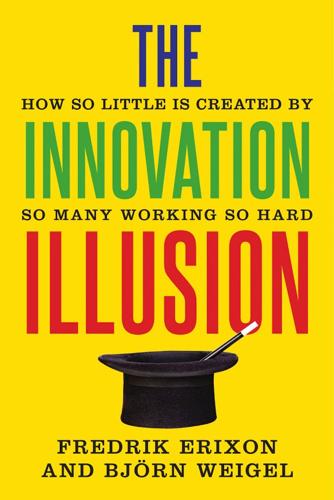
The Innovation Illusion: How So Little Is Created by So Many Working So Hard
by
Fredrik Erixon
and
Bjorn Weigel
Published 3 Oct 2016
While such an investment profile can occasionally be explained by firms making long-term bets on future value – many investments perform weakly before they start to pay off – the general view is rather that agency problems inside a firm spawn inefficient use of capital and investment spending.34 The exact nature of these agency problems varies, but the usual suspect is a misalignment of interests between owners, board executives, and management. Misalignment permeates most large organizations and helps to explain many of the unproductive habits of a firm. Rent-seeking behavior – for example, the desire to maximize the budget for a division even if it would be better to allocate resources to other parts of the firm to create value – preoccupies management. Sometimes executives can correct misallocation. However, quite often they, and perhaps even the owners, conform to rent-seeking bids and behavior because – to continue with the example – they need to “bribe” division heads or other key managers in the firm. In this way, misalignment of interests makes organizations succumb to the process of internal politics.
…
At https://www.stlouisfed.org/Publications/Regional-Economist/January-2013/Why-Are-Corporations-Holding-So-Much-Cash. Santos, Filipe M., and Kathleen M. Eisenhardt, “Organizational Boundaries and Theories of Organization.” Organization Science, 16.5 (2005): 491–508. Scharfstein, David S., and Jeremy C. Stein, “The Dark Side of Internal Capital Markets: Divisional Rent-seeking and Inefficient Investment.” NBER Working Paper No. 5969. National Bureau of Economic Research, Mar. 1997. Schmitz, Robert, “Why Can’t China Make a Good Ballpoint Pen?” Marketplace, Dec. 14, 2015. At http://www.marketplace.org/2015/12/10/world/why-cant-china-make-good-ballpoint-pen. Schoen, John W., “$2 Trillion Deficit for Public Pension Funds.”
…
Chance (Being There character) (i), (ii) multinational (global) companies characteristics of (i), (ii) and competition (i) and corporate cash savings (i) and dispersed ownership (i) and firm boundaries (i), (ii) and foreign direct investment (FDI) (i), (ii) and global trade (i), (ii) vs. home-market firms (i) and innovation (i) as logistics hubs (i) and market concentration (i), (ii) and market contestability (i) and private standards (i) and productivity (i), (ii) and R&D (i) and regionalization of Asia’s trade growth (i) and regulation (i) reputation of (i) and “slicing up” of value chains (i) and specialization (i), (ii) and supply chains (i) and transaction costs (i) see also big firms; globalization; globalization (overview) Musk, Elon (i), (ii), (iii) mutual funds (i), (ii) nanotechnology (i), (ii), (iii) NASA (i) Nasdaq, and sovereign wealth funds (i) national accounts (recorded data), vs. real value of improvements (i), (ii) National Science Foundation (US) (i) neoconservatism (i) neoliberalism (i) nepotism (i) net lending see corporate net lending Netherlands exports to China (i) taxi services and regulation (i) “new economy” (i) New England Journal of Medicine, medical devices study (i) New Machine Age thesis background: economic realities vs. technological blitz vision (i), (ii), (iii), (iv), (v), (vi), (vii); historical perspective (i) criticism of thesis: cyclical effects on productivity argument (i); jobs and technology issue (i); productivity/income decoupling issue (i), (ii); recorded data vs. real improvements argument (i), (ii); summary (i) and fear of artificial intelligence (i) and planning machine economic philosophy (i) and Robert Gordon on US labor productivity growth (i) see also The Second Machine Age (Brynjolfsson and McAfee) New York City dockers and containerization (i) taxi services and regulation (i), (ii) New York Stock Exchange (i), (ii), (iii), (iv), (v) see also Wall Street New York Times, on Bell’s telephone invention (i) NICs (newly industrialized countries) (i) Nietzsche, Friedrich (i), (ii) nimby (not-in-my-backyard) attitude (i) NM Electronics (Intel) (i), (ii), (iii) Nobel Peace Prize, and Twitter (i) “noise” (at work) (i) Nokia and corporate managerialism (i), (ii), (iii), (iv), (v), (vi) and Foxconn (i) and specialization (i) and tablet market (i) non-entrepreneurial planning (i) North American Free Trade Agreement (i) Norway, sovereign wealth fund (i), (ii), (iii) not-in-my-backyard (nimby) attitude (i) Obama, Barack (i), (ii) obsolescence see knowledge obsolescence occupational licenses (i), (ii), (iii), (iv) OECD (Organisation for Economic Co-operation and Development) on aging firms and innovation (i) on corporate savings (i) on “diffusion machine” and productivity (i) GDP forecasts (i) on intermediaries and shareholders’ income (i) on pension funds and PPRFs (i) on R&D skill deficiencies (i) on regulatory administration costs (i) on sovereign wealth funds (i) on taxi services (i) OECD countries product market regulation (PMR) indicators (i), (ii) R&D spending (i) start-ups (i) total assets by types of institutional investors (2001–13) (i), (ii) “off-license” sectors (i) “offshore” pattern of innovation (i) oligopolistic (or monopolistic) competition (i) Ollila, Jorma (i), (ii) Olson, Mancur (i) “one percent” (wealthiest group) (i) online services and diffusion of innovations (i), (ii) and recorded economic data (i) and regulation (i) see also internet open source technology, and socialism (i) organic cognition (i) Organisation for Economic Co-operation and Development see OECD; OECD countries organization industrial organization (i), (ii) vs. managerialism/technostructure (i) and multinationals (i) and specialization (i) Organization Man (i), (ii) organizational diversification (i), (ii) Osborne, Michael (i) outsourcing (i) ownership see capitalist ownership; institutional owners Palo Alto Research Center (PARC, Xerox) (i) “Panama Papers” story (i) Parisian taxis, and regulation (i) patents, and knowledge obsolescence (i) pay see incomes payment cycles (i) payment technologies (i) pensions and asset management industry (i) and gray capitalism (i), (ii), (iii), (iv) need for reform (i) pension crisis (i) pensioners vs. working-age households incomes (i) and principal–agent debate (i) private pensions (i), (ii) public/state pensions (i), (ii), (iii), (iv), (v); public pension funds and reserve funds (OECD, 2001–13) (i), (ii); public pension return funds (PPRFs) (i) see also retirement Pepsi (i) performance imperatives (i) performance measurements (i) performance tools (i), (ii) permission-based regulatory culture (i), (ii) permissionless innovation (i) pessimism, and capitalist decline (i) Pessoa, João Paolo (i) Pfleiderer, Paul (i) pharmaceutical sector and price regulations (i)n28 R&D investment (i), (ii) and regulation (i), (ii) Phelps, Edmund (i)n41 Mass Flourishing (i), (ii) Piketty, Thomas (i), (ii) PillCam digestive tract sensor (i) Pippi Longstocking (i) planning and corporate managerialism: planning machines (i), (ii), (iii); strategy (i); uncertainty and risk (i) Cybersyn project (i) and failing companies (i) and globalization (i) non-entrepreneurial planning (i) and regulation (i) and “scientific civilization” thinking (i) and spirit of bureaucracy (i) and Swedish economy (i) plastic cards (i) Pliny the Elder, Naturalis Historia (i) Plouffe, David (i) PMR (product market regulation) indicators (i), (ii) policy uncertainty, and investment (i), (ii) political romanticism (i) political world and capitalism as borderless space (i) cronyism , (i), (ii), (iii), (iv) dirigisme (France) (i) government intervention vs. liberalism (i) governments and globalization (i) governments and mobile technology (i) gray-haired voters (i) lobbying (i), (ii), (iii), (iv), (v) and regulation: 1980s–1990s policy changes (i); case of taxi services and Uber (i); political romanticism (i); social regulation (i); trend on the rise (i) and sovereign wealth funds (i), (ii), (iii) see also policy uncertainty; politics politics corporate politics (i), (ii), (iii), (iv) end of and digital age (i) populism (i), (ii), (iii), (iv), (v) see also political world populations aging (i), (ii), (iii) decline (i) populism (i), (ii), (iii), (iv) Porter, Michael (i), (ii) portfolio theory (i) Portugal, lesser dependence on larger enterprises (i) positioning (i), (ii), (iii), (iv) poverty, and globalization (i) PPRFs (public pension return funds) (i) see also pensions precautionary regulations (i), (ii), (iii), (iv) predictability (i), (ii), (iii), (iv), (v), (vi), (vii) see also uncertainty; volatility premature scaling (i), (ii) price index bias (i) Pricewaterhouse Coopers (PwC) on asset management industry (i) on compliance officers in US (i) productivity growth survey (i) on sovereign wealth funds (i) principal–agent problem (i) principal–agent theory (i) prioritizing, and strategy (i) private standards (i) probabilistic decision-making (i), (ii) product market regulation (PMR) indicators (i), (ii) production and computer technology (i) geography of production (i) lean production (i), (ii) and multinationals (i) production costs (i), (ii), (iii) unbundling of: first (i); second (i), (ii), (iii), (iv) see also specialization; supply chains; value chains productivity and containerization (of global trade) (i) and cyclical effects (i) and data economy (i) downward trend (i), (ii) and employment (i) and financial sector growth (i) and foreign operations (i)n46 and globalization (i), (ii), (iii) and ICT intensity (i), (ii) and incomes (decoupling thesis) (i), (ii) key to prosperity (i) low productivity and innovation diffusion problems (i) and market contestability (i), (ii) and multinationals (i), (ii) and regulation (i) and robots (i) total factor productivity (TFP) growth (i), (ii), (iii) and transaction costs (i) UK productivity puzzle (i) professional investment/investors (i), (ii), (iii) see also asset managers professions regulation of (i), (ii) see also occupational licenses profit margins and decoupling (productivity/incomes) thesis (i) and globalization (i), (ii) protectionism (i), (ii), (iii), (iv), (v) public markets and financialization of the economy (i) and mergers and acquisitions (i) public pension return funds (PPRFs) (i) see also pensions public relations campaigns (i), (ii) “put option” (i) PwC see Pricewaterhouse Coopers (PwC) quantitative valuation methods (i) quantum dots (QD) technology (i) R&D (research and development) and corporate net lending (i) and firm boundaries (i), (ii) and multinationals (i) and pharmaceutical products (i), (ii) and policy uncertainty (i) and productivity (i) R&D scoreboards (European Commission) (i), (ii) and regulation (i), (ii), (iii) vs. share buybacks at IBM (i) spending issues (i), (ii), (iii) and sunk costs (i) US R&D investment (i), (ii), (iii) and vertical specialization (i) see also incremental development Rajan, Raghuram (i) rating agencies (i), (ii), (iii) rationalism and globalist worldview (i), (ii) and societal change (i) Reagan, Ronald (i), (ii) real economy, vs. financial economy (i), (ii), (iii), (iv) reallocation of business, and deregulation (i) recorded data (national accounts) vs. real value of improvements (i), (ii) regulation after 1980s–1990s deregulation wave (i), (ii) and bureaucracy brake (Germany) (i) and compliance officers (i) and costs and time lags (i) and decline of capitalism (i), (ii) economic regulation (i), (ii) financial regulations (i), (ii), (iii), (iv) and globalization (i) and gray capitalism (i) and healthcare sector (i), (ii), (iii), (iv) index of regulatory freedom (i), (ii) and industrial policy (i), (ii) and innovation (i), (ii), (iii), (iv), (v), (vi) and labor (i), (ii), (iii), (iv), (v) and lobbying (i) and managerialism (i), (ii) and market contestability (i), (ii) moving-target regulations (i) and multinationals (i) and pensions (i) permission-based regulatory culture (i), (ii) and permissionless innovation (i) and planning (i) and political romanticism (i) and political world (i), (ii) prescriptive vs. proscriptive (i), (ii) private standards (i) and R&D (i), (ii), (iii) and size of companies (i) social regulation (i), (ii) and trade (i), (ii), (iii) see also deregulation; legislation; regulatory complexity/uncertainty regulatory accumulation (i) regulatory bodies (i) regulatory complexity/uncertainty cadmium example (i), (ii) energy sector case (i), (ii) impact on economic growth (i) impact on innovation (i), (ii), (iii), (iv), (v) precautionary regulations (i), (ii), (iii), (iv) regulatory conflicts (i) regulatory/policy uncertainty and investment allocation (i), (ii) rise of regulatory uncertainty (i) see also deregulation; regulation renewable energy see green/renewable energy rent-seeking (i), (ii), (iii) rentier capitalism (i), (ii), (iii), (iv), (v), (vi) rentier formula, resource allocation according to (i) rentiers (i), (ii) reputation management (i) research concept of in corporate world (i), (ii) scientific research (i) see also cancer research; incremental development; R&D Research in Motion (RiM) (i), (ii) retail, and globalization (i) retirement age of (i) savings (i), (ii), (iii), (iv), (v), (vi), (vii) see also pensions Ricardo, David, wine-for-cloth thesis (i) rich people vs. capitalists (i), (ii) high-net-worth individuals (i) mass affluent (i) “one percent” (wealthiest group) (i) risk banks’ proneness to (i) and globalist worldview (i), (ii) and uncertainty (i), (ii) Robertson, Dennis (i) Robinson, James (i) robotics/robots and Asimov/science fiction (i) impact of on society (i) and labor (i), (ii), (iii), (iv), (v); Foxconn example (i) and technology-frustrated generation (i) see also artificial intelligence; automation; driverless vehicles; New Machine Age thesis; technology Rodman, Dennis (i) Rolling Stone (magazine), “Why Isn’t Wall Street in Jail?”
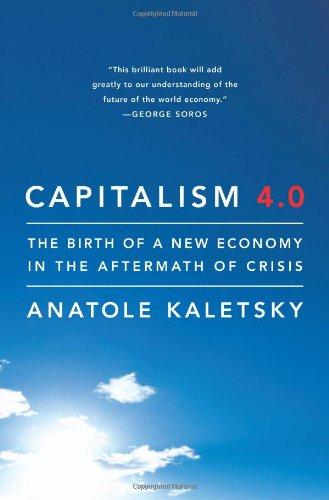
Capitalism 4.0: The Birth of a New Economy in the Aftermath of Crisis
by
Anatole Kaletsky
Published 22 Jun 2010
The response will be to try to overcome these problems with better institutions. Rather than abandoning hope in regulation and simply giving free rein to markets, Capitalism 4.0 will seek more intelligent policies that take account of known dysfunctions of government such as regulatory capture, rent-seeking,6 the political influence of special interests, and single-issue lobbies. It would be overoptimistic to imagine that such effort will be entirely successful. No one is likely to discover perfect answers to some of the deepest questions of social organization that have troubled political theorists since Plato and Aristotle,7 but an important part of any new approach will be to increase the flexibility of public policy and try to weaken the hold of the special interests that regulations create, some of which are found in the government itself.
…
No one is likely to discover perfect answers to some of the deepest questions of social organization that have troubled political theorists since Plato and Aristotle,7 but an important part of any new approach will be to increase the flexibility of public policy and try to weaken the hold of the special interests that regulations create, some of which are found in the government itself. One small way to soften the rigidities of regulation and limit the unproductive rent-seeking that tends to be created by government is to use sunset clauses on government rules of all kinds.8 Suppose, for example, that bank solvency regulations, employment laws, and even health and safety rules lapsed automatically and had to be redrawn every ten years. Far more thought and lobbying power would be devoted to serious debate about improving regulation and debating whether it was still needed, rather than exploiting and gaming a fixed set of rules.
…
Third, for Europe, an intellectual convergence with America will require policymakers and electorates to acknowledge some of the dysfunctional features of the European socio-economic system that have allowed special interests, such as agricultural lobbies and trade unions, to disguise what is essentially exploitative rent-seeking economic behavior, as culturally unique characteristics of the European model. The aftermath of the financial crisis will force Europe to adopt more market-oriented policies for trade, labor, and agriculture, and these policies will make its economic interactions with emerging economies more mutually beneficial and economically constructive.
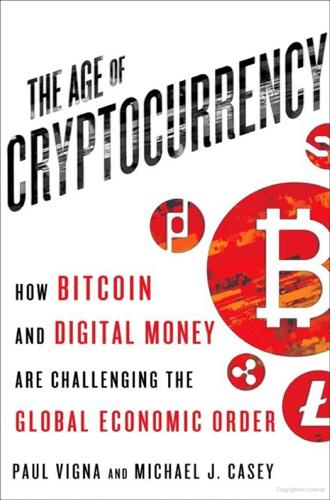
The Age of Cryptocurrency: How Bitcoin and Digital Money Are Challenging the Global Economic Order
by
Paul Vigna
and
Michael J. Casey
Published 27 Jan 2015
The ledgers they kept inside their institutions became the vital means through which societies kept track of the debts and payments that arose among their citizens. Thus the banks created the ultimate rent-seeking business, positioning themselves as fee-charging gatekeepers, managers of the financial traffic that made economies tick. Anyone sitting at the sending or receiving end of that traffic had no choice but to deal with a bank—much as Parisa Ahmadi did before the Film Annex changed its payment policy. As this new finance business grew and became more complex, other rent-seeking middlemen installed themselves as specialized providers of intermediated trust—from early bond and securities brokers, to insurance agents, to financial lawyers, to the payment processors and credit-card companies of our modern day.
…
But it also reflected a philosophical difference between believers in innovative projects who seek to profit by being first to market with new, cost-cutting business models, and believers in the prevailing ethos of Wall Street that Sandy Weill embodied. Wall Street banking is, if nothing else, a rent-seeking exercise. It would be inclined to preserve and strengthen centralized revenue streams such as credit-card transaction fees rather than expunge them. With the repeal of Glass-Steagall, and the waves of commercial-and-investment-bank mergers that followed Citigroup’s lead—Chase Manhattan with JP Morgan, Bank Boston with Fleet Bank and later with Bank of America—this ethos was now seizing control of the American financial system.
…
She should go to an ATM and withdraw as much money as she could. She didn’t understand why. Because, he told her, there was a chance U.S. banks wouldn’t open the next day. That frightening prospect—complete paralysis of the most important financial system in the world—was the price we paid for letting Wall Street deepen its model of centralized, rent-seeking power. The final social tab is still being tallied, but its costs go beyond what any bookkeeper can put into dollars and cents. One place it is felt is in the bitter taste that’s left in the mouths of citizens forced to prop up these banks. That has translated into a loss of trust in institutions generally, those of both Wall Street and Washington.
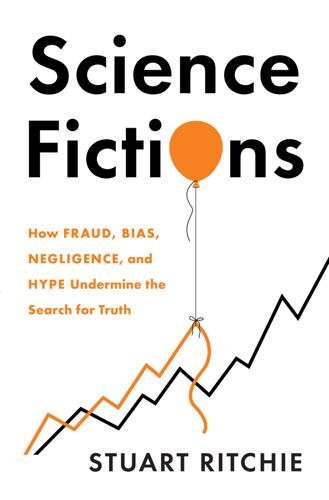
Science Fictions: How Fraud, Bias, Negligence, and Hype Undermine the Search for Truth
by
Stuart Ritchie
Published 20 Jul 2020
The time and expertise of peer reviewers is the crux of the whole scientific system, providing the critical analysis that’s required for science to progress. Yet those reviewers are volunteers and aren’t employed by the journals. They are free labour, so they clearly can’t be what justifies the cost. Rather, Elsevier and other for-profit publishers are engaging in what economists call rent-seeking: gaining more profits without providing more value.68 One highly critical investigation of the scientific publication system noted its absurdities: It is as if the New Yorker or the Economist demanded that journalists write and edit each other’s work for free, and asked the government to foot the bill.
…
Outside observers tend to fall into a sort of stunned disbelief when describing this setup … A 2005 Deutsche Bank report referred to it as a ‘bizarre’ ‘triplepay’ system, in which ‘the state funds most research, pays the salaries of most of those checking the quality of research, and then buys most of the published product’.69 Once you remember that the fees universities pay to rent-seeking companies such as Elsevier are largely public funds, the whole thing begins to seem immoral: shouldn’t universities be making more efficient use of taxpayer money? It’s not even that we should be opposed to the profit motive, or to commercial publishers getting involved in science. But the irrational system of prestige that’s built up around the journal publishing system represents a market failure, impeding the necessary competition that could drive down its costs.
…
ABC News abortion Abu Ghraib prison abuse (2003) accidental discoveries Acta Crystallographica Section E acupuncture Afghan hounds Agence France-Presse AIDS (acquired immune deficiency syndrome) Alchemist, The (Bega) Alexander, Benita Alexander, Scott algorithms allergies Alzheimer, Aloysius Alzheimer’s Disease Amazon American Journal of Potato Research Amgen amygdala amyloid cascade hypothesis anaesthesia awareness Fujii affair (2012) outcome switching Anaesthesia & Analgesia animal studies antidepressants antipsychotics archaeology Arnold, Frances arsenic artificial tracheas asthma austerity Australia Austria autism aviation Babbage, Charles Bacon, Francis bacteria Bargh, John Bayer Bayes, Thomas Bayesian statistics BDNF gene Before You Know It (Bargh) Bega, Cornelis Begley, Sharon Belgium Bell Labs Bem, Daryl benzodiazepines bias blinding and conflict of interest De Vries’ study (2018) funding and groupthink and meaning well bias Morton’s skull studies p-hacking politics and publication bias randomisation and sexism and Bik, Elisabeth Bill & Melinda Gates Foundation Biomaterials biology amyloid cascade hypothesis Bik’s fake images study (2016) Boldt affair (2010) cell lines China, misconduct in Hwang affair (2005–6) Macchiarini affair (2015–16) meta-scientific research microbiome studies Morton’s skull studies Obokata affair (2014) outcome switching preprints publication bias replication crisis Reuben affair (2009) spin and statistical power and Summerlin affair (1974) Wakefield affair (1998–2010) biomedical papers bird flu bispectral index monitor black holes Black Lives Matter blinding blotting BMJ, The Boldt, Joachim books Borges, Jorge Luis Boulez, Pierre Boyle, Robert brain imaging Brass Eye vii British Medical Journal Brock, Jon bronchoscopy Broockman, David Brown, Nick Bush, George Walker business studies BuzzFeed News California Walnut Commission California wildfires (2017) Canada cancer cell lines collaborative projects faecal transplants food and publication bias and replication crisis and sleep and spin and candidate genes carbon-based transistors Cardiff University cardiovascular disease Carlisle, John Carlsmith, James Carney, Dana cash-for-publication schemes cataracts Cell cell lines Cell Transplantation Center for Open Science CERN (Conseil Européen pour la Recherche Nucléaire) chi-squared tests childbirth China cash-for-publication schemes cell line mix-ups in Great Famine (1959–1961) misconduct cases in randomisation fraud in chrysalis effect Churchill, Winston churnalism Cifu, Adam citations clickbait climate change cloning Clostridium difficile cochlear implants Cochrane Collaboration coercive citation coffee cognitive dissonance cognitive psychology cognitive tests coin flipping Colbert Report, The Cold War collaborative projects colonic irrigation communality COMPare Trials COMT gene confidence interval conflict of interest Conservative Party conspicuous consumption Cooperative Campaign Analysis Project (CCAP) ‘Coping with Chaos’ (Stapel) Cornell University coronavirus (COVID-19) Corps of Engineers correlation versus causation corticosteroids Cotton, Charles Caleb creationism Crowe, Russell Csiszar, Alex Cuddy, Amy CV (curriculum vitae) cyber-bullying cystic fibrosis Daily Mail Daily Telegraph Darwin Memorial, The’ (Huxley) Darwin, Charles Das, Dipak datasets fraudulent Observational publication bias Davies, Phil Dawkins, Richard De Niro, Robert De Vries, Ymkje Anna debt-to-GDP ratio Deer, Brian democratic peace theory Denmark Department of Agriculture, US depression desk rejections Deutsche Bank disabilities discontinuous mind disinterestedness DNA (deoxyribonucleic acid) domestication syndrome doveryai, no proveryai Duarte, José Duke University duloxetine Dutch Golden Age Dutch Organisation for Scientific Research Dweck, Carol economics austerity preprints statistical power and effect size Einstein, Albert Elmo Elsevier engineering epigenetics euthanasia evolutionary biology exaggeration exercise Experiment, The exploratory analyses extrasensory perception faecal transplants false-positive errors Fanelli, Daniele Festinger, Leon file-drawer problem financial crisis (2007–8) Fine, Cordelia Fisher, Ronald 5 sigma evidence 5-HT2a gene 5-HTTLPR gene fixed mindset Food and Drug Administration (FDA) Food Frequency Questionnaires food psychology Formosus, Pope foxes France Francis, Pope Franco, Annie fraud images investigation of motives for numbers Open Science and peer review randomisation Freedom of Information Acts French, Chris Fryer, Roland Fujii, Yoshitaka funding bias and fraud and hype and long-term funding perverse incentive and replication crisis and statistical power and taxpayer money funnel plots Future of Science, The (Nielsen) gay marriage Gelman, Andrew genetically modified crops genetics autocorrect errors candidate genes collaborative projects gene therapy genome-wide association studies (GWASs) hype in salami-slicing in Geneva, Switzerland geoscience Germany Getty Center GFAJ-1 Giner-Sorolla, Roger Glasgow Effect Goldacre, Ben Goldsmiths, University of London Golgi Apparatus good bacteria Good Morning America good scientific citizenship Goodhart’s Law Goodstein, David Google Scholar Górecki, Henryk Gould, Stephen Jay Gran Sasso, Italy grants, see funding Granularity-Related Inconsistency of Means (GRIM) grapes Great Recession (2007–9) Great Red Spot of Jupiter Green, Donald Gross Domestic Product (GDP) Gross, Charles ground-breaking results groupthink ‘Growth in a Time of Debt’ (Reinhart and Rogoff) growth mindset Guzey, Alexey gynaecology h-index H5N1 Haldane, John Burdon Sanderson Hankins, Matthew HARKing Harris, Sidney Harvard University headache pills heart attacks heart disease Heathers, James height Heilongjiang University Heino, Matti Henry IV (Shakespeare) Higgs Boson Hirsch, Jorge HIV (human immunodeficiency viruses) homosexuality Hong Kong Hooke, Robert Hossenfelder, Sabine Houston, Texas Hume, David Huxley, Thomas Henry Hwang, Woo-Suk hydroxyethyl starch hype arsenic life affair (2010) books correlation versus causation cross-species leap language and microbiome studies news stories nutrition and press releases spin unwarranted advice hypotheses Ig Nobel Prize images, fraudulent impact factor India insomnia International Journal of Advanced Computer Technology Ioannidis, John IQ tests Iraq War (2003–11) Italy Japan John, Elton Journal of Cognitive Education and Psychology Journal of Environmental Quality Journal of Negative Results in Biomedicine Journal of Personality and Social Psychology journals conflict of interest disclosure fraud and hype and impact factor language in mega-journals negligence and Open Science and peer review, see peer review predatory journals preprints publication bias rent-seeking replication studies retraction salami slicing subscription fees Jupiter Kahneman, Daniel Kalla, Joshua Karolinska Institute Krasnodar, Russia Krugman, Paul Lacon, or Many Things in Few Words (Cotton) LaCour, Michael Lancet Fine’s ‘feminist science’ article (2018) Macchiarini affair (2015–16) Wakefield affair (1998–2010) language Large Hadron Collider Le Texier, Thibault Lewis, Jason Lexington Herald-Leader Leyser, Ottoline Lilienfeld, Scott Loken, Eric Lost in Math (Hossenfelder) low-fat diet low-powered studies Lumley, Thomas Lysenko, Trofim Macbeth (Shakespeare) Macbeth effect Macchiarini, Paolo MacDonald, Norman machine learning Macleod, Malcolm Macroeconomics major depressive disorder Malaysia Mao Zedong MARCH1 Marcus, Adam marine biology Markowetz, Florian Matthew Effect Maxims and Moral Reflections (MacDonald) McCartney, Gerry McCloskey, Deirdre McElreath, Richard meaning well bias Measles, Mumps & Rubella (MMR) measurement errors Medawar, Peter medical research amyloid cascade hypothesis Boldt affair (2010) cell lines China, misconduct in collaborative projects Fujii affair (2012) Hwang affair (2005–6) Macchiarini affair (2015–16) meta-scientific research Obokata affair (2014) outcome switching pharmaceutical companies preprints pre-registration publication bias replication crisis Reuben affair (2009) spin and statistical power and Summerlin affair (1974) Wakefield affair (1998–2010) medical reversal Medical Science Monitor Mediterranean Diet Merton, Robert Mertonian Norms communality disinterestedness organised scepticism universalism meta-science Boldt affair (2010) chrysalis effect De Vries’ study (2018) Fanelli’s study (2010) Ioannidis’ article (2005) Macleod’s studies mindset studies (2018) saturated fats studies spin and stereotype threat studies mice microbiome Microsoft Excel Milgram, Stanley Mill, John Stuart Mindset (Dweck) mindset concept Mismeasure of Man, The (Gould) Modi, Narendra money priming Mono Lake, California Moon, Hyung-In Morton, Samuel Motyl, Matt multiverse analysis nanotechnology National Academy of Sciences National Aeronautics and Space Administration (NASA) National Institutes of Health National Science Foundation Nature cash-for-publication and cell line editorial (1981) impact factor language in Obokata affair (2014) Open Access and open letter on statistical significance (2019) replication research Schön affair (2002) Stapel affair (2011) Nature Neuroscience Nature Reviews Cancer NBC negligence cell line mix-ups numerical errors statistical power typos Netflix Netherlands replication studies in Stapel’s racism studies statcheck research neuroscience amyloid cascade hypothesis collaborative projects Macleod’s animal research studies replication crisis sexism and statistical significance and Walker’s sleep studies neutrinos New England Journal of Medicine New York Times New Zealand news media Newton, Isaac Nielsen, Michael Nimoy, Leonard No Country for Old Men Nobel Prize northern blots Nosek, Brian Novella, Steven novelty Novum Organum (Bacon) Nuijten, Michèle nullius in verba, numerical errors nutrition Obama, Barack obesity Obokata, Haruko observational datasets obstetrics ocean acidification oesophagus ‘Of Essay-Writing’ (Hume) Office for Research Integrity, US Oldenburg, Henry Open Access Open Science OPERA experiment (2011) Oransky, Ivan Orben, Amy Organic Syntheses organised scepticism Osborne, George outcome-switching overfitting Oxford University p-value/hacking alternatives to Fine and low-powered studies and microbiome studies and nutritional studies and Open Science and outcome-switching perverse incentive and pre-registration and screen time studies and spin and statcheck and papers abstracts citations growth rates h-index introductions method sections results sections salami slicing self-plagiarism university ranks and Parkinson’s disease particle-accelerator experiments peanut allergies peer review coercive citation fraudulent groupthink and LaCour affair (2014–15) Preprints productivity incentives and randomisation and toxoplasma gondii scandal (1961) volunteer Wakefield affair (1998–2010) penicillin Peoria, Illinois Perspectives in Psychological Science perverse incentive cash for publications competition CVs and evolutionary analogy funding impact factor predatory journals salami slicing self-plagiarism Pett, Joel pharmaceutical companies PhDs Philosophical Transactions phlogiston phosphorus Photoshop Physical Review physics placebos plagiarism Plan S Planck, Max plane crashes PLOS ONE pluripotency Poehlman, Eric politics polygenes polyunsaturated fatty acids Popper, Karl populism pornography positive feedback loops positive versus null results, see publication bias post-traumatic stress disorder (PTSD) power posing Prasad, Vinay pre-registration preclinical studies predatory journals preprints Presence (Cuddy) press releases Prevención con Dieta Mediterránea (PREDIMED) priming Princeton University Private Eye probiotics Proceedings of the National Academy of Sciences prosthetic limbs Przybylski, Andrew psychic precognition Psychological Medicine psychology Bargh’s priming study (1996) Bem’s precognition studies books Carney and Cuddy’s power posing studies collaborative projects data sharing study (2006) Dweck’s mindset concept Festinger and Carlsmith’s cognitive dissonance studies Kahneman’s priming studies LaCour’s gay marriage experiment politics and preprints publication bias in Shanks’ priming studies Stanford Prison Experiment Stapel’s racism studies statistical power and Wansink’s food studies publication bias publish or perish Pubpeer Pythagoras’s theorem Qatar quantum entanglement racism Bargh’s priming studies Morton’s skull studies Stapel’s environmental studies randomisation Randy Schekman Reagan, Ronald recommendation algorithms red grapes Redfield, Rosemary Reflections on the Decline of Science in England (Babbage) Reinhart, Carmen Rennie, Drummond rent-seeking replication; replication crisis Bargh’s priming study Bem’s precognition studies biology and Carney and Cuddy’s power posing studies chemistry and economics and engineering and geoscience and journals and Kahneman’s priming studies marine biology and medical research and neuroscience and physics and Schön’s carbon-based transistor Stanford Prison Experiment Stapel’s racism studies Wolfe-Simon’s arsenic life study reproducibility Republican Party research grants research parasites resveratrol retraction Arnold Boldt Fujii LaCour Macchiarini Moon Obokata Reuben Schön Stapel Wakefield Wansink Retraction Watch Reuben, Scott Reuters RIKEN Rogoff, Kenneth romantic priming Royal Society Rundgren, Todd Russia doveryai, no proveryai foxes, domestication of Macchiarini affair (2015–16) plagiarism in salami slicing same-sex marriage sample size sampling errors Sanna, Lawrence Sasai, Yoshiki saturated fats Saturn Saudi Arabia schizophrenia Schoenfeld, Jonathan Schön, Jan Hendrik School Psychology International Schopenhauer, Arthur Science acceptance rate Arnold affair (2020) arsenic life affair (2010) cash-for-publication and Hwang affair (2005) impact factor LaCour affair (2014–15) language in Macbeth effect study (2006) Open Access and pre-registration investigation (2020) replication research Schön affair (2002) Stapel affair (2011) toxoplasma gondii scandal (1961) Science Europe Science Media Centre scientific journals, see journals scientific papers, see papers Scientific World Journal, The Scotland Scottish Socialist Party screen time self-citation self-correction self-plagiarism self-sustaining systems Seoul National University SEPT2 Sesame Street sexism sexual selection Shakespeare, William Shanks, David Shansky, Rebecca Simmons, Joseph Simonsohn, Uri Simpsons, The skin grafts Slate Star Codex Sloan-Kettering Cancer Institute Smaldino, Paul Smeesters, Dirk Smith, Richard Snuppy social media South Korea Southern blot Southern, Edwin Soviet Union space science special relativity specification-curve analysis speed-accuracy trade-off Spies, Jeffrey spin Springer Srivastava, Sanjay Stalin, Joseph Stanford University Dweck’s mindset concept file-drawer project (2014) Prison Experiment (1971) Schön affair (2002) STAP (Stimulus-Triggered Acquisition of Pluripotency) Stapel, Diederik statcheck statistical flukes statistical power statistical significance statistical tests Status Quo stem cells Stephen VI, Pope stereotype threat Sternberg, Robert strokes subscription fees Summerlin, William Sweden Swift, Jonathan Swiss Federal Institute of Technology Sydney Morning Herald Symphony of Sorrowful Songs (Górecki) t-tests Taiwan taps-aff.co.uk tax policies team science TED (Technology, Entertainment, and Design) Texas sharpshooter analogy Thatcher, Margaret theory of special relativity Thinking, Fast and Slow (Kahneman) Thomson Reuters Tilburg University Titan totalitarianism toxoplasma gondii trachea translational research transparency Tribeca Film Festival triplepay system Trump, Donald trust in science ‘trust, but verify’ Tumor Biology Turkey Tuulik, Julia Twitter typos UK Reproducibility Network Ulysses pact United Kingdom austerity cash-for-publication schemes image duplication in multiverse analysis study (2019) National Institute for Health Research pre-registration in Royal Society submarines trust in science university ranks in Wakefield affair (1998–2010) United States Arnold affair (2020) arsenic life affair (2010) austerity Bargh’s priming study (1996) Bem’s precognition studies California wildfires (2017) Carney and Cuddy’s power posing studies Center for Nutrition Policy and Promotion climate science in creationism in Das affair (2012) De Vries’ drug study (2018) Department of Agriculture Dweck’s mindset concept Fryer’s police brutality study (2016) image duplication in Kahneman’s priming studies LaCour affair (2014–15) Morton’s skull studies Office for Research Integrity Poehlman affair (2006) pre-registration in public domain laws Reuben affair (2009) Stanford Prison Experiment Summerlin affair (1974) tenure Walker’s sleep studies Wansink affair (2016) universalism universities cash-for-publication schemes fraud and subscription fees and team science University College London University of British Columbia University of California Berkeley Los Angeles University of Connecticut University of East Anglia University of Edinburgh University of Hertfordshire University of London University of Pennsylvania unsaturated fats unwarranted advice vaccines Vamplew, Peter Vanity Fair Vatican Vaxxed Viagra vibration-of-effects analysis virology Wakefield, Andrew Walker, Matthew Wansink, Brian Washington Post weasel wording Weisberg, Michael Wellcome Trust western blots Westfall, Jake ‘Why Most Published Research Findings Are False’ (Ioannidis) Why We Sleep (Walker) Wiley Wiseman, Richard Wolfe-Simon, Felisa World as Will and Presentation, The (Schopenhauer) World Health Organisation (WHO) Yale University Yarkoni, Tal Yes Men Yezhov, Nikolai Z-tests Ziliak, Stephen Zimbardo, Philip Zola, Émile About the Author Stuart Ritchie is a lecturer in the Social, Genetic and Developmental Psychiatry Centre at King’s College London.

The Fourth Revolution: The Global Race to Reinvent the State
by
John Micklethwait
and
Adrian Wooldridge
Published 14 May 2014
Some of the most far-seeing Chinese bureaucrats argue that SOEs will die a natural death as the Chinese economy matures: They should be understood as staging points on the road to full-blooded capitalism rather than ends in their own right.41 The reckoning in the rest of the world is even worse. Authoritarian modernization may have a successful record in Singapore and South Korea. But look at the Arab world: Egypt’s state capitalism was an excuse for rent seeking and incompetence (not least on the part of the dozens of companies, accounting for 10 percent of the economy, run by the military). Or look at sub-Saharan Africa: Crony capitalism is lowering growth and increasing inequality. For the state to direct capitalism, you need a strong and competent state—and sadly, most countries that are attracted to it have weak and incompetent ones.
…
Luigi Zingales of the University of Chicago’s Booth School of Business (who left Italy in 1988 because he felt his country was being destroyed by cronyism) calculates that the implicit subsidy that comes from banks being too big to fail is worth $34 billion a year.9 Two other economists, Thomas Philippon and Ariell Reshef, argue that between a third and a half of the huge increase in Wall Street pay has come from rents rather than productivity improvements.10 The fact that private-equity people can treat their income as capital gains is particularly disgraceful. And like agriculture, all this special treatment for finance creates red tape (witness Dodd-Frank) and distorts capitalism: Ever more finance is now being constructed in “dark pools” beyond the reach of regulators. There are innumerable other examples of rent-seeking special interests. If the government stopped subsidizing the production of fossil fuels, it could save $40 billion over the next decade.11 Spending on lobbying in Washington has more than doubled in the past fifteen years. The Supreme Court’s 2010 Citizens United decision has given companies carte blanche to spend freely on influencing elections.
…
Prasad Eye Institute, 204–5 Mac 400, 205 Macartney, George, 41 Macaulay, Thomas Babington, 222, 224–26 McConnell, Mitch, 256 McDonald’s, 157, 185 McGregor, Richard, 151, 157 Machiavelli, Niccolò, 29, 33 McKinsey, 194–95, 204 Macmillan, Harold, 69 Macrae, Norman, 75 Madison, James, 265 Ma Hong, 158–59 majority, tyranny of, 226, 250, 255 management, reinvention of, 189–92 Mandela, Nelson, 252 Mandelson, Peter, 95 Manhattan Institute, 82 Mann, Thomas, 125–26, 227 Manning, Bradley, 230 Manor, Tex., 210 Man Versus the State, The (Spencer), 59 Mao Zedong, 151 Marshall, Alfred, 233 Marshall, T.H., 74 Martineau, Harriet, 54 Marx, Karl, 45, 62–63, 70 state as seen by, 63–64 Marxism, see Communists, communism Mary II, Queen of England, 43 Mary Barton (Gaskell), 57 Mazzini, Giuseppe, 54 means testing, 243, 245 Meat Inspection Act (U.S., 1906), 72 Medicaid, 242 Medicare, 120, 123, 242 Medisave, 243 mercantilism, 40 Merkel, Angela, 12, 16, 230, 231 Mettler, Suzanne, 121 micro-powers, 260, 266 middle class, 124 entitlements and, 11, 17 government spending and, 11 as primary beneficiary of welfare state, 122 welfare state and, 17, 88 Middle East: China and, 152 failure of democracy in, 253 local government in, 217 Miliband, Ed, 114, 153 Milken, Michael, 129 Mill, James, 47, 48–49, 53, 140 Mill, John Stuart, 7, 9, 21, 27–28, 69, 80, 85, 135, 136, 219, 251, 255 background of, 47 expanded role of government embraced by, 56–57 freedom as overriding concern of, 47–48, 55, 222, 224, 226, 228, 250, 256, 268 free trade promoted by, 55 intellectual freedom as tenet of, 55 meritocracy promoted by, 53, 237 as public intellectual, 47 Mindlab, 220 Mises, Ludwig von, 83 Mississippi, 111 Modi, Narendra, 218 Moïsi, Dominique, 166 money politics, 256–58 Montefiore Medical Center, 209 Monti, Mario, 259 Mont Pelerin Society, 83, 85 Moody’s, 119 Morrill Act (U.S., 1862), 62 Morsi, Mohamed, 253 Moynihan, Daniel Patrick, 89 Mubarak, Hosni, 144, 253 Muggeridge, Malcolm, 67 Mughal Empire, 36 Mulgan, Geoff, 132 Musacchio, Aldo, 153 Muslim Brotherhood, 144, 253 Mussolini, Benito, 252 Myrdal, Alva, 169, 170 Myrdal, Gunnar, 37, 169, 170 Naím, Moisés, 186, 260, 266 Nanjing, 35 Napoléon I, Emperor of the French, 46 Narayana Hrudayalaya Hospital, Bangalore, 201 National Audit Office, British, 199 National Education Association, 114 National Front, French, 259 National Health Service, British, 62, 82, 109, 183, 199, 205 spending on, 130–31 National Health Service Act (British, 1948), 75 National Institute for Health and Care Excellence (NICE), 243 National Insurance Act (British, 1946), 75 National Journal, 256 National Labor Relations Board, 73 national minimum, 68, 69 National Statistics Office, British, 19, 177 nation-state, 6, 8, 221 commerce and, 33 democracy and, 259, 262 globalization and, 259–60, 262 government efficiency in, 37 innovation and, 37, 39 legitimacy of, 33 local-government resistance to, 260 minimal welfare vote of, 33 representative institutions in, 38 rights of citizens in, 30, 43–44 rule of law in, 37–38 security as primary duty of, 29, 30, 32, 37, 39, 181, 222, 268 Navigation Acts, 50 Nazis, 71, 232 neoconservatives, 89 Netherlands, government spending in, 75 New Brutalism, 89 New Deal, 72, 82, 192, 236 New Digital Age, The (Schmidt and Cohen), 210–11 New Labourites, 94–95, 99 Newnham College, 58 New Republic, 71 New Statesman, 67 Newsweek, 86 New York Daily News, 227 New Zealand, 239 Niebuhr, Reinhold, 265 Nigeria, 234 night-watchman state, 7, 9, 48, 61, 80, 86, 101, 136, 140, 181, 232 1984 (Orwell), 71 Nixon, Richard, 77 Nobel Prize, 82, 86, 91 Nock, Albert Jay, 177 nongovernmental organizations (NGOs), Chinese, 158 Northcote, Stafford, 52–53 Norway, 1990s financial crisis in, 176 Novey, Don, 112–13, 181 Nye, Joseph, 3, 198 Obama, Barack, 100, 126, 192, 236, 241, 255, 256 big-government ideology of, 98 health-care reforms of, 20, 98, 117, 199, 208, 217 pragmatism of, 98, 220 Obama administration, 220, 231 regulation and, 117 occupational legislation, 117–18 O’Donnell, Christine, 227–28 OECD (Organization for Economic Cooperation and Development), 186 Office of Social Innovation and Participation, U.S., 220 “Old Corruption,” 6, 49, 51, 58, 149, 185, 227, 256, 268, 269 Oldham, John, 195 Olivares, Count-Duke, 37 Olson, Mancur, 109–10, 111 Olson’s law, 111–15, 117, 124, 237 On Liberty (Mill), 55, 59, 69 Open Society and Its Enemies, The (Popper), 83 Open University, 180 opinion, freedom of, 224 Orban, Viktor, 254 Organization for Economic Cooperation and Development (OECD), 186 Ornstein, Norman, 125–26, 227 Orwell, George, 71 Ottoman Empire, 35 Our Enemy, the State (Nock), 177 Packard, David, 105 Paine, Thomas, 21, 43–44 Pall, Niti, 206 Palme, Olof, 170, 175 Palo Alto, Calif., 105, 106 Papademos, Lucas, 259 Parag, Khanna, 218 Parliament, British, 31, 43 Party, The (McGregor), 151 Party for Freedom, Dutch, 259 patronage, 50, 52–53, 222, 237, 240 Paul, Ron, 34 payroll withholding tax, 82 Peace Corps, 216 Peace of Westphalia (1648), 38 Pearson, Karl, 68 Peel, Robert, 51, 54 pensions, 16, 267 Asian expansion of, 141–42 in Brazil, 18 in California, 113, 115, 119–20, 130 in China, 156, 183 defined-benefit vs. defined-contribution systems of, 184 as entitlements, 79, 184, 243 in Scandinavia, 171, 173, 184 spiking of, 184 as unfunded liabilities, 14, 119 People’s Action Party, Singapore, 134, 137–38 Peterson, Pete, 131 Peterson Foundation, 255 Peterson Institute for International Economics, 154 PetroChina, 152, 154, 155 Philippines, health insurance in, 141 Philippon, Thomas, 239 philosophical radicals, 48, 49, 85, 181 physician’s assistants, 204 Plato, 250, 255, 260, 264 pluralism, 211–14 police, technology and, 181–82 Political Economy (Mill), 57 political parties, declining membership in, 11, 261 politics: government bloat and, 10–11 money in, 256–58 polarization of, 11–13, 100, 124–27, 164, 255, 256 talent flight from, 127 Pomperipossa effect, 170 poor, poverty: failure of welfare state programs for, 87–89 public spending as biased against, 122–24 welfare state and, 68 Popper, Karl, 83 population: aging of, 15, 122–23, 124, 165, 174, 178, 183–84, 232, 241–42 urban shift of, 149, 218 Porter, Michael, 131 Portugal, public spending in, 99–100 Potter, Laurencina, 65–66 Potter, Richard, 65 Principles of Political Economy (Mill), 55 Pritchett, Lant, 147 private life, freedom of, 224 privatization, 8, 94, 96, 234–37 Procter & Gamble, 190 productivity, 178 Baumol’s disease and, 110 in public vs. private sectors, 18–20, 177, 285 state capitalism and, 154 Programme for International Student Assessment (PISA), 148, 206–7 Progressive Party, 72 progressivism, 240 as self-defeating, 229–30 property rights, 40, 43, 224 Proposition 13, 91, 92, 107 Protestants, 38 public sector, 76, 89, 115, 177, 180 technology and, 180 Pudong, China, 1–5, 8 Pune, India, 218–19 Pure Food and Drug Act (U.S., 1906), 72 Putin, Vladimir, 144, 153, 253 Pythagorean theorem, 31 Qianlong, Emperor of China, 41 racism, 88 Rauch, Jonathan, 231 Reagan, Ronald, 8, 28, 88, 91–92, 97, 198 Friedman and, 86 small-government ideology of, 95 see also Thatcher-Reagan revolution reason, religion as opponent of, 48 Reform, 203 Reformation, 48–49 Reinfeldt, Fredrik, 184 religion: freedom of, 224 reason as opponent of, 48 rent control, 82 rent seeking, 239 “Report on Manufacturers” (Hamilton), 150 Republic, The (Plato), 250 Republican Party, U.S., 123, 236–37 increased taxes opposed by, 100, 255 tax rises approved by, 12 Reshef, Ariell, 239 retirement age, 184–85, 242 Reykjavik City Council, 261 Ricardo, David, 49 Richelieu, Cardinal, 37 Right, 82, 93 government bloat and, 10–11, 98 government efficiency and, 187 and growth of big government, 10, 95, 98, 228, 230–31 privatization and, 234, 236–37 welfare services opposed by, 88, 185 rights: Fourth Revolution and, 270 liberal state’s expansion of, 7, 48, 49, 51 in nation-state, 30, 43–44 of property, 40, 43, 224 protection of, as primary role of liberal state, 45 see also freedom Rights of Man, The (Paine), 44 Ripley, Amanda, 206–7 road pricing, 217 Road to Serfdom, The (Hayek), 10, 83, 86 Rodrik, Dani, 262 Romney, Mitt, 217 “Roofs or Ceilings” (Friedman), 82 Roosevelt, Franklin Delano, 72–73, 252 Roosevelt, Theodore, 71–72, 258 rotten boroughs, 51, 125, 227, 251, 257, 269 see also gerrymandering Rousseau, Jean-Jacques, 44, 45 Rousseff, Dilma, 153 Royal Society, 42 Rumsfeld, Donald, 77, 253 Russia, 71 China and, 152 corruption in, 186 failure of democracy in, 253, 262 privatization in, 96 Singapore model admired by, 144 state capitalism in, 153, 154 Russian Revolution, 45 Rwanda, 144 Sacramento, Calif., 105, 106, 127 Sahni, Nikhil, 200 St.
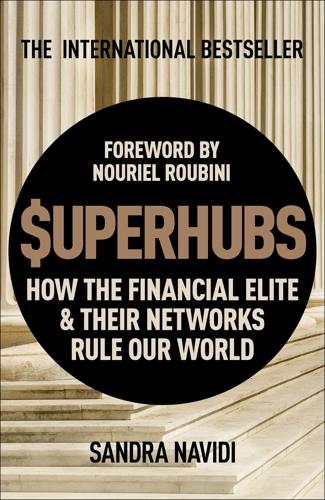
SUPERHUBS: How the Financial Elite and Their Networks Rule Our World
by
Sandra Navidi
Published 24 Jan 2017
It is now at an all-time high and set to increase further: Today eighty people hold the same amount of wealth as the world’s 3.6 billion poorest, and the combined wealth of the richest 1 percent will soon overtake that of the other 99 percent.7 Many in this group of super-elites are financiers. This development has been exacerbated by the fact that the wealthy can capitalize on returns on ownership rather than solely on labor, a practice known as “rent-seeking.” In other words, they can let their money work for them, and over time these investments yield a higher rate of return than the economy’s rate of growth. In contrast, salaries derived from labor don’t rise as quickly as the returns on capital.8 The opportunity gap has also increased. Rather than perfect competition, our system creates superstars—or superhubs—and amplifies their rewards in a reinforcing feedback loop where the winners of the competition receive the means to win further competitions, so that all but a few competitors are eliminated.9 Tight interpersonal networks contribute to the unequal access to opportunities, and—as a consequence—people lose trust in the system.
…
During the course of the debt-fueled global growth over the last thirty years, the status resulting from jobs that carry a social value—such as the medical or educational professions—has been overtaken by the status money provides. People in finance have made increasingly more money and seen their status rise as a result. Salaries in the financial industry are typically significantly higher than salaries in other sectors. Executives can capitalize on those salaries through rent-seeking—returns on ownership rather than from labor or production—as they have access to investment opportunities to put that money to work for them. Location: Reputation Matters Reputation is an important facet of status, reflecting integrity and competence. We automatically assess other people based on their reputations and consider good character a precondition for doing business.
…
See Network power undue concentration of, 164 Power lunches, 124–125 Power of Alumni Networks, The, 42 “Power-law distribution,” 20 “Predators’ Ball,” 192 Predictions, 50 Preferential attachment, xxvi “Pricelings,” 103 Prince, Chuck, 56, 139–140, 203 Princeton University, 36, 50, 157, 199 Principles, 63, 71 Printing money, 178, 211 Private banks, 37 Private equity firms, 61, 144 Private parties, 126–128 Private sector, 164–165 Prostitution, 194 Protectionism, 212 Psychological detachment, 223–224 Psychopaths, 66 Public sector, 164–165, 168 Purcell, Philip, 139 Putin, Vladimir, 114–116, 219 Q Qatari ruling family, 171 R Racial discrimination, 198, 200, 201, 203 “Radical truth,” 71 Rainbow Room, 109–110 Rama, Edi, 27 Rand, Ayn, 71 Rania, Queen, 114 Reddit, 203 Reflexivity theory, 63 Regular banks, 37 Regulatory capture, 164, 217–218 Reinhart, Carmen, 107 Relational capital, 97 Relational capture, 163, 217 Renaissance Technologies, 87–88 Renova Group, 144 “Rent-seeking,” 12, 22 Renumeration, 87 Reputation integrity as source of, 59 methods of bolstering, 40 status and, 22–23 Research firms, 43 Reset, 203 Residences, 89–92 Residential mortgages, 12 Resilience gap, 156–158 “Revolving door” phenomenon description of, 10–11, 163, 218 Robert Rubin as example of, 163–170 Tony Blair as example of, 170–172 Rhodes, Bill, 131 Rice, Condoleezza, 172 “Rich-get-richer phenomenon,” xxvii, 19, 77, 92 Rikers Island, 39, 193 “Rise of the Overclass, The,” 80 Risk, 30 Risk management systems, 30, 64 Risk taking, 66, 225 Ritz Hotel, 132 Robbins, Tony, 23 Robertson, Julian, 27 Robin Hood charity gala, 75–76 Robin Hood Foundation, 75–76, 103 Robinson, James D.
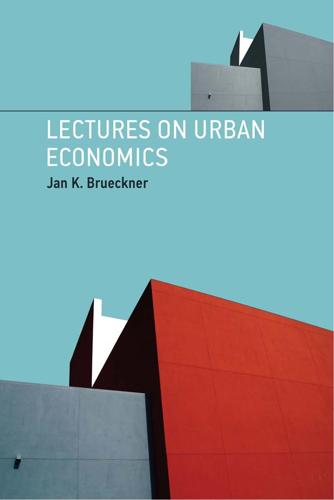
Lectures on Urban Economics
by
Jan K. Brueckner
Published 14 May 2011
Local governments could produce public goods inefficiently as a result of inattention or laziness. Alternatively, local governments could be efficient producers, but they could engage in “rent seeking,” in which some tax revenue is diverted to uses that benefit local officials (nice offices, generous pensions, and so on) without helping consumers. Competition between jurisdictions might help to limit such undesirable behavior. Jurisdictions in which inefficiency or rent seeking leads to excessive taxes relative to the public goods provided will fail to attract residents who are voting with their feet. They will also fail to attract housing developers, who will build projects in jurisdictions with lower tax burdens.
…
-C., 84n Landing fees, 113, 114 Largey, A., 80 Leape, J., 77n Lee, K., 219n Leisure, 53 LeRoy, S., 54n Levitt, S., 220 Liebman, J., 153 Linneman, P., 138, 144, 145 Locational equilibrium, 28 London, 77, 107 Los Angeles, 137, 187, 200, 243 Low-Income Housing Tax Credit program, 152 Maintenance, of homes, 79, 119, 124, 130, 138, 157 Majority voting, 161, 166, 168, 177n, 180 Manhattan, 36, 86 Marginal social benefit, of public good, 162, 163, 181n, 182, 185 Mariel boatlift, 141 Market failure, 72–82, 89 283 Matching grants, 184 Mayo, S., 117n McDonald, J., 40n McGrath, D., 70, 71 McMillen, D., 37n, 39n Median voter, 164–167 Mental illness, 154 Metropolitan government, 173 Mexico City, 67n, 187 Miami, 141–144, 243 Mieszkowski, P., 118 Migration, 48–51, 65–68, 184, 245 Mills, E., 24 Minimum-crime allocation, 226–229 Minimum dwelling size, 155–157 Minimum lot size, 86, 172 Mortgages, 115, 118n, 119–124, 127–136 defaults on, 131–134 interest on, 115, 118n, 119–123, 127, 136 Moving to Opportunity program, 153, 218 Mumbai, 84 Muth, R., 24 Narwold, A., 126, 128n Nechyba, T., 70n, 72n, 173n Neighborhood effects, 153, 173, 208, 218 New Haven, 118 New York, 23, 24, 54, 113, 137, 138, 144, 243 Ng, C., 60n Oates, W., 180n Obesity, 69, 80, 205 Occupational choice, 208, 210, 213, 217, 219 O’Flaherty, B., 153n Ogawa, H., 59n Open city, 49, 50n, 65 Open space, 73–76, 81–83, 89 Oreopoulos, P., 153n Output per worker, 2–4, 11 Pack, H., 169n Pack, J., 169n Papageorgiou, Y., 24n Paris, 36, 55, 84, 85 Parking, charges for, 108 Parks, 75, 77, 159, 160 Patents, 7, 8, 10 Peer-group effects, 173 284 Peoria, 46 Pigou, A., 193 Pigouvian tax, 106n, 193–195, 200, 202, 205 Pines, D., 24n Pinto, S., 219n Police protection, 160, 161, 174, 178–181, 221 Pollution abatement, 189–193, 197–205 Pollution rights, 200–204 Pollution standard, 193, 195, 200, 202, 205 Polycentric city, 58, 59 Population density, 23, 39–41, 44–50, 57, 59, 67 Portland, Oregon, 81, 243, 244 Portney, P., 179 Price elasticity, 117 Price function, hedonic, 33, 115–118, 136, 179, 180, 204, 242, 244 Pride of ownership, 129, 136 Prisons, 207, 209, 212–215, 219, 220 Production, centralized vs. dispersed, 16–18 Production function, 3, 7, 8, 34, 35 Production processes weight-gaining, 15 weight-losing, 14, 15 Productivity, 2, 5, 9, 10, 20, 66, 222–229 Property, abuse of, 133–136 Property rights, 196–199, 205 Property tax, 77, 78, 119–124, 127, 128, 134, 136, 169–172, 179–184 Property value, maximization of, 161, 182 Proportional rent subsidies, 146–155 Public-good congestion, 174, 176, 215, 216n Public transit, 26, 54, 70n, 107, 108 Pure public good, 174, 176n Quality of life, 84, 152, 187, 207, 231, 232, 241–245 Quigley, J., 118n, 154 Radial roads, 25, 56n, 68, 72n Raphael, S., 157 Rappaport, J., 54n, 245 Redevelopment, 62, 64, 69, 79 Rent control, 137, 138, 141–145, 157 Rent seeking, 185 Retail agglomeration, 18–21 Rhee, H.-J., 61n Rhode, P., 169n Index Ridker, R., 204 Roback J., 232, 233, 241 Rosen, S., 118 Rosenthal, S., 10, 55, 243, 244 Sacerdote, B., 219 Saks, R., 89 Savageau, D., 243 Scale constant returns to, 35, 112, 235 economies of, 1–5, 8, 16–21, 35 Scheinkman, J., 219 Schools, 77, 78, 160, 169, 172 Scotchmer, S., 177n Section 236 program, 152 Self-financing, 112 Self-selection, 80, 153, 205n Selod, H., 61n Sewage and sanitation districts, 178 Shipping, cost of, 6, 7, 11, 13 Shopping, 19 Shopping malls, 18, 19 Shoup, C., 221n Shoup, D., 108 Sinai, T., 129n Singapore, 77, 107 Sjoquist, D., 61n Slums, 145–153, 157 Small, K., 24n, 59n, 76n, 92n, 112n Smith, V., 204 Smolensky, E., 157 Social interaction, 69, 80 Social networks, 208, 218, 219, 230 Social planners, 73, 101, 104, 105, 163, 165 Social surplus, 192, 194, 198, 199 Sonstelie, J., 54n, 126, 128n, 179, 180 Souleles, N., 129n Spatial mismatch, 60, 61 Spatial structure, 23, 24, 27, 28, 31, 37, 43–45, 49–55, 76, 81 Special districts, 159, 177 State aid to localities, 172, 173 St.
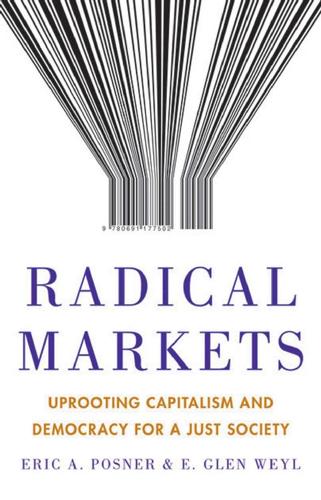
Radical Markets: Uprooting Capitalism and Democracy for a Just Society
by
Eric Posner
and
E. Weyl
Published 14 May 2018
We benefited from discussions with Michael Clemens, who shared some of his unpublished research with us. See also Michael Clemens, Economics and Emigration: Trillion Dollar Bills on the Sidewalk?, 25 Journal of Economic Perspectives 3 (2011). 4. Barry Baysinger, Robert B. Eckelund, Jr., & Robert D. Tollison, Mercantilism as a Rent-Seeking Society, in Roger D. Congleton, Arye L. Hillman, & Kai A. Konrad, eds., 40 Years of Research on Rent-Seeking 2: Applications: Rent-Seeking in Practice (Springer, 2008). 5. Furniss, Position of the Laborer in a System of Nationalism. 6. François Bourguignon & Christian Morrisson, Inequality Among World Citizens: 1820–1992, 92 American Economic Review 727 (2002). 7.
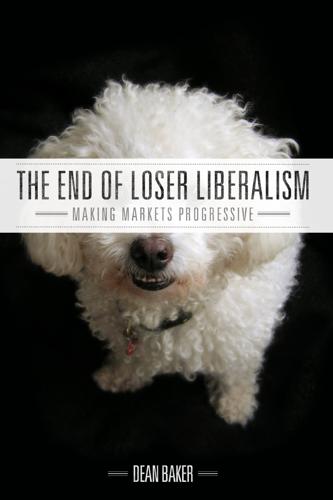
The End of Loser Liberalism: Making Markets Progressive
by
Dean Baker
Published 1 Jan 2011
This is the sort of activity that has quadrupled the financial sector’s share of the economy. It is not about allocating capital to its best uses or making savings more secure, it’s about finding clever ways to rip off taxpayers, productive businesses, and other actors. The economy will benefit from having less of this sort of inefficient rent-seeking behavior. While this may have seemed like a radical assessment a decade ago, even the IMF now recognizes that there are substantial rents in the financial sector and that governments should adopt policies to reduce the sector’s size.[86] Tremendous waste in the financial sector is not the only justification for reducing its size.
…
It is worth noting that a much higher share of doctors in the U.S. are specialists, who require more years of training, and therefore command higher salaries than family practitioners, than in most other wealthy countries. It is not clear that the greater number of specialists improves the quality of care, but it is likely that they are used in the United States in instances in which family practitioners would suffice. This sort of rent-seeking, with specialists inserting themselves into situations where their skills are not necessary, is exactly what would be expected when government interventions obstruct the normal workings of the market. [77] Once while on a panel discussing trade policy, I made a reference to the effort in the 1990s to tighten industry requirements in order to reduce the number of foreign-born doctors who could practice in this country.
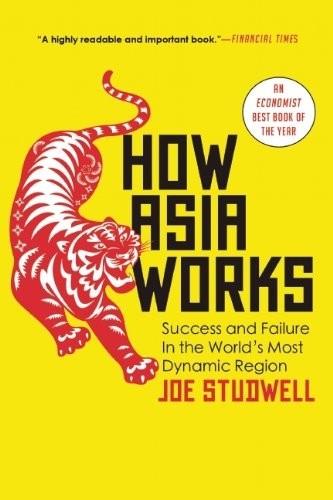
How Asia Works
by
Joe Studwell
Published 1 Jul 2013
Manufacturing firms are nurtured by the state in two ways: through protection and through subsidy. These interventions create breathing space for entrepreneurs while they learn to manufacture competitively. Unfortunately, protection and subsidy also bring with them a well-known risk – one which economists call ‘rent seeking’. In a developing country, rent seeking refers to the propensity of entrepreneurs to concentrate their efforts on obtaining protection and subsidies (rents) from the state without delivering the technological progress and competitiveness that economic development requires. The problem is a very real one and has undermined industrial development efforts in many poor countries.
…
What created the Canons, the Samsungs, the Acers and so on in Japan, Korea and Taiwan was the marriage of infant industry protection and market forces, involving (initially) subsidised exports and competition between manufacturers that vied for state support. The north-east Asian states found ways to overcome the problems that afflicted the ISI policies that were promoted in the 1950s (including by the World Bank in its early, ‘left-wing’ incarnation). Contrary to the claims of many economists, rent-seeking and crony capitalism did not inevitably undermine industrial policy so long as sufficient discipline could be wrapped around infant industry promotion. The mix of plan and market recalls the British development economist Ronald Dore’s contemporary observation about foreign perceptions of Japan at the height of its industrialisation: ‘Left-wing … observers come back from Japan convinced they have seen a shining example of state planning,’ he wrote.
…
Pierpont 171 Multimedia Super Corridor (MSC) 134, 306n157 MV Agusta 149, 150 Myanmar xx, 246 Nadzmi Mohd Salleh 149, 311n203 Nasser, Gamal Abdel 93 National Development and Reform Commission (NDRC) 97, 240, 255 National Resources Commission (NRC) 96–7 Naughton, Barry 255 Negros Occidental 34, 40–7 neo-classical economists 101–2, 103, 267 Netherlands 290n10 New People’s Army (NPA) 36–7, 38, 41, 45 New Zealand 61, 81 nihonjinron 179 Niigata 14 Nippon Kangyo 176 Nippon Steel 117, 142, 300n108 Nishiyama Kōichi 63, 178, 230 Nissan 8, 160, 276n8 Nolan, Peter 316n248 non-bank financial institutions (NBFIs) Korea 184–5, 319n27 Thailand 200, 201 non-government organisations (NGOs) 44–6 North Korea xviii agriculture 4 land reform xvi, 21, 22, 28 Nursalim 326n92 Ohkawa, Kazushi 100 Ohmae, Kenichi 131, 133 oil palm 68, 141 oligopolies, China 235, 236–7 Pakistan 66, 242 Papua New Guinea xx, 113 Park Chung Hee xxv, 65 agriculture 28–9, 66, 296n75 assassination 108, 122 Blue House 109–11 books 93, 129, 131 car industry 114, 121 and Chung Ju Yung 112, 137 coup 93, 298–9n96 finance 102, 179–82, 195, 327n96 HCI drive 95 and Japan 94, 101, 127 liberation aristocrats 111, 132 and Mahathir 304n142 manufacturing 92–5, 104 POSCO 95, 115, 116, 118 Seodaemun 111 and US 294–5n57 Park Tae Joon 116, 119 Paron Issarasena 314n230 Pasuk Phongpaichit 58 Perodua 146, 150, 313n216, 314n227 Perwaja 140, 141–5, 147, 308n183, 309n187, 309–10n191–2, 310n196 PetroChina 234, 235 Petronas 139, 141 Petronas Twin Towers 139 Pheng Yin Huah 144 Pheng family 144 Philippines 270 agriculture 6, 8 crony capitalism 108 democracy xxiv education xxii finance 169, 183, 188–93, 217, 218, 317n7 land reform xvii, 33–47, 56, 281n56, 281n61, 282n68, 283n74 manufacturing 106, 154–5, 163 rule of law xxv and US 69, 297n83 photovoltaic cells 252–3 Pitt, William 290n18 plantations 7, 52–5, 67–8, 284n87 population xxi China 264–5 POSCO (Pohang Iron and Steel Company) 95, 115–18, 119, 141, 145, 300n108 power equipment 242 Prawiro, Radius 211 Preston, Lewis T. 273n2 pribumi 207 Princip, Gavrilo 3 private sector 108, 157 China 235–6, 249–53 Korea 94 Malaysia 131, 132, 141, 152 Taiwan 186 protectionism 79–81, 82–3, 130, 134, 290–1n19, 20, 315n234 Proton 134, 143–49, 306n159, 310n198, 311n203, 312n204–5, 312n212 Prussia 79, 83, 85, 86, 101, 290n17, 291n25 Pusan 113 Pyle, Kenneth 85 Quek Leng Chan 138 Rahardja, Hendra 215, 328n108 railways 248, 260 Razak, Abdul 128, 141 Razak, Najib 307n163, 312n213 Razaleigh Hamzah 307n169, 308n172 Reden, Graf von 291n25 rediscounting 218 Indonesia 214 Japan 177, 178 Korea 179 Malaysia 195 Philippines 192, 193, 322n50 Thailand 199 Ren Zhengfei 246 Renault-Nissan 127, 302n127 rent seeking 75, 108, 156 Rhee, Syngman 22, 27, 28, 69, 99, 105, 110, 136 Riady, Mochtar 205, 325n85, 86 Ricardo, David 83, 101 rice China 226 Indonesia 50 Japan 62 Korea 63 Philippines 48–9 Thailand 57–8 Rin Kei Mei 311n203 Rizhao Steel 237 Roh Tae Woo 302n126 Rosovsky, Henry 100 Rostow, W.W. xv, 102, 172, 297n82, 316n6 rubber 6, 52–3, 55, 57, 67, 68, 141, 285n97 rule of law xxv Russia agriculture 4 banks xix, 317n8 and China 96 education xxiii financial deregulation 172 land reform 21, 24 manufacturing 81, 232 see also Soviet Union Sahashi Shigeru 78 Salim, Emil 214, 313n225, 328n105 Samsung 100, 105, 155, 246, 296n71, 300n110 car industry 126, 302n127 finance 93, 183 sangyō gōrika 90 Sany 244, 255, 333n38 Saudi Arabia 300–1n115 savings 317n7 Korea 182, 319n30 Malaysia 197 Philippines 188 Taiwan 319–20n30 Thailand 201 Schumpeter, Joseph 328n114 Sen, Amartya xxvi Seoul 108–9, 110 service sector 74, 288–9n3 India 164 Japan 161 shadow banking 258–9 Shanghai Automotive Industry Corp (SAIC) 127 Shanghai Electric 242 Shenhua Energy 234 Shibusawa Eiichi 87 Shih, Stan 251 Shin, Jang-Sup 162–3 Shinjin 126, 302n125 shipbuilding China 243 Korea 122 Singapore xiv, xix–xxi, 79, 270 casino resort 137, 307n164 and Malaysia 195 manufacturing xviii, 289n3 stock exchange 198 Sinopec 234 Smith, Adam 83, 95, 101, 290n18 social mobility 66, 288n125 Soedradjad Djiwandono 153, 213, 214, 326n95 Soeryadjaya, Edward 214, 215 Soeryadjaya, Edwin 153, 314n227 sogo shosha 130 solar power 240 Sony 78 South Korea see Korea Soviet Union xix economic development 75 education xxii, xxiii manufacturing 158 see also Russia soybeans 227 Spain 171, 316n4 Sri Lanka 53 SsangYong 126, 302n127 State Asset Supervision and Administration Commission (SASAC) 234, 240 state enterprises 158 China 82, 233–4, 239–50, 254, 264 Taiwan 82, 96, 97, 98–100, 102, 153, 239 steel 106–7, 300n108 Japan 159, 294n43 Korea 95, 116–17, 141–2, 145 Malaysia 140, 141–5, 149, 151, 308n183, 187, 309–10n191–2, 310n196 Stevenson, Sir James 53 Stevenson Restriction Scheme 53 stock markets 174, 218 China 254 Indonesia 212 Japan 177–8 Korea 184, 319n27 Malaysia 196, 197 Taiwan 187 Thailand 202 Sudirman Central Business District (SCBD) 212 Suehiro Akira 154 sugar 6, 67 China 227 Indonesia 51 Philippines 35, 43, 44–5, 46, 47 Taiwan 32, 276n5, 280n52 Suharto 56, 325n84 agriculture 51 finance 103, 203, 209–11, 313n225, 326n96 and Liem 204, 205 manufacturing 153 Suharto, Tommy 210, 215, 270, 326n96 Suji Kōji 81 Sukarno xxv, 69, 203, 326n89 agriculture 49 finance 203, 208 Sumarlin, Johannes 211, 212 Sumatra 51 Sumitomo 88 Sun Yat-sen 82, 93, 96, 290n16 Suntech 252–3 Sutowo, Ibnu 213, 327n101 Suzuki, Kazumasa 130, 304n140 Sweden 164 Syed Mokhtar al-Bukhary 138 Taipei 196 Taiwan xiii–xvi, xx, xxvii agriculture 3–4, 6–7, 8, 12, 47, 48, 62, 63 authoritarianism xxiv bureaucracy 97–8, 101, 290n10 capital controls 173 car ownership 310n197 economic development 69 education xxii–xxiii exchange rate 262–3 finance xvii–xviii, 157, 169, 170, 174, 185–8, 218–19 and Japan 82, 87 land reform xvi, xxvi, 3, 7–8, 9, 22, 26, 28, 30–3, 61, 68, 280n52 manufacturing xvi–xvii, 33, 69, 77, 78, 98–101, 103–4, 153, 158, 249, 251, 295n66 social mobility 65 state enterprises 83, 96, 97, 98–9, 239 steel 106, 107 and US 165, 297n83 Tan, Vincent 140, 308n176 Tan Tat Wai 142 Tanin 154 Tansil, Eddy 215 Task Force Mapalad 47 Tata Consultancy Services (TCS) 163 Tawney, R.H. 17 tea-housing 110 technological learning xiii, 74, 156, 223 China 223–4, 249 Korea 123, 126–7, 151, 181 Malaysia 129, 134, 136, 143, 144, 147 Philippines 155 Thailand 154 telecommunications 99, 244–5, 246 textile industry Japan 86, 87 Korea 94, 294n48 Thailand xiv, xv, 174, 270, 317n7 agriculture xvi, 56–60 finance 169, 188, 194, 198–201, 218 Hyundai 113 manufacturing xvii, 154, 157, 163, 302n131, 314n230 and US 69, 297n83 Thaksin Shinawatra 60, 287n114 Thieu, Nguyen Van 37, 281n62 Tokyo 14 Toyoda, Sakichi 292n27 Toyota 8, 127, 146, 153, 276n8, 288n125, 292n27, 302n129, 314n227 trade 84, 214 and agriculture 7–8 China 224 and manufacturing 74, 75–6, 77–8 and services 74 surpluses 158–9 Trebilcock, Clive 89 Tunku 128–9, 137, 303n134 Turkey 93 Turnbull, George 124 Ulsan 108–9, 114, 115, 120, 146 United Kingdom agriculture 9 and Malaysia 52–5, 105, 128 manufacturing 75, 84, 86 protectionism 80, 81, 83–4, 291n20 Proton 143 steel 106 and Thailand 200 trade surplus 158 United States agriculture 5, 61 banks 176, 177 and east Asian development 165–6, 316n249 finance 172, 173, 217 free market economics xiv, 268 grants and aid 297n83 Huawei 246–7 Hyundai 123, 124–5, 302n124 and Indonesia 69 interest rates 189 and Japan 90–1, 101–2, 291n22 and Korea 180, 181, 183, 318n22 and land reform 9, 22–5, 27, 30, 31, 32, 33, 34, 66–7, 68, 102, 165, 279n33, 279n38 manufacturing 101, 161, 170 and Philippines 33, 34, 48, 69, 190–1, 280n55, 322n46 protectionism 79, 80, 84, 291n19 Proton 142 rail network 247 steel 106, 117 and Taiwan 103–4 and Thailand 69, 201 trade surplus 158 Vajiravudh, King 57 Venezuela 242 Vietnam xix, xxvi, 166, 270 agriculture 4 Hyundai 113, 299n100, 101 land reform xvi, 4, 23, 36, 66, 281n62 Volvo 253 VW 302n129 Wada, Hiroo 69 Wade, Robert 85, 95, 103, 196 Wahaha 232 Wain, Barry 303n134 Wan Azmi Wan Hamzah 138, 308n170 Wang Chuanfu 252 Wang Yung-ching 66 Wanxiang 232 Washington Consensus xiv, 172–3, 174, 217, 274n3 Wealth of Nations, The (Smith) 290–1n19 West Germany 92, 152–3 Westinghouse 242, 333n37 wheat 226 Widjojo Nitisastro 209 Wilkinson, John 291n25 Williamson, John 274n3 Winata, Tomy 212, 327n98 wind turbines 240 Woo, Jung-en 103, 173, 186 World Bank xiv, 82, 104, 157, 271, 273n1–2 China 224, 329n3 deregulation 172, 217 Hong Kong and Singapore xiv, xix Indonesia 203, 212, 213 ISI policies 156 Korea 95, 96, 116, 118, 182, 184 macro-economic stability 156 microfinance 269 Philippines 191, 193, 322n52 private enterprise 157 Thailand 199, 200, 201 World is Flat, The (Friedman) 134 World Trade Organisation (WTO), China 228, 241 XCMG 244 Yahaya Ahmad 148 Yasuda 88 Year of Living Dangerously, The 203, 207 Yeoh, Francis 135 Yeoh family 135–6, 306n160–1 Yin, K.Y. 101, 102 Yingluck Shinawatra 287n114 Yokohama Specie 176 Yoshida Shigeru 91 Yoshihara Kunio xvi Yoshino Shinji 101 YTL 136, 306–7n160–1 zaibatsu 88, 90, 91, 94, 293n40 finance 170, 175, 177 Zhao Ziyang 232, 331n21 Zhou Yimin 248 Zhu Rongji 233, 235, 236–9, 249, 256, 331n21 Zimbabwe 7, 276n6 Zoomlion 244 ZTE 244–5, 246

The Great Leveler: Violence and the History of Inequality From the Stone Age to the Twenty-First Century
by
Walter Scheidel
Published 17 Jan 2017
In some cases, it may well be possible to estimate how much elite fortunes owed to income from sources other than economic activity: if we are able to tell that Roman aristocrats of the second and first centuries BCE were simply too rich to have built up their wealth by farming and commerce alone, then more specific breakdowns ought to be feasible for more recent historical societies. Ancien régime France, which I briefly discuss later in this section, is merely one example. In the most general terms, there can be little doubt that personalized political connections and favors made a much larger contribution to elite wealth than they do in developed countries today. Rent-seeking elites in Latin America or Africa may come somewhat closer to what in global historical terms must count as traditional and indeed “normal” strategies of wealth appropriation and concentration. So do contemporary Russian “oligarchs,” who resemble some premodern elite groups in the extent to which both the creation and the preservation of their fortunes have depended on personalized political power relations.
…
Simple estimates of the likely scale of supply and demand suggest that landownership and related commercial activities could not have generated nearly enough income to make the Roman elite as rich as we know it became. And indeed, our sources emphasize the paramount significance of coercion as a source of top incomes and fortunes. Great wealth accrued from state administration outside Italy, and Roman-style governance was highly conducive to exploitation. Provincial administration was highly lucrative, and rent-seeking behavior was only weakly constrained by laws and courts set up to prosecute extortion; alliance-building and rent-sharing among the powerful provided insurance against indictment. Moreover, at a time when annual interest rates of 6 percent were common in Rome itself, wealthy Romans imposed rates of up to 48 percent on provincial cities, which were in desperate need of money to satisfy the demands of their governors.
…
However, generous raises for government officials and cognate knowledge workers such as schoolmasters may well have been driven in the first instance by a desire to keep up with those in the same bourgeois stratum who benefited from growing capital income. Thus commercial capital income seems to have had a striking knock-on effect on wages for certain socially privileged groups. Rent-seeking by elites had a polarizing effect on the income distribution.14 In the territory (contado) of Florence, wealth inequality documented by property registers grew from a low of 0.5 in the mid-fifteenth century to 0.74 around 1700. In the city of Arezzo, it rose from 0.48 in 1390 to 0.83 in 1792, and it grew from 0.58 to 0.83 in Prato between 1546 and 1763.

America at the Crossroads: Democracy, Power, and the Neoconservative Legacy
by
Francis Fukuyama
Published 20 Mar 2007
Long-term attention to institutions and politics will have two benefits, given the convergence between the economic and political development agendas. The rule of law is extremely important for creating a climate in which investment and economic growth can take place; it also constitutes the "liberal" part of a liberal democracy. Controlling rent-seeking and clientelism, ensuring that public monies are spent on public goods and not on patronage, and reining in rapacious corruption simultaneously Social Engineering and Development promote development and help legitimate democratic political systems. Since the 1980s, international financial institutions like the IMF and World Bank have sought to use conditionality in structural adjustment loans as a means of artificially stimulating demand for reform in countries where it is low.
…
This reality has led Krasner and other observers to argue that we ought to move in the opposite direction, toward models of shared sovereignty in which states accept long-term help from the international community to provide certain basic governance services—importing good governance, in effect, from jurisdictions where it exists. 16 The most striking recent example of shared sovereignty is the Chad-Cameroon gas pipeline, in which the government of Chad agreed to put expected energy revenues from natural gas into a trust fund to be administered by the World Bank and other international trustees. Chad in effect agreed with Rethinking Institutions for World Order the international community that it could not be trusted to use its own energy revenues properly and needed external help to avoid being dragged into a morass of corruption and rent-seeking. The Chad-Cameroon pipeline was hugely controversial not only in Chad but in the rest of Africa, where many believed that it set a bad precedent for sovereignty. It is clear that if shared sovereignty is ever to become a more broadly accepted model, it will take place only under conditions where the external actor with M'hom governance functions are divided is regarded as legitimate.
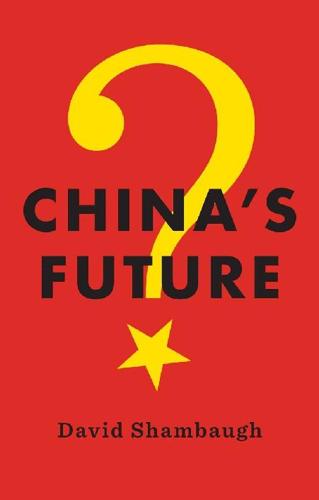
China's Future
by
David Shambaugh
Published 11 Mar 2016
Deregulation and streamlining of a wide range of central, provincial, and local administrative regulations has been a priority, with a large number of previously needed government approvals abolished. The State Council has cancelled administrative approvals on 246 items. This is very positive as it keeps with the Third Plenum pledge to “allow the market to play the decisive factor in the economy,” and also reduces opportunities for bribes and rent-seeking by officials. The National Development and Reform Commission (NDRC), which previously exercised a stranglehold over economic planning, is being downsized and perhaps even broken up. It is also a main target of the anti-corruption campaign. An explicit bank deposit insurance system has been created for the first time, and pilot programs for issuance of local bonds have been set up in ten provinces and cities.
…
In other words, while necessary and welcome, the anti-corruption campaign is seriously stressing the system that has very much come to depend on it. Moreover, the campaign is targeting the behavioral manifestations of corruption (bribery, private villas, lavish lifestyles, luxury goods, mistresses)—not the systemic sources of corruption (lack of transparency, lack of autonomous media, lack of autonomous judiciary, rent-seeking, slack auditing and tax systems, and lack of political competition). But Xi’s hard personality and assertive policies belie a Party and political system that is extremely fragile on the inside, in my view. Chinese use the proverb waiying, neiruan ()—hard on the outside, soft on the inside—which is a fitting description of the condition of the Chinese communist regime today.
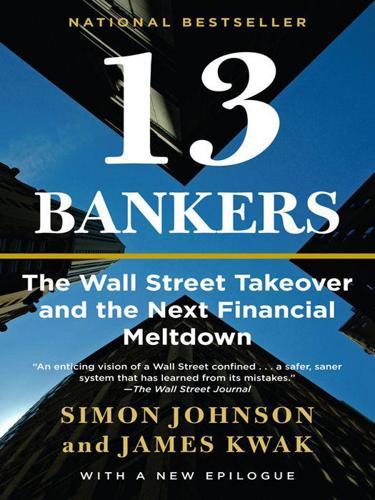
13 Bankers: The Wall Street Takeover and the Next Financial Meltdown
by
Simon Johnson
and
James Kwak
Published 29 Mar 2010
See also Michael Backman, Asian Eclipse: Exposing the Dark Side of Business in Asia (Singapore: John Wiley & Sons [Asia], 2001); chapter 14 has details on how the Suharto regime interacted with the private sector. On how subsidies were provided, see Andrew McIntyre, “Funny Money: Fiscal Policy, Rent-Seeking and Economic Performance in Indonesia,” in Mustaq H. Khan and Jomo Kwame Sundaram, eds., Rents, Rent-Seeking and Economic Development (Cambridge: Cambridge University Press, 2000). See also Adam Schwarz, A Nation in Waiting: Indonesia in the 1990s (Boulder, CO: Westview, 1994), chapter 6. 30. Real GDP per capita (constant prices: chain series), from Alan Heston, Robert Summers, and Bettina Aten, Penn World Table Version 6.3, Center for International Comparisons of Production, Income and Prices at the University of Pennsylvania, August 2009.
…
Claudia Goldin and Lawrence Katz have examined data on Harvard undergraduates and found that while only 5 percent of men in classes around 1970 were in finance fifteen years after graduation, that figure tripled to 15 percent for classes around 1990.79 The share of each class entering banking and finance careers grew from under 4 percent in the 1960s to 23 percent in recent years.80 At Princeton’s School of Engineering and Applied Science, “Operations Research and Financial Engineering” became the most popular undergraduate major.81 The banks thus became major beneficiaries of the American educational system. Whether society benefited is another question. Kevin Murphy, Andrei Shleifer, and Robert Vishny have argued that society benefits more when talented people become entrepreneurs who start companies and create real innovations than when they go into rent-seeking activities that redistribute rather than increase wealth.82 If this is true, then this diversion of talent to Wall Street constituted a real tax on economic growth over the last two decades. Among the economic and intellectual elites, finance became a highly prestigious and desirable profession.
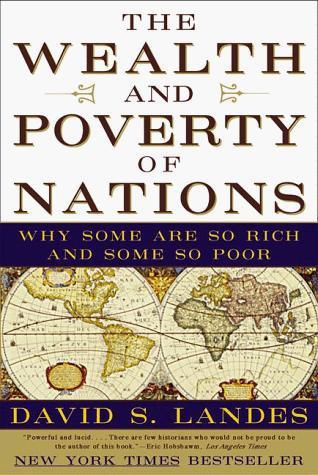
The Wealth and Poverty of Nations: Why Some Are So Rich and Some So Poor
by
David S. Landes
Published 14 Sep 1999
Much of this Asian trade was spontaneous and improvisational—a kind of Brownian movement. One went where the cargoes were, bouncing from port to port. This is the way of what later came to be known as tramp steamers; these were tramp sailing ships.6 Along with this went a shift out of trade into what the economist would call rent-seeking activities. In particular, the Portuguese sought to use their power to batten on the trade of others. They became the robber barons of the Indian Ocean. All merchant vessels were required to purchase a Portuguese trading license. Those that did not were liable to seizure. The shift to racketeering and local trade made possible important economies: many fewer ships went out from Europe to Asia.
…
A free, efficient market would have reduced profit margins per unit of merchandise, even while it increased the return to capital. But the VOC would not have liked that either. What Jan Compagnie wanted was to exclude competitors, impose prices in the Indies, and maintain wide differentials between buy and sell. There lay maximum profits. That was not business; that was power and its uses—what the economist calls rent-seeking. SOUTH EAST ASIA AND THE INDONESIAN ARCHIPELAGO For the Dutch, the great source of treasure was the “Spice Islands”—the Moluccas and Banda islands. That was where the rarest condiments came from—cloves, nutmeg, cinnamon—and laid the basis of monopoly. Besides, these men of the VOC were pragmatists.
…
, this is the machine at 100 percent efficiency, designed without regard to the vagaries of history and fate and the passions of human nature. The most efficient, development-oriented societies of today, say those of East Asia and the industrial nations of the West, are marred by all manner of corruption, failures of government, private rent-seeking. This paradigm nevertheless highlights the direction of history. These are the virtues that have promoted economic and material progress. They represent a marked deviation from earlier social and political arrangements; and it is not a coincidence that the first industrial nation came closest earliest to this new kind of social order.

Survival of the Richest: Escape Fantasies of the Tech Billionaires
by
Douglas Rushkoff
Published 7 Sep 2022
Edwards, “Trends in Income From 1975 to 2018,” RAND Corporation, 2020, https:// www .rand .org /pubs /working _papers /WRA516 -1html. 73 extracting wealth from the poor : Jon Evans, “GrubHub/Seamless’s Pandemic Initiatives Are Predatory and Exploitative, and It’s Time to Stop Using Them,” TechCrunch , April 5, 2020, https:// techcrunch .com /2020 /04 /05 /its -time -to -stop -using -grubhub -seamless -forever /. 73 This is not creative destruction : Lachlan Carey and Amn Nasir, “Something for Nothing? How Growing Rent-Seeking Is at the Heart of America’s Economic Troubles,” Journal of Public and International Affairs , https:// jpia .princeton .edu /news /something -nothing -how -growing -rent -seeking -heart -americas -economic -troubles. 74 “some kinds of social change” : Jennifer Szalai, “Steven Pinker Wants You to Know Humanity Is Doing Fine. Just Don’t Ask About Individual Humans,” New York Times , February 28, 2018, https:// www .nytimes .com /2018 /02 /28 /books /review -enlightenment -now -steven -pinker .html. 74 The Dawn of Everything : David Graeber and David Wendgrow, The Dawn of Everything: A New History of Humanity (New York: Farrar, Straus and Giroux, 2021). 74 problem with Pinker’s oft-quoted statistics : Jeremy Lent, “Steven Pinker’s Ideas Are Fatally Flawed.
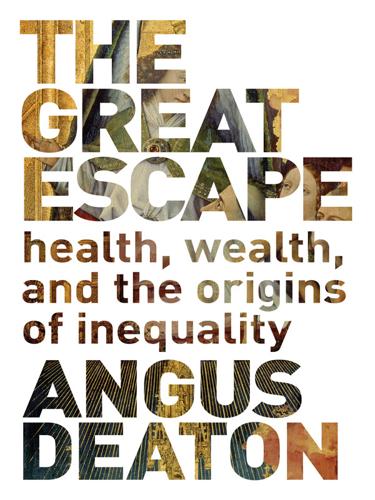
The Great Escape: Health, Wealth, and the Origins of Inequality
by
Angus Deaton
Published 15 Mar 2013
Among the countries that were conquered by European powers, the countries that were rich are now poor, and those that were poor are now rich. Such reversals of fortune should warn us against taking modern prosperity and modern economic growth for granted, as something that we have always known and that can never go away. Rent seeking can lead to economic growth being replaced by internecine warfare in which each group fights ever more viciously for shares of a declining total. Interest groups can feather the nests of a few at the expense of the many, each of whom loses so little that it is not worth organizing to prevent the plunder; the cumulative effects of many such groups can eat away an economy from within and stifle growth.42 Powerful and wealthy elites have choked off economic growth before, and they can do so again if they are allowed to undermine the institutions on which broad-based growth depends.
…
Great concentrations of wealth can undermine democracy and growth, stifling the creative destruction that makes growth possible. Such inequality encourages the previous escapees to block the escape routes behind them. Mancur Olson predicted that rich countries would decline like this, undermined by the rent seeking of an ever-growing number of focused interest groups pursuing their own self-interest at the expense of an uncoordinated majority.2 Slower growth makes distributional conflict inevitable, because the only way forward for me is at your expense. It is easy to imagine a world with little growth but endless distributional conflict between rich and poor, between old and young, between Wall Street and Main Street, between medical providers and their patients, and between the political parties that represent them.
…
Larry Bartels, 2010, Unequal democracy: The political economy of the new gilded age, Princeton University Press, and Martin Gilens, 2012, Affluence and influence: Economic inequality and political power in America, Princeton University Press. 36. Anne O. Krueger, 1974, “The political economy of the rent-seeking society,” American Economic Review 64(3): 291–303, and Jagdish N. Bhagwati, 1982, “Directly unproductive profit-seeking (DUP) activities,” Journal of Political Economy 90(5): 988–1002. 37. Gilens, Affluence and influence. 38. Joseph E. Stiglitz, 2012, The price of inequality: How today’s divided society endangers our future, Norton. 39.
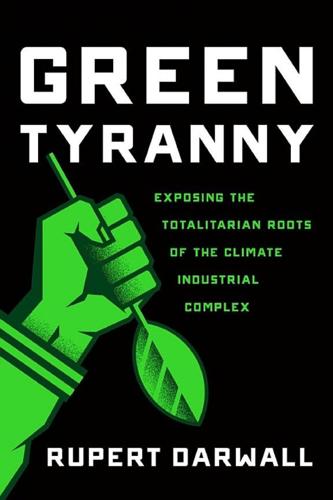
Green Tyranny: Exposing the Totalitarian Roots of the Climate Industrial Complex
by
Rupert Darwall
Published 2 Oct 2017
Unlike global warming, alarm about acid rain is history. We can therefore view its complete life cycle. Acid rain had not been “solved.” It faded away. Retrofitting power stations to cut emissions of sulfur and nitrogen oxides, fitting catalytic converters on vehicles, did not create trillion-dollar rent-seeking opportunities remotely comparable to what global warming has with renewable energy. Environmental scares relying on the present tense run the risk of present-tense falsification. Scientists claimed trees were being damaged and forests would die. The evidence showed that they weren’t. By contrast, evidence of damage caused by predicted catastrophic global warming is, by its very nature, speculative, with predicted global temperatures up to 4.8 degrees centigrade (8.6 degrees Fahrenheit) higher by century end than the average for the second half of the nineteenth century.48 Climate scientists are notably reluctant to nail their colors to the mast and say by when observed global temperatures should catch up with computer model projections before they change their dire prognoses.
…
It would try to redeploy resources to “grid-parity” markets in Africa and South America.21 These markets accounted for 2.1 percent of Solar Century’s 2015 revenue.22 Thus, 97.9 percent of revenues and 100 percent of Solar Century’s £10.7 million profit depended on government support in one form or another, making Solar Century a fine example of twenty-first-century green rent seeking. Not bad for the former Greenpeace activist who held 30.7 percent of Solar Century’s shares. That 2010 London conference brought together Jeremy Leggett and Hermann Scheer for the last time. Four months later, Scheer was dead. “I miss that hero,” Leggett tweeted three years later.23 Scheer had been Leggett’s inspiration.
…
From being the voice of working people, the Democratic Party has become the political arm of the Climate Industrial Complex, tasked with monetizing environmentalism through a raft of government interventions of one kind or another paid for by working people, and aided by a GOP Congress when it approved generous extensions of the two main subsidies for renewables in the December 2015 budget deal. Nowhere has the capture of the American left by green rent seeking gone further than in California. “Progress comes from well-designed regulatory objectives,” Jerry Brown declared at the Paris climate conference, where he and Tom Steyer had taken a posse of green-tech executives. The four-term governor praised environmental regulations for forcing innovation, a policy that had resulted in refiners being fined for not adding nonexistent “advanced biofuels” after the technology flopped, and told a small crowd to “never underestimate the coercive power of the central state in the service of good.”
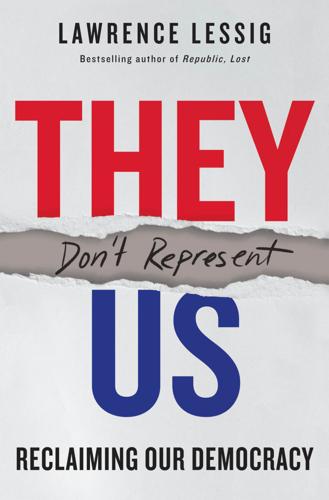
They Don't Represent Us: Reclaiming Our Democracy
by
Lawrence Lessig
Published 5 Nov 2019
Funders are typically those who have something special to gain from government. Certain industries—telecom, IP—are keen to engage. Others are not. So while the rich, as Benjamin Page, Jason Seawright, and Matthew Lacombe demonstrate, are already more conservative, regardless of their politics, it is the especially interested who spend the most to drive the politics of rent-seeking, the practice of manipulating public policy to increase individual profit.126 But the inequality from gerrymandering does not benefit the rich. Safe-seat gerrymandering skews to the extremes and the extremes are not necessarily the rich. On the left, the most progressive push policies not favored by the rich (higher taxes).
…
Kuklinski, “The Delegate Theory of Representation,” American Journal of Political Science 23 (1979): 278; Pitkin, Representation, 127. 2.Mansbridge, A Selection Model, 21–23. 3.The Congressional Research Institute has done extensive work to demonstrate how the Legislative Reorganization Act of 1970 enabled, rather than disabled, rent-seeking in Congress. See the research collected on its site, available at link #235. 4.Mansbridge, A Selection Model, 42. 5.Nancy Rosenblum, On the Side of the Angels: An Appreciation of Parties and Partisanship (Princeton: Princeton University Press, 2008). 6.Khorri Atkinson, “Democrats Won the House with the Largest Midterms Margin of All Time,” Axios, November 26, 2018, available at link #236. 7.Lessig, Republic, Lost: Version 2.0, 224–29.
…
See also broadcasting random sampling, [68n5], 282n5 random selection vs. elections, 186–190 ranked-choice voting (RCV), 152–155, [165n36], 237–241, 261, 304n36, 314n7, 315n9 The Rational Public (Page & Shapiro), 76–77, 83, 126, 254 redistricting. See electoral districts; gerrymandering Reeves, Andrew, 41, 43 reform organizations, 255–258 rent-seeking, 62 Legislative Reorganization Act enabling, 224, 314n3 representative democracy agreeing collectively, 226–230 Article V convention to fix, 259–261 campaign money as favors, 57–62, 224–225 campaign money’s effect, 47–48, 150 deliberative polling, 175–178, 307n11 equal chance to vote, 12, 13–14, 17, 18–19, 22 governing separated from elections, 229–230 ideal democracy without representatives, 68–69 one person, one vote, 7–9, [165n36], 304n36 proportional vs.
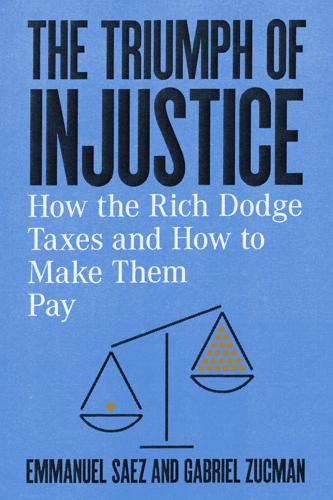
The Triumph of Injustice: How the Rich Dodge Taxes and How to Make Them Pay
by
Emmanuel Saez
and
Gabriel Zucman
Published 14 Oct 2019
In recent years, the bottom 90% has paid almost as much as the top 0.1%. Complete details at taxjusticenow.org. From 1951 to 1978, the statutory rate of tax on corporate profits ranged from 48% to 52%. In contrast to the top-end individual income tax rates, these rates applied to all profits. They were not marginal rates designed to deter rent-seeking and curb excessive incomes. They were flat rates meant to generate revenue. And generate revenue they did. In the 1950s and early 1960s, corporate profits were effectively taxed at rates approaching 50%. For any dollar of profit made in America, half went straight to government. 2.3 THE KEY ROLE OF THE CORPORATE TAX FOR THE WEALTHY (Average tax rate of the top 0.1% income earners) Notes: The figure depicts the average tax rate and its composition by type of tax for the top 0.1% income earners since 1910.
…
These solely profit-driven individuals will innovate more boldly—faster and faster, making it harder and harder for regulators to catch up, or for people to learn about their fraud before falling for a new one. If low top tax rates encourage innovation, they must galvanize rent extraction. Among the many policies that can curb the power of established wealth and contain rent-seeking, the quasi-confiscatory taxation of very high incomes historically has proved effective. But it faces a major limitation: as we’ve seen, it’s become too easy for the very rich to own a lot of wealth while reporting little taxable income. Reinstating a 90% top marginal income tax rate would not make a meaningful difference to the tax bills of many of America’s billionaires.
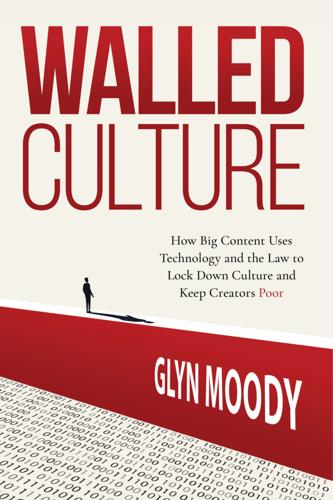
Walled Culture: How Big Content Uses Technology and the Law to Lock Down Culture and Keep Creators Poor
by
Glyn Moody
Published 26 Sep 2022
Since copyright law gives distributors monopolies over popular works, the income generated by those works is much more highly concentrated than it otherwise would be.”625 The natural concentration of power not only raises prices and boosts profits to abnormal levels, it also encourages lobbying for new laws that further consolidate the dominant position of monopolists. Such behaviour is known as rent-seeking, which Wikipedia defines as ‘the effort to increase one’s share of existing wealth without creating new wealth.’626 For most publishing, recording and film companies, copyright is central to their business model. They will fight fiercely in order to preserve or even strengthen it. By contrast, those who are hurt by copyright’s intellectual monopoly may not even realise it, because copyright represents only a comparatively small extra cost for them.
…
cache=f1ba3f6 597 https://web.archive.org/web/20220617094352/https://www.hollywoodreporter.com/business/business-news/youtube-netflix-revenue-content-licensing-1235013502/ 598 https://web.archive.org/web/20220617094419/https://www.musicbusinessworldwide.com/youtube-just-generated-5bn-from-ads-in-a-quarter-and-youtube-music-has-over-30m-subscribers/ 599 https://web.archive.org/web/20220617094457/https://www.musicbusinessworldwide.com/youtubes-ads-business-is-now-bigger-than-the-entire-global-record-business2/ 600 https://web.archive.org/web/20220701141838/https://en.wikipedia.org/wiki/Universal_Music_Group 601 https://web.archive.org/web/20220617095249/https://qz.com/2062550/universal-music-groups-ipo-shows-the-potential-of-streaming/ 602 https://web.archive.org/web/20220705070707/https://en.wikipedia.org/wiki/Initial_public_offering 603 https://web.archive.org/web/20220531053439/https://www.vivendi.com/wp-content/uploads/2021/09/Universal-Music-Group-Prospectus-14-September-2021.pdf 604 https://web.archive.org/web/20220617095449/https://walledculture.org/interview-evan-greer-lia-holland-rethinking-copyright-fighting-creative-monopolies-and-more/ 605 https://web.archive.org/web/20220617095509/https://www.musicbusinessworldwide.com/universal-buys-bob-dylan-publishing-rights-acquiring-catalog-worth-hundreds-of-millions-of-dollars/ 606 https://web.archive.org/web/20220617095530/https://www.musicbusinessworldwide.com/neil-diamond-sells-complete-song-catalog-and-all-master-recordings-to-universal/ 607 https://web.archive.org/web/20220617095555/https://www.wsj.com/articles/tencent-in-talks-to-buy-stake-in-universal-music-group-11565078272 608 https://web.archive.org/web/20220617095627/https://www.musicbusinessworldwide.com/major-record-companies-are-losing-market-share-on-spotify-but-spotify-is-gaining-market-share-in-warners-own-revenues/ 609 https://web.archive.org/web/20220617095653/https://www.forbes.com/sites/stevenbertoni/2021/11/29/spotify-has-plans-to-move-beyond-music-and-become-the-instagram-and-tiktokofaudio/ 610 https://web.archive.org/web/20220617095449/https://walledculture.org/interview-evan-greer-lia-holland-rethinking-copyright-fighting-creative-monopolies-and-more/ 611 https://web.archive.org/web/20220701142134/https://en.wikipedia.org/wiki/Penguin_Random_House 612 https://web.archive.org/web/20201109153839/https://en.wikipedia.org/wiki/Simon_%26_Schuster 613 https://web.archive.org/web/20220701142307/https://en.wikipedia.org/wiki/Hachette_Book_Group 614 https://web.archive.org/web/20220629234053/https://en.wikipedia.org/wiki/HarperCollins 615 https://web.archive.org/web/20220630003959/https://en.wikipedia.org/wiki/Macmillan_Publishers 616 https://web.archive.org/web/20220617095734/https://www.justice.gov/opa/pr/justice-department-sues-block-penguin-random-house-s-acquisition-rival-publisher-simon 617 https://web.archive.org/web/20220617100520/https://www.hollywoodreporter.com/business/digital/activision-blizzard-microsoft-ea-disney-sony-buy-1235081056/ 618 https://web.archive.org/web/20220617100557/https://www.theverge.com/22910846/sony-bungie-acquisition-playstation-destiny-halo 619 https://web.archive.org/web/20220617100858/https://www.mordorintelligence.com/industry-reports/global-gaming-market 620 https://web.archive.org/web/20220617100924/https://www.globenewswire.com/news-release/2020/12/18/2147663/0/en/Global-Publishing-Industry-Almanac-2020.html 621 https://web.archive.org/web/20220516043610/https://www.forbes.com/sites/rosaescandon/2020/03/12/the-film-industry-made-a-record-breaking-100-billion-last-year/ 622 https://www.toptal.com/finance/market-research-analysts/state-of-music-industry 623 https://web.archive.org/web/20220617101104/https://www.niskanencenter.org/author/brink-lindsey/ 624 https://web.archive.org/web/20220617101209/https://www.niskanencenter.org/author/steles/ 625 https://web.archive.org/web/20220617101040/https://capturedeconomy.com/ 626 https://web.archive.org/web/20220617101233/https://en.wikipedia.org/wiki/Rent-seeking 627 https://web.archive.org/web/20220617104335/https://www.communia-association.org/2021/05/31/the-public-domain-belongs-to-all-and-is-often-defended-by-no-one-we-want-to-change-that/ 628 https://web.archive.org/web/20220617101040/https://capturedeconomy.com/ 629 https://web.archive.org/web/20220408054820/https://scholarlycommons.law.northwestern.edu/cgi/viewcontent.cgi?
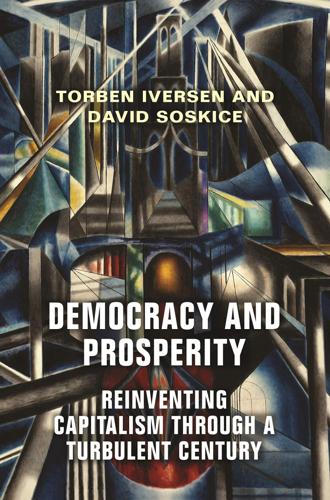
Democracy and Prosperity: Reinventing Capitalism Through a Turbulent Century
by
Torben Iversen
and
David Soskice
Published 5 Feb 2019
The state, to be successful, can be thought of having four sets of tasks: (i) Imposing on business the requirement that product markets are competitive; this is a key requirement, for there is considerable evidence that competition (so long as not too intense) is a precondition for innovation. It requires a strong state to impose competition because businesses prefer protected markets with low-risk and high-profits which they can share with politicians. The first country to emerge as a modern capitalist economy, Britain, did not take off until the rampant rent-seeking and corruption that characterized the political system up until the end of the eighteenth century was eliminated (Popa 2015). (ii) Imposing on labor the requirement that businesses are allowed the right to manage and to cooperate with management. If labor is too powerful, it may prefer to control production and to limit innovation and skill replacement, or with cospecific skills in a technology to “hold up” management once the technology is installed.
…
We have underscored the role of coordination across companies in coordinated market economies or of their buying into the political and regulatory system in the United States, but these fundamental institutional weaknesses of capitalism remain. (iii) With a high stock of location cospecific investment and long-term oriented politicians, the gains from, and opportunities for, rent-seeking are limited. This political weakness of advanced capitalism extends into all areas outside the institutional framework. In particular, advanced capitalism has no impact on decisions over redistribution and poverty, or the protection of the low-skilled, including their unionization and the operation of low-skilled labor markets.
…
In National Identity and the Varieties of Capitalism: The Danish Experience, eds. J. L. Campbell, J. A. Hall, and O. K. Pedersen, 295–30. Montreal, Canada: McGill-Queen’s University Press. Krueger, Alan. 2012. “The Rise and Consequences of Inequality in the United States.” Unpublished speech. Krueger, Anne. 1974. “The Political Economy of the Rent-Seeking Society.” The American Economic Review 64 (3): 291–303. ———. 1990. “Government Failures in Development.” Journal of Economic Perspectives 4 (3): 9–25. Krugman, Paul. 1991a. “Increasing Returns and Economic Geography.” Journal of Political Economy 99 (3): 483–99. ———. 1991b. Geography and Trade.
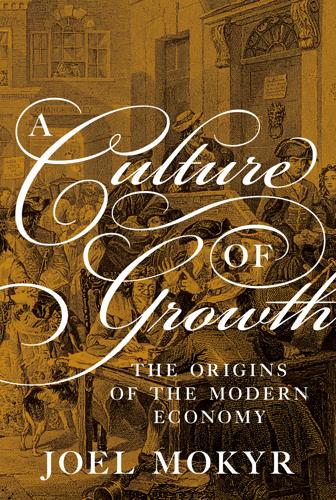
A Culture of Growth: The Origins of the Modern Economy
by
Joel Mokyr
Published 8 Jan 2016
It also codified and formalized the kind of institutions any society needed to maintain its technological momentum: the rule of law, checks and balances on the executive, and severe sanctions on more blatant and harmful forms of rent-seeking through corruption and highly inefficient forms of redistribution, although the Enlightenment was never able to eradicate rent-seeking altogether. As Brandt, Ma, and Rawski (2014) make clear, such institutions were lacking in post-1750 China and prevented it from taking advantage of the opportunities created by technological progress in the West, the way Japan did.
…
The historical riddle is what might be called the great dilemma of the new institutional economic history: much of the literature in economic history that is trying to explain differences in economic performance and living standards, both by economists and historians, has accepted in one way or another Douglass North’s call for the integration of institutions into our narrative of economic growth (Acemoglu and Robinson, 2012; Sened and Galiani, 2014). An economy that grows as a result of favorable institutions requires a world of well-delineated and respected property rights, enforceable contracts, law and order, a low level of opportunism and rent-seeking, a high degree of inclusion in political decision making and the benefits of growth, and a political organization in which power and wealth are as separate as is humanly possible. Such institutions—whether part of the formal political structure (as embodied for example in a constitution) or based on private-order institutions—are credited with many positive economic developments in the past: the rise of more effective product and factor markets (and thus more efficient allocations), the growth of international and interregional trade, and the accumulation of capital, to name a few.
…
Both of those types of preferences are not normally part of the analysis of economic preferences, but there is no inherent reason they should not be.16 A good example of process-regarding preferences is when an individual cares whether he or she earns income by creating wealth through entrepreneurial activity or by redistributing it from others through rent-seeking or corruption. Does one regard a dollar in the same way no matter how it was earned, or does one care whether it was made while providing a socially useful activity? Is a dollar earned the same as a dollar stolen? Such preferences could make a difference in the institutions that are critical to the emergence of a civil economy and economic growth (Bowles, 2004, pp. 109–11; Bowles and Gintis, 2011, pp. 10–11, 32–35).
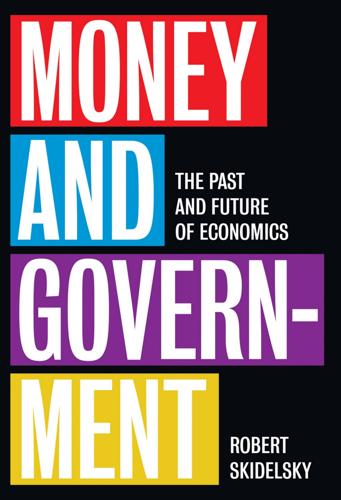
Money and Government: The Past and Future of Economics
by
Robert Skidelsky
Published 13 Nov 2018
In his Cycles of American History (1986) Arthur Schlesinger Jr defined a political economy cycle as ‘a continuing shift in national involvement between public purpose and private interest’. The swing he identified was between ‘liberal’ (what we would call social democratic) and ‘conservative’ epochs. The idea of the ‘crisis’ is central to both. Liberal periods succumb to the corruption of power, as idealists yield to time-servers, and conservative arguments against rent-seeking win the day. But the conservative era then succumbs to a corruption of money, as financiers use the freedom of deregulation to rip off the public. A crisis of under-regulated markets presages the return to a social democratic era. This idea fits the American historical narrative tolerably well.
…
The attempt in the 1970s to control inflation by wage and price controls led directly to a ‘crisis of governability’, as trade unions, particularly in Britain, refused to accept them. Large state subsidies to producer groups, both public and private, fed the typical corruptions of behaviour identified by the New Right: rent-seeking, moral hazard and free-riding. Palpable evidence of government failure obliterated earlier memories of market failure. The new generation of economists abandoned Keynes and, with the help of sophisticated mathematics, reinvented the classical economics of the self-correcting market. Battered by the crises of the 1970s, governments caved in to the ‘inevitability’ of free market forces.
…
Tax systems were made less progressive to ‘improve the incentives’ of the already rich. In the perfect markets lauded by neo-classical economists, capitalists and workers alike would be paid their economic worth. In this world, there is no rent or unearned income or free lunches. Or, rather, there was only ‘rent-seeking government’. The theoretical case against redistribution was clinched by the device of the ‘representative agent’. We now have a single consumer who is paid exactly what he produces. The case for redistribution on equity grounds has disappeared. Money still has a diminishing marginal utility, but all this does is to give the representative consumer a choice between income and leisure.
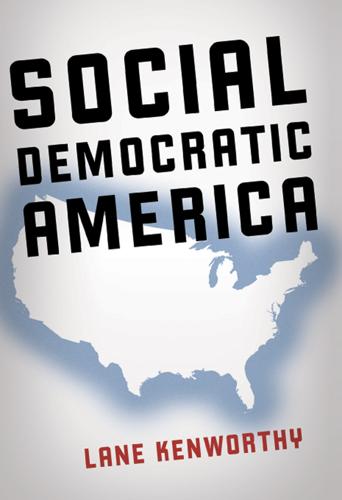
Social Democratic America
by
Lane Kenworthy
Published 3 Jan 2014
But in practice that’s not what we observe. An expansion of America’s public social programs is likely to have little or no impact on competition. Does Big Government Mean Bad Government? A related argument, made by Alberto Alesina and George-Marios Angeletos, is that “a large government increases corruption and rent-seeking.”62 The more a government taxes and spends, in this view, the more it invites lobbying by interest groups for favors, and the more opportunity and incentive it creates for policy makers and other public officials to dispense such favors. Do big governments perform worse than small ones? There are various ways to measure the quality of government.63 A common indicator is the World Bank’s government effectiveness measure, which attempts to gauge public and expert perceptions of the quality of public services, the quality of the civil service and the degree of its independence from political pressures, the quality of policy formulation and implementation, and the credibility of the government’s commitment to such policies.
…
It isn’t in spite of their policies and institutions that the Nordic nations achieve economic security, equal opportunity, and shared prosperity together with strong economic performance. It’s because of them.159 America’s Path Growth of government spending is not, for the most part, a consequence of rent-seeking special interests or narrow-minded bureaucrats expanding their turf. It’s a product of affluence. As people and nations get richer, they are willing to allocate more money for insurance (protection against risks) and for fairness (extension of opportunity and security to those who are less fortunate).
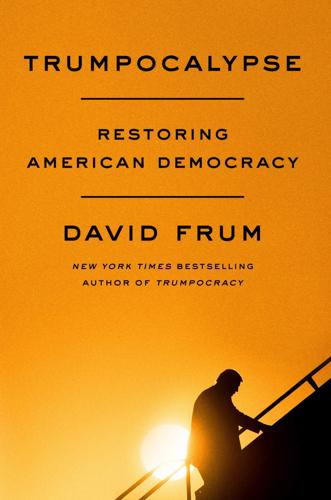
Trumpocalypse: Restoring American Democracy
by
David Frum
Published 25 May 2020
Slogans like “Medicare for All” distract voters and officials from the real problem: not who finances health-care costs, but who negotiates those costs. The US government is the biggest health-care purchaser on earth. It’s time to start acting like it, and not just on behalf of Medicare beneficiaries, but on behalf of all Americans whose incomes and standard of living is devoured by the health providers’ state-capture and rent-seeking. Reform is obviously urgently needed. Why is it so hard to achieve? People close to the system can witness the abuses being carried out right in front of them. Yet it is all but impossible to muster political mandates for action to squeeze the abuses out of the system. Why do Americans find it so uniquely difficult to act effectively in the public interest?
…
To claim, however, that you are supremely committed to reducing greenhouse gases, when in reality you are more concerned with regulating economic competition, dooms your likelihood of achieving either. It is hard enough to achieve the outcomes you actually seek; it is much harder to achieve the outcomes you are only pretending to seek—while actually seeking something very different. Putting government into the business of busting rent-seeking in the health-care industry—as the leading Democratic candidates for 2020 vowed to do—is already a public administration challenge for a generation. If successful, health-care reform will deliver in itself a big bump to worker pay and alleviate perhaps the single most harrowing anxiety faced by working Americans.
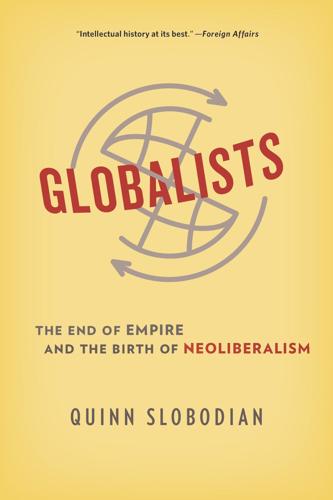
Globalists
by
Quinn Slobodian
Published 16 Mar 2018
In The Economics of the Color Bar, his most extensive application of neoliberal thought to the case of South Africa, Hutt self-consciously applied insights from Milton Friedman about U.S. racism and echoed those of Gary Becker from the same time.165 Latter-day scholars recall the book as a “conscience-raising work” and a “profound and disturbing analysis that exposed the moral horror of apartheid in South Africa.”166 At its core, Hutt argued, racism is a form of rent-seeking analogous to trade unions defending their own privilege against the entry of nonwhite workers.167 “The chief source of colour discrimination,” Hutt suggested, was “to be found in the natural determination to defend economic privilege.”168 In his reading, racism was not of the market but outside of—and in opposition to—the market.
…
Like Schmitt, Hayek believed that the creation of law by democratically elected state governments was leading to a degeneration of the Rechtsstaat into a Gesetzesstaat, or legislative state.141 He wrote that “the weakness of the government of an omnipotent democracy was very clearly seen by the extraordinary German student of politics, Carl Schmitt, who in the 1920s probably understood the character of the developing form of government better than most people.”142 He quoted Schmitt’s essay from 1932 to the effect that “a pluralist party state will become ‘total’ not from strength and force but out of weakness: it intervenes in all sectors of life, because it feels it has to fulfill the demands of all interested parties.”143 In other words, Hayek saw “unlimited” (or what Mises called “omnipotent”) democracy as leading to totalitarianism out of a logic of capture. His efforts at constitutional design from 1960 onward were attempts to discover an institutional fix for the tendency of democracy to stray from economic order toward particularist rent-seeking and, as Alexander Rüstow put it, the transformation of state policy and national budgets into the “prey” of special interests.144 He laid out the parameters of this institutional concept first in a speech at the Chamber of Commerce in Dortmund, published in the Frankfurter Allgemeine Zeitung.
…
See also Knowledge; Reason, abuse of Raw materials, 21, 43, 56, 71, 77, 101, 108, 131, 152; raw materials dictator, 65 Reagan, Ronald, 8, 14, 20, 23, 176 Reason, abuse of, 225, 259–260. See also Knowledge; Rationality Refugees, 120, 135, 145; refugee money, 145 Regnery, Henry, 168–169 Reisch, Richard, 66 Rent-seeking, 173, 206 Republican Party, 161 Rhodesia, 149–151, 170–171; American-Rhodesian Association, 178; Rhodesia Information Service, 177; Unilateral Declaration of Independence, 170, 175 Ricardo, David, 42, 50 Riedl, Richard, 37, 40 Rights: business, 145; capital, 13, 123, 135, 138, 145–146, 254, 277; civil, 150, 263; Commission on Human Rights, 220; to democracy, 278; to development, 220; to eat, 141; of expropriation, 265; human, 120, 176, 277–279; intellectual property, 257, 278; investor, 136–137, 144; to leave, 135, 145; market, 136, 277; negative, 121–123; private, 266; property, 25, 137, 141, 145, 279; to self-determination, 248; social and economic, 120, 247, 264; to trade, 210, 277, 280; workers’, 266; xenos, 123, 137, 148, 220, 285 Risk, systemic, 270 Rist, Charles, 78 Rivera, Diego, 281, 283 Robbins, Lionel, 8, 23, 78, 94, 96, 98, 122, 207; on European integration, 184; federation proposals of, 22, 95, 99–104, 113–114, 116–118, 131, 133, 155, 186, 209–210, 251–252, 261, 265–266, 283; and Habsburg Empire, 109; interwar international collaborations and, 30, 72–76, 84; Mises Circle and, 31, 48; and MPS, 126–127 Rockefeller Foundation, 68, 73, 75 Roessler, Frieder, 8, 223, 244–247, 252 Romania, 69, 109, 134 Roosevelt, Franklin Delano, 88, 136, 158–159 Röpke, Wilhelm, 1, 8, 129; on capital rights, 137–138, 140, 207, 248; critique of juridicism, 254; critique of postwar development policy, 124, 138–139, 157–161; on culture and race, 22, 149–151, 156–157, 160, 169–172; on empire, 180, 194; on European integration, 183, 188, 191, 202; on global order, 10–11, 14, 30, 58, 84–85, 88–89, 251, 265; International Economic Disintegration, 76, 89, 98, 113; interwar international collaboration of, 21, 57–58, 72–74, 78, 79–80, 127; and MPS, 23, 126–127, 150; on Southern Africa, 149–154, 170–172; and U.S.
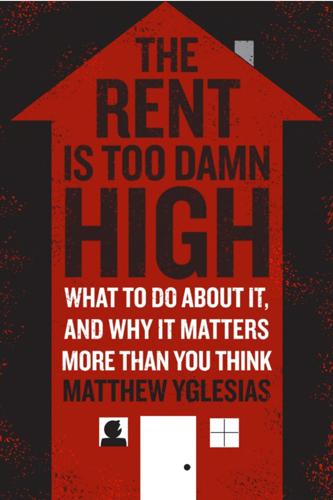
The Rent Is Too Damn High: What to Do About It, and Why It Matters More Than You Think
by
Matthew Yglesias
Published 6 Mar 2012
By the same token, left-wing politics in developing countries often feature “land reform” as a prominent demand. Vast agricultural estates, unlike complicated industrial business enterprises, can be broken up into small chunks and given to farmers to work rent-free, rather than operated as plantations staffed by peasants stuck at subsistence-living standards. Today, economists often criticize “rent-seeking” behavior by businesses that try to use government regulation to stifle competition. Though literal land rents have vanished from today’s debate, much of the history of the United States consists of a quest to build a prosperous and egalitarian nation rather than one dominated by wealthy landowners.
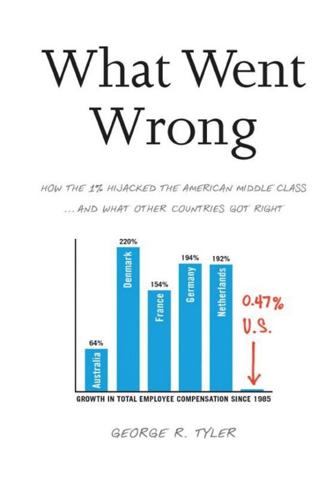
What Went Wrong: How the 1% Hijacked the American Middle Class . . . And What Other Countries Got Right
by
George R. Tyler
Published 15 Jul 2013
Here is columnist John Kay of the Financial Times in November 2009 looking back on this era: “America has a new generation of rent-seekers. The modern equivalents of castles on the Rhine are first-class lounges and corporate jets. Their occupants are investment bankers and corporate executives…. The scale of corporate rent-seeking activities by business and personal rent-seeking by senior individuals in business and finance has increased sharply. The outcome can be seen in the growth of Capitol Hill lobbying and the crowded restaurants of Brussels; in the structure of industries such as pharmaceuticals, media, defense equipment, and, of course, financial services; and in the explosion of executive remuneration.”36 Exploding American executive pay is sharply at odds with pay patterns in any other rich democracy.
…
This creates a soft de facto domestic content imperative that envelops many if not all board deliberations. That perspective means more jobs at home, with firms such as VW-Audi-Porsche passing up offshoring opportunities to keep Wolfsburg bustling and rich. And, codeterminism prevents short-termism and management rent-seeking. Voter and consumer expectations are important in sustaining this domestic orientation by enterprise management. Families and public policies tend to nurture stakeholder capitalism by prioritizing domestic products over those from low-wage competitors or firms practicing wage compression. The collapse of Walmart in Germany is instructive in that regard, as is the current Franco-German focus on crafting meaningful standards and enforcing strictures against products inappropriately claiming EU origin.
…
Here is a frank assessment of that nation’s contemporary political environment by Sydney Morning Herald reporter Tim Colbatch, writing in mid-2012: “Conservative leader Tony Abbott’s war against everything has made good government in Australia almost impossible…. Whatever it [the Labor party] proposes, he opposes.”29 CHAPTER 28 AMERICAN FAMILY CAPITALISM “Control of rent-seeking requires decentralization of economic power.”1 JOHN KAY, Financial Times, Nov. 10, 2009 “Many of the factors that have long driven American innovation have dried up. Droves of investors, disappointed by their returns, have abandoned the venture capital firms of Silicon Valley. At pharmaceutical companies, computer-driven research is making fewer discoveries than intuitive chemists once did.
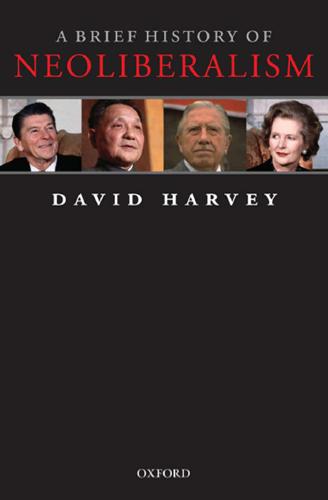
A Brief History of Neoliberalism
by
David Harvey
Published 2 Jan 1995
This condition is rarely, if ever, approximated in practice, and there are significant consequences.2 Better informed and more powerful players have an advantage that can all too easily be parlayed into procuring even better information and greater relative power. The establishment of intellectual property rights (patents), furthermore, encourages ‘rent seeking’. Those who hold the patent rights use their monopoly power to set monopoly prices and to prevent technology transfers except at a very high cost. Asymmetric power relations tend, therefore, to increase rather than diminish over time unless the state steps in to counteract them. The neoliberal presumption of perfect information and a level playing field for competition appears as either innocently utopian or a deliberate obfuscation of processes that will lead to the concentration of wealth and, therefore, the restoration of class power.
…
/Marxism 59, 148, 218 freedom concept 20, 21 freedom’s prospect 184–5, 189, 202 neoliberalism on trial 159, 180 media 40, 56, 80, 115, 156, 159 Megginson, W. 219 Mellon, A. 163 Menem, C. 104 Mercosur 79 Mertes, T. 221, 222 Mexico 138, 139, 150 consent, construction of 41, 53, 54 freedom concept 5, 15, 17, 29, 34, 36 freedom’s prospect 185, 186, 190, 199, 204 neoliberal state 73, 75, 76, 84–5 neoliberalism on trial 159, 162–5 uneven development 94, 95, 98–104, 115, 116, 118 see also PRI middle class 25, 61–2, 181 Middle East 12, 94, 109, 139 freedom’s prospect 197, 206 Islam 83, 186 neoliberal state 71, 83, 85 neoliberalism on trial 171, 173 see also Iraq; Islam migration 127, 129, 169–70 Miliband, R. 212 military consent, construction of 39, 40 -industrial complex 83 Keynesianism 88 militarization 82–3, 101, 107, 195 neoliberalism on trial 153, 179 see also war Millennium Summit 187 Mises, L. von 20 Mittelman, J. 215 Monbiot, G. 219 ‘Monday Club’ 8 monetarism 24–5 China 123–4 consent, construction of 51, 54, 59 Friedman 8, 20, 22, 44 uneven development 89, 93 monopoly 67, 80 Mont Pelerin Society 20, 21, 22, 36 Montreal Protocol 172 morality ‘moral majority’ 49–51 neoliberal state 82, 83–4, 211 see also religion Morrison, H. 55 Mosaddeq, M. 28 Mozambique 40, 116, 117, 118 multinationals 7, 35–6, 80 Muntaner, C. 220 Murdoch, R. 34, 35–6, 38, 166 Murphy, D. 220 Myers, N. 220 NAFTA 79, 93, 101, 103, 138 Nash, J. 213 nation/national ‘interest’ 66 monopoly on violence 180–1 nationalism 79, 85, 195–6, 197 and state separate 84–5 nationalization 55, 57–8, 99 NATO 56 natural resources see commons Navarro, V. 212, 220, 221 neoclassical economics 20 neocolonialism/imperialism 27–8, 56, 159, 181–2, 197 see also United States neoconservatism 50, 81–5, 166 return of 195–7, 201–2, 204–5 see also authoritarianism neoliberal state 2, 64–88, 161, 211–13 circumscribed see Sweden freedom concept 7–11, 20–1 intervention 20–1, 79 see also Keynes and nation separate 84–5 neoconservative answer 81–5 practice 70–81 redistributions 159, 160, 163–5 tensions and contradictions 67–70, 79–81 theoretical aims 64–7 see also welfare, public neoliberal theory and pragmatics distinct 21–2 rise of 19–31 state 64–7 turn, reasons for 9–19 neoliberalism 2 defined 2–3 see also China; consent; freedom; freedom’s prospect; neoliberal state; neoliberalism on trial; uneven development neoliberalism on trial 152–82 achievements 154–65 environment degraded 67–8, 172–5 see also accumulation by dispossession; commodification; rights Netherlands/Holland 27 Netter, J. 219 New York City 52, 63, 157 finance/banks 27, 28–9, 44–8, 73, 97–8, 100 New Zealand 3, 96, 140 NGOs (non-governmental organizations) 78, 177, 205 Nicaragua 27, 117 ‘9/11’ attack 5, 83, 195 Nixon, R. 13, 43, 45, 196 non-interference see deregulation non-intervention 69 Novacek, M. 220 Nozick, M. 211 OECD countries 17, 18, 110 Office of Management and Budget (US) 52 Ohmae, K. 212 oil 173 OPEC 12, 27, 197 oligarchy, Russian 32 oppositional culture 175–6 order, need for 82–3 PACs (political action committees) 49 Pahlavi, Shah M.R. 28 Panitch, L. 28, 208, 219 paranoia 82–3, 196 Park Chung Hee 107, 108 PATCO (US) 25, 59 Pearl River Delta 87, 131, 132 Peck, J. 207, 208, 213 Pelaez, E. 219 Perkins, J. 28 Perloff, J. 143 ‘personal responsibility’ 168–9 Peterson, I. 219 Petras, J. 106, 220 Philippines 31–2, 40, 206 uneven development 89, 94, 95, 96, 117 Piketty, T. 208 Pinochet, A. 7, 8 Piore, M. 212 planning and control 12, 75, 103, 156 as denial of freedom 37 see also central planning Podhoretz, N. 50 Poland 94, 95, 154 politics 69–70, 205 oppositional 78 see also Conservatives; Democrats; Republicans see also socialism/communism Pollin, R. 25 pollution 67–8, 100, 161, 172–5 Polyani, K. 183 freedom concept 36–7, 38 neoliberal state 70, 80–1 neoliberalism on trial 166–7, 168, 172, 219 Ponniah, T. 222 Popper, K. 20 pornography 165–6, 170 Portillo, L. 99 Portugal 12, 13, 15 Post, R. 212 postmodernism 4, 42, 47, 198 Poulantaz, N. 211 poverty, increasing 76, 96, 98 see also debt Powell, L. 43, 44 power international hegemon see United States regional hegemon see China see also class; coercion/force; corporations; elites; financial system pragmatics and neoliberalism distinct 21–2 Prasad, E. 128 pre-emptive action 296–7 against Iraq 6–7, 9, 35, 39, 153, 160, 184, 197 PRI (Partido Revolucionario Institucional) 84–5, 98–101, 150 see also Mexico prices, controlled 12 private property 7 see also commons privatization 3, 129 avoided in China 122 consent, construction of 60–1 freedom concept 6, 8, 17, 23 neoliberal state 65, 71, 76–7 neoliberalism on trial 154, 159–61, 163–4 uneven development 88, 99–101, 103, 104, 114 productivity and wages 25 propaganda 70, 80, 113 property rights 64 public assets taken over see privatization see also nationalization; neoliberal state; welfare public choice 54 public-private partnerships 76–8 Putin, V. 86 quality of life concept 156 Quirk, P. 219 Rapley, J. 210 rational expectations 54 Reagan, R. 1–2, 88, 172 consent, construction of 39, 40, 44, 48, 49, 51–2, 54, 59, 62–3 freedom concept 9, 24–6, 29 freedom’s prospect 190, 192 neoliberal state 73, 84 recession 23, 57, 152 Rees, G. 211 regulation see law Rehn-Meidner Plan 112 religion 81, 85, 171–2, 195 Christianity 49–51, 186 Islam 83, 186 see also morality ‘rent seeking’ 68 Republicans (US) consent, construction of 43, 45, 48–51 freedom concept 5–6, 13, 37–8, 39, 208 freedom’s prospect 184, 188, 190, 196, 197 neoliberal state 71, 77 neoliberalism on trial 152, 160, 164, 172, 173, 182 see also Bush; Nixon; Reagan research and development 134 see also technology resources, natural see commons retail trade 34, 38, 137, 190 Ricardo, D. 20 richest people 103–4 see also elites rights and abuse of 42, 196, 197–8, 204 neoliberal state 64, 68, 78, 84 neoliberalism on trial 160–5, 175–82 Robinson, W. 209 Rockefeller, J.D. 21 Roderick, J. 32 Rodrik, D. 220 Rohatyn, F. 46, 51 Roosevelt, F.
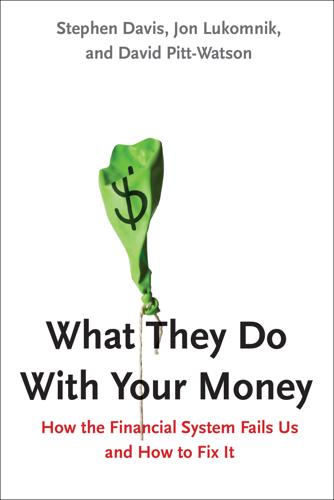
What They Do With Your Money: How the Financial System Fails Us, and How to Fix It
by
Stephen Davis
,
Jon Lukomnik
and
David Pitt-Watson
Published 30 Apr 2016
Instead of looking at how mutual funds vote their shares, Lauren Cohen and Breno Schmidt investigated these funds’ investment choices and discovered something disturbing: mutual funds buy much more stock in companies whose 401(k) plans they administer, even when these companies are troubled enough to prompt other funds to sell.11 Cohen and Schmidt concluded that there is “a potentially large benefit to the 401(k) sponsor firm of having its price propped up” by the contracted mutual fund. Moreover, “the resulting loss to mutual fund investors … can be large.” No economist would be surprised by that finding: it is well known that accountability decreases “rent seeking,” the actions an agent might take to extract a benefit from the system. So it stands to reason that a lack of accountability will tend to increase self-serving actions, even if it damaged the interests of ultimate savers. Two last studies complete our tour of the limited state of knowledge of fund governance and performance.
…
See Responsible Endowments Coalition (REC) Regulation: atomized, 128–31, 154 bank, 128–29, 175, 259n47 behavioral economics and, 143–45 contemporary approach to, 128–31 designing better, 145–51 financial crisis and, 124–25 fostering accountability and, 147–49 ossified behavior and, 131, 137 oversight and, 150–51 purpose of, 125–28 relation to financial institutions, 145 relevant and unbiased information and, 149–50 supporting fiduciary duty, 146–47, 152–53, 225–26 systemic (See Systemic regulation) transparency and, 146 Regulatory regimes, Basel rules, 152 Basel I, 125, 254n1 Basel II, 43 Basel III, 43, 125, 175, 254n1, 254n2 Rent seeking, 102–3 Research funding, for new economic thinking, 189 Reserves, bank, 213, 214–16 Responsibility: regulation and abdication of, 130–31 trust in government and, 141. See also Fiduciary duty Responsible Endowments Coalition (REC), 118, 122 Responsible Investing Academy, 140 Retirement Commission of South Carolina, 206 Retirement savings, 193–99, 201, 241n39 fees charged on, 1–3, 53 liability-driven investing and, 54–56 redirecting, 13–14 switch to defined contribution plans, 99–100, 197–99.
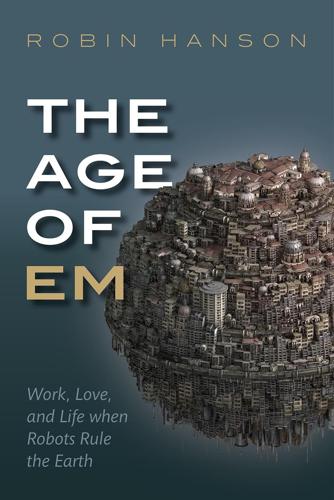
The Age of Em: Work, Love and Life When Robots Rule the Earth
by
Robin Hanson
Published 31 Mar 2016
In contrast, em clans have enormous inequality in clan size, resources, and respect. However, history gives little reason to expect much redistribution to address this kind of inequality. This kind of inequality is not very analogous to those that induced forager sharing, it does not lend itself to profitable rent-seeking, and it is very sensitive to how subclans are defined. Ems might also redistribute on the basis of speed, taking from fast ems to give to slow ones. But history also offers little precedent for this, and slower ems do not seem to be suffering much more in any clear way. Thus the main kind of redistribution that we have reason to expect in the em era is between the clans of a city, based on differences of average within-clan individual consumption.
…
Even when clans change their political alliances, and individual clan members emotionally accept such changes, there is probably a norm encouraging ems to appear to continue to work cooperatively with all members of their team, even members from conflicting clans. Without such a norm, team productivity could be overly disrupted. Factions Changing coalitions and political competition among coalitions can be socially expensive because of coalition “rent-seeking.” This is the effort that people spend to lobby for their faction or coalition among their associates. For example, people can feel pressured to favor current coalition partners when choosing spouses, neighbors, suppliers, customers, and so on. Not only does this process reduce the quality of such partners on other criteria, it creates costs to change partners when political coalitions change.
…
Not only does this process reduce the quality of such partners on other criteria, it creates costs to change partners when political coalitions change. People can also feel pressured to lobby for their faction; those who don’t may be punished for disloyalty. Political systems have long tried many solutions to curb the costs resulting from excess coalition change and rent-seeking, with varying and usually insufficient success. For example, raising the costs to change policy can discourage policy change, although this can make societies less adaptable to changing conditions. Also, identifying coalitions with abstract ideological positions can make coalitions harder to change, by suggesting that coalitions that change their positions are unprincipled or confused.
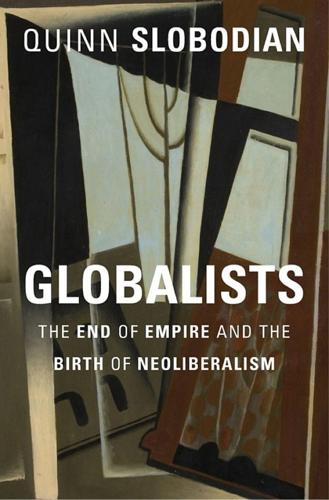
Globalists: The End of Empire and the Birth of Neoliberalism
by
Quinn Slobodian
Published 16 Mar 2018
In The Economics of the Color Bar, his most extensive application of neoliberal thought to the case of South Africa, Hutt self-consciously applied insights from Milton Friedman about U.S. racism and echoed those of Gary Becker from the same time.165 Latter-day scholars recall the book as a “conscience-raising work” and a “profound and disturbing analysis that exposed the moral horror of apartheid in South Africa.”166 At its core, Hutt argued, racism is a form of rent-seeking analogous to trade u nions defending their own privilege against the entry of nonwhite workers.167 “The chief source of colour discrimination,” Hutt suggested, was “to be found in the natural determination to defend economic privilege.”168 In his reading, racism was not of the market but outside of—and in opposition to—the market.
…
Like Schmitt, Hayek believed that the creation of law by democratically elected state governments was leading to a degeneration of the Rechtsstaat into a Gesetzesstaat, or legislative state.141 He wrote that “the weakness of the 206 GLOBALISTS government of an omnipotent democracy was very clearly seen by the extraordinary German student of politics, Carl Schmitt, who in the 1920s probably understood the character of the developing form of government better than most p eople.”142 He quoted Schmitt’s essay from 1932 to the effect that “a pluralist party state w ill become ‘total’ not from strength and force but out of weakness: it intervenes in all sectors of life, because it feels it has to fulfill the demands of all interested parties.”143 In other words, Hayek saw “unlimited” (or what Mises called “omnipotent”) democracy as leading to totalitarianism out of a logic of capture. His efforts at constitutional design from 1960 onward w ere attempts to discover an institutional fix for the tendency of democracy to stray from economic order toward particularist rent-seeking and, as Alexander Rüstow put it, the transformation of state policy and national budgets into the “prey” of special interests.144 He laid out the parameters of this institutional concept first in a speech at the Chamber of Commerce in Dortmund, published in the Frankfurter Allgemeine Zeitung.
…
See also Knowledge; Reason, abuse of Raw materials, 21, 43, 56, 71, 77, 101, 108, 131, 152; raw materials dictator, 65 Reagan, Ronald, 8, 14, 20, 23, 176 Reason, abuse of, 225, 259–260. See also Knowledge; Rationality Refugees, 120, 135, 145; refugee money, 145 Regnery, Henry, 168–169 Reisch, Richard, 66 Rent-seeking, 173, 206 Republican Party, 161 Rhodesia, 149–151, 170–171; American- Rhodesian Association, 178; Rhodesia Information Serv ice, 177; Unilateral Declaration of Independence, 170, 175 Ricardo, David, 42, 50 Riedl, Richard, 37, 40 Rights: business, 145; capital, 13, 123, 135, 138, 145–146, 254, 277; civil, 150, 263; Commission on H uman Rights, 220; to democracy, 278; to development, 220; to eat, 141; of expropriation, 265; human, 120, 176, 277–279; intellectual property, 257, 278; investor, 136–137, 144; to leave, 135, 145; market, 136, 277; negative, 121–123; private, 266; property, 25, 137, 141, 145, 279; to self-determination, 248; social and economic, 120, 247, 264; to trade, 210, 277, 280; workers’, 266; xenos, 123, 137, 148, 220, 285 Risk, systemic, 270 Rist, Charles, 78 Rivera, Diego, 281, 283 Robbins, Lionel, 8, 23, 78, 94, 96, 98, 122, 207; on European integration, 184; federation proposals of, 22, 95, 99–104, 113–114, 116–118, 131, 133, 155, 186, 209–210, 251–252, 261, 265–266, 283; and Habsburg Empire, 109; interwar international collaborations and, 30, 72–76, 84; Mises Circle and, 31, 48; and MPS, 126–127 Rockefeller Foundation, 68, 73, 75 Roessler, Frieder, 8, 223, 244–247, 252 378 Index Romania, 69, 109, 134 Roosevelt, Franklin Delano, 88, 136, 158–159 Röpke, Wilhelm, 1, 8, 129; on capital rights, 137–138, 140, 207, 248; critique of juridicism, 254; critique of postwar development policy, 124, 138–139, 157–161; on culture and race, 22, 149–151, 156–157, 160, 169–172; on empire, 180, 194; on European integration, 183, 188, 191, 202; on global order, 10–11, 14, 30, 58, 84–85, 88–89, 251, 265; International Economic Disintegration, 76, 89, 98, 113; interwar international collaboration of, 21, 57–58, 72–74, 78, 79–80, 127; and MPS, 23, 126–127, 150; on Southern Africa, 149–154, 170–172; and U.S.
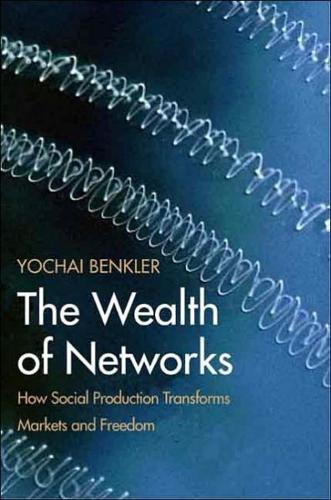
The Wealth of Networks: How Social Production Transforms Markets and Freedom
by
Yochai Benkler
Published 14 May 2006
Increasing patent protection, both in developing nations that are net importers of existing technology and science, and in developed nations that already have a degree of patent protection, and therefore some nontrivial protection for inventors, increases the costs that current innovators have to pay on existing knowledge more than it increases their ability to appropriate the value of their own contributions. When one cuts through the rent-seeking politics of intellectual property lobbies like the pharmaceutical companies or Hollywood and the recording industry; when one overcomes the honestly erroneous, but nonetheless conscience-soothing beliefs of lawyers who defend the copyright and patent-dependent industries and the judges they later become, the reality of both theory and empirics in the economics of intellectual property is that both in theory and as far as empirical evidence shows, there is remarkably little support in economics for regulating information, knowledge, and cultural production through the tools of intellectual property law. 84 Where does innovation and information production come from, then, if it does not come as much from intellectual-property-based market actors, as many generally believe?
…
Together, these legislative and judicial [pg 381] acts have formed what many have been calling a second enclosure movement: A concerted effort to shape the institutional ecology in order to help proprietary models of information production at the expense of burdening nonmarket, nonproprietary production. 152 The new enclosure movement is not driven purely by avarice and rent seeking--though it has much of that too. Some of its components are based in well-meaning judicial and regulatory choices that represent a particular conception of innovation and its relationship to exclusive rights. That conception, focused on mass-mediatype content, movies, and music, and on pharmaceutical-style innovation systems, is highly solicitous of the exclusive rights that are the bread and butter of those culturally salient formats.
…
The evidence suggests that, in fact, exclusive rights are detrimental to various downstream industries that rely on access to data. Despite these fairly robust observations from a decade of experience, there continues to be a threat that such a law will pass in the U.S. Congress. This continued effort to pass such a law underscores two facts. First, much of the legislation in this area reflects rent seeking, rather than reasoned policy. Second, the deeply held belief that "more property-like [pg 451] rights will lead to more productivity" is hard to shake, even in the teeth of both theoretical analysis and empirical evidence to the contrary. 791 Linking and Trespass to Chattels: New Forms of Information Exclusivity 792 Some litigants have turned to state law remedies to protect their data indirectly, by developing a common-law, trespass-to-server form of action.
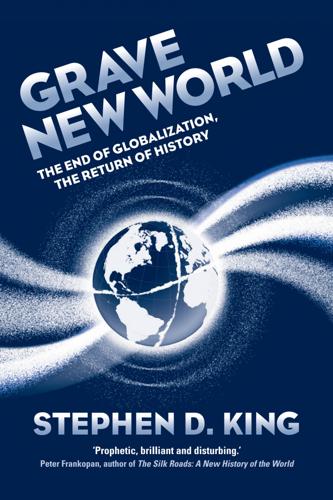
Grave New World: The End of Globalization, the Return of History
by
Stephen D. King
Published 22 May 2017
And with it, the ability of workers to earn excess ‘rents’ has declined. Elite workers, meanwhile, are increasingly compensated through both wages and capital, the latter in the form of shares and options. As a consequence, it is increasingly difficult to assess how much of their total compensation is based on merit and how much is, instead, a reflection of rent-seeking behaviour and, in some cases, their company’s monopoly profits. And elite workers increasingly have a habit of marrying each other. One consequence of the emancipation of women in the workplace is that status is determined not just by attendance at the debutantes’ ball, the level of education or parental background, but instead by simple earning power.
…
By reducing the cost of information – and by creating global online ‘hubs’ like Alibaba and Amazon, where buyers and sellers can ‘virtually’ meet one another – the global marketplace should expand, competition should intensify and pricing should become more transparent. All in all, the allocation of resources should improve, leaving output higher, prices lower and everyone – other than inefficient rent-seeking companies – happier. Yet this argument assumes that technology only works by reducing barriers to entry, limiting information asymmetries and encouraging price discovery. That’s much too narrow a view. Technology also fundamentally alters production techniques and hugely skews the distribution of income and wealth.

Black Code: Inside the Battle for Cyberspace
by
Ronald J. Deibert
Published 13 May 2013
• • • There are at least three reasons for Somalia’s robust cellular infrastructure, all of them directly related to the disastrous civil war. When the country’s central government collapsed, so did “rent seeking,” a term coined by the economist Anne Krueger in 1974 to describe the actions of companies and/or governments to extract revenues by using their positions of market authority to raise prices (“rents”). State-owned telecommunications companies have been particularly prone to rent seeking: artificially inflated rates applied to long-distance calls have been used by governments the world over to extract revenues for the state. In developing countries, the situation was dire.

Magic Internet Money: A Book About Bitcoin
by
Jesse Berger
Published 14 Sep 2020
By committing to a stable, long-term, and, in Bitcoin’s case, systematically enforceable monetary policy, it has rendered obsolete the trust assigned to central banks to morally mold money. 5.1.2 Revolution: Proof > Trust “Don’t Trust. Verify.” Bitcoin Proverb Bitcoin is a revolutionary advance in money. It tears down the primitive barriers preventing us from freely exchanging, measuring, and securely storing value on our own terms. Its trust-minimizing breakthrough reduces our dependence on rent-seeking middlemen, or “intermediaries,” to safeguard funds and process payments, and it also reduces their ability to censor the transmission of our proprietary data. With no need for permission from any financial institution, anyone can independently complete a transaction with their own digital signature – their “private key” – and everyone can verify its existence on the network’s public ledger.
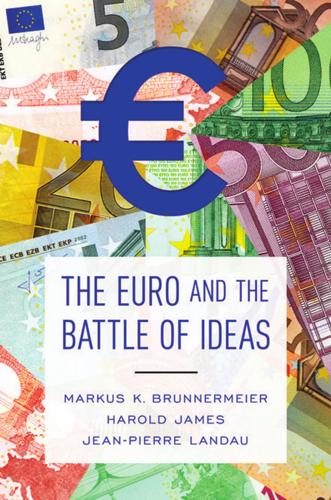
The Euro and the Battle of Ideas
by
Markus K. Brunnermeier
,
Harold James
and
Jean-Pierre Landau
Published 3 Aug 2016
That is what I had to explain to Schacht [the president of the Nazi central bank], that the first cause of the stability of our currency is the concentration camp.”10 The decision on who should benefit from the allocation of foreign exchange became political and arbitrary. The institution invited a political process of rent-seeking, and it was those who could develop the closest contacts with the regime who benefited most. The allocation of scarce raw materials was in fact the basis of Nazi economic planning and also an initial instrument in the application of anti-Semitism: Jews were discriminated against as far as access to imports of raw materials, and their businesses suffered as a result.
…
The high-unemployment rate in the periphery invites proactive young people to emigrate to the productive core of the euro area. Their emigration makes the periphery rely even more on transfers. Instead of facilitating economic convergence, a productivity gap will be cemented. Fiscal transfers also distort economic activity. People in the periphery might find it more worthwhile to pursue rent-seeking activities and hunt for subsidies instead of doing something productive. Government payments, for instance, for civil servants, that might be appropriate for high-productivity parts of the country, may be too high in low-productivity areas, making government employment look more attractive than private sector work.
…
Some geostrategic theorists in Russia promoted such strategic investments as a way of building up a gradually increased command over what Lenin had dubbed the “controlling heights” of the economy of Russia’s Western neighbors and hence for an increased extension of influence. EUROPE’S DEPENDENCY ON RUSSIAN ENERGY But the most obvious instrument for Russian control came from its energy sector. The resource curse—in which abundant natural resources (above all energy) promote rent-seeking behavior—means that many large energy exporters are prone to corrupted politics and unstable policies and have a proclivity to blackmail. For modern Europe, the most obvious threat is posed by the extent of dependence on Russian gas. Although there were incidents in which disputes between Russia and Ukraine overpricing of long-term gas contracts led to a cutoff of supplies to some areas, notably in January 2009, when there were major shortages and cutoffs in Bulgaria and Romania, the issue only reached political and popular salience as a strategic threat to Europe in the aftermath of the collapse of the Yanukovych regime in Ukraine and the subsequent Russian annexation of the Crimea and destabilization of Eastern Ukraine.
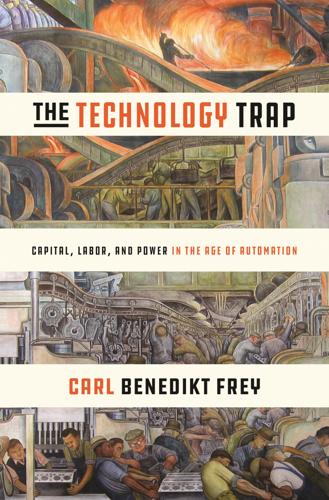
The Technology Trap: Capital, Labor, and Power in the Age of Automation
by
Carl Benedikt Frey
Published 17 Jun 2019
Inspired by the pioneering work of Douglass C. North, many economic historians have argued that it was only after the Glorious Revolution of 1688–89, when the English Parliament gained supremacy over the crown, that the preconditions for the Industrial Revolution were established.23 Before then, rent-seeking monarchs and other so-called economic parasites found it easier to extract revenue from others than to take part in productive activities, which required hard work. Article 4 of the Declaration of Rights of 1689 changed the rules of the game, as Britons could no longer be taxed without their consent.
…
The structure of power was shaped by the invention of agriculture, which meant that for the first time food could be stored, land could be owned, and individuals could accumulate a surplus of significance. This, in turn, led to the concept of property rights and a political structure to uphold those rights. The exchange of peasant labor for knightly protection created an unequal world, where rent seeking paid more handsomely than progress. The fear among the ruling classes that labor displacement would cause hardship, social unrest, and at worst a challenge to the political status quo meant that worker-replacing technologies frequently were resisted or even banned. This dynamic, in which the politically powerful had more to lose than they could gain from progress, kept the Western world in a technology trap where technologies that threatened people’s skills were forcefully resisted.
…
P., 208 Morrill Act, 364 mortality gap, 255 mortality rate, 65 mother of invention, 73 motion-picture machine operator, 178 multipurpose robots, 242, 261, 327 Mumford, Lewis, 46 Municipal Corporations Act of 1835, 86 Murnane, Richard, 237, 302 Murray, Charles, 252–53, 281 Musk, Elon, 313 Mutiny Act, 82 Napoléon Bonaparte, 9 Napoleonic War, 130 National Electric Light Association (NELA), 159 National Industrial Recovery Acts of 1933 and 1935, 200 National Labor Relations (“Wagner”) Act of 1935, 200 national minimum wage, introduction of, 211 National Recovery Administration, 178 nation states, rise of, 57 Nazi Labor front, 12 necessity, technological advances emerging from, 76 Neolithic communities, 34 Neolithic revolution, 33, 61 Neural Machine Translation (NMT), 304 neural networks, 303, 305, 314 Newcomen, Thomas, 53, 106, 317 New Deal, 200, 212, 272, 325 Newton, Isaac, 54 New World, discovery of, 19, 80 Nicholas I of Russia, Emperor, 85 Nobel Prize in Economics, 2, 4, 14, 20 Nordhaus, William, 2, 230, 297 Norman Conquest, 44 North, Douglass C., 79 North Africa, 77 nursery cities, 261 Nye, David, 155 Obama, Barack, 238, 277, 290, 322 occupational licensing, 358 occupational statistics, 219 OECD, 243, 321 Offenbach, Jacques, 53 Ogilvie, Sheilagh, 56–57 Old Poor Law, 344 OpenAI, 313 opportunity gap, societal costs of, 351 Osborne, Michael, 315 Otto, Nikolaus, 166 Ottoman Empire, 17, 66 overproduction, crisis of, 266 Owenism, 137 ownership, concept of, 34 Papin, Denis, 52, 86 Pareto improvement, 13 Paris Universal Exposition of 1867, 147 Park Avenue, 1 Paul, Lewis, 101 Pax Romana, 41 Pearl Harbor, attack on, 180 Pennsylvania Railroad, 208 Percy, Hiram, 165 personal computer (PC), 231 Peter the Great, Tsar, 58 Piketty, Thomas, 210, 217, 277, 361 “pink-collar” workforce, 241 plant downsizings, 255 Pliny the Elder, 36, 40 Polanyi’s paradox, 234, 304 polarization, politics of, 272–77; American dream, 280; Blue Wall, 284; civil rights legislation, 280; clientelism, 271; democracy and the middle class, 265–69; “disciplined self” identity, 279; economic inequality, 274, 277; Engels’ pause, 266, 287; feudal order, political participation in, 265; globalization, automation, and populism, 277–85; housing bubble, 282; identity politics, 278; inflation, 294; Labor Party, rise of, 268; labor unions, bargaining power of, 277; laissez-faire regime, 267; legitimacy of democracy, undermining of, 274; liberal democracy, components of, 267; lobbying, corporate spending on, 275; Luddite uprisings, 265; machinery riots, 265, 289; majority-rule voting system, 270; median voter theories, 270; middle class, rise of, 292; New Deal, 272; new Luddites, 286–92; political elites, 288; populist backlash, 293; Progressive Era, reform agenda of, 271; redistributive taxing and spending, 271; Rust Belt, 279, 283, 291; social class, Marx’s theory of, 265; socialism in America, 272; social media, 285; strikes, protection of car companies from, 276; technology types, distinguishing between, 287; unemployment, American social expenditure on, 274; United Auto Workers union, 276; universal white male suffrage, 270; vulnerability to populist revolutions, 264; welfare state, rise of, 272; welfare system, tax-financed, 267; working class, 278, 279 Polhem, Christopher, 149 political elites, 288 poor laws, 344 Pope, Albert A., 165 population curse, 64–67 populism, rise of, 277–85, 365 populist backlash, 293 populist renaissance, 21 populist revolutions, vulnerability to, 264 Port Clinton, Ohio, 250–51 Portuguese caravel ship, 51 power loom, arrival of, 15 prefabrication, 311 Price, Derek, 39 printing press, Gutenberg’s, 17 Procter and Gamble, 199 productivity, populations and, 64 Progressive Era, reform agenda of, 271 property rights: in American culture, 200; concept of, 62, 91; importance of, 20; in preindustrial societies, 33 Protestant Huguenots, 80 Protestant movement, 46 “proto-industrialization,” 68 prototypes: adoption of, 323; Amazon Go store, 312; developed, 261; imperfect, 298, 314; inventions turned into, 73 public clocks, 45 public infrastructure projects, 363 public schooling, 214 purchasing power, 191 Putnam, Robert, 250–51, 272, 276 railroads: arrival of, 108; declining importance of, 170; as enabling technology for revolutions, 85; network, expansion in Britain, 110; revenues (America), 208 Ramey, Valerie, 159, 332 redistributive taxing and spending, 271 Reform Acts of 1832 and 1867, 83 Reich, Robert, 235 relocation, 359–60 Renaissance, 51; as “age of instruments,” 59; beginnings of modern capitalism during, 70; great inventors of, 38; origin of, 51; productivity-enhancing technological improvements of, 54; technological advances of, 51 rent-seeking monarchs, 79 Restrepo, Pascual, 15, 144, 227, 242, 346 retraining, 353–54 Reuther, Walter, 191, 276, 356 Ricardo, David, 4, 116, 206, 345 right-to-work states, 257 robber barons, 208 Robinson, James, 19, 80 robots, 14; automobile assembly, 18; autonomous, 307; creation of new jobs for engineers, 15; flying, 312; human perception and, 318; jobs of machine operators taken over by, 14; middle-income jobs cut out by, 26; multipurpose, 242, 261, 327; of preindustrial times, 74; routine tasks performed by, 229 Rockefeller, John D., 208 Rodrik, Dani, 286–87 Roman alphabet, 47 Roman Empire: fall of, 41; most famous invention of, 38; slavery in, 74 Roosevelt, Franklin D., 157, 179, 211 Rousseau, Jean-Jacques, 62 royal trading monopolies, 80 Rural Electrification Administration, 157 Russell, Bertrand, 33, 78 Rust Belt, 279, 283, 291 Sanders, Bernie, 286 Savery, Thomas, 106, 317 Scheidel, Walter, 211 Schumpeter, Joseph, 73, 294 Schumpeterian growth, absence of, 72 Schumpeterian transformation, 49 scribes, 49, 50 Second Industrial Revolution, 22, 25, 148–73; agriculture, mechanization of, 189; American inequality during, 217; automotive industry, 202; child labor, as opportunity cost to education, 21; elimination of jobs created for machine operators during, 228; greatest virtue of, 155; mechanization following arrival of, 142; new tasks for labor spawned by, 202; skill-biased technological change, 213; skill demand raised by, 209; technological leadership of, 25; tractor use, expansion of, 196; urban-rural wage gap self-employment, 71 serfdom, 41 Shannon, Claude, 302 Sigismund I of Poland, King, 29 Silicon Valley, 257, 359 silk industry, beginnings of, 99 silk-throwing machine, 52 Simon, Herbert, 316, 336 Singer, Isaac, 149 Skill-biased technological change, 213 slavery, 39, 74 smartphone, spread of, 328 Smiles, Samuel, 110 Smith, Adam, 67, 69–70, 83, 228 Smithian growth, Schumpeterian vs., 58, 72 smokestack cities, 263 social class, Marx’s theory of, 265 socialism in America, 272 social media, 285 socioeconomic segregation, 26 Solow, Robert, 4, 180, 206, 325 speech recognition technology, 306 Spence, Michael, 292 spinning jenny, 102 spousal employment, 240 Sprague, Frank J., 152 steam engine: development of, 73; economic virtuosity of, 107; impact of on aggregate growth, 136; universal application of, 249 steel production, changed nature of, 13 Stephenson, George, 109 Stevenson, Betsey, 336 stocking-frame knitting machine, 10, 54, 76 strikes, protection of car companies from, 276 “stylized facts of growth,” 205 subjective well-being, 255 Summers, Lawrence, 261, 349 supercomputers, 290 supply of technology, obstacles to, 77 “symbolic analysts,” 235 task simplification, example of, 311 tax credits, 355–58 taxing and spending, redistributive, 271 tax revenue, 133 technological gap (1500–1700), 51 technology companies, location decisions of, 260 telephone operator, vanishing of, 201 telescope, 59 Tennessee Valley Authority (TVA) Act of 1933, 363 Tesla, Nikola, 152 textile industry, 38, 55, 95 Thirty Years’ War, 58 Thompson, E.

Nudge: Improving Decisions About Health, Wealth, and Happiness
by
Richard H. Thaler
and
Cass R. Sunstein
Published 7 Apr 2008
Presumably, it was the hope of such competition that led the government to design the program in this partially privatized manner, in which the federal government hands out subsidies but relies on the private sector to distribute the loans. However, the competition has not focused on price. Instead, the lenders have engaged in what economists call rent-seeking activities. The idea is that if there are high profits to be made, suppliers will be willing to spend a lot of time and money to get that business. Because excess profits are available to the lenders who snag the student loan business, there are temptations to do whatever it takes to get to the head of the line.
…
Jim Jonestown, Guyana judges, social influences on judgment, “heuristics and biases” approach to study of Just Maximize Choices, in education, in health care, in Swedish Social Security Kahneman, Daniel Karlan, Dean Kerry, John kidney transplants Kieboom, Aad Koehler, Jay Kurtz, Sheldon Kyoto Protocol Labor Department, U.S., and retirement plans Lay, Kenneth lemmings Leslie, Phillip Lewin, Kurt libertarian paternalism, arguments against, see counterarguments; golden rule of, of government, in health care, and marriage, in politics, as Third Way, why stop there? life expectancy “lifestyle” funds Lincoln, Abraham loans: direct-to-consumer, federal, fixed-rate, and foreclosures, “good-faith estimate” on, home equity, interest rates on, microfinance, predatory, private, rent-seeking activities in, research findings on, risky, Stafford, student, and Truth in Lending Act, variable-rate Loewenstein, George Lollapalooza festival, Chicago London: bombing in World War II, pedestrians in Long, Bridget loss aversion lotteries low stakes Madrian, Brigitte magazine subscriptions, and inertia Maine, “intelligent assignment” choice architecture in mandated choice Manilow, Barry mappings markets, feedback in, free, incentives in, invisible hand in, trading systems in Markowitz, Harry marriage: anachronistic state control of, and children, choice architecture for, civil union vs., commitment in, cost/benefit analysis of, covenant, default rules for, discriminatory history of the institution of, and divorce, as domestic partnership agreement, expectations for, factors to be considered in, goals and intentions in, legal aspects of, mandatory waiting periods for, as precommitment strategy, prenuptial agreeements, recognition by religious organizations, same-sex, single state vs., status quo bias in, use of term, variations on a theme McAllen, Texas, Medicare Part D in McFadden, Daniel Medicaid, and Medicare Part D Medicare Advantage Medicare Part D, see prescription drug plan Medicare Web site mental accounting mere-measurement effect Merrell, Katie Métro, Le, Paris Meulbroek, Lisa microfinance loans mistakes, learning from MIT, Poverty Action Lab money: borrowing, as fungible, liquid assets of households, personal savings, for retirement, see retirement plans; Save More Tomorrow money illusion money market accounts Montana, social influence in mortgage brokers mortgages, and the American dream, annual percentage rate (APR), costs of, fees, fixed-rate, and foreclosures, “good-faith estimate” in, interest-only, online shopping for, points, prepayment penalties, and RECAP, research findings about, in sub-prime market, and teaser rates, and Truth in Lending Act, variable-rate motorcycle helmets music downloads mutual funds MySpace nail polish, no-bite National Association of Chain Drug Stores National Community Pharmacists Association National Environmental Policy Act (1972) Nazism negligence: defined, right to sue for negotiations, opening offers in Nelson, Willie neutrality New Deal No Child Left Behind Act noodge, meaning of term Norman, Don, The Design of Everyday Things nudge, use of term, nudges, evaluation of obesity, and conformity, and self-control, and social influence Occupational Safety and Health Administration (OSHA) One Size Fits All optical illusions optimism “opt-in” policy “opt-out” policy Oreopoulos, Phil organ donations, “brain dead” sources of, complexities in, default rule in, explicit consent in, inertia in, mandated choice, market in, presumed consent, rejection rate in, routine removal, social norms overconfidence ozone layer painting a ceiling paint store Parker, Tom, Rules of Thumb parking garages paternalism: asymmetric, and coercion, of government, “one-mouse-click,”; One Size Fits All, rejection of, stopping point for, use of term pedestrians peer pressure Pension Protection Act (2006) pensions, see retirement plans pesticides, warnings about Petrified Forest National Park, Arizona Planners planning fallacy pluralistic ignorance politics: brand switching in, libertarian paternalism in, predictions in, private-sector interests in, probability of voting, Third Way in, voting patterns pollution popcorn portfolio theory postcompletion errors practice, and feedback preferences Prelec, Drazen prescription drug plan, available alternative plans, confusing choices in, coverage in, defects of, design of, “doughnut hole” in, and drug prices, dual eligibles in, enrollment routes, failure to serve, flexible switching option in, individuals with no coverage, intelligent assignment in, key features of, lessons to be learned from, as Medicare Part D, minimum coverage requirements for, non-enrollment as default option, and pharmacy networks; poor choices made in, price differences in, random default, RECAP proposal for, restructuring of, simplicity needed in, Web site as tool for Prestwood, Charlie presumed consent, and organ removal prices, and incentives priming procrastination publicity principle public policy, and framing random processes: neutrality in, patterns in, “streak shooting,” Rawls, John Read, Daniel RECAP (Record, Evaluate, Compare Alternative Prices), and credit cards, and Medicare Part D, and mortgages, and student loans, and transparency recycling redistribution Reflective System, and Planners Regulation Z (Truth in Lending Act) representativeness required choice restaurant health inspection retirement plans: automatic enrollment in, automatic savings for, choice architecture in, choosing, complex choices in, conflicts of interest in, contribution rates, default options in, defined-benefit, defined-contribution, discretionary contributions to, diversification rule of, education about, enrollment decisions, ERISA, errors expected in, exclusive benefit rule of, feedback in, forced choice in, “free money” in, and government, incentives in, investments for, see investments; and job switching, mappings in, matching contributions to, and mindless choosing, obstacles to saving for, portable, postretirement income needed in, prudence rule of, “safe harbor status” for, Save More Tomorrow, saving for, simplicity in, status quo bias in, synchronized to pay raises, tax-favored savings accounts right to be wrong risk assessment risk-related behavior risk tolerance Robur Aktiefond Contura, Sweden Rogers, Kenny, “The Gambler,” Romalis, John Roosevelt, Franklin D.

The Rapture of the Nerds
by
Cory Doctorow
and
Charles Stross
Published 3 Sep 2012
Rather, it evolved over a period of centuries, from a tool of state censorship (you could prevent sedition by licensing big, heavy, old-fashioned metal-type printing presses) to a tool for revenue protection (Dickens and other Victorian writers were frequently on the edge of poverty because their works were copied without credit or royalty payment by any printer who could get their hands on them), and finally, recently, into a tool for rent-seeking by big corporations with paid lobbyists. Nobody in their right mind would have designed the current system—but we're stuck with it, largely because it's now a global mess, enshrined in law by international treaty: a many-headed hydra that would require broad international agreement in order to be replaced.
…
You may think that's hair-splitting, but it's an important point; if I complied with the letter of the law I wouldn't be able to use those ebooks after the ereader they were licensed for died of old age (probably within a couple of years), but the mere fact of my having paid for those books doesn't entitle me (in the eyes of the law) to preserve them in a readable format. This is an example of what Cory means when he says that copyright will ultimately make criminals out of all of us if we don't re-draw the boundary between the public domain and the private interest of everyone involved in copyright—from actual content creators to rent-seeking owners of the rights to stuff they've somehow acquired the legal title to. I'm not encouraging you to make copies of stuff other people made and to sell them for a profit without giving payback to the original creators and the publishers who helped edit and produce the work. That's not cool, unless the creators explicitly said you could do that.
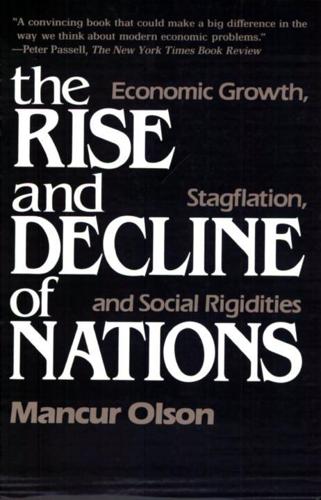
The Rise and Decline of Nations: Economic Growth, Stagflation, and Social Rigidities
by
Mancur Olson
The organizations for collective action within societies that we are considering are therefore overwhelmingly oriented to struggles over the distribution of income and wealth rather than to the production of additional outputthey are "distributional coalitions" (or organizations that engage in what, in one valuable line of literature, is called "rent seeking").-" There has long been some intuitive apprehension of this, if not of the extent of social losses that it would pay such organizations to impose on society in efforts to get a larger share of social output. This intuitive apprehension is perhaps suggested by the special-interest group label sometimes used for such organizations.
…
For reprints of their initial articles and especially pertinent articles by Keith Cowling and Dennis Mueller, Richard Posner, and Barry Baysinger. Robert B. Ekelund, Jr., and Robert D. Tollison, plus other useful papers, see James M. Buchanan, Robert D. Tollison, and Gordon Tullock, eds., Toward a Theory of the Rent-Seeking Society (College Station, Tex.: Texas A. & M. University Press, 1980). 6. A measure that would reduce economic efficiency if introduced in a Pareto-efficient society could conceivably increase efficiency in a society with prior distortions. See R. G. Lipsey and R. K. Lancaster, "The General Theory of the Second Best," Review of Economic Studies 24, no. 63:11-32. 7.

The Uninhabitable Earth: Life After Warming
by
David Wallace-Wells
Published 19 Feb 2019
It does not quite seem that way now, standing in the long shadow of the financial crisis and watching global warming beginning to darken the horizon. And yet, perhaps in part because we see the way that perspectives on climate change map neatly onto existing and familiar perspectives on capitalism—from burn-it-all-down leftists to naively optimistic and blinkered technocrats to rent-seeking, kleptocratic, growth-is-the-only-value conservatives—we tend to think of climate as somehow being contained within, or governed by, capitalism. In fact, the opposite: capitalism is endangered by climate. * * * — That Western capitalism may owe its dominance to the power of fossil fuels is not anything like consensus economic wisdom, but it also isn’t just a pet theory of the socialist Left.
…
Global warming could cultivate emergent forms of eco-socialism on one end of the spectrum, and could also conceivably produce a collapse of faith in anything but the market, on the other. Trade will surely endure, perhaps even thrive, as indeed it did before capitalism—individuals making trades and exchanges outside a single totalizing system to organize the activity. Rent-seeking, too, will continue, with those who can scrambling to accumulate whatever advantages they can buy—the incentive only increasing in a world more barren of resources, and more mournful of recent apparent abundance, now disappeared. This last is more or less the model that Naomi Klein memorably sketched out in The Shock Doctrine, in which she documents just how monolithically the forces of capital respond to crises of any kind—by demanding more space, power, and autonomy for capital.
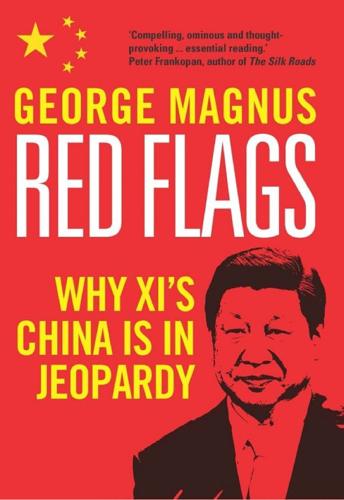
Red Flags: Why Xi's China Is in Jeopardy
by
George Magnus
Published 10 Sep 2018
It maintained the Great Wall of China over many centuries as a defensive and border control structure, and raised taxes to fund the imperial and military establishments. Important as the bureaucracy was to China’s development, it was not without weaknesses. Autocratic governance and administration fostered what we would call nowadays rent-seeking, or the manipulation of public policy or positions of power to influence or generate money or profit. Rent-seeking, often associated with corruption, is a recurring problem in China to this day. The bureaucracies of past dynasties provided continuity of administration and security, but they were also associated with the corrosive forces of patronage and corruption.
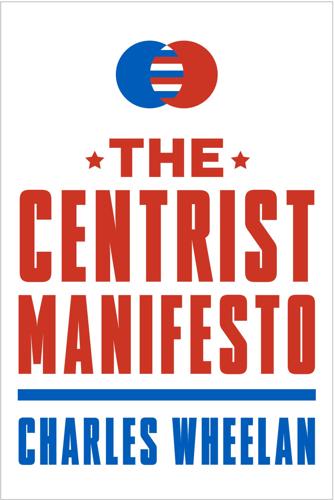
The Centrist Manifesto
by
Charles Wheelan
Published 18 Apr 2013
America has never promised great outcomes for all, but it has always promised equal opportunity. At their best, the Democrats understand that when poor children are stuck in lousy schools, or when middle-class families cannot afford college, we are not fulfilling that promise. The Democrats are also right to focus on “rent seeking” by the very rich—the notion that the most privileged Americans (such as Wall Street bankers) are using their political clout to enrich and protect themselves in ways that make the rest of us worse off. There is no doubt that the 2008 financial crisis was caused in part by a regulatory system that allowed financial firms to earn staggering profits when times were good while leaving the government with the tab for huge private losses when the party was over.
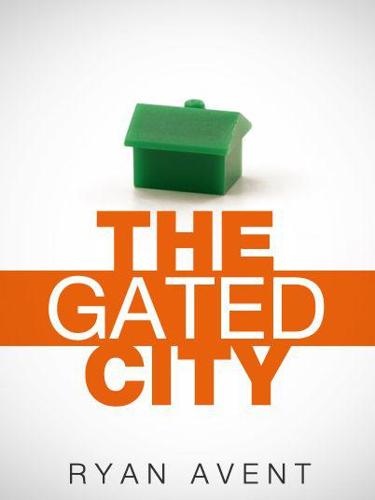
The Gated City (Kindle Single)
by
Ryan Avent
Published 30 Aug 2011
About 80% of Americans live in metropolitan areas, despite the fact that land there is generally more expensive than in the surrounding rural areas. One in three Americans lives in the country’s 15 largest cities alone. There is too much of a metropolitan component to modern life to chalk metropolitan ubiquity up to showing off and rent-seeking and nothing else. And there is another matter to consider -- cities are full of firms that produce for other markets. Why is this an issue? People have the option to live most anywhere they want. A person isn't going to take a job in an expensive city unless that job compensates him for the higher cost of living.
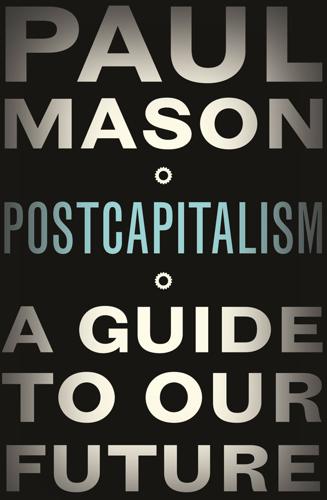
Postcapitalism: A Guide to Our Future
by
Paul Mason
Published 29 Jul 2015
Amid the candlelight of the pubs where the early trade unions met, David Ricardo suddenly had a whole new set of followers. The worker-intellectuals of the 1820s understood the revolutionary implication of the labour-theory: if the source of all wealth is work, then there’s a legitimate question about how that wealth should be distributed. Just as a rent-seeking aristocracy can be shown to be parasites on the productive economy, so too can capitalists be seen as parasites on the work of others. Their work is needed – but the factory system looks as if it is structured to deliver them excess rewards. ‘There is nothing more than the knowledge, skill and labour requisite [to set up a factory] on which the capitalist can found a claim to any share of the produce,’ wrote Thomas Hodgskin, a naval lieutenant turned socialist, in 1825.8 As illegal trade unions spread the doctrine of ‘Ricardian socialism’, the factory owners’ enthusiasm for the labour-theory waned.
…
The aim would be to ensure the global finance system could, in the short to medium term, return to its historic role: efficiently allocating capital between firms, sectors, savers and lenders, etc. The regulations could be a lot simpler than the Basel III Treaty, because they would be backed up by strict criminal enforcement and professional codes in banking, accountancy and law. The guiding principles would be to reward innovation and to penalize and discourage rent-seeking behaviour. For example, it would become a breach of professional ethics for a chartered accountant or qualified lawyer to propose a tax avoidance scheme, or for a hedge fund to store uranium in a warehouse to drive its spot price higher. In countries such as the UK, Singapore, Switzerland and the USA with globally oriented finance sectors, governments could offer a deal whereby, in return for coming clearly and transparently onshore, some limited lender of last resort facilities were made available to the remaining high-risk, profit-oriented finance firms.
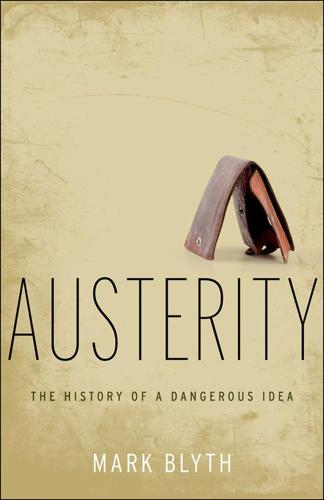
Austerity: The History of a Dangerous Idea
by
Mark Blyth
Published 24 Apr 2013
Public choice theory, like any universal gizmo, has not only helped revolutionize the institutional relationship between voters, politicians, and bankers in democratic societies, it has become, as Daniel Dennett said about evolution in Darwin’s Dangerous Idea, the “universal acid” that eats away everything it touches by turning everything into a principal-agent/rent-seeking problem.74 Think that countries in a currency union might actually come to each other’s aid out of a sense of solidarity? Don’t be so naïve. Moral hazard is ever present. Worried that you can’t tell what the future may hold? Don’t worry. Properly defined rules will make the future conform to your preferred vision. Terrified that profligate governments will not reform their economies when you compensate for their unemployment through transfers? You are right. They will not do so, they will “hide and rent seek” off your taxpayers; so their governments should be replaced with ones that you can trust.
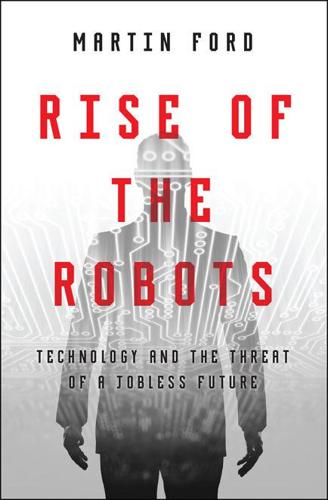
Rise of the Robots: Technology and the Threat of a Jobless Future
by
Martin Ford
Published 4 May 2015
The compensation paid to workers in the financial sector has also exploded over the past three decades, and is now about 70 percent more than the average for other industries.52 The assets held by banks have ballooned from about 55 percent of GDP in 1980 to 95 percent in 2000, while the profits generated in the financial sector have more than doubled from an average of about 13 percent of all corporate profits in the 1978–1997 timeframe to 30 percent in the period between 1998 and 2007.53 No matter how you choose to measure it, finance has grown dramatically as a share of economic activity in the United States and, to a somewhat less spectacular degree, in nearly all industrialized countries. The primary complaint leveled against the financialization of the economy is that much of this activity is geared toward rent seeking. In other words, the financial sector is not creating real value or adding to the overall welfare of society; it is simply finding ever more creative ways to siphon profits and wealth from elsewhere in the economy. Perhaps the most colorful articulation of this accusation came from Rolling Stone’s Matt Taibbi in his July 2009 takedown of Goldman Sachs that famously labeled the Wall Street firm “a great vampire squid wrapped around the face of humanity, relentlessly jamming its blood funnel into anything that smells like money.”54 Economists who have studied financialization have found a strong correlation between the growth of the financial sector and inequality as well as the decline in labor’s share of national income.55 Since the financial sector is, in effect, imposing a kind of tax on the rest of the economy and then reallocating the proceeds to the top of the income distribution, it’s reasonable to conclude that it has played a role in a number of the trends we’ve looked at.
…
See personal consumption expenditure (PCE) Peltzman, Sam, 267 Peltzman effect, 267 Penn State, MOOCs and, 136 pensions, 222, 224 people analytics, 93 Perelman, Les, 130–131 per-employee valuations, technology sector and, 175 permanent income hypothesis, 210–211 personal consumption expenditure (PCE), 202n personal robots, 7 pharmacists, 172–173n pharmacy robotics, 153–155 Philippines, income inequality in, 46 Pierson, Paul, 57 Piketty, Thomas, 275 Pinker, Steven, 237 “Piquant” system, 99–100 plagiarism, MOOCs and, 136–137 Player Piano (Vonnegut), 32 PlayStation, 4 plutocracy, 219 plutonomy, 198 polarization, job-market, 50–51 politics advancing technology and, 57–58 financial elite’s influence over, 47–48, 59–60 guaranteed income concept and, 260–261, 278–279 post-scarcity economy, 247 Poterba, James, 222 poverty trap, 262 Prey (Crichton), 244 prices deflation and, 216–217 drug, 170–171 effect of automation on, 215–216 PrimeSense, 4 Princeton University, MOOCs and, 133 Principles of Economics (Frank & Bernanke), 37 Principles of Economics (Taylor & Weerapana), 37 productivity, 206–207 defined, 35n information technology and, 52 recessions and, 207–208 technological progress and, 33 wages and, xi, 33, 35–38, 38n product lifecycles, robots and, 11 professionals, erosion of employment for, xvi–xvi “Professionals Against Machine Scoring of Student Essays in High Stakes Assessment” (petition), 129, 130 progress, lack of broad-based, 64–65 proton beam facilities, 164 public universities, MOOCs and, 142 purchasing power distribution of, 197, 198 guaranteed income and, 265–266 jobs and, xvii “Quill” software, 84–86 Rabkin, Eric, 137 Race Against the Machine (Brynjolfsson & McAfee), 60 Radical Abundance (Drexler), 243, 246 radio-frequency identification (RFID), 154, 157 radiologists, artificial intelligence and, xv, 152 Rand, Ayn, 264 recessions investment and, 227 months for employment to recover, 45 productivity and, 207–208 stagnant income, rising costs, and, 217–218 See also Great Recession recursive improvement, Artificial General Intelligence and, 231–232 Redbox movie rental kiosks, 18–19 regulatory capture, 170 religious overtones of Singularity, 235 “Remaining Awake Through a Great Revolution” (King), 29–30 rent seeking, financialization and, 55–56 Republicans, income distribution preferred by, 47n reshoring, 8–12 resource depletion, technology and, xvii, 282–283 restocking, automated, 18–19 retail sector, 16–20, 87, 88. See also online retailing Rethink Robotics, 5, 7, 10 retirement income, 222 Reuther, Walter, 193 reverse engineering the brain, 237 RFID.
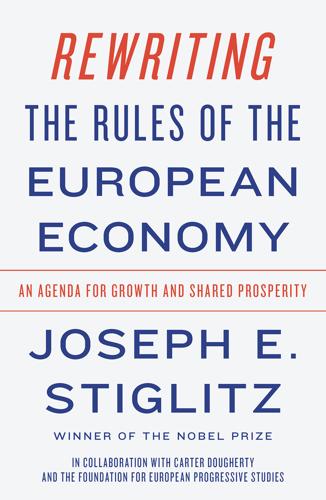
Rewriting the Rules of the European Economy: An Agenda for Growth and Shared Prosperity
by
Joseph E. Stiglitz
Published 28 Jan 2020
There are suggestions that it would also improve gender equality.5 There is no evidence that these lower rates at the top (or lower inheritance and net wealth taxes) have led to more growth. Indeed, empirical studies suggest that there is no relationship between lowering tax rates at the top and economic growth.6 But there is a persuasive argument that those lower taxes encourage rent-seeking, as it incentivizes attempts to increase profits by exploiting, for instance, market power or government relationships. Such behavior interferes with economic efficiency and undermines growth.7 Empirical studies also suggest that when heirs inherit a large sum they are not as motivated to work.8 Taxing inheritances, therefore, might even have positive effects on growth and employment.
…
Europe’s experience corresponded to that of the United States in which Reagan’s supply-side politics were no more successful. Lowering taxes, especially on the rich, did not lead to the predicted supply responses. It did lead to the anticipated increases in inequality. Also predictably, it led to more rent-seeking, which became more profitable. Liberalization increased gaps between social and private returns, which led to a diversion of resources from wealth creation to exploitation of market power and dominant positions. ‡ The change may be even greater than these numbers suggest. National labor income includes the incomes of bankers, CEOs, and other highly paid professionals.
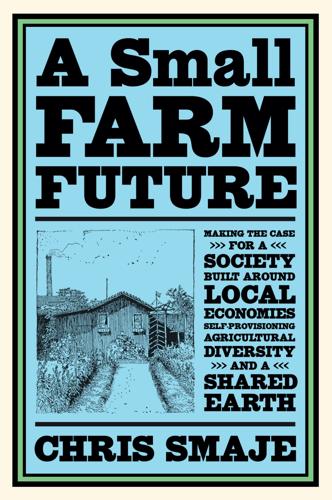
A Small Farm Future: Making the Case for a Society Built Around Local Economies, Self-Provisioning, Agricultural Diversity and a Shared Earth
by
Chris Smaje
Published 14 Aug 2020
Naomi Klein calls it ‘McGovernment’, a ‘happy meal of cutting taxes, privatizing services, liberalizing regulations, busting unions’ to remove impediments to private markets.125 In this way, the ideal of the creative and productive neoliberal market economy becomes the reality of rapacious and unfettered rent-seeking by global capital. Can national states reclaim capitalism for their wider citizenries? Can Main Street hold its own over Wall Street? This is the claim of some reformist economic thinkers, but it seems unlikely without wider system change in view of the expansionary logic of the M → Mʹ loop which now has few options but to abstract itself from bounded territory and ‘de-materialise’ from sites of actual production like farms and factories in favour of ‘virtual’ connections like computerised financial markets or distribution platforms – what’s sometimes called a capitalist ‘Empire’ where the symbolic economy is further freed to overrun physical reality.126 In that sense, many of the crises outlined earlier might be seen as warnings from the non-symbolic world not to get too dazzled by our symbolic goods.
…
We might also speak of an ‘ecological rent’ levied by the Earth on our present global political economy in currencies of climate stability, soil renewability, water availability and crop resilience, with payments overdue. I find it hard to see how the interlocking crises we face won’t be augmented, leading ultimately to breakdown in social systems and planetary systems, if we continue down these present paths of economic and ecological rent-seeking. But there’s an outside chance that recapturing the garden and turning to intensive smallholder agriculture may avert that outcome and restore well-being. Small-scale farming has persisted to the present often in hostile policy environments. If political institutions and scientific research were devoted to actively supporting it, there’s a good chance it could produce higher returns acre for acre than existing forms of capitalist farming (in fact, as we’ll see in Part II, sometimes it already does), while producing copious low-carbon, labour-intensive employment of the kind that green new dealers and ecological economists argue is necessary for sustainable prosperity.

Cities in the Sky: The Quest to Build the World's Tallest Skyscrapers
by
Jason M. Barr
Published 13 May 2024
Of course, developers can use their buildings to enhance their reputations, but it’s their own prerogative. In the United States starchitects are a form of charity, but in London they are tithes. Or rather, as two London School of Economics (LSE) economists, Paul C. Cheshire and Gerard H. Dericks, see it, the hiring of starchitects is a form of rent seeking—the making of a payment or the expenditure of resources solely to get access to a valuable “prize.” In fact, they found that in Chicago only 3 percent of offices were designed by trophy architects. In Brussels, none were. But in London, the share is about one-quarter. Since planners are the gatekeepers, they restrict office supply, helping to promote excessively high office rents in London, which are nearly the highest in the world.
…
Chengxi, Yang. “Has World’s 2nd Tallest Building Failed? The Pros and Cons of Shanghai Tower’s Unique Design.” CGTN, September 1, 2020. https://news.cgtn.com/news/79416a4e32514464776c6d636a4e6e62684a4856/index.html. Cheshire, Paul C., and Gerard H. Dericks. “ ‘Trophy Architects’ and Design as Rent-Seeking: Quantifying Deadweight Losses in a Tightly Regulated Office Market.” Economica 87, no. 348 (2020): 1078–1104. Chicago Tribune. “New York Gossip,” February 25, 1883. Chicago Tribune. “Chicago Real Estate,” July 29, 1888. Clark, William Clifford, and John Lyndhurst Kingston. The Skyscraper: A Study in the Economic Height of Modern Office Buildings.
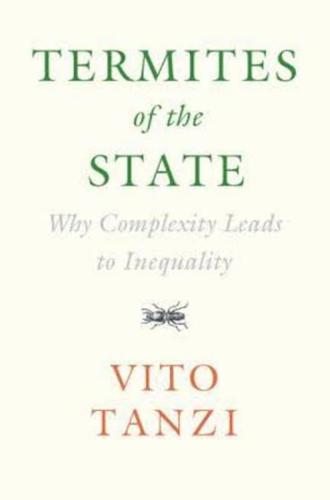
Termites of the State: Why Complexity Leads to Inequality
by
Vito Tanzi
Published 28 Dec 2017
They attribute the failures not so much to the low quality of the employees in the public administration, but to more fundamental issues that could not be corrected by simply hiring more and better-trained administrative staff. Weak institutions and unclear or poor rules within the public sector; specific attitudes and biases on the part of policymakers and high-level bureaucrats; pressures coming from powerful vested interests; rent-seeking in different parts of the public sector; increasing corruption and governance problems in general, at both the administrative and the political level; and, in more recent years, new problems that have become intrinsically more difficult to solve, due to the fact that markets have become more complex, public sectors have become larger and more difficult to control, and some problems have become global – all of these concerns are making government failures more likely, even with much improved national, 69 70 Termites of the State public administrations.
…
Putting it differently, the market might require more governmental intervention not to replace it in some aspects, as some economists and policymakers with leftist bents would like the government to do. Rather, the government would intervene to make the market function more closely to the way that an efficient market ought to function. The objective would be to remove, or at least to reduce, rent-seeking, abuses, cronyism, tax 230 Termites of the State avoidance, tax evasion, and other factors that have been playing a growing and, often, invisible role in today’s presumably “free” (but complex) market. In some sense it might be argued that this was the real call of the so-called Washington Consensus, the thinking that became popular in the 1990s but that was only partly and superficially followed by the actions then undertaken by some governments.
…
Many became convinced that the politicians who made the rules under which individuals and enterprises operated could be influenced, and were being influenced, by powerful lobbies, 388 Termites of the State or that they could even be bought by rich or well-connected individuals. See Cost, 2015. Complaints about the role of cronyism, revolving-door policies, rent-seeking, corruption, and other problems became more frequent, leading, in several countries, to a worrisome rise of populist forces. Initially, some had dismissed the complaints as class warfare. In the years that had followed the Great Depression of the 1930s and World War II, many governments had responded to the calls by economists and citizens for a larger government involvement in the economy by creating welfare states, or, as in the United States, by introducing new social programs, such as the War on Poverty.

The Price of Time: The Real Story of Interest
by
Edward Chancellor
Published 15 Aug 2022
Besides, the main beneficiaries of the great wealth bubble were the 1 per cent, while the rest of the 99 per cent struggled with weak income growth, unaffordable housing and excessive debts. Rising inequality, as economists never tire of pointing out, is not good for economic growth – especially the ‘bad inequality’ that arises from corporate rent-seeking of the type which thrived after 2008. Although ultra-low interest rates and massive securities purchases by central banks dampened market volatility, the financial system was weakened by the prolonged period of easy money. A frantic search for yield encouraged investors to take greater risks and underwriters to lower lending standards.
…
Kotkin, Joel, The Coming of Neo-Feudalism: A Warning to the Global Middle Class (New York, 2020). Krippner, Greta, Capitalizing on Crisis: The Political Origins of the Rise of Finance (London, 2011). Krippner, Greta, ‘The Financialization of the American Economy’, Socio-Economic Review, 2005. Krueger, Anne O., ‘The Political Economy of the Rent-seeking Society’, American Economic Review, 64 (3), June 1974: 291–303. Krugman, Paul, ‘The Hangover Theory’, Slate, 3 December 1998. Krugman, Paul, ‘The Myth of Asia’s Miracle’, Foreign Affairs, 73 (6), November/December 1994: 62–78. Kumhof, Michael, Rancière, Romain and Winant, Pablo, ‘Inequality, Leverage and Crises: The Case of Endogenous Default’, IMF Working Paper, November 2013.
…
Wei Gu and Chuin-Wei Yap, ‘China, Fighting Money Exodus, Squeezes Business’, Wall Street Journal, 8 March 2016. 122. Jamil Anderlini, Ben Bland, Gloria Cheung and Lucy Hornby, ‘Chinese Billionaire Abducted from Hong Kong’, Financial Times, 31 January 2017. 123. Shaw, Financial Deepening, p. 15. 124. See Anne O. Krueger, ‘The Political Economy of the Rent-seeking Society’, American Economic Review, 64 (3), June 1974. 125. Karl Marx, Capital, vol. III, ed. Friedrich Engels (London, 1894), p. 362 fn. 126. John Kenneth Galbraith, The Great Crash 1929 (London, 1993), pp. 152–3. 127. Yan Sun, Corruption and Market in Contemporary China (Ithaca, NY, 2018), p. 75. 128.
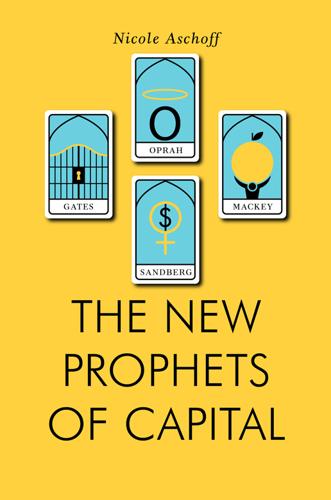
The New Prophets of Capital
by
Nicole Aschoff
Published 10 Mar 2015
Instead, getting the historical narrative right is important because the stories we tell “deeply affect the very way in which we understand the nature and the development of the market, as well as its interrelationship with the state and other institutions.”26 In the neoliberal narrative states are interlopers, under the thumb of rent-seeking politicians and bureaucrats, whose field of action should be restricted. The market, and the firm within it, is a natural thing following nature’s laws, and the state is an unnatural, potentially dangerous thing, following human laws. The implication of this historical narrative is that the state must always justify its actions—justify why it is messing with natural market processes that, according to neoliberals, don’t need its intervention.

Human Frontiers: The Future of Big Ideas in an Age of Small Thinking
by
Michael Bhaskar
Published 2 Nov 2021
Ates see the role of those ever-stronger market-leading companies as critical.30 They note increases in the companies’ power and wealth, and corresponding increases in aggressive patenting activity (more of which below). This bloating and ossification enables establishment firms to dominate markets without real change. Vested interests, always averse to the unknown, then cream off the rewards of their entrenchment. Rent-seeking trumps innovation. Many companies cosy up to government for easy contracts – crony capitalism is still here. Markets, including the commanding heights of tech, are gridlocked, the same blue-chip names paraded year after year. Incentives for wrenching change wither in this environment – indeed, sectors that have a near miss on a major merger or acquisition remain more innovative, see more new companies and investment come in.31 The results are the pronounced shifts, already observed, towards development and away from research; pressure to return earnings to shareholders rather than reinvest them; a consolidation of big, older companies unwilling to disrupt themselves; a requirement to prove financial return that infects everything from the arts to academia.32 Over 80 per cent of the value of the S&P 500 is in intangible assets, which only makes companies want to husband and protect such assets, not radically alter them.33 The holding of such assets, including software, has moreover been correlated with decreased dynamism: sectors associated with these investments see a greater persistence of firms and less leapfrogging.34 All this creates what Mazzucato calls a ‘parasitic innovation ecosystem’, where large, powerful incumbents coast on work done elsewhere.35 Away from the glossy brochures, the phalanx of buzzword-spouting management consultants, the calendar-filling conferences, is a system both short-termist and static, risk-averse and returns-driven, timid and defensive.
…
At this point humanity enters the most perilous phase of the road – what form these tools and ideas take will dictate everything. Over the medium term, R&D spend on the tools escalates. But despite the presence of those organisations, much of it is spent poorly and unevenly; focused on incremental innovations or rent-seeking behaviours or weaponised uses. Nonetheless, it's plausible to envisage huge ramps up coupled with tight focus – say a technological arms race between China and a Washington–Silicon Valley axis, ploughing the superpowers’ best minds and resources into a bleeding-edge generative technology. As in periods of the twentieth century, meaningful competition spurs the United States to new heights.
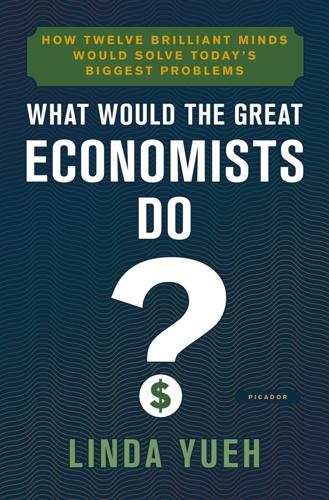
What Would the Great Economists Do?: How Twelve Brilliant Minds Would Solve Today's Biggest Problems
by
Linda Yueh
Published 4 Jun 2018
So, the farmers do not earn more if they have to work harder to produce a bushel of corn. Thus, only the landowners gain from higher land prices owing to scarcity. They have not exerted any effort to earn the higher rents charged to farmers. This is in line with his view of landowners, of course, that they were rent-seekers. Rent-seeking is one of the most widely used economic concepts today, for example, to explain why political corruption persists in some oil-rich countries, since there is an incentive to seek to hoard the ‘rents’ from selling oil and not share it with the country as a whole. Ricardo’s model of international trade David Ricardo’s approach to international trade was rooted in his background, while his interest in economics was stimulated by The Wealth of Nations, so it is unsurprising that he further developed Adam Smith’s approach.
…
joint-stock companies Jones, Homer Journal of Economic Perspectives Journal of Political Economy JPMorgan Juncker Plan Kahn, Richard Kant, Immanuel Keynes, John Maynard and the backlash against globalization and the Bloomsbury Group and Bretton Woods System and budget deficits counter-cyclical policies and crowding out on depression/recession The Economic Consequences of the Peace fiscal activism and Friedman The General Theory of Employment, Interest and Money and government spending on government’s role in economy and Hayek and investors Keynesian revolution legacy life and times of and Marshall and Niemeyer and paradox of thrift at Paris Peace Conference Prices and Production and public investment and Robbins Robinson and Keynes/Keynesian economics and Schumpeter and ‘socializing investment’ A Tract on Monetary Reform and the Treasury A Treatise on Money wealth Keynes, John Neville Khrushchev, Nikita Knight, Frank Kodak Korea North South Krugman, Paul Krupp Kuznets, Simon labour force growth labour productivity and work incentive laissez-faire landowners Lassalle, Ferdinand Latin America currency crisis (1981–82) see also specific countries League of Nations Lehman Brothers Lenin, Vladimir Leontief, Wassily Lewis, Arthur Lewis, Barbara (‘Bobby’) Life Extension Institute Linda for Congress BBC documentary London London School of Economics and Political Science London Stock Exchange Long Depression (1880s) Lopokova, Lydia Louis XIV LSE see London School of Economics and Political Science Lucas, Jr, Robert Ma, Jack (Ma Yun) Maastricht Treaty macroprudential policy see also central banks; financial stability Malaysia Malthus, Thomas Manchester Mandela, Nelson manufacturing additive (3D printing) automation in China and deindustrialization GDP contribution in UK German high-tech and industrialization see also industrialization Japan ‘manu-services’ ‘March of the Makers’ mass-manufactured goods and national statistics reshoring rolling back deindustrialization process and Smith trade patterns changed by advanced manufacturing US Mao Zedong Maoism ‘March of the Makers’ marginal utility analysis marginalism market forces/economy ‘Big Bang’ (1986) competition see competition and economic equilibrium see economic equilibrium emerging economies see emerging economies Hayek and the supremacy of market forces ‘invisible hand’ and laissez-faire and Marx 4 self-righting markets supply and demand see supply and demand Marshall, Alfred on approach to economics and the backlash against globalization and the Cambridge School and decentralization Economics of Industry and education’s role in reducing inequality and inequality and Keynes and laissez-faire legacy life and times of marginal utility analysis and Marx and poverty Principles of Economics and utility theory Marshall, Mary, née Paley Marx, Heinrich Marx, Henriette, née Pressburg Marx, Jenny, née von Westphalen Marx, Karl and agriculture and the backlash against globalization Capital and capitalism and China and class Communist Manifesto (with Engels) communist theories A Contribution to the Critique of Political Economy doctoral thesis The Eighteenth Brumaire of Louis Bonaparte and Engels journalism life and times of and Marshall and rate of profit and Ricardo and Russia on service sector workers surplus value theory and the Young Hegelians Marx, Laura Marx, Louise Marxism and the Austrian School and unemployment see also Marx, Karl Mason, Edward mathematical economics Mauritius May, Theresa Meade, James median income Menger, Carl mercantilist policies see also Corn Laws Merkel, Angela Mexico middle class China and economic growth and economic inequality and European revolutionaries income and industrialization and Keynes and Heinrich Marx as proportion of world population and Schumpeter social resentment US Mill, James Mill, John Stuart On Liberty Principles of Political Economy Minsky, Hyman Mises, Ludwig von Mitchell, Wesley mobile phones/smartphones monetarism see also Friedman, Milton monetary policy and Friedman tools see also quantitative easing (QE) see also central banks monopolies and Marx natural and Robinson and Schumpeter and Smith and Sraffa monopsony Mont Pelerin Society Morgenthau, Henry mortgage-backed securities (MBS) mortgage lending and the 2008 financial crisis sub-prime Myanmar Myrdal, Gunnar Napoleon I Napoleon III Napoleonic Wars national/official statistics China UK US national debt Austria and central banks China and creditors and debt forgiveness and deficits euro area and foreign exchange reserves and investment Japan major economies owed to foreigners and quantitative easing and Ricardian equivalent UK US Vietnam National Health Service (UK) National Infrastructure Commission (UK) Navigation Acts neoclassical economics convergence hypothesis ‘neoclassical synthesis’ New Neoclassical Synthesis see also Fisher, Irving; Marshall, Alfred; Solow, Robert Neoclassical Synthesis see also Samuelson, Paul New Classicists see also Lucas, Jr, Robert New Deal New Institutional Economics see also North, Douglass New Keynesians see also Stiglitz, Joseph New Neoclassical Synthesis New Rhineland News (Cologne) New Rhineland News: Review of Political Economy (London) new trade theory New York Herald New York Times New York Tribune Newcomb, Simon Newsweek Niemeyer, Sir Otto Nissan Nixon, Richard Nokia non-tariff barriers (NTBs) Nordhaus, William North, Douglass and the backlash against globalization and development challenges doctoral thesis The Economic Growth of the United States from 1790 to 1860 and institutions Institutions, Institutional Change and Economic Performance life and times of Nobel Prize path dependence theory and Smith North, Elizabeth, née Case North Korea Northern Rock Oak Ridge National Laboratory Obama, Barack Occupy movement oil industry Organisation for Economic Co-operation and Development (OECD) Osborne, George Overseas Development Institute (ODI) Oxford University Balliol College Paine, Thomas Paley, Mary Paris Peace Conference path dependence theory see also North, Douglass Peel Banking Act Philips, Lion Philips (electronics company) physical capital Physiocrats Pigou, Arthur Cecil Piketty, Thomas pin-making Pinochet, Augusto Ponzi finance populism Portugal poverty aid and development see economic development challenges eradication/reduction frictional and Marshall and Marx and median income people lifted from in South Africa productivity and agriculture ‘benign neglect’ of Britain’s productivity puzzle and computers and economic growth and education and factor reallocation and Germany and Hayek incentives and industry/industrial revolution and innovation and investment Japan and jobs labour see labour productivity and land low and Marshall moving into higher sectors of and pricing raising and Schumpeter and secular stagnation slow economic and productivity growth and the future and specialization and technology total factor productivity and trade and wages Prohibition protectionism agricultural see also Corn Laws Navigation Acts public-private partnerships public investment and Keynes public spending general government spending see government spending public investment see public investment squeeze see also austerity Puerto Rico quantitative easing (QE) Quantity Theory of Money see also Friedman, Milton; monetarism; Equation of Exchange Rand, Ayn RAND Corporation rate of profit rational expectations theory Reagan, Ronald recession/depression debt-deflation theory of depression Great Depression see Great Depression (1930s) Great Recession (2009) Greece ‘hangover theory’ of Hayek on and Keynes Long Depression (1880s) second recession (1937–38: recession within the Depression) in UK 1970s redistribution Regional Comprehensive Economic Partnership (RCEP) Reich, Robert reindustrialization Reisinger, Anna Josefina Remington Rand rent-seeking research and development (R&D) investment China Research in Motion (RIM) retail trade Rhineland News Ricardian equivalence Ricardo, David and the backlash against globalization and class comparative advantage theory and the Corn Laws Essay on the Influence of a Low Price of Corn on the Profits of Stock The High Price of Bullion international trade theory as a landlord life and times of as a loan contractor and Marx On the Principles of Political Economy and Taxation and Schumpeter and Smith wealth Ricardo, Priscilla Robbins, Lionel Robinson, Austin Robinson, James Robinson, Joan The Accumulation of Capital and the AEA and the backlash against globalization and communism Economic Philosophy The Economics of Imperfect Competition Essays in the Theory of Employment and imperfect competition Introduction to the Theory of Employment and Keynes and Keynesian economics life and times of and monopolies monopsony theory and Schumpeter and unemployment wage determination theory robotics Rodrik, Dani Rolls-Royce Roosevelt, Franklin D New Deal Russia 1905 Revolution and Lenin and Marx Samsung Samuelson, Paul and the backlash against globalization Economics factor-price equalization theorem Nobel Prize savings for capital investment and inflation and Keynes and the ‘paradox of thrift’ Say, Jean-Baptiste Schmoller, Gustav von Schumpeter, Anna, née Reisinger Schumpeter, Gladys, née Seaver Schumpeter, Joseph and the backlash against globalization as banker/investor Business Cycles and capitalism Capitalism, Socialism and Democracy ‘creative destruction’, innovation and ‘The Crisis of the Tax State’ and the Econometric Society economics and entrepreneurs on Fisher and Hayek History of Economic Analysis and Keynes legacy life and times of The Nature and Content of Theoretical Economics and perfect competition and Ricardo and Robinson Theory of Economic Development wealth Schumpeter, Romaine Elizabeth, née Boody Schumpeter Group of Seven Wise Men Schwartz, Anna Jacobson Schwarzenegger, Arnold Scottish Enlightenment Seaver, Gladys Ricarde see Schumpeter, Gladys secular stagnation self-interest services sector China and deindustrialization financial services see financial services global trade in services human capital investment invisibility of liberalization ‘manu-services’ and Marx move away from and national statistics output measurement productivity and innovation and Smith Trade in Services Agreement (TiSA) UK US shadow banking Shiller, Robert silver Singapore Skidelsky, Robert skill-biased technical change skills shortage small and medium-sized enterprises (SMEs) smartphones/mobile phones Smith, Adam and the backlash against globalization as Commissioner of Customs for Scotland economic freedom on ‘invisible hand’ of market forces and laissez-faire economics legacy life and times of and manufacturing and Marx and North and Physiocracy on rate of profit and rebalancing the economy and Ricardo and the services sector and state intervention The Theory of Moral Sentiments The Wealth of Nations social capital social networks social services socialism communist see communism vs welfare state capitalism Solow, Barbara (‘Bobby’), née Lewis Solow, Robert and the backlash against globalization with Council of Economic Advisers doctoral thesis economic growth model ‘How Economic Ideas Turn to Mush’ John Bates Clark Medal and Keynesian economics life and times of Nobel Prize Presidential Medal of Freedom and technological progress Sony Sorrell, Sir Martin South Africa South Korea Soviet Union and China Cold War collapse of see also Russia Spain specialization spontaneous order Sraffa, Piero stagflation Stanley Black & Decker state government regulation intervention in the economy laissez-faire STEM (science, technology, engineering and mathematics) workers sterling Stigler, George Stiglitz, Joseph stocks and Fisher and interest rates US railroad Strachey, Lytton Strahan, William Strong, Benjamin Sturzenegger, Federico Summers, Lawrence supply and demand see also market forces/economy: ‘invisible hand’ Sustainable Development Goals (SDGs) Taiwan Tanzania tariffs taxation and austerity devolved powers of flat for government deficit spending before Great Depression and inequality and investment Japan and Marshall negative income tax to pay off national debt Pigouvian tax progressive and Reagan redistribution through Schumpeter on Smith on Taylor, John Taylor, Overton H.
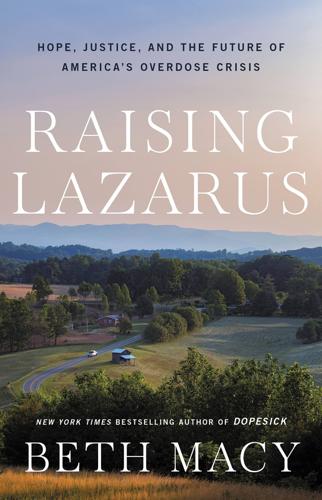
Raising Lazarus: Hope, Justice, and the Future of America’s Overdose Crisis
by
Beth Macy
Published 15 Aug 2022
Maybe some of the $262 million the state offered to land the Google server farm would have been better spent preparing the laid-off factory workers and their children for a knowledge-based economy. From economist Tim Bartik’s point of view, the problem was power, or the lack of it: the victims of the corporations’ rent-seeking practices possessed zero political clout. “Going after data centers is not a solution,” said Bartik, of the Upjohn Institute. He hoped COVID-driven telecommuting might entice more people to relocate from cities to rural areas. But would many outsiders move to distressed places where schools were notoriously subpar?
…
Their top three goals, in order, were: staying alive, reducing harmful substance use, and improving mental health. “Completely stopping substance use was not in their top three,” Olsen said. But too many well-meaning bureaucrats, politicians, and health care providers don’t realize that they are active participants in a stigmatized structure born of racism, rent-seeking behaviors, and wrong-headed notions about a drug-free society that will never, ever exist. As the bioethicist Carl Erik Fisher writes: “We will not end addiction, but we must find ways of working with it: ways that are sometimes gentle, and sometimes vigorous, but never warlike, because it is futile to wage a war on our own nature.”

Tyler Cowen - Stubborn Attachments A Vision for a Society of Free, Prosperous, and Responsible Individuals
by
Meg Patrick
It withdraws some individuals from the labor force, weakens productive incentives, necessitates higher tax rates, and is often combined with static, insider-oriented labor market regulations. Furthermore if everyone approaches government looking for grants of money and resources, basic mechanisms of governance can break down, leading to rent-seeking, corruption and fiscal bloat. Alternatively, excess or poorly conceived welfare expenditures may create urban cultures of dependency and crime, which endanger social order. The empirical literature suggests that non- 40 See for instance Alesina and Rodrik (1994) and Persson and Tabellini (1994).

Stubborn Attachments: A Vision for a Society of Free, Prosperous, and Responsible Individuals
by
Tyler Cowen
Published 15 Oct 2018
Past some margin, an overly generous level of wealth transfer harms economic growth. Many people end up working less, or working less hard, and the associated higher tax rates discourage entrepreneurship and can lead to economic stasis. Furthermore, if it is standard procedure to approach government for a handout, that will induce too much rent-seeking, dependency, corruption, and eventually fiscal imbalances and perhaps even insolvency or a financial crisis. Alternatively, excess or poorly conceived welfare expenditures may create urban cultures of dependency and crime, which endanger social order. The empirical literature suggests that non-infrastructure government spending is correlated positively with lower growth rates, with the caveat that those results are measuring traditional GDP rather than an alternative notion such as Wealth Plus.2 Excess transfers are bad for another reason, namely that they make it harder to absorb high numbers of immigrants from poorer countries.
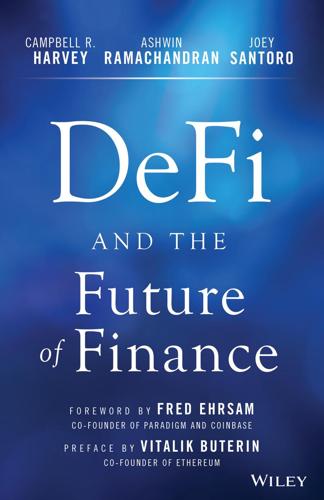
DeFi and the Future of Finance
by
Campbell R. Harvey
,
Ashwin Ramachandran
,
Joey Santoro
,
Vitalik Buterin
and
Fred Ehrsam
Published 23 Aug 2021
MKR holders could, for instance, vote to pay themselves a dividend funded by the spread between the interest payments paid by vault holders and the DAI savings rate. The reward of receiving this dividend would need to be weighed against any negative community response (e.g., a backlash against rent seeking from a previously no-rent protocol) that might decrease the value of the protocol and the MKR token. A number of features make DAI attractive to users. Importantly, users can purchase and use DAI without having to generate it in a vault – they can simply purchase DAI on an exchange without needing to know the underlying mechanics of how they are created.
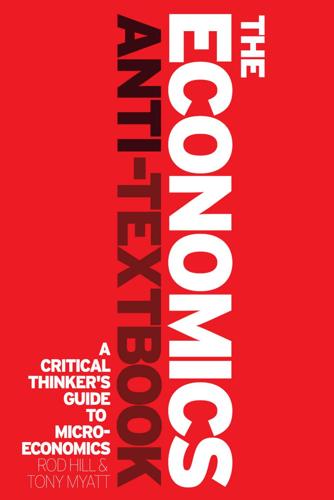
The Economics Anti-Textbook: A Critical Thinker's Guide to Microeconomics
by
Rod Hill
and
Anthony Myatt
Published 15 Mar 2010
Competitive market: requires large numbers of buyers and sellers who are all small relative to the market such that no one can individually influence the market price. (See Arrow’s Paradox.) Also requires free entry and exit, and perfect in formation. Deadweight loss of monopoly: the supposed cost of monopoly compared to a competitive market. It includes the loss of net benefit from a smaller quantity produced, the loss from ‘rent-seeking’ behaviour (the diversion of time, effort and expertise away from productive activities towards efforts to secure monopoly profits), and an equity cost of a less equitable distribution of income. Demand: the maximum price consumers are willing to pay for any given quantity demanded. Dynamic efficiency: an optimal rate of technological progress resulting from 291 optimal investments in research and development.
…
E., 66–7, 140, 141, 142–3, 174, 185, 249–50, 251, 257 predictions: concerning incidence of taxation, 61–2; concerning minimum wages, 58–9; concerning rent controls, 59–61 predictive power, 32–5, 37, 62, 71, 246 preferences, 87–92; changing, problem of, 80–1; in food, 85; taken as given, 78–9 prescription drugs, marketing of, 83–5 price discrimination, 125 price elasticity: of demand, 46–7, 52; of supply, 48, 52 price floors, 63–4; government-regulated, 50–1 prices, 118, 177, 220, 223; ceilings, 62–3, 125, 127, 130, 244; determination of, 30; discounts, 129; government- rent controls, 49, 244; predictions concerning, 59–61 rent freeze: in New York, 70; in Paris, 70–1 rent-seeking behaviour, 124 rents: ceilings on, 31, 59; freezing of, 60 replication of results, problem of, 34 research and development (R&D), 135, 193 reswitching result, 181 retirement, compulsory, 173 returns to capital, 177–8 returns to scale, 98–9, 180–1 rhetoric of reaction, 208 Ricardo, David, 44, 177, 224, 227, 228 Rick, Frank, 179 risk, ignorance of, 161–2 Robinson, Joan, 1, 9, 93, 128, 150, 153, 179, 180, 219 robust equation, search for, 33–4 Rodrik, Dani, 5, 262 Roosevelt, F.
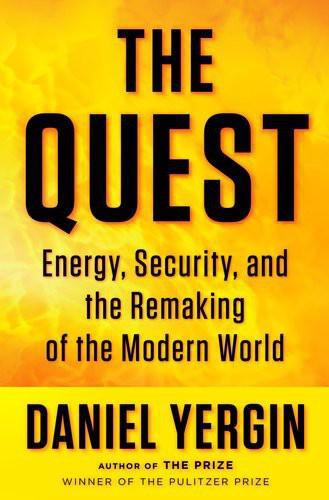
The Quest: Energy, Security, and the Remaking of the Modern World
by
Daniel Yergin
Published 14 May 2011
In his view, Venezuela was already becoming a petro-state, a victim of the alluring and malevolent “resource curse.”2 THE “REVERSED MIDAS TOUCH” In the 1980s and 1990s, oil could generate more than 70 percent of Venezuela’s central government’s revenues. In a petro-state, the competition for these revenues and the struggle over their distribution becomes the central drama of the nation’s economy, engendering patronage and clientelism and what is called “rent-seeking behavior.” That means that the most important “business” in the country (aside from oil production itself) is focused on getting some of the “rents” from oil—that is, some share of the government’s revenues. Entrepreneurship, innovation, hard work, and the development of a competitively oriented growth economy—all these are casualties of the system.
…
The economy becomes inflexible, losing its ability to adapt and change. Instead, as the edifice of the state-controlled economy grows, so do subsidies, controls, regulations, bureaucracy, grand projects, micromanagement—and corruption. Indeed, the vast amounts of revenues connected with oil and gas create a very rich brew for corruption and rent seeking. A group of Venezuelan academics summed up the problem this way: “By the middle of the twentieth century, there was already a deeply rooted conviction that Venezuela was rich because of oil, because of that natural gift that does not depend on productivity or the enterprising spirit of the Venezuelan people.”
…
Chapter 5: The Petro-State 1 Moises Naim, Paper Tigers and Minotaurs: The Politics of Venezuela’s Economic Reform (Washington, DC: Carnegie Endowment, 1993), p. 19; Herbert Adams Gibbons, The New Map of South America (London: Jonathan Cape, 1929), pp. 249, 252–53. 2 Daniel Yergin, The Prize: The Epic Quest for Oil, Money, and Power (New York: Simon and Schuster, 1990), p. 507 (“the devil”). 3 Terry L. Karl, The Paradox of Plenty: Oil Booms and Petro-States (Berkeley: University of California Press, 1997); Michael L. Ross, “The Political Economy of the Resource Curse,” World Politics 51 (1999): 297–322 (“rent-seeking behavior”); Christina Marcano and Alberto Barrera Tyszka, Hugo Chávez, trans. Kristina Cordero (New York: Random House, 2007), p. 15 (Venezuelan academics). 4 Naim, Paper Tigers and Minotaurs, p. 24 (“reversed Midas touch”); interview with Ngazi Okonjo-Iweala. 5 Karl, The Paradox of Plenty, p. 71, 123 (“change the world!”

The Market for Force: The Consequences of Privatizing Security
by
Deborah D. Avant
Published 17 Oct 2010
Strong states nonetheless have superior monitoring and sanctioning capacity that should lead them to be in a better position to control PSCs than weaker states. Strong states have mechanisms to extract revenue in a central tax system, an established system of contracting, and a variety of mechanisms to inhibit rent seeking by either the state or private agents. Though contracting for security services may be less ideal than 63 64 instance, argues for a distinction between strong and weak states on the bases of the state’s capacity, coherence, and legitimacy. Varying degrees of “stateness” are tied to the state’s ability to maintain firm control over the military and police; to influence members of society; to generate functionally complex organizations; and to have those agencies work together in a coherent fashion.
…
Kayode 4, 6 Fennell, James 4 Fenning, Richard 131 feudal lords 25, 27, 246 Finer, Samuel E. 68 fit see reinforcing process foreign military sales (FMS) 129 foreign policy by proxy 4, 65, 68, 152, 155 absence in South Africa 167 Frankfurt Zoological Society (FZS) 205 Frasure, Bob 153 Frederick, Nicholas, and Duncan (FND) 19, 160 Freeman, Jody 53, 55 Friedman, Milton 191 Fynwest 18 Game Rangers’ Association 210 Gantz, Peter 238 Garamba National Park 39, 77, 204–15, 237 Gardiner, Colonel Sam 259 Geneva Convention 232 Geolink 17 Global Development Four (GD4) 20 Global Impact 18 Global Options 18 Global Risk Holdings 20 globalization 31, 32–34, 144, 229, 257–58 GOAL 16 Goma Camps 39, 77, 192–203 governance 36, 63, 73, 79, 204, 230 role by commercial actors 190, 191–92 networked 241–43 Gowa, Joanne 135 Grant, Bruce 155 Gray Security 20, 160 Grunberg, Michael 86 Guenee, Bernard 245 Gulf War 6, 19, 29 guns for hire see mercenaries Gurkha Security Guards 18 in Sierra Leone 84–86, 96, 98, 225–26 Haliburton see Kellogg, Brown, and Root Hart Group 233 Hauser, Robert 195 Held, David 228–29 305 Henderson, David 191–92 Herbst, Jeffrey 221 Heritage Oil and Gas 159 Hobbes, Thomas 46 Hoffman, Jerry 131 Holbrook, Richard 153 Holy Roman Empire 230, 250 human rights see international norms/ values, human rights Human Rights Watch 189 Hungary 148 Huntington, Samuel 41 Hussein, Saddam 259 Ibis Air 18, 19 ICI Oregon 19, 20, 147, 149, 156 imperial force 244 information asymmetry 58, 59 Institut Zaı̈rois pour le Conservation de la Nature (IZCN became IUCN) 205, 206 institutional mechanisms see mechanisms of control institutional theory 38, 58, 72–76 model 40, 78, 79, 81, 145, 179–80, 229–30 and the US 132 see also new institutionalism institutionalization 55 interest motivated 72 International Alert 187 International Business Leaders’ Forum 197 international civilian police 20, 127 International Convention against the Recruitment, Use, Financing and Training of Mercenaries 230 International Defense and Security (IDAS) 18 International Law Concerning the Conduct of Hostilities 232 international law 52, 53, 69, 188, 230 and private security 230–36 and South Africa’s Regulation of Foreign Military Assistance Act 164–67 see also laws of war International Monetary Fund (IMF) 34, 35, 119 international non-governmental organizations (INGOs) 30, 38, 50, 69, 71–72, 73–74, 76, 148, 159, 170 Index as value motivated actors 71–72 literature on 179 in Iraq 2 and financing security 256 humanitarian INGOs 192–203 conservation INGOs 204–15 and Chad-Cameroon Pipeline 241 international norms/values 5, 43–44, 53, 54, 60–61, 62, 63, 64, 68, 69, 74–75, 76, 81, 130, 178, 181, 200, 219 and British PSCs 174–75 and American PSCs 157 conservation 207, 215 and extractive companies 191 human rights 61–76, 161, 181, 221, 224 and EO 164 and EO in Sierra Leone 96, 113 and MPRI in Croatia 110–13 rule of law 51, 61 and Sandline in Sierra Leone and South African PSCs 166 see also international law; laws of war international organizations (IOs) 50, 69, 148, 159, 257 International Peace Operations Association (IPOA) 222 International Port Services Training Group 18 International Rhino Foundation 206–15 Iran/Contra Scandal 115 Iraq 8, 29, 67, 121, 147, 157, 160, 170, 226, 233, 256, 260 participation of South African PSCs in 166, 237 Iraqi Army 1, 18, 130, 131 Iraqi Police 131 Italian City States 27, 230, 250 IUCN see Institut Zaı̈rois pour le Conservation de la Nature Jacobite Rebellion 28 Janowitz, Morris 42, 51–52 Jones, Bruce 196 Jupiter Mining Company 93 just war 246 Kabbah, Ahmed Tejan 95–98, 171, 173, 175 Kabila, Laurent 208 Kagame, Paul 195 Index Kaldor, Mary 251 Kamajors (Kamajoisia) 88–98, 171 Kaplan, Robert 34 Karzai, Hamid 20, 123 KAS Enterprises 18 Keegan, John 3 Kellogg, Brown, and Root (KBR) 20, 22, 147, 148, 149, 156, 262 Kemp, Elizabeth 209 KMS 169 Koroma, Johnny Paul 92–93, 96 Kosovo 201, 222 laws of war 51, 236 Levden 18 Levi, Margaret 1, 46 Liberalism 54 136 liberal values 52 see also international values Liberia 152 Lifeguard Security 20, 88, 93, 159, 160, 166 Liutingh, Lafras 87 logic of appropriateness 50, 54 logic of consequences 54 Logicon 18 Lonhro 85 Machiavelli, Niccolò 249 Mandela, Nelson 158, 164, 165 Mansfield, Count Von 249 March, James 254 market for force 25–30, 30–38, 39, 65–70, 219, 253 implications of 3–7, 53 from the US 146–49 transnational 7–22, 166, 175–77 McNeill, William 247, 250 mechanisms of control 6, 38, 56–57, 72, 79, 180, 230, 262 market 39, 67, 219–28 consumer 67, 144–45 consequential 6, 54, 70, 71, 143, 154, 178, 179 see also budgetary control, monitoring, screening and selection social 6, 55, 68–69, 71, 75, 178, 179 see also education, military professionalism: military professional norms and standards 306 mercenaries 8, 22–23, 29, 69, 172, 222, 227, 231, 247, 249 guns for hire/soldiers of fortune 4, 121, 213, 222 mercenary reputation 85 and Sandline 94 see also private armies Mesic, Stipe 108 Migdal, Joel 57, 82 military contractors 27, 28–30, 245–47 military effectiveness 59, 61, 62, 136, 139–40, 224–25 in Sierra Leone 114–96 in Croatia 110 in the US 138 see also control of force, functional control; reinforcing process of control Military Extraterritorial Jurisdiction Act (MEJA) 234, 235 Military Professional Resources International (MPRI, now part of L-3 Communications) 9, 18, 19, 20, 35, 122, 124, 129, 131, 134, 148, 152–55, 221, 245 in Angola 150 in Croatia 101–13, 128, 156, 255 Croatian Army Readiness Training Program 106 in Equatorial Guinea 150 in Nigeria 188 ROTC training in US 117–20, 121, 130 with KLA 222 military professionalism 42, 51–52, 61, 76, 130 and DSL 9 emerging international standard for 52, 222–24, 251 and EO training 91, 113 in Garamba 207–08 military professional networks 61, 62, 63, 64 military professional norms and standards 81–82, 118–19, 157, 200, 204, 219, 221, 223, 253 military professionals 52, 60, 63, 249 of MPRI in Nigeria 188 PSCs and 5, 61 PSCs in Britain 174 307 of Sandline in Sierra Leone 95 of MPRI in Croatia 112–13 militias 224 Milošević, Slobodan 153 Minnow, Martha 18, 23, 53 Mobile 16 Mobutu, President 17, 194, 196 Momoh, Joseph 83 monitoring 56, 57, 58, 66, 133, 222 difficulties for parliament in Croatia 106 in US 155 monopoly over force 25, 46, 66, 69 collectively held among states 145, 228, 253, 264 that emanates from state territory 143, 144 Montgomery, William 107 Mozambique 85, 170, 171 multi-lateral institutions 34, 37–38, 229, 238, 240 Multiple principles 75–76 in Garamba 204 in Sierra Leone 97–98 Musah, Abdel-Farau 4, 6 neomedievalism 262 new institutionalism 6, 45, 57, 254 see also institutional theory, model; economic institutionalism, sociological institutionalism Nigeria 39, 77, 255 oil in 182–92, 237 non-state actors 3, 31, 36–37, 70, 76, 78, 178 debate among 78, 190, 200–203, 212–15, 253 identity of 76, 190–91, 203, 218, 237 see also international non-government organizations, transnational corporations non-state financing for security see privatization of security, financing Norman, Sam Hinga 96 norms see social norms and practices North, Douglas 46 North Atlantic Treaty Organization (NATO) 34, 37, 109, 129, 130, 139, 148 Index Partnership for Peace Program (PfP) in Croatia 102, 106, 108, 109, 111, 112, 113, 131, 139 Northbridge 169, 173 O’Brien, Kevin 163, 166 O’Gara Protective Services 18 Obasanjo, Olusegun 188–95 Olsen, Johan 254 Olson, Mancur 46 OMB Circular A-76 35, 115 Omega Support Limited 160 Omega Training Group 122 Operation Iraqi Freedom 18, 132, 152, 238 Organi 8 186 Organization for African Unity (OAU) 161–63 Organization for Security and Cooperation in Europe (OSCE) 34 Ottoway, Marina 191 oversight see monitoring Pacific Architects and Engineers (PA&E) 19, 20 Papua New Guinea 170, 174 paramilitary forces 70, 71, 224 Parsons, Talcott 2, 239 patrimonial authority 58 Patriot Act 234, 235 peace dividend 35 Peace of Westphalia 25, 27 Penfold, Peter 173 Petronas 241 Picula, Tony 109 Pinkertons 22 political market failures 135 Powell, Walter 223 Prince of Wales Business Leaders’ Forum see International Business Leaders’ Forum private armies 4, 30 private security see privatization of security, market for force private security companies (PSCs) 1–3, 5, 8, 23–24, 29–30, 36, 37, 38, 40, 53, 54, 55, 58–65, 76, 77, 81, 129–31, 220, 259–60, 261 American PSCs 146 British PSCs 167 Index private security companies (PSCs) (cont.) commercial reputation and interest 85, 110 cowboy model 226–28 in Garamba 209 in Goma Camps 198–200 in Iraq 21–22, 239–40 nationality of personnel 2 services offered 16–22, 48 South African PSCs 158–67 “starched shirt” model 226, 228 private security consultant to WWF 211–12 private security industry 3–7 characteristics of 144 consumer demand for 144–45 revenues 8 privatization 22, 24–25, 32, 35–36, 38, 40, 47, 57, 58, 78, 80–81 privatization of security 39, 40, 49, 253, 254, 256, 259, 263 and the control of force 3, 4–5, 6–7, 40, 43 financing of security 70–76, 78, 178–218 see also market for force professional military see military professionalism public 23–24 public goods 27, 34, 62, 155 public institutions 46–48, 61–62, 76, 81, 140, 146 in South Africa 167 public sphere 3 public/private divide 23 choice 24 comparison between 4, 43 Ramsbotham, General Sir David 9 rational legal authority 45, 59, 63, 71 rationalist 56 rebel forces 70, 71 redistribution of power 60, 91–92, 145 in Croatia 110 in Sierra Leone 114–15 in the US 146 Redlich, Fritz 246 Refugees International 238 regulation 65–70, 144, 145 dilemmas of 144–45, 177 308 in Britain 170, 173, 175 in late Middle Ages 246 in South Africa 161 in US 149–51 reinforcing process of control 6, 7, 40–45, 56–57, 61, 62, 63, 65, 72, 76, 82, 113, 120, 136–38, 139–40, 218, 255, 256 in Italian City States 250 uncertainty of 251–52 Reno, Will 92, 185, 251 rent seeking 58 rentier state 181 Research Triangle Institute 2, 239 Resistancia Nacional Mocambicana (RENAMO) 172 Revolutionary United Front (RUF) 84 Robertson, Lord 222 Ron, James 201 Rubicon, International 169 SAIC 18, 121, 122, 124 Saladin 169 sanctioning 43, 58, 71 Sandline 17, 18, 19, 169 in Sierra Leone 92, 97, 98, 171, 172, 174–75, 232, 237 Saracen 19, 159, 160, 166, 210–11, 213 Saro-Wiwa, Ken 184, 186, 236 Saudi Arabia 152 Saudi Arabian forces 148 Saxena, Rakesh 93, 95 Schakowsky, Jan 129 screening and selection 56, 59, 133 Secrets 18 September 11th 7, 34, 160 service industries 66 Seven Years War 28 Sewell, John 102 Shearer, David 5, 6, 52–53, 55–56, 238 Shell, Royal Dutch 16, 77, 184–85, 187, 188–92, 236, 255 Shell business principles 190 Shell police 184 Shibata 160 Sierra Leone 7, 39, 68, 77, 139, 160, 170, 171, 172, 174–75, 225–26, 232, 237, 240, 255 and contracting for security services 82–98 309 Sierra Leone Army (RSLMF) 85–98 Sierra Leone People’s Party (SLPP) 84 Silver Shadow 19 Silverstein, Ken 4, 5, 156 Singer, Peter 16, 155 Sky Air Cargo Service 171 Sobel 84 social norms and practices 3, 49, 51, 63, 75, 81, 134, 143, 145 socialization 56 sociological institutionalism 49–54, 71, 79 soldiers of fortune see mercenaries Soruss 89 South Africa 39, 67, 77, 145, 220, 256, 260, 262 and citizens working illegally in Iraq 163, 235 human security 162, 158 Regulation of Foreign Military Assistance Act 161–63, 165 regulation of security service exports 157–67 regulatory environment 161 South African Defense Force (SADF) 164, 211 South African National Defense Force (SANDF) 211 Southern Cross Security (SCS) 19, 160, 166 sovereign transactions/services 47–49, 54, 58, 61, 81 sovereignty 43, 52, 59, 257–58, 264 Soyster, Harry “Ed” 104 Spicer, Tim 227–31 standards 56, 68, 71, 74 see also military professionalism: military professional norms and standards state, the 18, 23–24, 27, 45, 46, 257–58 definition of 1 state building 63, 76 see also strong states, weak states Stevens, Siaka 83, 84 Stirling, Sir David 169 Strasser, Valentine 89 Strategic Resources Corporation 160 strong states 7, 59, 60, 71, 256, 259 as distinguished from weak states in contracting for security 81–82 Sudan 160, 209 Index Sudanese People’s Liberation Army (SPLA) 205, 209 Sumairco 19 Susak, Gojko 101, 106 Taliban 224 Tallman, Gary 227 TASK International 21 Taylor, Charles 94 Terry, Fiona 196–97, 200, 201 Thatcher, Margaret 35 Thirty Years War 245, 247, 250 Thomson, Janice 30, 247 threat environment 21, 33–34, 62 THULE Global Security International 20 tip of the spear 16–22 Titan 2, 235 Tito 98 Total Security Services International 149 transaction cost economics 46–49 TransAfrica Logistics 159 transnational corporations (TNCs) 30, 38, 71, 72, 74, 76, 148, 180–192, 257 transnational market see market for force transparency 60, 74, 82, 154 Trojan Securities International 18, 21 Tudjman, Franjo 99–108, 139, 153 United Kingdom see Britain United Nations 34, 37, 69, 170, 171, 198, 199, 203 and private security 9, 198–200, 237–38 and South African PSCs 166 United Nations Department of Peace Keeping (DPKO) 195–200 United Nations Global Compact 187 United Nations High Commissioner for Refugees (UNHCR) 195–97, 201–02 United Nations peace missions 29, 37 and DSL 9 and private security 7, 19, 149 UNAMSIL 95 United Nations Special Rapporteur on the Use of Mercenaries 230–31 United States 1, 4, 7, 29, 31–32, 38, 39, 77, 139, 145, 220–28, 256, 259–61, 262 Index United States (cont.)
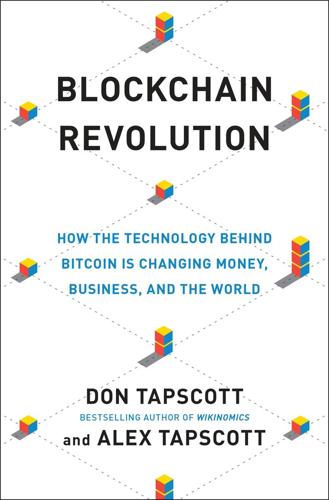
Blockchain Revolution: How the Technology Behind Bitcoin Is Changing Money, Business, and the World
by
Don Tapscott
and
Alex Tapscott
Published 9 May 2016
As a result, the Red Cross improvised a less desirable solution. Could a blockchain-based land title registry improve this situation by providing clear title and perhaps prevent unlawful expropriation? Foreign aid is perhaps the clearest example of the ineptitude of many governments and the rent-seeking behavior of unethical intermediaries, and is thus excellent grounds to explore blockchain solutions. The 2010 Haiti earthquake was one of the most devastating humanitarian crises of the past hundred years.53 While the government was paralyzed and the crisis raged on, thousands of “digital humanitarians” converged on the Internet to help first responders collect, triage, and visualize pleas for help from mobile phones of devastated Haitians.
…
Interview with Eric Piscini, July 13, 2015. 45. http://corporate.westernunion.com/Corporate_Fact_Sheet.html. 46. At the time of writing, Abra had not opened its doors in Canada. However, we were able to test Abra’s technology with Analie and her mother successfully with Abra’s help. 47. Interview with Bill Barhydt, August 25, 2015. 48. Ibid. 49. Ibid. 50. “Foreign Aid and Rent-Seeking, The Journal of International Economics, 2000, 438; http://conferences.wcfia.harvard.edu/sites/projects.iq.harvard.edu/files/gov2126/files/1632.pdf. 51. Ibid. 52. www.propublica.org/article/how-the-red-cross-raised-half-a-billion-dollars-for-haiti-and-built-6-homes. 53. “Mortality, Crime and Access to Basic Needs Before and After the Haiti Earthquake,” Medicine, Conflict and Survival 26(4) (2010). 54. http://unicoins.org/. 55.
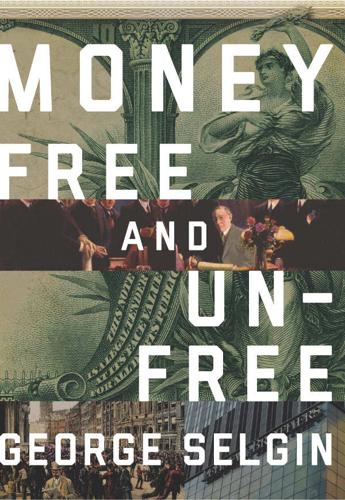
Money Free and Unfree
by
George A. Selgin
Published 14 Jun 2017
A divergence between the preferences of fiscal authorities and citizen-consumers implies that political “markets” do not strongly tend to weed out policies that diminish aggregate wealth. On the contrast between “Chicago” and “Virginia” views on this broad question, see Lott (1997). 3. Margaret Levi (1988) offers a modern exposition of Puviani’s fiscal-predation thesis. An alternative “predatory” hypothesis is private rent seeking: government serves special interests by restricting competition. This hypothesis certainly helps explain a number of legal restrictions on private banks. But it can hardly explain the exclusion of private mints and banks of issue from the market in favor of a state-run monopoly. 4. On the (conjectural) evolution of private-market monetary arrangements in the absence of government intervention, see Selgin and White (1987). 5.
…
Laurence Laughlin (1898: 211); Commercial and Financial Chronicle (April 3, 1865: 422); and Hunt’s Merchants Magazine (Oct. 1867: 289; Apr. 1869: 247). 15. The $300 million ceiling on the aggregate issue of national bank notes had been raised to $354 million by the act of July 12, 1870. 16. One possible explanation for this otherwise curious provision of the act is that the banks, in rent-seeking fashion, wished to restrict costly interbank competition for circulation shares. Providing more redemption points could be a means of competing on note quality. 17. Phillip Cagan and Anna Schwartz (1991) point out, citing 1894 testimony by Treasury Secretary John G. Carlisle (and contradicting Bell 1912: 38–60), that in practice the subtreasuries in New York and eight other major cities redeemed national bank notes.
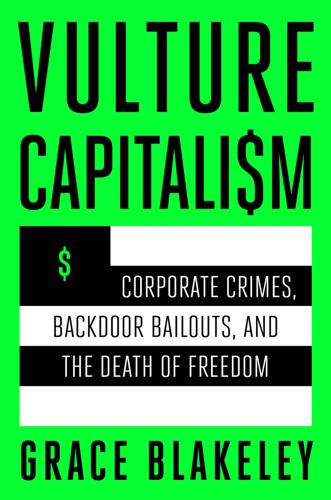
Vulture Capitalism: Corporate Crimes, Backdoor Bailouts, and the Death of Freedom
by
Grace Blakeley
Published 11 Mar 2024
Ibid. 181. Ibid. 182. Perhaps the best example of the “nonracist” case for the continuation of apartheid in South Africa comes from British economist William Hutt. Hutt’s book The Economics of the Colour Bar attacked apartheid as a form of rent seeking designed to protect the privileges of insiders against the incursions from outsiders, comparing it to the “rent seeking” practiced by trade unions. But Hutt firmly believed that moving to universal suffrage was the wrong move for South Africa and proposed instead a “weighted franchise,” which “saw first in black and white and then apportioned voting rights differently to the wealthy and the poor.”
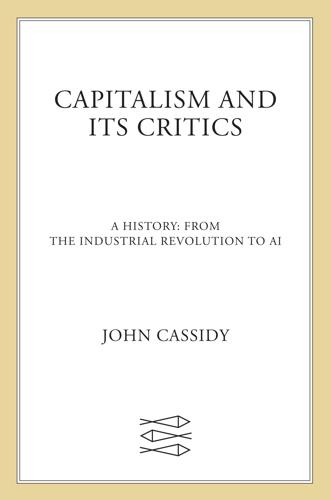
Capitalism and Its Critics: A History: From the Industrial Revolution to AI
by
John Cassidy
Published 12 May 2025
“But it is quite otherwise in a state of economic society where distribution has no fixed relation to needs, but is determined by other conditions which assign to some people a consuming power vastly in excess of needs or possible uses, while others are destitute of consuming power enough to satisfy even the full demands of physical efficiency.”41 Citing the work of the social researcher and industrialist Seebohm Rowntree, who had recently published a detailed study of poverty in the English city of York, Hobson pointed out that “more than one-fourth of the population of our towns is living at a standard which is below bare physical efficiency.”42 He continued: “If, by some economic readjustment, the products which flow from the surplus saving of the rich … could be diverted so as to raise the incomes and the standard of consumption of this inefficient fourth, there would be no need for pushful Imperialism, and the cause of social reform would have won its greatest victory.”43 Returning to the US experience, Hobson argued that oversaving and deficient demand constituted a particularly grave problem in a society “where multi-millionaires rise quickly and find themselves in possession of incomes far exceeding the demands of any craving that is known to them.”44 But Hobson also emphasized that the oversaving problem wasn’t confined to one country: it afflicted all capitalist countries once their economies reached a certain level of development, inequality, and rent-seeking. “It is not industrial progress that demands the opening up of new markets and areas of investment, but mal-distribution of consuming power which prevents the absorption of commodities and capital within the country,” he wrote. “The over-saving which is the economic root of Imperialism is found by analysis to consist of rents, monopoly profits, and other unearned or excessive elements of income, which not being earned by labour of head or hand, have no legitimate raison d’être.”45 Until this point in his analysis, Hobson had refrained from offering any detailed prescriptions.
…
The proximate answer was clear: they were based on the remarkable growth of the tech sector, captive corporation remuneration boards, and stratospheric stock market valuations, which, in turn, reflected soaring profits and a high rate of return on capital. But what was it about twenty-first-century capitalism that was keeping profits so high that r remained above g year after year? In a 2015 interview, Joseph Stiglitz emphasized the rise of monopolies and rent-seeking behavior, developments he had discussed in his 2012 book, The Price of Inequality. “So when you look at the top, it’s monopoly power,” Stiglitz said.48 In an illuminating 2017 volume of essays titled After Piketty, Suresh Naidu, an economist at Columbia, argued that technological and political developments had combined to make it a lot easier for businesses and financial interests to extract monopoly rents from consumers and workers.
…
railroads; in Britain; consolidation of; George on; in India; transcontinental Randlords Rappites Rathbone, Eleanor rational expectations, theory of Ravallion, Martin Rawfolds Mill Reader’s Digest Reagan, Ronald real estate bubble Reconstruction Reconstruction Finance Corporation Red Flag Re-enchanting the World (Federici) Reform or Revolution? (Luxemburg) Regulating Act regulation and deregulation Reichsbank religion and spirituality; Catholic Church; Christianity; Transcendentalism renewable energy rents: land; use of term rent-seeking Report to the County of Lanark (Owen) Republican Party Review of Economics and Statistics, The Review of Economic Studies Revue Rheinische Zeitung Rhodes, Cecil Ricardo, David rice Richter, Johann Paul Friedrich Ridley, Nicholas Riello, Giorgio Rise of American Civilization, The (Beard and Beard) Road to Freedom, The (Stiglitz) Road to Serfdom, The (Hayek) Roaring Nineties, The (Stiglitz) robber barons Roberts, Marc Roberts, Michael Robinson, Austin Robinson, Cedric Robinson, Derek Robinson, James A.

Information Doesn't Want to Be Free: Laws for the Internet Age
by
Cory Doctorow
,
Amanda Palmer
and
Neil Gaiman
Published 18 Nov 2014
We get it only if we give up on the Hollywood-versus-Google narrative, and stop letting our creative output be hijacked in the service of censorship, surveillance, and control. I’m not anti-regulation. But we need to decide what kind of regulation we want. The Internet can have rules that encourage centralization—rules permitting network discrimination, rules protecting digital rights management, rules providing for easy takedown—and, with them, rent-seeking, abusive sharecropping, spying, and censorship. Or it can have rules that promote an open, pluralistic, networked public space where anyone can communicate; rules that encourage disclosure of security vulnerabilities; rules that encourage competition by allowing interoperable products and technologies.
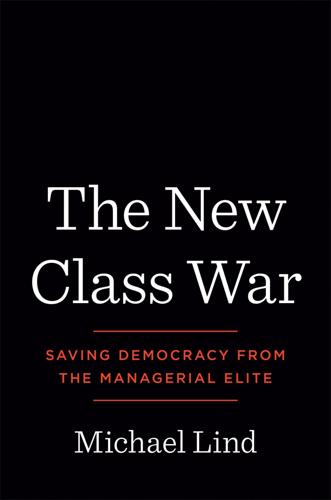
The New Class War: Saving Democracy From the Metropolitan Elite
by
Michael Lind
Published 20 Feb 2020
For pluralists, the notion that we can live in a world without elites is as fatuous and as dangerous as the notion that we can live in a world without power. If power checks power, elites countervail elites.1 The trade unions, party machines, and religious congregations of the past had their share of corruption, and so would their modern equivalents. Like all political systems, a democratic pluralist regime is vulnerable to “rent-seeking” by self-interested economic interests. But corruption is more easily exposed and contained in a system with a multitude of petty power brokers than in a centralized regime with a relatively small elite whose members tend to dominate the economy, the government, and the media. If it is successful, democratic pluralism, by incorporating all classes and major subcultures to some degree in policy making in the market, government, and cultural sectors, can reduce the sense of isolation and powerlessness that opportunistic demagogues can exploit.
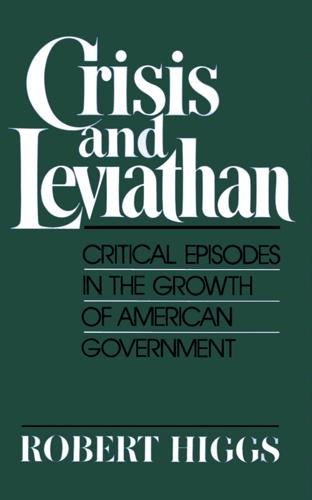
Crisis and Leviathan: Critical Episodes in the Growth of American Government
by
Robert Higgs
and
Arthur A. Ekirch, Jr.
Published 15 Jan 1987
As Samuels and Mercuro have noted, "There are no correct rights, price, and rent structure and attendant distribution. There is, rather, a contest over rights.... [T]he process of determining the legal change of economic interests to be protected as legal rights is the critical legal-economic process." Warren J. Samuels and Nicholas Mercuro, "A Critique of Rent-Seeking Theory," in Neoclassical Political Economy, ed. David C. Colander (Cambridge, Mass.: Ballinger, 1984), pp. 59, 65, emphasis in original. 14. Quoted by Jerold Waltman, "Origins of the Federal Income Tax," MidAmerica 62 (Oct. 1980): 155. According to John F. Witte, Aldrich's proposals originated in the Taft administration, which sought to "defuse a potential constitutional crisis between Congress and the Supreme Court."
…
Boston: Little Brown, 1976. Samuels, WarrenJ. "A Critique of Capitalism, Socialism, and Democracy." In Capitalism and Democracy: Schumpeter Revisited, ed. Richard D. Coe and Charles K. Wilber. Notre Dame, Ind.: University of Notre Dame Press, 1985. Samuels, Warren J., and Nicholas Mercuro. "A Critique of Rent-Seeking Theory." In Neoclassical Political Economy, ed. David C. Colander. Cambridge, Mass.: Ballinger, 1984. Schumpeter, Joseph A. Capitalism, Socialism, and Democracy. 3rd ed. New York: Harper & Row, 1950. Sen, Amartya K. "Rational Fools: A Critique of the Behavioral Foundations of Economic Theory." Philosophy & Public Affairs 6 (Summer 1977).
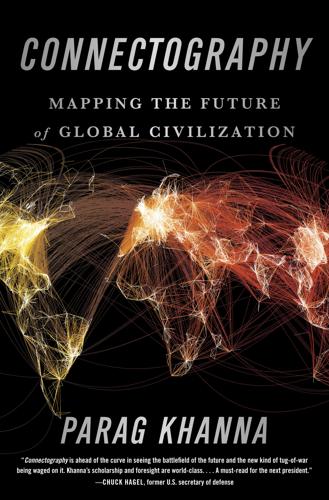
Connectography: Mapping the Future of Global Civilization
by
Parag Khanna
Published 18 Apr 2016
Belgium scarcely exists as a united country but is rather dissolving into linguistic kinships as its Dutch-speaking provinces gravitate toward the Netherlands, French-speaking regions drift toward France, Flemish craft their own identity and diplomacy, and Brussels serves as the EU’s capital. The archetype of the modern Western multiethnic, liberal democratic nation-state is being chipped away as cities and provinces make concrete cost-benefit calculations in their engagements with rent-seeking capital cities. Nations are becoming federations of powerful local administrative centers. In recent years, the Catalans and the Scots have also moved decisively toward greater autonomy, gaining the substance of independence without (yet) the style. They have achieved “dev-max”—maximum devolution.
…
The Economic Consequences of the Peace. Harcourt, Brace, and Howe, 1920. ———. The General Theory of Employment, Interest, and Money. CreateSpace, 2011. Khan, Mushtaq H. “Beyond Good Governance: An Agenda for Developmental Governance.” SOAS, University of London, 2012. Khan, Mushtaq H., and K. S. Jomo. Rents, Rent-Seeking, and Economic Development: Theory and Evidence in Asia. Cambridge University Press, 2000. Khanna, Parag. How to Run the World: Charting a Course to the Next Renaissance. Random House, 2011. ———. The Second World: How Emerging Powers Are Redefining Global Competition in the Twenty-First Century.
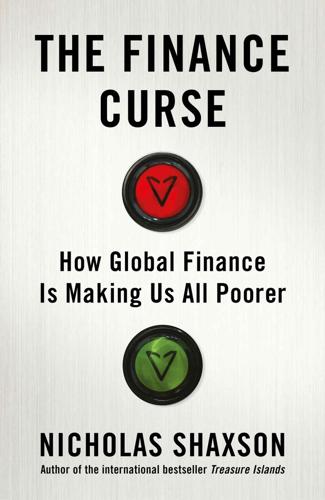
The Finance Curse: How Global Finance Is Making Us All Poorer
by
Nicholas Shaxson
Published 10 Oct 2018
Cut corporate taxes too far, and people will say, ‘Look, it’s undercutting income tax! Let’s cut the top rate of income tax to stop this!’ It’s a race to the bottom inside the tax system – not between two countries this time, but between two taxes.14 As ever, this race shifts yet more wealth and power upwards. Here’s another problem. Corporate tax cuts tend to reward predatory rent-seeking behaviour over genuine wealth creation. Compare a business that has invested £100 million in a factory and its 500 workers and generates £5 million in taxable profits, with a debt-fuelled, financialised share-flipper with five employees, which invests £2 million in IT systems, also for a £5 million annual profit.
…
On the cannibalisation of income tax by corporate tax cuts, see Andrew Baker and Richard Murphy, ‘Re-framing tax spillover’, SPERI (Sheffield Political Economy Research Institute), 14 March 2017. The Institute for Fiscal Studies briefing note, ‘The Changing composition of UK tax revenues’ (April 2016), says income taxes and National Insurance add up to 45 per cent of total tax revenues, while corporation tax contributes 7 per cent. 15. For more on tax cuts fostering rent-seeking, see Paul Krugman, ‘Monopoly Rents and Corporate Taxation (Wonkish)’, New York Times, 31 August 2017, which also makes strong points about the ‘incidence’ of corporate tax. On tax avoidance rewarding multinationals over domestic firms, see, for instance, Katharina Finke, ‘Tax Avoidance of German Multinationals and Implications for Tax Revenue: Evidence from a Propensity Score Matching Approach’, Centre for European Economic Research (ZEW), September 2013.
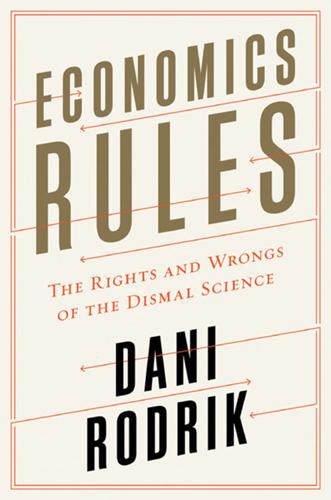
Economics Rules: The Rights and Wrongs of the Dismal Science
by
Dani Rodrik
Published 12 Oct 2015
Academic reputations are built on new and imaginative demonstrations of market failure. But in public, the tendency is to close ranks and support free markets and free trade. This dynamic produces what I call the “barbarians are only on one side” syndrome. Those who want restrictions on markets are organized lobbyists, rent-seeking cronies, and their ilk, while those who want freer markets, even when they’re wrong, have their hearts in the right place and are therefore much less dangerous. Taking up the cause of the former gives ammunition to the barbarians, while siding with the latter is, at worst, an honest mistake with no huge consequences.

The Gig Economy: A Critical Introduction
by
Jamie Woodcock
and
Mark Graham
Published 17 Jan 2020
Figure 8 Democratic ownership Illustration by John Philip Sage At the core of the platform cooperative idea is the fact that platforms operate as mediators: bringing together workers and customers. In the process, they take a substantial cut of the transactions – sometimes as high as 30 per cent. However, once the infrastructure has been set up, these platforms essentially become rent-seeking. Rather than providing anything new to either party using the platform, they collect a cut of other people’s work, often driving down wages to do so. As the costs of producing apps used by platforms have fallen dramatically over time, they are no longer the sole preserve of multi-billion-dollar companies.

The New Snobbery
by
David Skelton
Published 28 Jun 2021
The industrial policy that allowed South Korea to enjoy decades of ‘hypergrowth’ and real wage growth of almost 20 per cent a year was predicated on favouring ‘positive-sum entrepreneurship’, defined as activities that benefit the wider economy and boost productive capacity – as opposed to ‘zero-sum entrepreneurship’, which represents short-term speculation and rent-seeking. Korea is also taking the lead in utilising technology in manufacturing, with over 800 robots per 10,000 workers, compared to 300 in Germany and eighty-five in the UK. This use of technology is enabling an increase in output with no net hit on jobs, with a recent European Commission paper finding that ‘robot adoption tends to be positively associated with aggregate employment’.6 For the Asian Tigers, government was able to utilise a sensible industrial strategy that used market signals to direct resources and protect early-stage innovation.
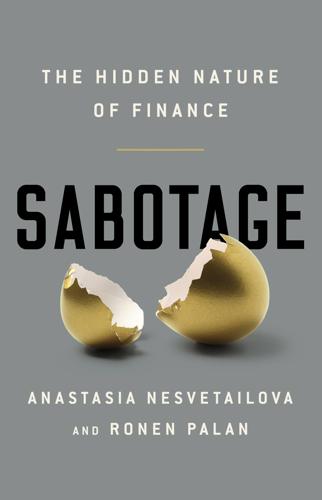
Sabotage: The Financial System's Nasty Business
by
Anastasia Nesvetailova
and
Ronen Palan
Published 28 Jan 2020
What is there in the organization of the market that ensures businesses will concentrate only on innovation, and overlook all the other tools in the Veblenian arsenal of sabotage? Well, nothing, really. It is only the state, scorned and despised by Hayekians, that is in a position to try and do something about sabotage. Liberals are quick to point out that government officials are bent on rent seeking and are often corrupt (that is, they are corrupted by the very businesses whose freedom of action these liberals espouse). The free market of neoliberals, in contrast, is supposed to encourage innovation, as admittedly it did to an extent. In reality, however, the freer the market, the more ‘deregulated’ it is, the wider the scope for sabotage.
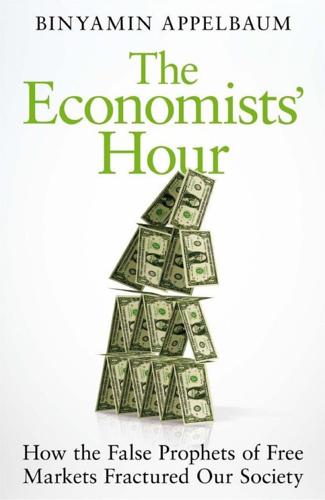
The Economists' Hour: How the False Prophets of Free Markets Fractured Our Society
by
Binyamin Appelbaum
Published 4 Sep 2019
By the mid-1960s, an acre of Taiwanese farmland produced eight times more food than an acre of U.S. farmland.92 In the longer term, the redistribution of land had two important consequences for Taiwan’s development. First, it created a broad base of consumers — and petty capitalists. Second, it minimized the numbers and political power of both rent-seeking elites and poor families dependent on the state. The development economist Gustav Ranis has observed that his colleagues struggled to influence policy in many developing nations because they had their priorities backward. Economists emphasized efficiency as the most important goal of public policy, while regarding political stability and distributional equity as benefits of the resulting growth.
…
In Chile, 33 percent of eighteen- to twenty-four-year-olds from the lowest income quintile were enrolled in college in 2017, compared with 53 percent of those from the top quintile.34 In the United States, differences in the quality of public education, and the rising cost of public universities, have produced similar, though less dramatic, effects. Economic inequality also distorts public policy as politicians face greater pressure to accommodate rent-seeking elites and to provide help to the poor. And inequality attenuates a sense of shared purpose, which makes it more difficult to maintain political support for the necessary levels of public investment in education, research, and infrastructure. The rise of inequality means the performance of the U.S. economy is not as strong as it may seem.
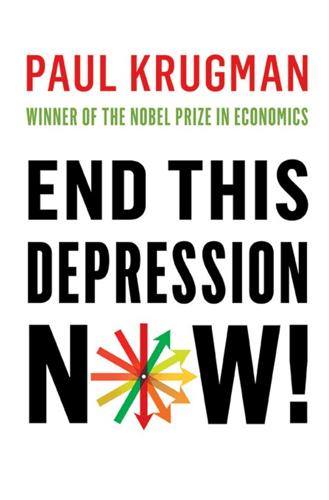
End This Depression Now!
by
Paul Krugman
Published 30 Apr 2012
It’s surely relevant here to note the sharp decline in unionization during the 1980s, which removed one major player that might have protested huge paychecks for executives. Recently Piketty and Saez have added a further argument: sharp cuts in taxes on high incomes, they suggest, have actually encouraged executives to push the envelope further, to engage in “rent-seeking” at the expense of the rest of the workforce. Why? Because the personal payoff to a higher pretax income has risen, making executives more willing to risk condemnation and/or hurt morale by pursuing personal gain. As Piketty and Saez note, there is a fairly close negative correlation between top tax rates and the top 1 percent’s share of income, both over time and across countries.
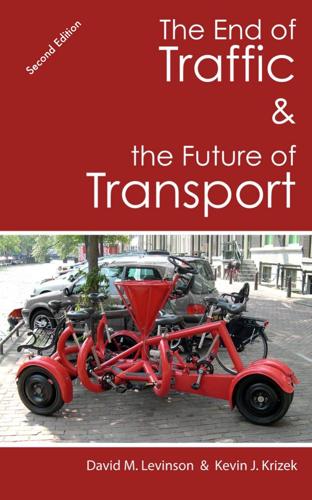
The End of Traffic and the Future of Transport: Second Edition
by
David Levinson
and
Kevin Krizek
Published 17 Aug 2015
If firms don't need to go to extra effort to hire workers and machinery, (i.e. they would otherwise be idle or working at marginal tasks), prices will be stable. The analogy here is a bottleneck. At well below capacity, travelers can proceed at free flow speed. Only as capacity approaches does delay (higher prices) result. The Cynicism Hypothesis: While there are needs, money won't go to needs. Political rent-seeking will divert funds from what matters. Cynical as this may be, there is some evidence for this. The construction industry itself is indifferent to what is built, so will happily support any spending. It is the users and taxpayers who suffer from the misallocation of resources, not only in the opportunity cost of what isn't done, but the future maintenance burden of supporting what was done.
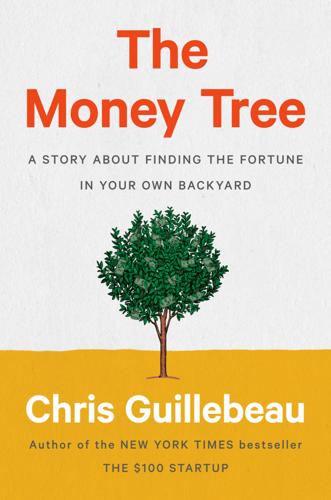
The Money Tree: A Story About Finding the Fortune in Your Own Backyard
by
Chris Guillebeau
Published 6 Apr 2020
He’d sooner crawl under the table and starve at a holiday dinner than have that conversation. Clarence went on. “Forget about that example for a moment, because it’s not just about the specific items. With any reselling category, all you’re doing is marking up the price of something. You’re only profiting because the system is inefficient. Economists call this ‘rent-seeking,’ which is a fancy way of saying you’re not really adding anything of value. “Making money is good, for all the reasons we’ve talked about. But ultimately, you should learn to make money while also helping people in a meaningful way. That’s what the test is about. Don’t you want your grandma to be proud of you?

Safe Haven: Investing for Financial Storms
by
Mark Spitznagel
Published 9 Aug 2021
This risk transfer is visible in all business activities: corporations end up obeying the financial analyst dictum to avoid tail insurance: in their eyes, a company that can withstand storms can be inferior to one that is fragile to the next slight downturn or rise in interest rates, if the latter's earning per share exceed the former's by a fraction of a penny! So the tools of modern finance helped create a “rent‐seeking” class of people whose interest diverged from those of their clients—and ones who get eventually bailed out by taxpayers. While the financial rent seekers were clearly the enemies of society, we found actually worse enemies: the imitators. For, at Universa, Spitz built a structure that tail‐hedged portfolios, hence insulated him from the need for delayed random gratification.
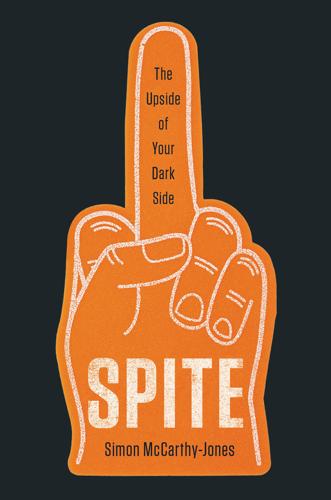
Spite: The Upside of Your Dark Side
by
Simon McCarthy-Jones
Published 12 Apr 2021
Kuziemko, “The ‘Last Place Aversion’ Paradox,” Scientific American, October 12, 2011, www.scientificamerican.com/article/occupy-wall-street-psychology/; I. Kuziemko et al., “‘Last-Place Aversion’: Evidence and Redistributive Implications,” Quarterly Journal of Economics 129, no. 1 (2014): 105–149. 2. B. Herrmann and H. Orzen, “The Appearance of Homo rivalis: Social Preferences and the Nature of Rent Seeking,” (CeDEx discussion paper series, No. 2008–10, 2008). These researchers do not suggest we create a new type of person called Homo rivalis but are keen to stress that most of us can act like this, under the right (or wrong) conditions. Our nature is somewhat fluid and is shaped by the conditions of society. 3.

Internet for the People: The Fight for Our Digital Future
by
Ben Tarnoff
Published 13 Jun 2022
Jeffrey Hardwick, Mall Maker: Victor Gruen, Architect of an American Dream (Philadelphia: University of Pennsylvania Press, 2004), 133. “Outlet for that …”: Victor Gruen and Laurence P. Smith, “Shopping Centers: The New Building Type,” Progressive Architecture (June 1952): 67–109. 86, Real malls are in the … On online mall rent-seeking, in addition to Sadowski, “The Internet of Landlords,” see Paul Langley and Andrew Leyshon, “Platform Capitalism: The Intermediation and Capitalization of Digital Economic Circulation,” Finance and Society 3, no. 1 (2017): 11–31. 88, In 1998, the same year … Steven Levy, In the Plex: How Google Thinks, Works, and Shapes Our Lives (New York: Simon and Schuster, 2011), 32–34.

Never Let a Serious Crisis Go to Waste: How Neoliberalism Survived the Financial Meltdown
by
Philip Mirowski
Published 24 Jun 2013
Perhaps we can add to this that only societies which hold moral values essentially similar to our own have survived as free societies, while in others freedom has perished.112 Other MPS figures such as Buchanan entertained the notion that a certain specific type of moral order would support a neoliberal state, or that morals could reduce the costs of rent-seeking losers throwing monkey wrenches into government.113 It took a lot of effort, and a fair bit of pussyfooting around the danger of alienating the partisans of one denomination (often in some other part of the world) by coquetting with different denominations or versions of religion, but the project of intellectual accommodation with the religious right and the theocons within the neoliberal framework has been an ongoing project at the MPS, although one fraught with contradictions that have dogged the liberal project since the Enlightenment.114 These thirteen more or less echt-commandments gathered here characterize the rough shape of the program eventually arrived at by the Neoliberal Thought Collective.
…
Second, by developing such theories an economist can open the door to future wealth as a lobbyist or consultant. Third, the support of economists is critical to creating and maintaining special privileges for the financial services industry and for top corporate officers. By threatening to withdraw this support, economists can engage in rent-seeking. I call this last practice academic entrepreneurship. Is it really plausible that economists threaten top banks that in the absence of some kind of payoff, they will change the theories they teach in a direction that is less favorable to the banks? There are certainly cases in history of the following sequence: a.
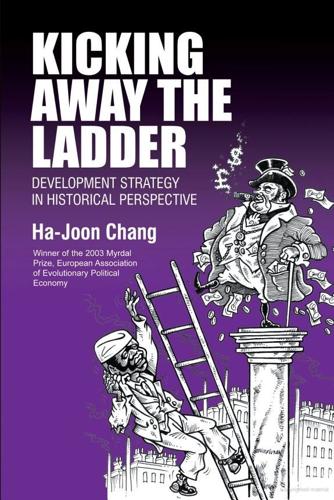
Kicking Awaythe Ladder
by
Ha-Joon Chang
Published 4 Sep 2000
Most patent laws were very lax in checking the originality of the invention. In the USA for example, before the 1836 overhaul of the patent law, patents were granted without any proof of originality. This not only led to the patenting of imported technologies, but also encouraged racketeers to engage in 'rent-seeking' by patenting devices already in use ('phony patents') and by demanding money from their users under threat of suit for infringement.53 Few countries allowed patents on chemical and pharmaceutical substances (as opposed to the processes), although this practice has been 'outlawed' by the TRIPS (trade-related intellectual property rights) agreement in the WTO, except for the poorest countries (and even then they are only exempt until 2006).54 These laws afforded only very inadequate protection, particularly in relation to the protection of foreign IPR, which is now becoming a major point of contention after the TRIPS agreement (for further details, see the references cited in section 2.3.3).
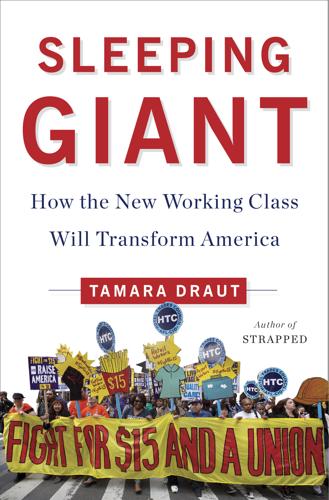
Sleeping Giant: How the New Working Class Will Transform America
by
Tamara Draut
Published 4 Apr 2016
As Návar sees it, one of the chief obstacles to building that kind of solidarity is a deep class analysis about why workers, including the white working class, have lost so much ground. Without a shared understanding of how capitalism has been reengineered by elites in the past three decades to encourage financial and capital rent-seeking behavior, the working class (and the middle class as well) can be easily steered toward scapegoating a group of people as the source of their problems. Without an understanding of how the rules have been rewritten, the lack of good jobs gets blamed on undocumented immigrants by both the white and the black working class.
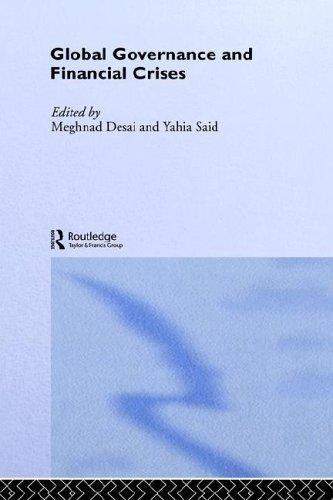
Global Governance and Financial Crises
by
Meghnad Desai
and
Yahia Said
Published 12 Nov 2003
S. et al. (1997) Southeast Asia’s Misunderstood Miracle: Industrial Policy and Economic Development in Thailand, Malaysia and Indonesia, Westview, Boulder. Keynes, J. M. (1973) The General Theory of Employment, Interest and Money, 3rd edition, Macmillan, London. Khan, M. and Jomo, K. S. (eds) Rents, Rent-seeking and Economic Development: Theory and Evidence in Asia, Cambridge University Press, Cambridge. Krugman, P. (1994) ‘The myth of the Asian miracle’, Foreign Affairs, November–December. Krugman, P. (1998) ‘First-sale FDI’, processed Massachusetts Institute of Technology. Lane, T. (1999) ‘The Asian financial crisis: what have we learned?’
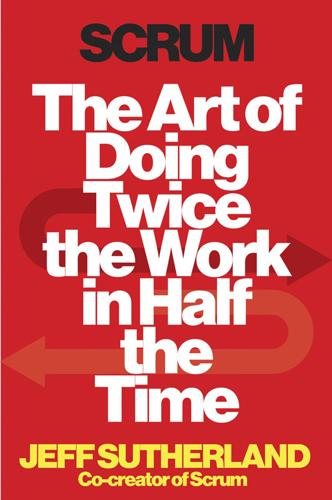
Scrum: The Art of Doing Twice the Work in Half the Time
by
Jeff Sutherland
and
Jj Sutherland
Published 29 Sep 2014
But problems show up when hierarchy or codified divisions of labor either haven’t been created by the group’s members or when those structures persist for long periods of time. We believe those structures inevitably begin to serve their own needs rather than those of Valve’s customers. The hierarchy will begin to reinforce its own structure by hiring people who fit its shape, adding people to fill subordinate support roles. Its members are also incented to engage in rent-seeking behaviors that take advantage of the power structure rather than focusing on simply delivering value to customers.3 It may seem that Valve would be vulnerable to freeloaders—to people who want to take advantage of the system—but peer review is constant. Sure, people get to decide what to work on, but if they can’t convince anyone else it’s a good idea, maybe it really isn’t.
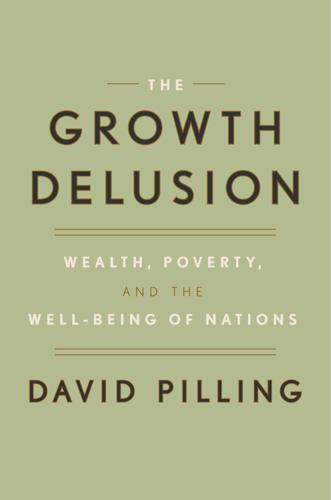
The Growth Delusion: Wealth, Poverty, and the Well-Being of Nations
by
David Pilling
Published 30 Jan 2018
Many countries, especially ones in the developing world with weak institutions, fall prey to the so-called resource curse. Instead of using revenue to build the country’s future, they scramble to spend it as fast as possible. What should be a once-in-a-lifetime chance to improve a country’s prospects becomes what economists call a rent-seeking opportunity, with those in power and their hangers-on scrambling to make a quick buck. This applies not only to developing countries. Even the UK, a nation with generally well-functioning institutions, can be accused of squandering its oil revenues. Like Norway, Britain benefited from the vast quantities of petroleum discovered in the North Sea.

Mastering Blockchain: Unlocking the Power of Cryptocurrencies and Smart Contracts
by
Lorne Lantz
and
Daniel Cawrey
Published 8 Dec 2020
In organizations, an administrator usually controls access to the entire system. Using a ledger system can allow multiple parties to access information without requiring one single gatekeeper. There’s nothing wrong with centralized databases. However, blockchain technology enables the sharing of information through consensus incentives instead of centralized rent-seeking (e.g., targeted advertising on social networks or taking a fee like online marketplaces do). Decentralization Versus Centralization Early cryptocurrency proponents embraced decentralization as a core part of the technology. However, many other blockchain platforms—particularly those being developed for organizations—are much more centralized.
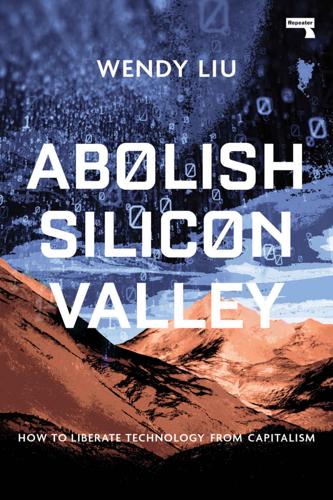
Abolish Silicon Valley: How to Liberate Technology From Capitalism
by
Wendy Liu
Published 22 Mar 2020
And for technical roles, public salary transparency based on posted bands would be helpful in order to minimise discrimination, ideally coordinated through industry-wide and location-specific bargaining. However, minimising income variation within a workplace can backfire if it merely directs money toward shareholders rather than workers. These efforts would have to be in tandem with other approaches to prevent capital from reaping the rewards. Companies with excess profits accrued through rent-seeking should be considered targets for nationalisation. Failing that, they should have to lower prices, increase R&D spending, and/or raise wages; the rest could be taxed away. And a strict wealth tax would also be useful given that those with a high amount of savings can draw passive income solely from investing.

New York 2140
by
Kim Stanley Robinson
Published 14 Mar 2017
On the ferry-boats the hundreds that cross, returning home, are more curious to me than you suppose, And you that shall cross from shore to shore years hence are more to me, and more in my meditations, than you might suppose … Others will enter the gates of the ferry and cross from shore to shore, Others will watch the run of the flood-tide, Others will see the shipping of Manhattan north and west, and the heights of Brooklyn to the south and east, Others will see the islands large and small; Fifty years hence, others will see them as they cross, the sun half an hour high, A hundred years hence, or ever so many hundred years hence, others will see them, Will enjoy the sunset, the pouring-in of the flood-tide, the falling-back to the sea of the ebb-tide … It avails not, time nor place—distance avails not, I am with you, you men and women of a generation or ever so many generations hence … Just as you feel when you look on the river and sky, so I felt, Just as any of you is one of a living crowd, I was one of a crowd, Just as you are refresh’d by the gladness of the river and the bright flow, I was refresh’d, Just as you stand and lean on the rail, yet hurry with the swift current, I stood yet was hurried— —Walt Whitman h) the city Strategic defaulting. Class-action suits. Mass rallies. Staying home from work. Staying out of private transport systems. Refusing consumer consumption beyond the necessities. Withdrawing deposits. Denouncing all forms of rent-seeking. Ignoring mass media. Withholding scheduled payments. Fiscal noncompliance. Loud public complaining. The interesting volume Why Civil Resistance Works makes the case that nonviolent civil resistance of various soft kinds is demonstrably more successful than violent resistance when it comes to actually achieving the stated goals of the resistance and changing things for the better.
…
The Householders’ Union’s wildcat noncompliance strike was famous and going strong; not paying rents and mortgages and calling that a political act was proving to be very popular. Markets were holding on by the skin of their teeth, loudly proclaiming everything was fine, but people now spoke of rent using the economists’ definition of the word, as any taking of money with no productive economic work created. Taking a cut, corruption, rent-seeking, these were suddenly used as synonyms. The householders’ strike even looked like a logical response to the bashing of the city by Mother Nature and the clueless intransigence of the absent rich in their empty uptown towers. Strike, therefore! and watch the house of cards fall. Everything that happened seemed to play to her campaign message.
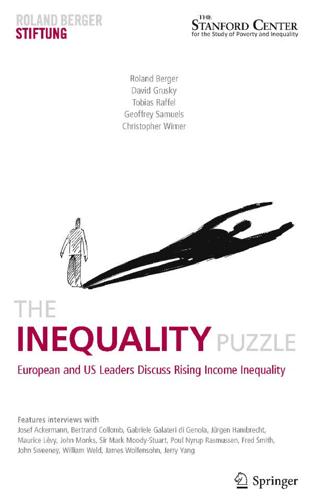
The Inequality Puzzle: European and US Leaders Discuss Rising Income Inequality
by
Roland Berger
,
David Grusky
,
Tobias Raffel
,
Geoffrey Samuels
and
Chris Wimer
Published 29 Oct 2010
Not only is this contrary to human nature, it does not promote a vibrant economy where a portion of the population using competitive skills and higher productivity creates a more active, innovative economy, as well as greater inequality. Skewed income distribution is not necessarily a sign of cronyism, rent seeking, or predatory practices. Indeed, some scholars suggest that an “efficient inequality range,” between a Gini of .25 and .40, creates economic efficiency, in which case almost all OECD countries fit within an efficient range.1 Again, the point is not to contest the need to reduce exces- 1 Giovanni Andrea Cornia, and Julius Court, Inequality, Growth and Poverty in the Era of Liberalization and Globalization, UNU World Institute for Development Economics Research, 2001.
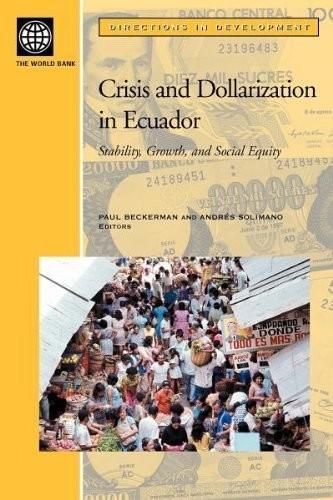
Crisis and Dollarization in Ecuador: Stability, Growth, and Social Equity
by
Paul Ely Beckerman
and
Andrés Solimano
Published 30 Apr 2002
Ecuador’s main political parties are formed along regional lines, weakening central authority and forcing a style of policymaking that allocates resources, taxes, and quotas of political power in an effort to maintain regional balance.6 Economy-wide objectives such as economic growth and monetary stability are often displaced by the needs of regional balancing, redistribution, and rent-seeking. In turn, Ecuador, like most Latin American countries, is a highly socially stratified country. Wealthy people, elite landowners, and financial and industrial entrepreneurs coexist with a population that is mostly poor (see chapter 4) and with a large (at times politically active) indigenous population.
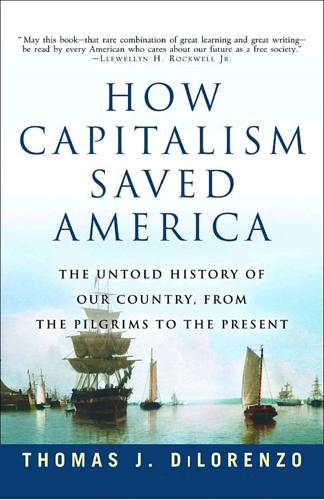
How Capitalism Saved America: The Untold History of Our Country, From the Pilgrims to the Present
by
Thomas J. Dilorenzo
Published 9 Aug 2004
Of course, in every industry the less efficient competitors can be expected to snipe at their superior rivals, and in many instances sniping turns into an organized political crusade to get the government to enact laws or regulations that harm the superior competitor. Economists call this process “rent seeking”; in the language of economics, “rent” means a financial return on an investment or activity in excess of what the activity would normally bring in a competitive market. This sort of political crusade by less successful rivals is precisely what crippled the great Rockefeller organization. The governmental vehicle that was chosen to cripple Standard Oil was antitrust regulation.
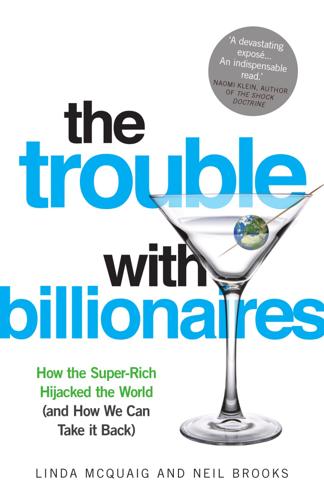
The Trouble With Billionaires
by
Linda McQuaig
Published 1 May 2013
Rather, it’s that our highest earners have managed to shape the agenda in the past thirty years, using their influence to put in place laws – domestically and internationally – that favour their own interests. Rather than wealth creation, their main achievement has been ensuring the diversion to themselves of an enormous share of the wealth created, what is known in economics as ‘rent-seeking’. The growing concentration of income and wealth at the top is thus largely the product of deliberate policy changes affecting the corporate and financial world, as well as the gutting of labour laws and social programmes that protected those lower down the income ladder. The rise of a hugely rewarded class of financial professionals has been greatly facilitated, for instance, by the dismantling of financial regulations that were wisely put in place in the 1930s, following the 1929 crash.
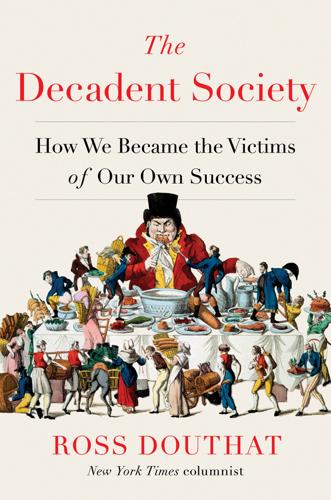
The Decadent Society: How We Became the Victims of Our Own Success
by
Ross Douthat
Published 25 Feb 2020
What has changed, according to the less solutionist and more pessimistic analysis, is that we’ve entered an age of economic limits—an era of “secular stagnation,” as the chastened neoliberal Larry Summers wrote in 2013, in which “the presumption that normal economic and policy conditions will return at some point cannot be maintained.” For the pessimists, the unusual features of the post-2007 landscape—the persistently low interest rates, the low rate of inflation, the disappointing rate of growth, the great fortunes parked in rent-seeking rather than risk-taking—are actually inevitabilities in a developed world where there just aren’t enough impressive enterprises to invest in; a developed world that inflates bubbles and then pops them (or invests in Theranos and then repents) because that’s all there is for capital to do; a developed world slowly growing accustomed to unexpected limits on its future possibilities.
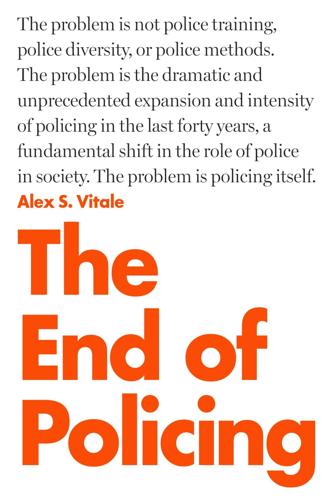
The End of Policing
by
Alex S. Vitale
Published 9 Oct 2017
Police can enact harsh penalties, and those engaged in illegal activity usually have the resources to buy them off. Furthermore, enforcement is largely discretionary, so there is tremendous temptation for police to look the other way in return for bribes or actively pursue bribes as a form of “rent seeking,” in which they use their position to maximize extorted earnings. In many parts of the world, police corruption in relationship to prostitution is endemic, with most sex workers conducting financial and even sexual relationships with police.10 It is considered an unavoidable cost of doing business for workers and part of the expected base salary for police, along with bribes to avoid traffic tickets and free meals and goods from local businesses.
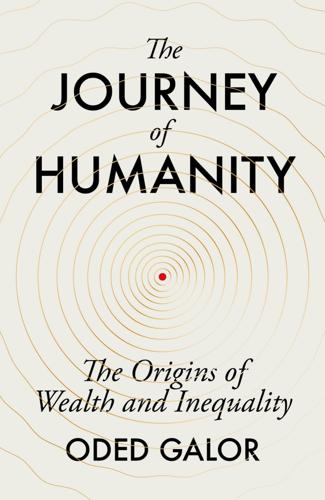
The Journey of Humanity: The Origins of Wealth and Inequality
by
Oded Galor
Published 22 Mar 2022
Geography also determines the availability of natural resources such as fossil fuels and natural minerals. These have tended to provide a sizeable windfall in the short run but are often considered a ‘resource curse’ in the longer run, as they divert resources from human-capital intensive sectors and promote non-productive rent-seeking activities. Some have argued that plentiful coal mines provided Britain with a head start in the development of steam engine technologies and thus contributed to the early onset of its Industrial Revolution, but it remains the case that other countries with large quantities of coal, such as China, did not industrialise until much later.

The Twittering Machine
by
Richard Seymour
Published 20 Aug 2019
Spotify, renting its musical product through a cloud-based streaming service, collects digital information from customers that enables far more precise marketing. General Electric, offering a cloud platform to allow industrial firms to connect production processes by sensor and chip all over the world, makes production systems legible in the form of electronic writing. This also permits a new form of rent-seeking. Instead of selling products, increasingly firms adopting the ‘platform’ structure just lease them as services. Rolls-Royce, rather than selling a jetliner engine, will now rent it out at an hourly rate. The social industry giants have created a new form of advertising platform. The flow of marketing revenue is being massively redirected from newspapers to Facebook and Google.

The New Class Conflict
by
Joel Kotkin
Published 31 Aug 2014
It is possible that as these firms move further from their entrepreneurial roots, many take on what anthropologist David Graeber describes as “a timid, bureaucratic spirit” that responds to the needs of investors and focuses on preserving already established business lines. Many observers, from Adam Smith and Karl Marx to Joseph Schumpeter, agree that monopoly creation, rent seeking, and price fixing are the natural instincts of the monied classes rather than risk taking, hard work, and free enterprise.82 Over time, this yearning for oligarchy could also threaten a host of other large firms, in media and finance in particular, which have been subject to what one analyst calls the “super-sizing” of big business.
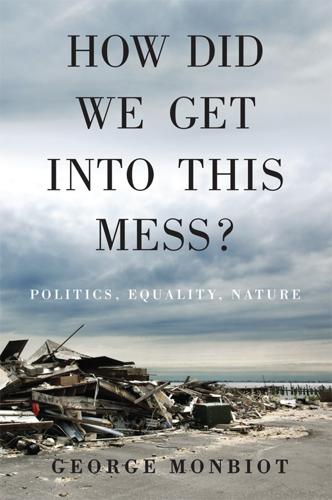
How Did We Get Into This Mess?: Politics, Equality, Nature
by
George Monbiot
Published 14 Apr 2016
It is easy to calculate and hard to avoid: you can’t hide your land in London in a secret account in the Cayman Islands. And it could probably discharge the entire deficit. It is altogether remarkable, in these straitened and inequitable times, that land value tax is not at the heart of the current political debate. Perhaps it is a sign of how powerful the rent-seeking class in Britain has become. While the silence surrounding this obvious solution exposes Labour’s limitations, it also exposes the contradiction at heart of the Conservative Party. The Conservatives claim, in David Cameron’s words, to be ‘the party of enterprise’.16 But those who benefit most from its policies are those who are rich already.
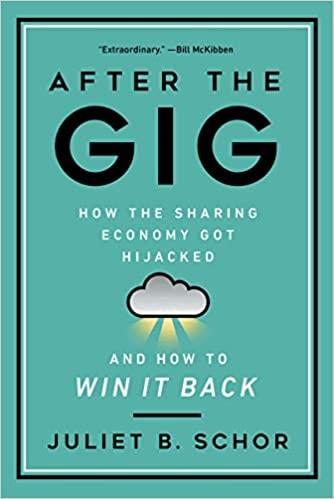
After the Gig: How the Sharing Economy Got Hijacked and How to Win It Back
by
Juliet Schor
,
William Attwood-Charles
and
Mehmet Cansoy
Published 15 Mar 2020
They then relied on the idealist discourse to gain public support and deter regulators and politicians from opposing them. The platforms argue for dismantling existing regulatory regimes on the grounds that they stifle innovation and threaten the sector’s economic viability. The companies position themselves as efficient, low-cost, and proconsumer,25 while opponents are maligned as antiprogress, Luddite, and rent-seeking. Perhaps not surprisingly, a Koch Brothers–funded project against taxi regulation was used nearly word-for-word by Uber in its messaging.26 The companies are using the right-wing antigovernment playbook. In ride-hail, denigrating the competition was a bit like shooting fish in a barrel. Decades of caps on taxi licenses, racial discrimination by drivers, and coziness with regulators had eroded public support for the industry.
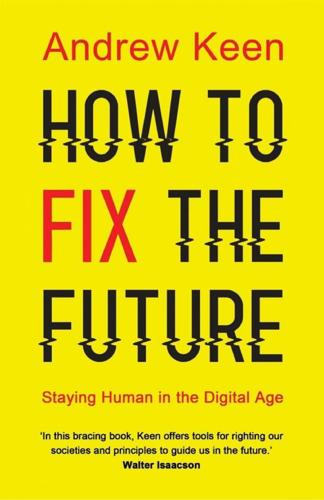
How to Fix the Future: Staying Human in the Digital Age
by
Andrew Keen
Published 1 Mar 2018
According to the Financial Times columnist Philip Stephens, Margrethe Vestager is the woman who is saving digital capitalism from the digital capitalists. The problem with free market capitalism, digital or otherwise, Stephens says, is its natural and perhaps even inevitable tendency toward winner-take-all monopolies. “Unconstrained, enterprise curdles into monopoly, innovation into rent-seeking,” Stephens argues. “Today’s swashbuckling ‘disrupters’ set up tomorrow’s cozy cartels.”1 Thus his portrayal of Vestager as someone with the potential to be the twenty-first-century version of Teddy Roosevelt, the US president who deployed the 1890 Sherman Antitrust Act against industrial winner-take-all leviathans of the late nineteenth century such as Standard Oil and the American Tobacco Company.

Butler to the World: How Britain Became the Servant of Tycoons, Tax Dodgers, Kleptocrats and Criminals
by
Oliver Bullough
Published 10 Mar 2022
It is well established that large reserves of oil or gas almost invariably corrupt countries – think of Angola, Nigeria, Venezuela or indeed Russia – since those in power battle to control the money flows rather than serve the public. Ukraine became very corrupt as well, but in a different way: the corruption derived not from controlling the gas, but from the pipelines that moved it, and thus the ability to reward supporters with valuable shipments, or export licences. This wasn’t so much rent-seeking behaviour as toll-seeking. Insiders in Russia and Ukraine teamed up to create shady intermediary companies which took gas from Gazprom at the Russian border, sold it to high-paying Europeans and split the proceeds. Often they paid for the gas not with money but with goods, and barter transactions added a layer of opacity to the deals, which made them even harder for ordinary citizens to understand.

Empire of Guns
by
Priya Satia
Published 10 Apr 2018
By contrast, French imperial demand had never been sufficient to prompt intense division of labor in artisanal arms making: French artillery engineers influenced by Enlightenment principles of rationality and republican idealism could not yield on musket design; the French government liquidated the French East India Company in 1793; and war devastated French land. Criticism of contracting as rent-seeking became strongest in Britain, because rent-seeking crumbled elsewhere. All European states harbored ambitions for industrial growth, but British state institutions’ ties to and rivalries with chartered companies made it capable of compromising in a manner that allowed it to experiment with industrial organization and make industry capable of cheaply producing mass quantities.
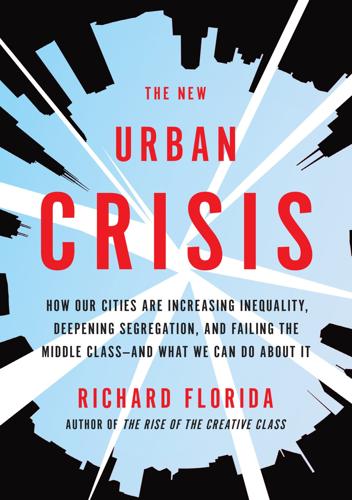
The New Urban Crisis: How Our Cities Are Increasing Inequality, Deepening Segregation, and Failing the Middle Class?and What We Can Do About It
by
Richard Florida
Published 9 May 2016
While there is certainly a place for neighborhood preservation and environmental conservation, NIMBYs do more than keep “bad” things out of cities and neighborhoods. Well-intended or not, when they reflexively block any and all development, they not only preserve their own housing values but also put a brake on the very clustering that drives innovation and economic growth. In many cases, NIMBYism reflects what economists refer to as rentier or rent-seeking behavior. An economic rent is essentially an extraordinary return that comes about through little or no real effort. And what could be easier than sitting on property and watching its value go up, especially since the gain comes largely from what is going on in the city and neighborhood? Concern over unproductive rentier behavior hearkens all the way back to eighteenth-century economists, who were writing at a time when land, not capital, was the dominant factor of production.
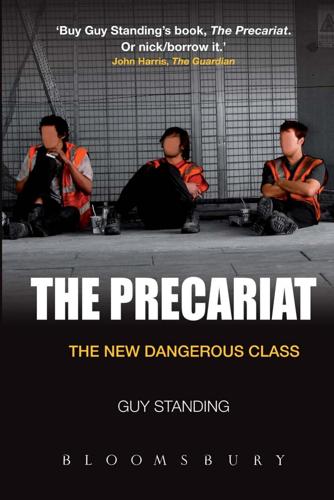
The Precariat: The New Dangerous Class
by
Guy Standing
Published 27 Feb 2011
The dominant image of the precariat stems from numerical flexibility, through what were long called ‘atypical’ or ‘non-standard’ forms of labour. Mainstream companies are contracting out much of their labour, while preserving a small salariat (corporate citizens) whose loyalty they value and with whom they share a key asset – knowledge, the rent-seeking capacity of tertiary firms. If knowledge is shared too widely, companies lose control of the asset. The salariat are citizens with voting rights in their firms, consulted or taken into account in a range of decisions. These rights are implicitly accepted by the owners or major shareholders, who have voting rights on the strategic decisions of the enterprise or organisation.
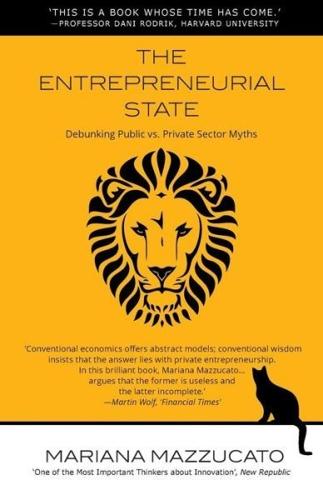
The Entrepreneurial State: Debunking Public vs. Private Sector Myths
by
Mariana Mazzucato
Published 1 Jan 2011
Burlamaqui (2012) argues that this problem cannot be solved through fixing market failures, but must be thought about more broadly in terms of market shaping – through the concept of ‘knowledge governance’. He states: ‘From a knowledge-governance perspective, the critical question that should be asked here is: when does extended protection cease to work for generating Schumpeterian profits and become a base for rent-seeking and rent extraction?’ (Burlamaqui 2012, 5). He argues that a tool for governing publicly funded knowledge would be for the government to retain a golden share of patents that emerge from publicly funded research, making sure that the owner of the patent behaves cooperatively, e.g. licensing the patent broadly and fairly after an initial period of protection.
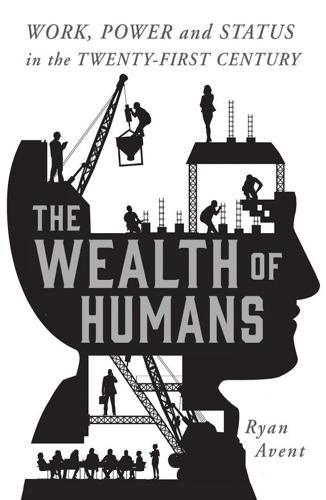
The Wealth of Humans: Work, Power, and Status in the Twenty-First Century
by
Ryan Avent
Published 20 Sep 2016
Expensive, exclusive cities are the furnace in which a very rich, persistent class of elite professionals is forged Social capital thrives where it is in the individual interest of those contributing to it to continue their contributions. But while social capital is rewarding in its own right to those who are a part of the community, and further boosts the economic potential of those communities, it also creates a powerful rent-seeking institution: a community that sees its mission, in part, as protecting the wealth of the community by excluding others. 8 Hyperglobalization and the Never-Developing World So far, this book has dwelt primarily on rich countries. The rich world is a small club, home to about one billion people, or 15 per cent of the global population, but which accounts for about half of global GDP.

The Great Convergence: Information Technology and the New Globalization
by
Richard Baldwin
Published 14 Nov 2016
Since the local king wanted to be paid for the wood, the priest sent back to Egypt for more trade goods to seal the deal. The trade goods were eventually delivered almost a year later. The papyrus lists them as consisting of jars of gold and silver, royal linen, veils, 500 ox-hides, and 500 ropes. Some adherents to the doctrine condemned trade and traders on moral grounds—accusing them of what we would call rent-seeking behavior. Buying low and selling high was immoral since the trader’s own labor was not engaged in the making of the goods. Others praised trade as part of the divine plan to induce economic intercourse across the universal fellowship of humanity. As the Middle Ages progressed, the European conceptualization of trade shifted from the divine to the bottom line.
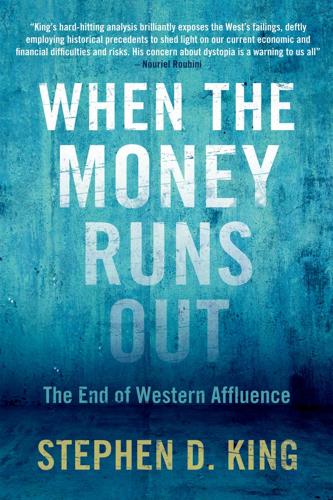
When the Money Runs Out: The End of Western Affluence
by
Stephen D. King
Published 17 Jun 2013
One way to measure output is by totting up the cost of all the inputs: the wage bill, reflecting the cost of labour, the level of profits, reflecting the cost of capital, and the like. Yet there are two problems with this approach. First, in an insufficiently competitive market, wages and profits may overstate the output being produced: those involved may instead simply be engaged in rent-seeking behaviour. Second, whereas input costs are known today, the ultimate ‘output’ of the financial sector won't be known for many years, if ever. If the financial sector's role is to allocate resources efficiently over time – to meet the interests of savers and investors – we can only know tomorrow whether today's financial decisions will pay off.

The Age of Stagnation: Why Perpetual Growth Is Unattainable and the Global Economy Is in Peril
by
Satyajit Das
Published 9 Feb 2016
Prices have decreased by around 10 percent over the last five years. Return on investment in the garment trade has decreased from 50 to 20 percent, which is close to the cost of debt in Bangladesh. In turn, this drives further cost-reduction measures. The problems are compounded by weak government, corruption, rent-seeking, and poor administration. Bangladeshi building regulations are not enforced. Trade unions are aggressively suppressed. The owner of Rana Plaza was linked with one of Bangladesh's major political parties and allegedly used his influence to obtain approvals from the authorities, even though the building extensions did not comply with standards.

No Such Thing as a Free Gift: The Gates Foundation and the Price of Philanthropy
by
Linsey McGoey
Published 14 Apr 2015
Instead, they act as lucrative gifts for established corporations that seek to dominate markets by keeping small players at bay.27 The system mostly benefits that strata of the international elite that Chrystia Freeland, a former Reuters executive and current Member of Parliament in Canada, terms ‘rent-seeking plutocrats – those who owe their fortunes chiefly to favourable political decisions’.28 The more stringent property rights become, the more serious a toll they take on the US economy, limiting the ability of smaller firms to compete against big guns such as Microsoft or IBM.29 Adam Smith once warned of this very problem.

The World's First Railway System: Enterprise, Competition, and Regulation on the Railway Network in Victorian Britain
by
Mark Casson
Published 14 Jul 2009
He argues for the institutionalization of collusion as a general cause of economic decline in nations, and he uses Britain as an exemplary case. His focus is on two types of horizontal combination: combinations of workers—namely trades unions—and combinations of firms—namely trade associations and cartels. These combinations are designed to raise wages and prices by eliminating competition; in other words, they are generated by ‘rent seeking’ rather than ‘efficiency-seeking’ behaviour (Baumol 1994). According to Olson, lengthy apprenticeship schemes and restrictive practices reduced occupational mobility. The labour market became segmented into Railways in the Victorian Economy 41 distinctive crafts, with particular types of job reserved for members of particular unions.
…
So far as firms were concerned, government became increasingly willing to listen to demands for the protection of domestic and colonial markets. As the international competitiveness of British labour declined, so trade associations became increasingly vociferous. Government failed to take a tough line with firms in mature manufacturing industries that had switched from efficiency-seeking to rent-seeking activities. 2 . 6 . C U LT U R A L E X P L A NAT I O N S O F E N T R E P R E N E U R I A L D EC L I N E Decline in late Victorian Britain is popularly attributed to premature gentrification. In the second half of the nineteenth century, it is claimed, the social gulf between artisans and aristocrats widened.

Free culture: how big media uses technology and the law to lock down culture and control creativity
by
Lawrence Lessig
Published 15 Nov 2004
This economists' brief was signed by seventeen economists, including five Nobel Prize winners, including Ronald Coase, James Buchanan, Milton Friedman, Kenneth Arrow, and George Akerlof. The economists, as the list of Nobel winners demonstrates, spanned the political spectrum. Their conclusions were powerful: There was no plausible claim that extending the terms of existing copyrights would do anything to increase incentives to create. Such extensions were nothing more than "rent-seeking"—the fancy term economists use to describe special-interest legislation gone wild. The same effort at balance was reflected in the legal team we gathered to write our briefs in the case. The Jones Day lawyers had been with us from the start. But when the case got to the Supreme Court, we added three lawyers to help us frame this argument to this Court: Alan Morrison, a lawyer from Public Citizen, a Washington group that had made constitutional history with a series of seminal victories in the Supreme Court defending individual rights; my colleague and dean, Kathleen Sullivan, who had argued many cases in the Court, and who had advised us early on about a First Amendment strategy; and finally, former solicitor general Charles Fried.
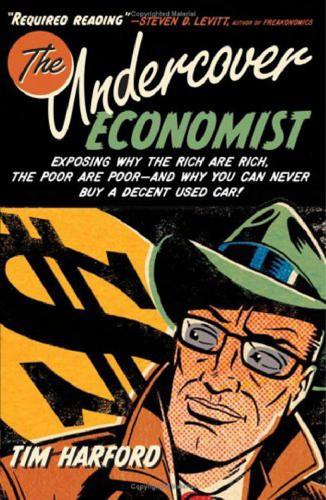
The Undercover Economist: Exposing Why the Rich Are Rich, the Poor Are Poor, and Why You Can Never Buy a Decent Used Car
by
Tim Harford
Published 15 Mar 2006
Trade • 21 • T H E U N D E R C O V E R E C O N O M I S T unions, lobby groups, people studying for a professional qualification, and even national governments like them too. Every day people all around us are trying to avoid competition or reap the rewards of others who have succeeded in doing so. Economists call this type of behavior “creating rents” and “rent-seeking.” It’s not easy to do this. It turns out that the world is a naturally competitive place, and it is no simple matter to steer clear of competition. This is fortunate, because although competition is uncomfortable if you are on the wrong end of it, it is pleasant to be on the right end, as the customer.
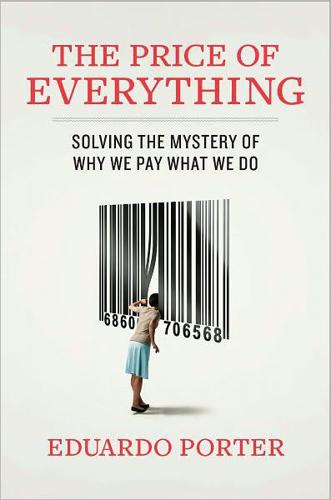
The Price of Everything: And the Hidden Logic of Value
by
Eduardo Porter
Published 4 Jan 2011
This approach proved particularly fitting for the emergent capitalist economies that were beginning to develop in Northern European cities, where wealth was inherently less stable than among the landed feudal aristocracy. The Church never established the same alliances with entrepreneurs that it had developed with European nobility. Rather, entrepreneurs resisted its rent seeking and opposed its meddling in economic enterprise. So they chose the competing product. SIN VS. THE SECULAR WORLD Belief in a divine origin of the world has suffered a battering over the past few centuries. In the West, science has gradually replaced God in the schema of the physical world since Nicolaus Copernicus proved the earth was not at the center of everything in the sixteenth century, raising the question of why an omnipresent, omniscient God of everything would care so much about events on a little planet in some corner of the universe.
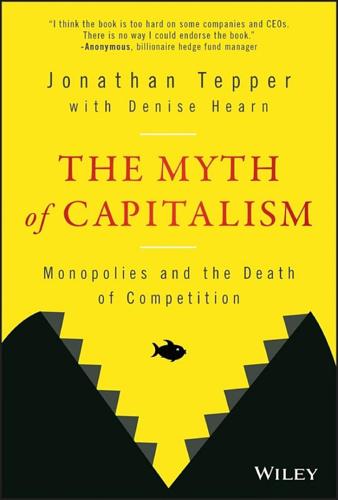
The Myth of Capitalism: Monopolies and the Death of Competition
by
Jonathan Tepper
Published 20 Nov 2018
He found that since 2000, political activity and regulation account for most of the rise in valuations and profits. In the past, the returns came from investments in machinery and research and development, especially during the 1990s.77 That spending improved company products, created new technology, and drove the real economy. Today most of the rise in profitability is from rent seeking and influence peddling. The correlation between lobbying, regulation, and profits is concentrated in a small number of politically influential industries. Bessen's research found that most of the effect is accounted for by a handful of industries: pharmaceuticals/ chemicals, petroleum refining, transportation equipment/defense, utilities, and communications.

The Truth Machine: The Blockchain and the Future of Everything
by
Paul Vigna
and
Michael J. Casey
Published 27 Feb 2018
This is one reason why researchers at the BOE speculated that differential interest rates would be needed—lower for central bank digital currencies but higher for bank deposits, perhaps—to discourage a destructive exodus of funds and smoothly manage the transition to digital currency. Nonetheless, many central bankers concur that gradually getting banks out of the payment business would be a positive thing. In theory, it reduces costs and inefficiencies, since profit-seeking banks (some might call them rent-seeking) are no longer acting as a tollgate to the economy’s commercial activity. Just as importantly, there would be less pressure on governments and central banks to bail out banks than there was in 2008, when it was feared that a looming collapse would cut off the economy’s payments lifeline. Central banks know too well now just how that crisis, which forced them to drive interest rates to zero and left them powerless to do more, seriously curtailed their capacity to stimulate economic growth.
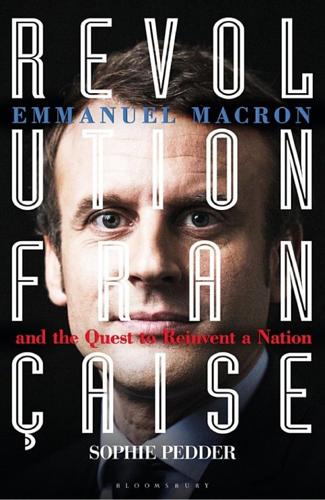
Revolution Française: Emmanuel Macron and the Quest to Reinvent a Nation
by
Sophie Pedder
Published 20 Jun 2018
And his technique required a clear-out of old-school politicians, reminiscent of the call by the nineteenth-century political theorist Saint-Simon. Indeed, there is very much something of a Saint-Simonian about Macron, in his faith in technical competence and meritocracy, as well as his determination to sweep aside the class of rent-seeking career politicians and replace them with technocrats. In office, he put technical experts in government, among them Jean-Michel Blanquer (education) and Dr Agnès Buzyn (health), and has surrounded himself with technocrats at the Elysée, the nerve centre of his highly centralised administration, under the tight grip of his chief of staff and old ally, Alexis Kohler.
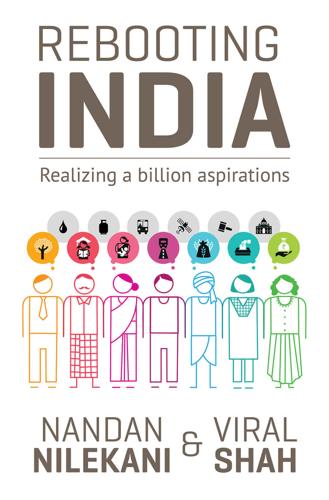
Rebooting India: Realizing a Billion Aspirations
by
Nandan Nilekani
Published 4 Feb 2016
Customers must have the freedom of choice, in this case being able to carry out transactions with a representative from any bank through the creation of an interoperable payments network. The economics of the system must be such that participants find it easier to make money legitimately rather than through corruption and rent-seeking. By creating standardized and simple processes, scaling up the network to include millions of customers becomes easier. Thanks to the ‘network effect’, each individual added to the system enriches it exponentially, creating a large enough user base that it expands under its own momentum. And finally, all solutions must recognize and harness the energy of the Indian market.
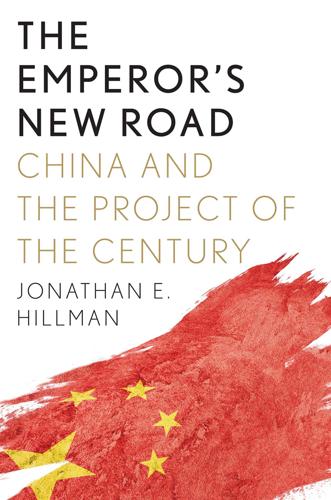
The Emperor's New Road: How China's New Silk Road Is Remaking the World
by
Jonathan Hillman
Published 28 Sep 2020
The Marshall Plan was a focused effort, concentrated on a narrow set of countries, spanning under five years, and involving a finite set of activities. Since leaving the station, China’s BRI has become a gravy train without a conductor. Its fevered pace has already exceeded China’s ability to accurately measure, let alone manage, these activities. Corruption and rent-seeking are thriving in the chaos. Conceptually, China’s BRI is closer to the War on Terror: poorly defined and ever expanding. There is no end in sight. Domestically and internationally, Xi has support to forge ahead. A pledge to pursue the BRI was added to the Chinese Communist Party’s constitution in 2017, suggesting that Xi’s vision could extend even beyond his lifetime tenure.

Hate Inc.: Why Today’s Media Makes Us Despise One Another
by
Matt Taibbi
Published 7 Oct 2019
Stories of couples having to drive a hundred miles at high speed to have their babies delivered are no longer uncommon. We suffer from profound and worsening inequality in income and criminal justice outcomes, a complete lack of job security for most, crumbling infrastructure (aggravated by extraordinary inefficiency and waste in government), an epidemic of anti-competitive practice and rent-seeking among the biggest companies, and devastating environmental threats on multiple fronts, from overfished oceans to a toxic “garbage patch” twice the size of Texas floating in the Pacific. These and a hundred other problems are common to the entire global population, not just Republicans or Democrats in the United States.

Ghost Road: Beyond the Driverless Car
by
Anthony M. Townsend
Published 15 Jun 2020
It makes money on its investments in traction monopolies, and fosters an innovation that improves its beneficiaries’ lives and eases pressure on public finances. The alternative—allowing the housing market to collapse as retirees move en masse into care centers—is unthinkable. But what happens when such policies turn a traction monopoly into a vital service deemed “too big to fail”? Will health-system savings simply be gobbled by a rent-seeking traction company? Aside from the ethical concerns, the numbers involved in this web of money are so enormous that the future solvency of the welfare state may well hang in the balance. Even as tomorrow’s global traction monopolies take shape, we don’t yet know where their ambitions end. Google set out a mere two decades ago “to organize all the world’s information.”
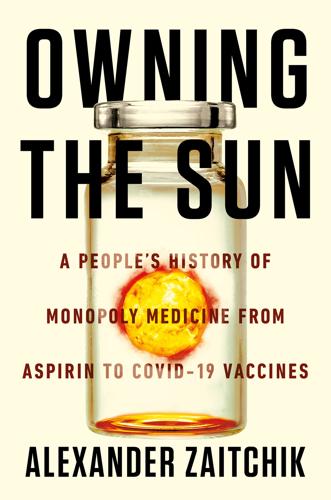
Owning the Sun
by
Alexander Zaitchik
Published 7 Jan 2022
One of that official’s reluctant Indian counterparts, Prabhat Patnaik, has described the road to TRIPS as “a parody of the wildest conspiracy theory.” The negotiations that resulted in the globalization of U.S.-style medical monopoly were not so much held over a table as conducted on a rack. It was the only way to enforce a concept as peculiar and universally rejected as rent-seeking from medicines. This is the story of how one of history’s worst ideas took root against centuries of tradition and came to dominate the world. One ORIGINS Rise of the Great American Patent MANKIND’S FIRST ATTEMPTS AT A RUDIMENTARY SCIENTIFIC process date to the Late Stone Age. Roughly ten thousand years ago, villages along the Fertile Crescent began using observation, trial, and error to cultivate flax, wheat, and barley.

Golden Gates: Fighting for Housing in America
by
Conor Dougherty
Published 18 Feb 2020
The more popular modular construction became, the louder this fight would get. It was out of fashion to believe you could do well and good at the same time. Too many scars from the financial crisis, too many tech monopolies, too many flippers who evicted entire buildings then used a coat of paint and some tile to rationalize doubling the rent. Too many rent-seeking schemes that portrayed a capitalism that had lost its way. Rick still believed it. He’d spent his life jumping between the worlds of do-gooding and moneymaking and had come away believing that each needed the other for progress to occur. Governments had good intentions and lofty ideals, but they always lost their way on costs and in the case of housing seemed unable to actually accomplish the things taxes and legislation set out to do.
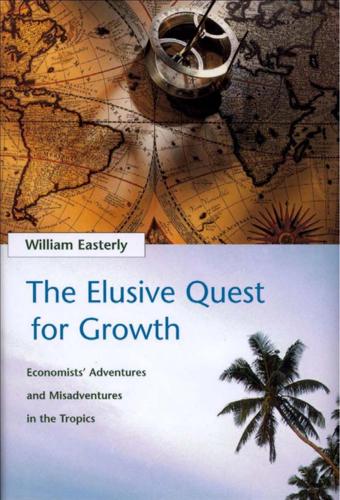
The Elusive Quest for Growth: Economists' Adventures and Misadventures in the Tropics
by
William R. Easterly
Published 1 Aug 2002
Quarterly Journalof Economics 106, no. 2 (May):327-368. Svensson, Jakob. 1997. ”When Is Foreign Aid Policy Credible? Aid Dependence and Conditionality.” World Bank working paper 1740, March. Svensson, Jakob. 1998. ”Reforming Donor Institutions: Aid Tournaments.” Mimeo. World Bank, April. Svensson, Jakob. 2000. “Foreign Aid and Rent-Seeking.” Journal of International Economics 51,no. 2 (August): 437-461. Talbot, Ian. 1998. Pakistan: A Modern History. New York: St. Martin’s Press. Theobald, Robin. 1990. Corruption, Development, and Underdevelopmen. Durham, N.C.: Duke University Press. Thorp, Willard. 1956. ”American Policy and the Soviet Economic Offensive.”
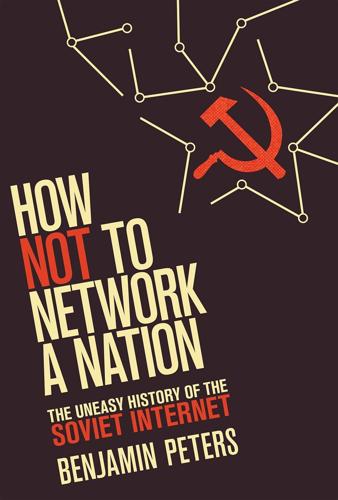
How Not to Network a Nation: The Uneasy History of the Soviet Internet (Information Policy)
by
Benjamin Peters
Published 2 Jun 2016
66 These anecdotes constitute what we might call revolts in miniature. They are an expression of private unrest—of local resistance to a society whose public institutions did not have to serve the public. A liberal economic analysis to these problems might describe the informal networks of competing private interest as variously productive or rent-seeking, depending on whether the activity at hand created or depleted economic resources. Varied critics of the Soviet economy have interpreted the collapse of the public interests of the state and the private interests of the market into the command economy to be a hallowing out of means for Soviet citizens to seek their own self-interest through formal mechanisms.67 Consequently, informal means, whether creating islands of penny capitalism or engaging in systematic corruption, are all that is available.68 The liberal economic critique accuses the public state of systematically smothering and driving underground private self-interest.
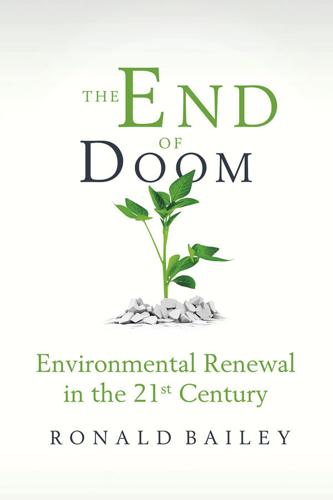
The End of Doom: Environmental Renewal in the Twenty-First Century
by
Ronald Bailey
Published 20 Jul 2015
“In a purely dialectical fashion, technological progress creates the very forces that eventually destroy it.” As Jonathan Adler notes, “Economic interests also have reason to adopt precautionary appeals insofar as such appeals enable these groups to erect barriers to competing technologies or firms, close markets, or otherwise use environmental regulations as a tool for rent-seeking.” Candlemakers, after all, cannot be expected to hail the invention of the electric lightbulb, nor hostlers the advent of automobiles, nor canal-boat owners the building of railways, nor coal miners the development of nuclear power. Applying the precautionary approach, candlemakers will urge rejection of the competing technology, citing the dangers of electric shock; hostlers, of car crashes; canal-boat owners, of train engine smoke; and miners, of the risks of radiation.
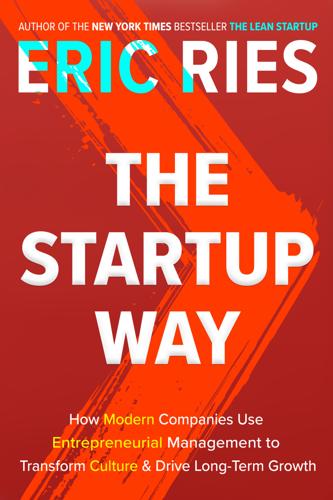
The Startup Way: Making Entrepreneurship a Fundamental Discipline of Every Enterprise
by
Eric Ries
Published 15 Mar 2017
Those are the levers we need to move to create not just innovative companies but an innovative culture. A lot of current pro-business policy has to do with profitability, but that’s only one aspect of a healthy economy. And not all profitability leads to increased dynamism in the economy: Think of the many rent-seeking behaviors that make it harder—not easier—for new companies to form. We hear a lot about “unicorn” companies, startups that grow into billion-dollar successes, or even hundreds of billions of dollars. But the truth is, these near-mythical success stories are not what create a continuously evolving system of opportunity.
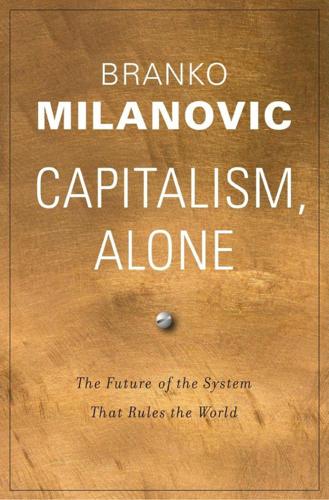
Capitalism, Alone: The Future of the System That Rules the World
by
Branko Milanovic
Published 23 Sep 2019
He finds that the “surplus income” (the share of monopoly profit in output value) increased in the United States from virtually 0 in 1986 to 22 percent in 2015 (table 7). On monopsony power, see Azar, Marinescu, and Steinbaum (2017). 15. See Branko Milanovic, “Bob Solow on Rents and Decoupling of Productivity and Wages,” Globalinequality blog, May 2, 2015, http://glineq.blogspot.com/2015/05/bob-solow-on-rents-and-decoupling-of.html. 16. The market power, or rent-seeking, explanation for the rising share of capital versus labor has been adduced by a number of economists, including by Angus Deaton in an interview with editors of the ProMarket blog on February 8, 2018: https://promarket.org/angus-deaton-discussed-driver-inequality-america-easier-rent-seekers-affect-policy-much-europe/. 17.
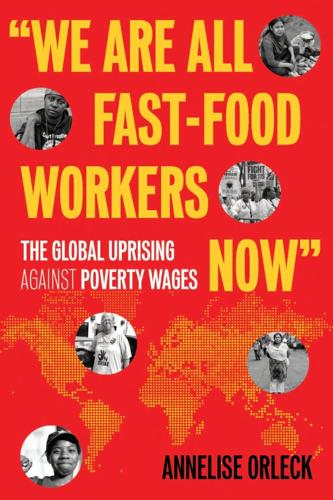
We Are All Fast-Food Workers Now: The Global Uprising Against Poverty Wages
by
Annelise Orleck
Published 27 Feb 2018
Michelle Venetucci Harvey, “The Farmworkers’ Journey: NAFTA, Agricultural Exceptionalism and California Farmworkers,” Spinning Spoons, February 16, 2012; Laura Carlsen, “Under NAFTA, Mexico Suffered and the United States Felt Its Pain,” New York Times, November 24, 2013. 4. Rocha, “Strawberry Fields and Undocumented Workers Forever?”; Miriam J. Wells, Strawberry Fields: Politics, Class, and Work in California Agriculture (Ithaca, NY: Cornell University Press, 1996); Julie Guthman, “Life Itself Under Contract: Rent-Seeking and Biopolitical Devolution Through Partnerships in California’s Strawberry Industry,” Journal of Peasant Studies 40, no. 1 (2017): 100–17, posted online October 28, 2016. 5. MICOP, 2016 Annual Report (December 2016), www.mixteco.org/2016/12/micops-2016-annual-report/. 6. Interview with Maricela Morales, Santa Barbara, CA, September 7, 2015.
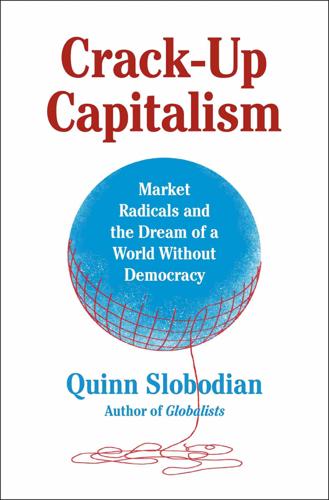
Crack-Up Capitalism: Market Radicals and the Dream of a World Without Democracy
by
Quinn Slobodian
Published 4 Apr 2023
Saskia Sassen, The Global City (Princeton, NJ: Princeton University Press, 1991). 80. Leon, “Global Cities.” 81. Owen Hatherley, “Renzo Piano’s Shard,” Artforum, Summer 2011, https://www.artforum.com/print/201106/renzo-piano-s-shard-28344. 82. Paul C. Cheshire and Gerard H. Dericks, “‘Trophy Architects’ and Design as Rent-Seeking: Quantifying Deadweight Losses in a Tightly Regulated Office Market,” Economica, no. 87 (2020): 1081. 83. Luna Glucksberg, “A View from the Top: Unpacking Capital Flows and Foreign Investment in Prime London,” City 20, no. 2 (2016): 251. 84. Glucksberg, “A View from the Top,” 246. 85.
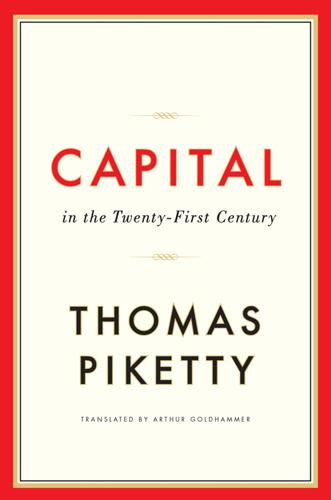
Capital in the Twenty-First Century
by
Thomas Piketty
Published 10 Mar 2014
What, then, gives us the vague sense that social inequality today is very different from social inequality in the age of Balzac and Austen? Is this just empty talk with no purchase on reality, or can we identify objective factors to explain why some people think that modern capital has become more “dynamic” and less “rent-seeking?” FIGURE 3.1. Capital in Britain, 1700–2010 National capital is worth about seven years of national income in Britain in 1700 (including four in agricultural land). Sources and series: see piketty.pse.ens.fr/capital21c. The Metamorphoses of Capital in Britain and France I will begin by looking at changes in the capital structure of Britain and France since the eighteenth century.
…
See also Estate tax Prost, Antoine, 591n18 Protectionism, 515–516, 523, 534 Proudhon, Pierre-Joseph, 580n7 Public debt, 114, 118, 540–570; World War I and, 106–107; public wealth and, 123–127, 127–129, 142, 153; reinforcement of private capital and, 129–131; profit from, 131–134; nineteenth vs. twentieth century, 132–133; Ricardian equivalence and, 134–135; reducing, 541–544; default on, 542–543; inflation and, 544–547; central banks and, 547–553; Cyprus crisis and, 553–556; euro and Eurozone and, 556–562, 650n32; government and capital accumulation and, 562–565; deficits debate and, 565–567, 653n47; climate change and, 567–569; transparency and, 569–570; interest rate on, 597–598n1, 598n7; mutualizing European, 650n31; slow growth and, 653n50 Public sector, organization of, 482–483 Public wealth/capital: defined, 46–49, 123; privatization and, 46–49, 123, 183–187; public debt and, 123–135, 142, 153, 541–544; financial and nonfinancial, 124; historical perspective on, 126–129; assets and, 135–139, 143, 541–542; desirable level of, 562–565 Purchasing power: parity in, 64–67, 586nn26,27,28; increase in, 86–90; inheritance and, 415–416 Qatar, 537 Qian, Nancy, 17, 634n50, 646n43 Quesnay, François, 603n26 Rajan, Raghuram G., 606n32, 608n12, 639n48, 640n53 Rancière, Jacques, 655n59 Rancière, Romain, 606n32 Rastignac’s dilemma, 238–242, 379, 407–409, 412, 497 Rate of interest, 52–53, 210, 584n15, 598n10 Rate of profit, 52, 227–230, 584n14 Rate of return on capital: inequality and, 1, 23, 25–27, 84; first fundamental law of capitalism and, 52–55; average long-run, 53; determination of, 199–212; pure, 201, 205–206, 208–209, 353–355; historical perspective on, 206–208; in twenty-first century, 208–209, 375; uses of capital and, 212–213; marginal productivity of capital and, 213–215; too much capital and, 215–217, 223, 227–230; capital’s comeback and, 232–233; growth rate and, 232–233, 351, 353–361, 364–366, 431, 571–572; time preference and stability of, 258–361; inheritance and, 377–378; inflation and, 452–455; pensions and, 488–489 Rate of return on land, 53–54 Rauh, Joshua, 607n41 Rawls, John, 480, 630n21, 631n22, 652n45 Reagan, Ronald, 42, 98, 309 Real estate: urban, 6, 197–198; as capital/assets, 48, 55, 122, 164, 179, 210, 598n11; return on, 53–54, 626n28; pricing of, 57–58, 144–145, 149–150, 171–173, 176, 187–188, 191; rental value of, 209; ownership of by centile, 260; size effects and, 454; taxes, 501, 517 Recession (2008–2009), 472–474, 553–554 “Reconstruction capitalism,” 397 Redemption fund proposal, 544, 559, 647n9, 649n27 Redistribution: inflation and, 133–134, 544–547; social state and, 479–481; of petroleum rents, 537–538; through immigration, 538–539; central banks and, 547–553; United States and, 638n33 Regional blocs, 61–64 Regressive taxation, 255, 355, 374, 495–497 Regulation: transparency and, 519; global tax on capital and, 534–536; of central banks, 548, 552–553, 557–558 Renault, Louis, 137 Renault Company, 137, 139 Rent control, 149, 153 Rentiers: society of, 264, 276–278, 293, 370, 372–373; fall of, 274, 369; basic arithmetic of, 410–411; petits, 418–421; as enemy of democracy, 422–424 Rent(s): land, 5–6, 39, 53–54, 56; capital and, 113, 115–116; meaning of, 422–424; on natural resources, 459, 537–539, 627n44 Rent-seeking, 115–116 Replacement incomes, 477–479, 602n9 Residence and taxation, 562 Residential capital, 48, 51–52 Retail service sector, 91 Retained earnings, 176–178 Retirement: pension funds and, 391–392, 478, 627n47; future of, 487–490, 633n47 Retirement, life-cycle theory and, 384, 391–392 Return on capital.

EuroTragedy: A Drama in Nine Acts
by
Ashoka Mody
Published 7 May 2018
Instead, the bill for rescuing MPS continued to increase. Perhaps the unelected technocrat Monti would implement structural reforms. But Monti barely left an impression. The ultimate great hope was Renzi. Perhaps Renzi would upend the old and corrupt political order, which he said was engaged merely in “rent-seeking.” Then Italy would make a truly new start. Renzi correctly identified Italy’s core problem to be its entrenched networks of patronage, which had long flourished beneath the cacophony of Italian politics. In the early and mid-1990s, the mani pulite (“clean hands”) judicial inquiries had exposed leading Italian politicians and weakened centralized corruption.220 However, corruption merely spread to regional and municipal governments, where it 386 e u r o t r a g e d y continued as a plague.
…
Münchrath, Jens, Yasmin Osman, and Christopher Cermak. 2014. “At Loggerheads: Man with an Iron Will.” Handelsblatt Global, December 17. Mundell, Robert. 1961. “A Theory of Optimum Currency Areas.” American Economic Review 51: 657–665. Murphy, Kevin, Andrei Shleifer, and Robert Vishny. 1993. “Why Is Rent-Seeking So Costly to Growth?” American Economic Review 83, no. 2: 409–414. Murphy, Richard. 1994. “Kohl Distances Himself from Party’s EU Reform Idea.” Reuters News, September 5. Murray, Michael. 2003. “Fund Managers Missed the Anglo Irish Boat.” Sunday Business Post, November 30. Murray Brown, John. 2009.
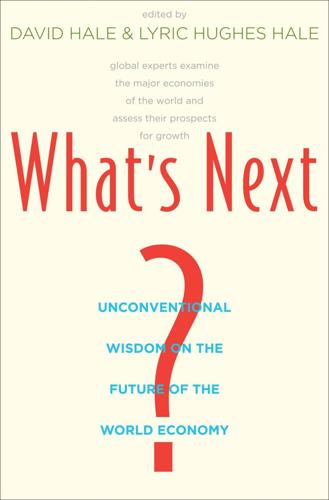
What's Next?: Unconventional Wisdom on the Future of the World Economy
by
David Hale
and
Lyric Hughes Hale
Published 23 May 2011
According to the trilateral agreement signed in 2008, a new constitution should be established in 2011 and would then be followed by fresh elections. Most observers agree that the ruling ZANU-PF party would be routed in anything resembling a free and fair election in Zimbabwe. This, along with a fear of losing control of patronage and rent-seeking activities, explains ZANU-PF’s reluctance to abide by the spirit of the unity agreement. Unless the Southern African Development Community (SADC) in general, and South African president Jacob Zuma in particular, are willing to apply real pressure to ZANU, there may be a prolonged period of political impasse.
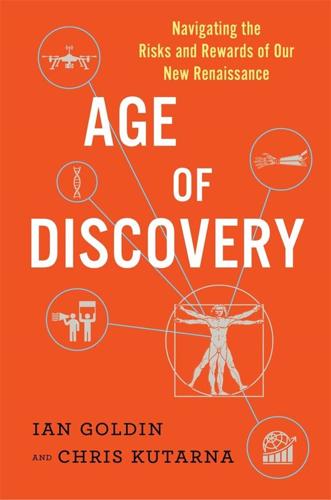
Age of Discovery: Navigating the Risks and Rewards of Our New Renaissance
by
Ian Goldin
and
Chris Kutarna
Published 23 May 2016
In China, more than one-third of all wealth is in the hands of the 1 percent.70 Corrupt officials, many now disgraced, have amassed private fortunes through their control of state assets and their authority to award licenses and contracts without independent oversight. Angola, blessed with vast natural resources, is essentially a kleptocracy whose leaders “live in an African version of St. Tropez,” as The Economist put it, while 90 percent of residents in the capital, Luanda, have no running water.71 The above are all examples of what economists call “rent seeking”—making money by taking wealth from others in society instead of creating it anew. But democratic institutions can also be captured and corrupted by influential elites, and made to serve their interests in ways that harm the broad economy. In the US, too, the top 1 percent hold more than one-third of all wealth.72 Legislatures have enormous power to transfer wealth up or down the social ladder: by expanding or shrinking welfare programs; by shifting the tax burden between rich and poor, between investors and wage earners, or between corporations and private citizens; through the pricing and sale of state assets and public goods like railroads, postal systems, oil patches and wireless spectrum; by deregulating or re-regulating industries; by making it harder or easier for persons or corporations to clear their debts through bankruptcy; by deciding whether monetary policy should target low inflation or full employment.
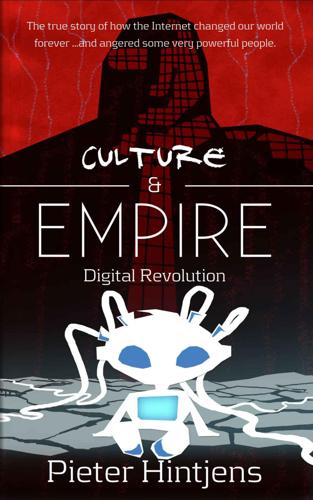
Culture & Empire: Digital Revolution
by
Pieter Hintjens
Published 11 Mar 2013
Levine, in "Against Intellectual Monopoly", write acidly: A realistic view of intellectual monopoly is that it is a disease rather than a cure. It arises not from a principled effort to increase innovation, but from an evil combination of medieval institutions -- guilds, royal licenses, trade restrictions -- and the rent-seeking behavior of would be monopolists seeking to fatten their purse at the expense of public prosperity. This cancer is attacking the most vital centers of our economy: metastasis is near and so it is time to face the intellectual monopoly threat squarely, and to take action. CSIRO's patents (Thank you, US Patent and Trademark Office!)
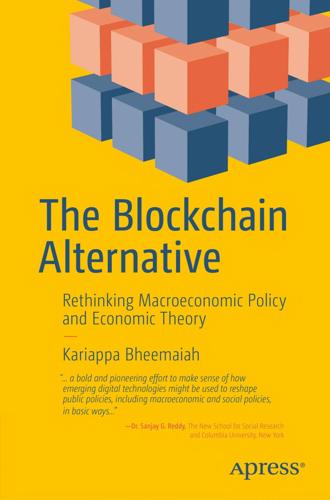
The Blockchain Alternative: Rethinking Macroeconomic Policy and Economic Theory
by
Kariappa Bheemaiah
Published 26 Feb 2017
The interest rate, in part, is attributed to the risk premium of lending money. But this interest rate value is also based on the immediate purchasing power creation ability of money. As money can immediately offer liquidity to the borrower, the borrower pays interest also, in part, for money’s liquidity benefits. The result is intense rent-seeking behavior by those who have the privilege of issuing privately created money. The Chicago Plan was a formulation to address these key issues of monetary economics. Following the Great Depression, American macroeconomists such as Henry Simons of the University of Chicago (hence Chicago Plan) and Irving Fisher of Yale University, proposed fundamental monetary reforms and called for the separation of monetary and credit functions of commercial banks.
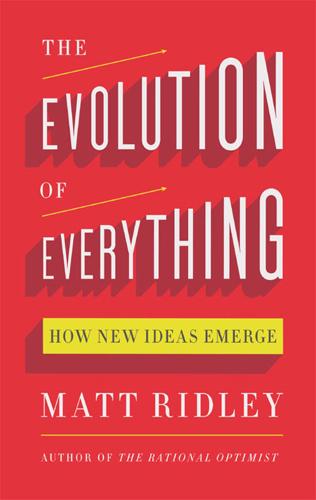
The Evolution of Everything: How New Ideas Emerge
by
Matt Ridley
Around them crowd thousands more whose income is privately earned in fees, but to a startling degree comes straight from the lavish coffers of the state: bankers, lawyers, architects, environmentalists and others. The affairs of Parliament, I am (not entirely) surprised to discover, are dominated by rent-seeking professions demanding that Leviathan sluices money towards them, whether to administer regulations, inquire into trends, judge cases, or build power stations. Businessmen are the worst. It is a myth that they love the evolutionary, free market; in practice they seek privilege and monopoly at the drop of a legislative hat.
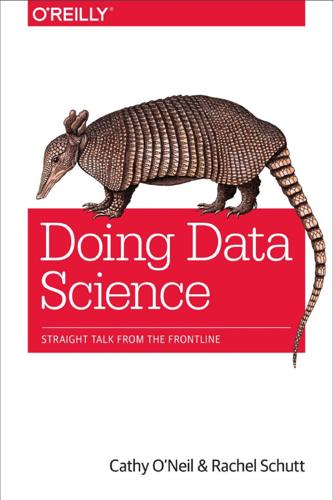
Doing Data Science: Straight Talk From the Frontline
by
Cathy O'Neil
and
Rachel Schutt
Published 8 Oct 2013
In the book that introduced the much beloved (or dreaded) epsilons and deltas into real analysis, the great mathematician Augustin-Louis Cauchy blamed statisticians for the French Revolution: “Let us cultivate the mathematical sciences with ardor, without wanting to extend them beyond their domain; and let us not imagine that one can attack history with formulas, nor give sanction to morality through theories of algebra or the integral calculus.” These narratives fit nicely into the celebration of disruption so central to Silicon Valley libertarianism, Schumpeterian capitalism, and certain variants of tech journalism. However powerful in extirpating rent-seeking forms of political analysis and other disciplines, the dichotomy mistakes utterly the real skills and knowledge that appear often to give the data sciences the traction they have. The preceding chapters—dedicated to the means for cultivating the diverse capacities of the data scientist—make mincemeat of any facile dichotomy of the data expert and the traditional expert.
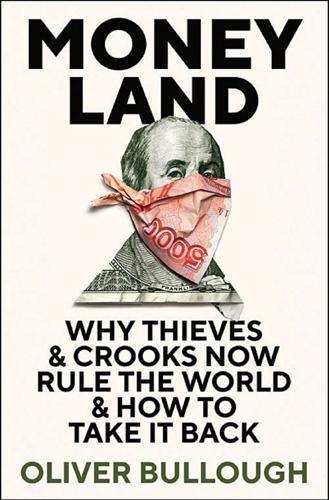
Moneyland: Why Thieves and Crooks Now Rule the World and How to Take It Back
by
Oliver Bullough
Published 5 Sep 2018
They’re offshore bandits. ‘The confusion surrounding the term corruption stems from modern societies that have come to take political legitimacy for granted and liberally transpose the term to societies based on wholly different objectives and structures,’ the paper concludes. ‘When analyzed in the light of rent-seeking dictatorship, “corruption” is systemic rather than coincidental.’ And increasingly, the system is escaping its borders. Why shouldn’t it? After all, its papers are all in order. 9 THE MAN WHO SELLS PASSPORTS Deep inside the Savoy Hotel in central London is a large room with white and gold walls.
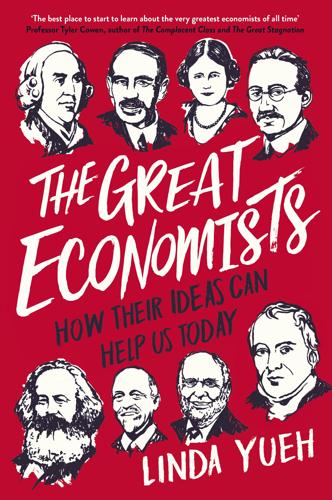
The Great Economists: How Their Ideas Can Help Us Today
by
Linda Yueh
Published 15 Mar 2018
So, the farmers do not earn more if they have to work harder to produce a bushel of corn. Thus, only the landowners gain from higher land prices owing to scarcity. They have not exerted any effort to earn the higher rents charged to farmers. This is in line with his view of landowners, of course, that they were rent-seekers. Rent-seeking is one of the most widely used economic concepts today, for example, to explain why political corruption persists in some oil-rich countries, since there is an incentive to seek to hoard the ‘rents’ from selling oil and not share it with the country as a whole. Ricardo’s model of international trade David Ricardo’s approach to international trade was rooted in his background, while his interest in economics was stimulated by The Wealth of Nations, so it is unsurprising that he further developed Adam Smith’s approach.
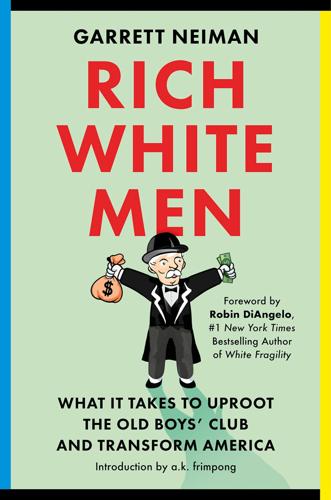
Rich White Men: What It Takes to Uproot the Old Boys' Club and Transform America
by
Garrett Neiman
Published 19 Jun 2023
Compared with companies that face more competition, monopolies produce less and charge more. At a societal level, that means a smaller economic pie coupled with higher prices, which reduces what consumers can afford to buy. As monopolistic firms gain power, they dedicate a growing share of their attention to rent-seeking activities, like tax evasion. While the IRS has 15,000 staffers, large corporations employ a combined 250,000 accountants.12 These armies of financial wizards enable companies to manipulate their tax bills. For example, in a recent year, Google claimed that it made $23 billion in Bermuda—which doesn’t have a corporate income tax—and nothing in the United States, even though most of its revenue comes from American consumers.13 A principal reason why corporate profits are at a seventy-year high is that corporations are covering a smaller share of the federal tax bill than they have in decades.
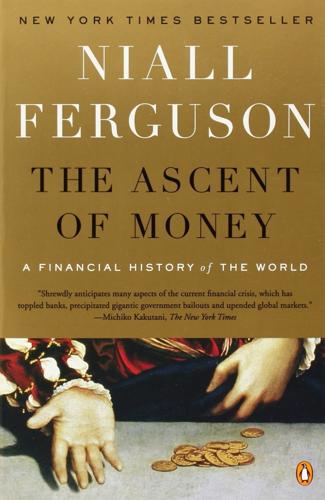
The Ascent of Money: A Financial History of the World
by
Niall Ferguson
Published 13 Nov 2007
In England (the country for which we have the best price data) the cost of living increased by a factor of seven in the same period; not a high rate of inflation these days (on average around 2 per cent per year), but a revolutionary increase in the price of bread by medieval standards. Within Spain, the abundance of silver also acted as a ‘resource curse’, like the abundant oil of Arabia, Nigeria, Persia, Russia and Venezuela in our own time, removing the incentives for more productive economic activity, while at the same time strengthening rent-seeking autocrats at the expense of representative assemblies (in Spain’s case the Cortes).17 What the Spaniards had failed to understand is that the value of precious metal is not absolute. Money is worth only what someone else is willing to give you for it. An increase in its supply will not make a society richer, though it may enrich the government that monopolizes the production of money.
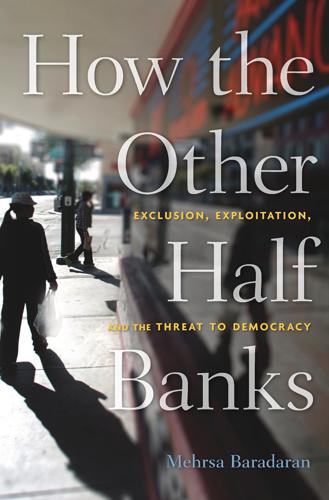
How the Other Half Banks: Exclusion, Exploitation, and the Threat to Democracy
by
Mehrsa Baradaran
Published 5 Oct 2015
A majority of states in 1895 had no mention of branches in their laws. In some states, silence has been taken as permitting and in others, as forbidding branches. 42. Richard S. Carnell, Jonathan R. Macey, and Geoffrey P. Miller, The Law of Financial Institutions, 5th ed. (New York: Aspen, 2013), 13. 43. Calomiris and Haber see this as Populist rent-seeking. They claim that because Populists controlled the legislatures, they created a banking system that was fragile by design but that served their needs. Calomiris and Haber, Fragile by Design, 459. 44. Starting in the deregulatory era in the United States, some revisionist scholars claimed that the era was not as bad as previously thought, but these claims have been largely rebutted.

Brazillionaires: The Godfathers of Modern Brazil
by
Alex Cuadros
Published 1 Jun 2016
Lemann said once that he hopes to build companies of “lasting greatness.” He said he wants his model of corporate management to outlive him. To put this another way, he wants to build an empire and to leave his mark on history. But in the end, his corporate alchemy struck me as a sophisticated form of rent seeking: claiming a piece of the economic pie rather than making the pie larger. In the long run, this may prove counterproductive even for him. Take Lemann’s efficiency to its logical end, and few consumers will be able to afford his beer. Henry Ford had a similar insight in 1914, when he doubled wages so that his workers could afford a Model T.

Geek Heresy: Rescuing Social Change From the Cult of Technology
by
Kentaro Toyama
Published 25 May 2015
National newspapers quoted the prime minister proclaiming, “This is [the] first time in the world. History has been created today.”9 Evolving Mass Values India’s changes recapitulate elements of developed-world history. Like India today, the United States was buoyed by an entrepreneurial spirit. A battle against America’s rent-seeking political corruption was fought effectively in the nineteenth century.10 Consumer culture, now burgeoning in India, was all but invented in the United States circa 1920. And Indian pride in their Mars orbiter echoes American sentiment toward Apollo 11, the world’s first moon landing. Despite huge differences in culture and history, there is no denying the commonalities among societies that experience socioeconomic growth.
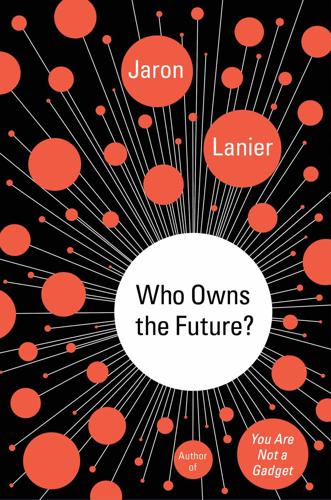
Who Owns the Future?
by
Jaron Lanier
Published 6 May 2013
There doesn’t have to be direct manipulation, but instead an automated, sterile “unintentional manipulation” that seems external to human agency and therefore is above the law. Owning a top server on a network is like collecting rent from the network, but that doesn’t mean one gets there through “rent seeking.” Traditionally, market positions are set to compete in a pseudo-Darwinian way. Society benefits precisely from the fact that more possibilities will be tested and explored than could ever have been considered from the perspective of a single player, even one with a dominant information perspective.

The Future of Technology
by
Tom Standage
Published 31 Aug 2005
Some in Silicon Valley now liken the climate to that of the late 1970s, when government and military contractors employed more than 20% of the region’s workforce. Will the it industry ever become as intertwined with government as, say, the car or media sectors? Nobody knows; but if it does, says Google’s Eric Schmidt, high-tech will lose its innovative spark and, just like other sectors, turn to rent-seeking. 35 THE FUTURE OF TECHNOLOGY Déjà vu all over again If history is any guide, the IT industry’s future will be about services and customer power ou would expect eric schmidt, one of Silicon Valley’s leading lights, to have an oversized inner geek. But these days, he sounds more like a closet historian.
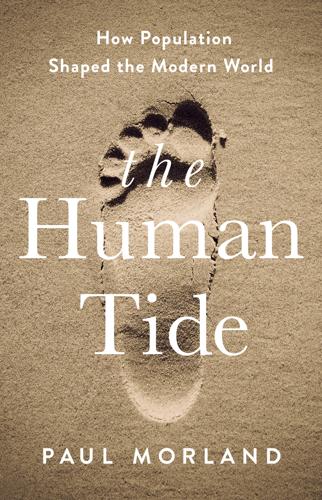
The Human Tide: How Population Shaped the Modern World
by
Paul Morland
Published 10 Jan 2019
According to the Academic Ranking of World Universities, four Israeli institutions make it into the top 200 while only one Arab institution does so.39 Data from 1987 suggested that the production of ‘frequently cited’ academic papers in Egypt was two-thousandths of the level in Israel and even in Kuwait, with its oil wealth, frequently cited papers were at less than one-seventieth of the Israeli level.40 As ever, the cause of the region’s ills are not demographic alone. Oil has turned out to be a curse in many places where democratic institutions are not already fully embedded, cultivating a rent-seeking rather than an entrepreneurial culture. Where the state controls a great source of relatively easily accessed wealth such as oil, the most lucrative way of enriching oneself is to get a position as close to the trough as possible rather than setting up a business or offering a service of real value.

Dopesick: Dealers, Doctors and the Drug Company That Addicted America
by
Beth Macy
Published 4 Mar 2019
He wondered whether drug cartels were the economy’s new invisible hand—a modern-day Adam Smith creeping around America’s suburbs, cities, and small towns, proffering stamped bags of dope. The economist had assumed the free-market economy would operate efficiently as long as everyone was able to work for his or her own self-interest, but he had not foreseen the elevation of rent-seeking behavior: the outsized greed of pharmaceutical companies and factory-closing CEOs, and the creation of a class of people who were unable to work. * In 2017, two decades after OxyContin erupted in Lee County, Virginia’s Board of Medicine ordered that, to prevent doctor-shopping, all doctors were to check the drug-monitoring system every time they issued a prescription.
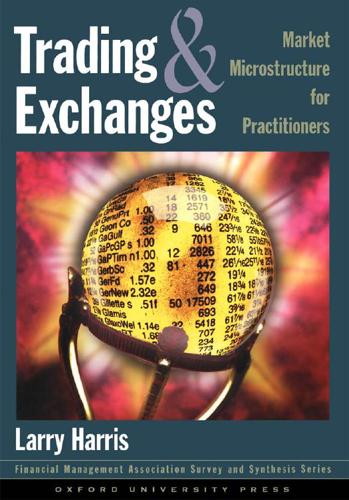
Trading and Exchanges: Market Microstructure for Practitioners
by
Larry Harris
Published 2 Jan 2003
These securities have not been very successful because portfolio managers apparently will not buy insurance when they can easily observe its high cost. 28.4 THE POLITICS OF REGULATORY INTERVENTION The clamor for regulatory responses to crashes undoubtedly influences the policies that regulators ultimately adopt. When regulators and traders understand the political aspects of regulation well, better regulations probably result. This section therefore briefly discusses the political economy of regulation. We consider two models of regulation. The first involves regulatory risk, and the second involves rent seeking. The first model helps us understand why regulators may regulate even when their regulations will produce little or no economic value. The second model helps us understand how regulated people and institutions can use the regulatory process for their private benefit. We illustrate these discussions with two regulations that came out of the 1987 stock market crash: New York Stock Exchange Rules 80A and 80B. 28.4.1 Regulatory Risk Following the October 1987 stock market crash, the markets adopted a coordinated trading halt rule that was almost meaningless.
…
No such mandate for extreme change followed the 1987 crash. 28.4.2 Regulatory Capture The other circuit breaker adopted by the New York Stock Exchange following the 1987 stock market crash was the Rule 80A collar on index arbitrage program trading. Although a similar analysis of regulatory risks may explain why the Exchange adopted this rule, an analysis of rent-seeking behavior (self-interest) is more insightful. Arbitrageurs compete with specialists to supply liquidity. Both traders move liquidity between buyers and sellers who are unable or unwilling to trade with each other. Arbitrageurs construct hedge portfolios to move liquidity from one market to another at one point in time.
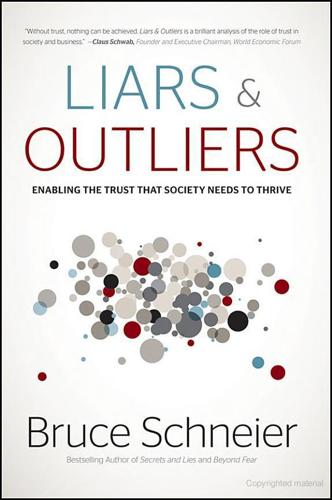
Liars and Outliers: How Security Holds Society Together
by
Bruce Schneier
Published 14 Feb 2012
And the healthcare industry got a law passed limiting its liability for care improperly delayed or denied. In a sense, what corporations are doing here is reversing the principal–agent relationship. They're deliberately manipulating institutional pressures so they can directly benefit from them. In economics, changing laws to suit your desires without adding any value is known as rent-seeking. One way to manipulate laws is through licensing requirements. Over the past several years, there have been debates in several states about licensing interior designers. It's either a necessary measure to keep charlatans out of the busi-ness, or an onerous, pro-cartel, anti-competitive system.
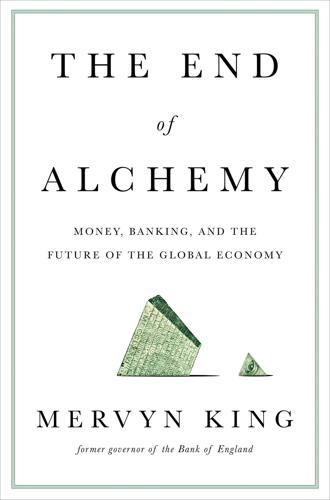
The End of Alchemy: Money, Banking and the Future of the Global Economy
by
Mervyn King
Published 3 Mar 2016
Depositors and others who lend money to banks believe that they are in effect lending to the government.37 The belief that when in trouble banks will be bailed out by the state because they are too important to fail leads to an implicit subsidy, which means a larger banking system than is justified by the underlying economics. Second, many of the examples of high personal remuneration, especially in the form of bonuses, in the financial sector reflect not high productivity but what economists call rent-seeking behaviour. In other words, the remuneration is far higher than is necessary to persuade people to work in the industry. Financial markets are places where delusion and greed find common cause. Many of the transactions in complex financial instruments are zero-sum – a clever trader makes money out of a less clever one.
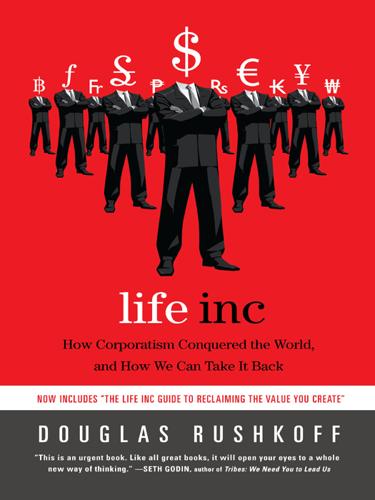
Life Inc.: How the World Became a Corporation and How to Take It Back
by
Douglas Rushkoff
Published 1 Jun 2009
Carlos and Stephen Nicholas, “Theory and History: Seventeeth Century Joint-Stock Chartered Trading Companies,” The Journal of Economic History 56.4 (1996): 916-24. S.R.H. Jones and Simon P. Ville, “Theory and Evidence: Understanding Chartered Trading Companies,” The Journal of Economic History 56.4 (1996): 925-26. S.R.H. Jones and Simon P. Ville, “Efficient Transactors or Rent-Seeking Monopolists? The Rationale for Early Chartered Trading Companies,” The Journal of Economic History 56.4 (1996): 898-915. Shaw Livermore, “Unlimited Liability in Early American Companies,” The Journal of Political Economy 43.5 (1935): 674-87. Janice E. Thomson, Mercenaries, Pirates, and Sovereigns: State-Building and Extraterritorial Violence in Early Modern Europe (Princeton, N.J.: Princeton University Press, 1994). 8 “The state ought to rejoice” John Brathwaite and Peter Drahos, Global Business Regulation (New York: Cambridge University Press, 2000), 445. 12 “The class of citizens who provide” James Madison, Letters and Other Writings of James Madison (Philadelphia: J.
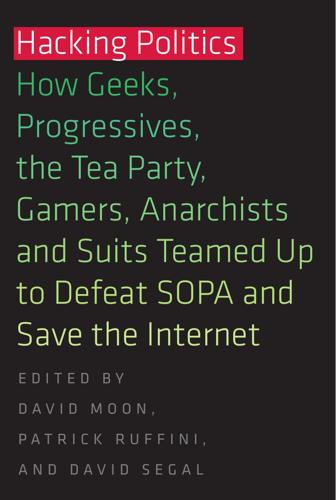
Hacking Politics: How Geeks, Progressives, the Tea Party, Gamers, Anarchists and Suits Teamed Up to Defeat SOPA and Save the Internet
by
David Moon
,
Patrick Ruffini
,
David Segal
,
Aaron Swartz
,
Lawrence Lessig
,
Cory Doctorow
,
Zoe Lofgren
,
Jamie Laurie
,
Ron Paul
,
Mike Masnick
,
Kim Dotcom
,
Tiffiniy Cheng
,
Alexis Ohanian
,
Nicole Powers
and
Josh Levy
Published 30 Apr 2013
There are sharp, important, ideological divides about the role of the state in the economy, the need for a social safety net, and the like. But there are important points of solidarity that should not be obscured by party stripe or reductionist ideological labels: nobody likes corporate welfare (as the left would call it) or rent-seeking (as it’s named by the right) unless one is among those insiders directly benefitting from said largess. The left and right came together to fight against the bank bailouts and to audit the Federal Reserve. There’s a substantial antiwar, pro-civil liberties flank that identifies as conservative/libertarian.
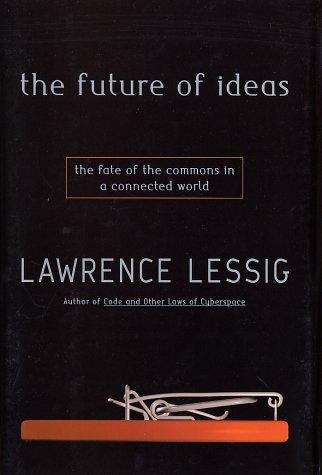
The Future of Ideas: The Fate of the Commons in a Connected World
by
Lawrence Lessig
Published 14 Jul 2001
Coase, “The Federal Communications Commission,” Journal of Law & Economics 2 (1959): 1, 14. 16 Hazlett has been prolific in advancing this argument. See, e.g., Hazlett and Sosa, “Chilling the Internet? Lessons from FCC Regulation of Radio Broadcasting,” Michigan Telecommunications & Technology Law Review 4 (1997-98): 35; Hazlett, “Physical Scarcity, Rent Seeking, and the First Amendment,” Columbia Law Review 97 (1997): 905; Hazlett, “Assigning Property Rights to Radio Spectrum Users: Why Did FCC License Auctions Take 67 Years?,” Journal of Law & Economics 41 (1998): 529; Hazlett, “Spectrum Flash Dance: Eli Noam's Proposal for 'Open Access' to Radio Waves,” Journal of Law & Economics 41 (1998): 805; Hazlett and Sosa, “Was the Fairness Doctrine a 'Chilling Effect'?

Virtual Competition
by
Ariel Ezrachi
and
Maurice E. Stucke
Published 30 Nov 2016
Other concerns over price regulation involve incentives and regulatory capture. Economic regulation attracts special interest groups to lobby the government for regulatory measures that benefit them to the detriment of society overall. If the government algorithm sets (or regulates) price levels, 216 Intervention then rent-seeking behav ior can impose additional social costs. For example, the U.S. Federal Energy Regulatory Commission’s merger review policies were criticized for relying on data supplied by the regulated entities, rather than conducting its own independent fact gathering and analysis of market definition.42 The risk that sector regulators, even the most dedicated ones, may fail to understand and predict market dynamics, is real.

Londongrad: From Russia With Cash; The Inside Story of the Oligarchs
by
Mark Hollingsworth
and
Stewart Lansley
Published 22 Jul 2009
White, ‘The Rise of the Russian Business Elite’, Communist and Post-Communist Studies, 38 (2005), p. 298. 29Quoted in A. Osborn, ‘The World’s Richest Russian Is Sued for $3 billion in London’, Independent on Sunday, 25 February 2007. 30Interview with Financial Times, 13 July 2007. 31P. Boone and D. Rodionov, ‘Rent Seeking in Russia and the CIS’, Brunswick UBS, Warburg, Moscow, 2002. 32Naomi Klein, The Shock Doctrine: The Rise of Disaster Capitalism, Allen Lane, 2007, p. 249. 33Interviewed in Counterpunch, 27 February 2004. 34‘Question Time’, BBC Television, 7 June 2007. 35M. E. de Boyrie, S. J. Pak and J.

Who Owns England?: How We Lost Our Green and Pleasant Land, and How to Take It Back
by
Guy Shrubsole
Published 1 May 2019
Renting out land, after all, requires little effort on the part of the landowner. As historian M.L. Bush argues, throughout its history the English aristocracy has remained ‘rigidly divorced … from direct production’ and ‘preferred the rentier role’ as a means of getting filthy rich without getting their hands dirty. It’s this combination of inherited wealth and rent-seeking indigence that has drawn down much scorn upon the aristocracy in previous eras. ‘The rent of land is naturally a monopoly price,’ pointed out the classical free-market economist Adam Smith. ‘It is not at all proportioned to what the landlord may have laid out upon the improvement of the land … but to what the [tenant] can afford to give.’
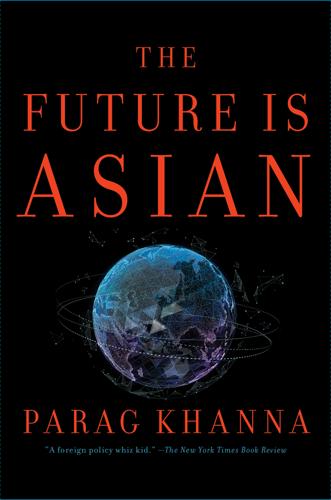
The Future Is Asian
by
Parag Khanna
Published 5 Feb 2019
In the Philippines, officials now speak not just of public-private partnerships (PPPs) but add a fourth P: public-private partnerships for the people. The term Asian values used to imply deference to authority by a condescending government. But since the 1980s, Asians have demonstrated that even entrenched elites can be confronted and ousted once the population is sufficiently fed up with their rent-seeking profligacy. Asians have traded in their infatuation with the gilded class for single-minded demands for quality governance. Becoming more liberal and democratic does not mean that they will fail to toss out ineffective elected leaders in favor of technocratic doers. Thailand’s military junta, which took power in 2014, has found strong support within a highly liberal society for its management of the country—for the time being.
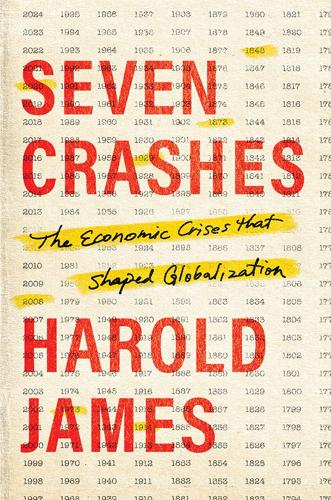
Seven Crashes: The Economic Crises That Shaped Globalization
by
Harold James
Published 15 Jan 2023
Mario Enrique Simonsen, Brazil’s finance minister, argued that the IMF should not attempt to give “judgments, analyses and forecasts” to the private sector.48 Even where there was no large-scale borrowing, there was a change in attitude and orientation. Younger Indian economists (most prominently Jagdish Bhagwati) developed a criticism of the rent-seeking behavior caused by lobby groups and special interests who could profit from restrictions on international trade, but there was not at that time a political momentum sufficient to overcome the accumulated might of the beneficiaries of the license or regulation raj.49 By the early 1990s, Finance Minister Manmohan Singh was asking, “What does South Korea have that India doesn’t?”
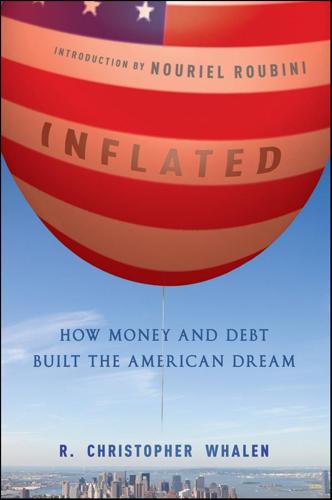
Inflated: How Money and Debt Built the American Dream
by
R. Christopher Whalen
Published 7 Dec 2010
Indeed, in the last 30 years there has been a large increase in income and wealth inequality in advanced economies. This rise is due to many factors: winner-take-all effects of an information society; trade integration of China, India, and other emerging markets in the global economy; knowledge and skill-biased technological innovation; rise in finance and increased rent-seeking and oligopoly in financial markets. This increase in inequality led to a “keeping up with the Joneses effect”: households in the United States and Europe could not maintain their living standards and spending and lifestyle goals as wages and labor incomes rose less than productivity, with the share of income going to capital and to the wealthy rising.
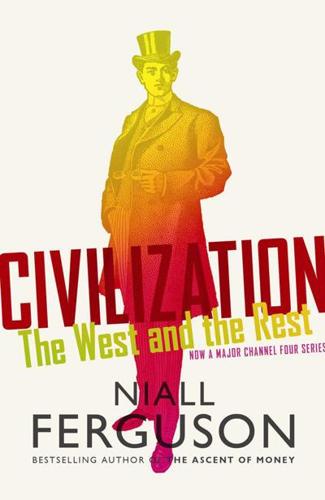
Civilization: The West and the Rest
by
Niall Ferguson
Published 28 Feb 2011
The reason North America’s ex-colonies did so much better than South America’s was because British settlers established a completely different system of property rights and political representation in the North from those built by Spaniards and Portuguese in the South. (The North was an ‘open access order’, rather than a closed one run in the interests of rent-seeking, exclusive elites.)31 European empires were able to penetrate Africa not just because they had the Maxim gun; they also devised vaccines against tropical diseases to which Africans were just as vulnerable. In the same way, the earlier industrialization of the West reflected institutional advantages: the possibility of a mass consumer society existed in the British Isles well before the advent and spread of steam power or the factory system.
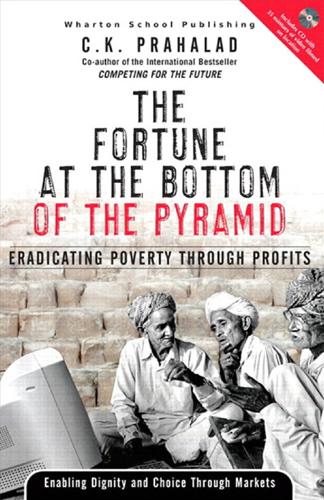
The fortune at the bottom of the pyramid
by
C. K. Prahalad
Published 15 Jan 2005
Even though intangible in the short term, the self-confidence created by the professional treatment is changing the way farmers conduct themselves. Sanchalaks and even a commission agent noted this change in farmer attitudes. ITC Gains ■ Disintermediation savings. The commissions paid to the agents were not excessive, but the true cost of intermediation, including the rent seeking, was between 2.5 percent and 3 percent of procurement costs. A 0.5 percent commission to the sanchalak has replaced this. ■ Freight costs. Direct reimbursement of transport costs to the farmer is estimated to be half of what ITC used to pay the commission agents for transport to their factory
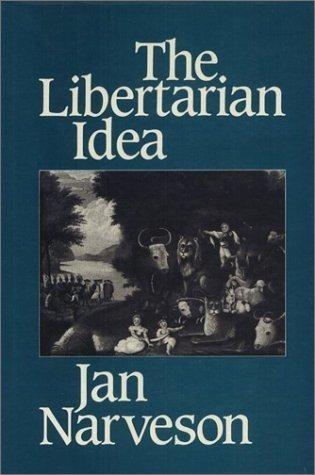
Libertarian Idea
by
Jan Narveson
Published 15 Dec 1988
Speaking of the “pre-market bargain,” he argues, “it is hard to believe that individuals will reach a meaningful agreement, even on the savings made possible by taking advantage of economies of scale in the provision of protection. Because of what the future holds, once the property rights scheme is in place, 193 the pre-market bargain is likely to be superseded almost immediately by strategic manipulation and rent-seeking behavior. Let me be blunt. The point of the bargain is to distribute and make possible gains associated with an efficient provision of protection. The net effect, however, of the dynamic mechanism and incentives put in place is to promote inefficiency and to undermine the terms of the original agreement.”8 Moreover, “To say that the terms of rational political association are specified as the outcome of rational bargaining is not to say that all political decisions are to be resolved by bargaining.

An Empire of Wealth: Rise of American Economy Power 1607-2000
by
John Steele Gordon
Published 12 Oct 2009
The economic effects of what Charles Warren, author of the classic work The Supreme Court in United States History, called the “emancipation Proclamation of American Commerce,” were immediate. Fares from New Haven to New York fell by 40 percent thanks to competition, and the number of steamboats operating in New York waters jumped in less than two years from six to forty-three. But the long-term effects were even more profound. States stopped granting monopolies of any sort to rent-seeking influential citizens, as all of them were now presumptively unconstitutional. Other barriers to interstate commerce, erected for parochial benefit, fell as well. Thus, thanks to Gibbons v. Ogden, the United States became the world’s largest truly common market, just as the power of steam to move goods cheaply over long distances—a power merely hinted at by the steamboat—was about to grow exponentially.
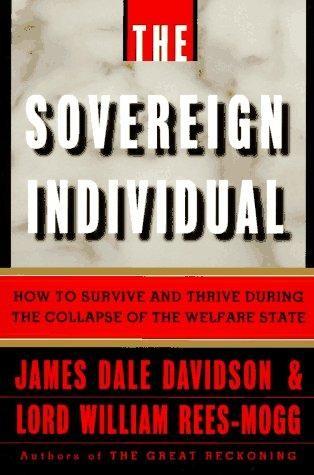
The Sovereign Individual: How to Survive and Thrive During the Collapse of the Welfare State
by
James Dale Davidson
and
William Rees-Mogg
Published 3 Feb 1997
William Pfaf{ The Wrath ofNations: Civilization and the Furies ofNationalism (New York: Simon & Schuster, ~993), p.17. 2. William H. McNeill, "Reasserting the Polyethnic Norm," in John Hutchinson and Anthony D. Smith, eds., Nationalism (Oxford: Oxford University Press, 1994), p.300. 3. Michael Billig, Banal Nationalism (London: Sage Publications, 1995), p.16. 4. See Gordon Tullock, Rent-Seeking (Aldersehot Harts, England: E. Elgar, 1993). 5. John B. Morrall, Political Thought in Medieval Times (New York: Harper, 1958), p. 48. 6. For example, see the facade of the cathedral at Angoul&me, France. 7. See Karen A. Rasler and William R. Thompson, War and State Making: The Shaping of the Global Powers.

The Cigarette: A Political History
by
Sarah Milov
Published 1 Oct 2019
McConnell especially discusses the way in which agricultural interest groups and the USDA maintained a high-level integration. Marver Bernstein’s thesis of the “life cycle” of regulatory agencies was particularly influential to economists’ understanding of “captive agencies” as promoting economic inefficiencies through the rent-seeking behavior of regulated industries. See Marver Bernstein, Regulating Business by Independent Commission (Princeton: Princeton University Press, 1955). For the right-wing version of the capture thesis, see George J. Stigler, “The Theory of Economic Regulation,” Bell Journal of Economics and Management Science 2, No. 1 (1971): 3–21; Richard A.
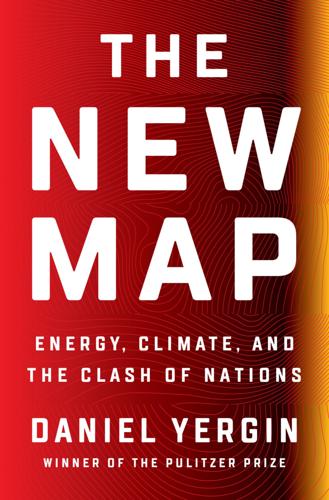
The New Map: Energy, Climate, and the Clash of Nations
by
Daniel Yergin
Published 14 Sep 2020
They may well have to live with periods of lower revenues, which will mean austerity and lower economic growth, with greater risk of turmoil and political instability. This emphasizes the need for these countries to address their over-reliance on oil. The overweening scale of the domestic oil business crowds out entrepreneurship and other sectors in many oil-exporting countries; it can promote rent-seeking and corruption. It also overvalues the exchange rate, hurting non-oil businesses. In the future, even with a rebound in prices, countries will need to manage oil revenues more prudently, with an eye on the longer term. That means more restrained budgeting and building up a sovereign wealth fund, which can invest outside the country and develop non-oil streams of revenues, helping to diversify the economy and hedge against lower oil and gas prices.
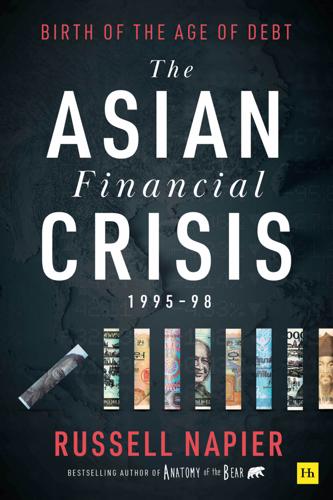
The Asian Financial Crisis 1995–98: Birth of the Age of Debt
by
Russell Napier
Published 19 Jul 2021
The same foreign investors who not just tolerated but endorsed such behaviour in the economic boom, labelled it as crony capitalism in the economic bust. This was a very different form of capitalism where rule by one person was more important than rule of law, but foreign investors treated it as if it entailed the same risks. Foreign capital was at best amoral and perhaps immoral as it sought to ride on the coattails of such rent-seeking activity and hypocritical in condemning it when things went wrong. How the Suharto family business interests were to be dealt with in the economic crisis severely complicated the bailout plan proposed by the IMF. The rent extracting was ramping up in late 1996 but nobody cared – until they did.
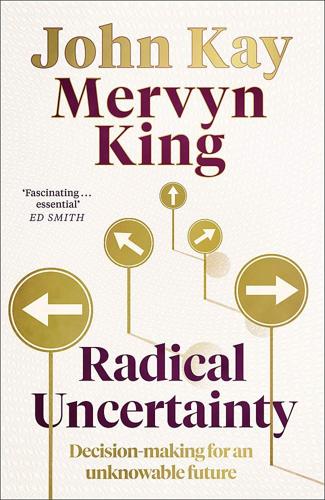
Radical Uncertainty: Decision-Making for an Unknowable Future
by
Mervyn King
and
John Kay
Published 5 Mar 2020
The most common profile of the successful entrepreneur today is the individual who draws on his or her past experience in a larger organisation, and works from inception with a team of like-minded individuals. And such individuals can contribute to society only in a supportive social context. There is no shortage of entrepreneurial talent in Nigeria, but too much of it is directed to opportunistic scams and rent seeking. Barack Obama was widely criticised for his Roanoke campaign speech of 2012 in which he said ‘if you’ve been successful, you didn’t get there on your own’. 13 But if you look further at what he said you see that he got it exactly right: ‘when we succeed, we succeed because of our individual initiative, but also because we do things together’. 14 Perhaps the most remarkable of all lone geniuses was Srinivasa Ramanujan, the destitute Indian mathematician who failed his college exams, learnt mathematics from a public library book, impressed an Indian revenue official enough to be offered a job, and whose letter to G.
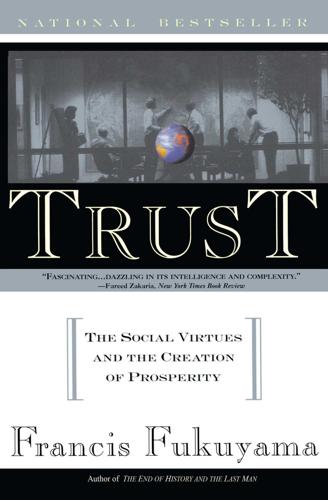
Trust: The Social Virtue and the Creation of Prosperity
by
Francis Fukuyama
Published 1 Jan 1995
Contemporary cartels include not just oil producers and suppliers of gold and diamonds but professional associations like the American Medical Association or the National Educational Association, which set standards for entry into the medical and teaching professions, respectively, or labor unions that regulate the entry of new workers into the labor market.11 In a developed democracy like the United States, virtually all significant sectors of society are represented in the political process through well-organized interest groups. The latter seek to advance or protect their positions not merely through economic activity but through rent seeking or by exercising influence over the political process. The countries of medieval and early modern Europe were in many respects highly communitarian societies, with a large number of overlapping sources of communal authority—princely, ecclesiastical, seigneurial, and local—constraining the behavior of individuals.
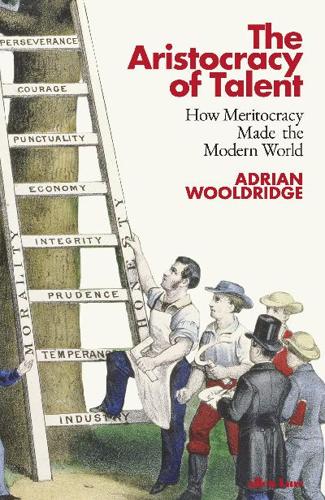
The Aristocracy of Talent: How Meritocracy Made the Modern World
by
Adrian Wooldridge
Published 2 Jun 2021
They can cite the authority of William Gladstone, who wrote a letter to Lord John Russell in January 1845 predicting that a competitive examination which emphasized classics and mathematics would favour the aristocracy: I have a strong impression that the aristocracy of this country are even superior in natural gifts, on the average, to the mass: but it is plain that with their acquired advantages, their insensible education, irrespective of book-learning, they have an immense superiority.50 Both Gladstone and his latter-day echo chamber miss the point: the most important test of the new system was not whether it promoted social mobility but whether it changed the nature of the state. The old regime was essentially a rent-seeking regime: people saw civil service positions as rents to be enjoyed rather than duties to perform. The new regime was about problem-solving: people held their positions only in so far as they could advance the state’s interests rather than line their own pockets. These examinations forced the old upper class to reform itself from within: effort that once went into lobbying politicians for baubles now went into lobbying schools and universities to improve their performance and urging children to keep their nose to the grindstone.
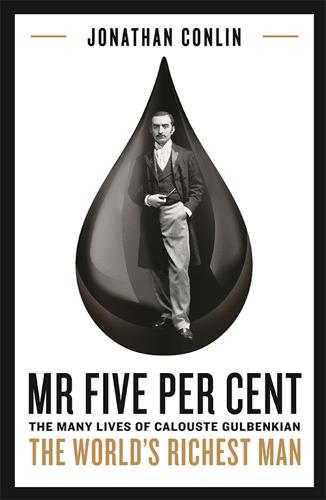
Mr Five Per Cent: The Many Lives of Calouste Gulbenkian, the World's Richest Man
by
Jonathan Conlin
Published 3 Jan 2019
See also Aram Turabian to CSG, 10 June 1928. PRS00318. 6. Balances as at 31 December 1932. LDN02750. 7. Calculation based on Mikdashi’s figures. Zuhayr Mikdashi, A Financial Analysis of Middle Eastern Oil Concessions: 1901–1965 (New York: Frederick A. Praeger, 1966), App. 2, Table 34. 8. For rent-seeking by Nuri al-Said and ‘Abd al-Muhsin al-Sa’dun, see Peter Sluglett, Britain in Iraq: Contriving King and Country (London: I. B. Tauris, 2007), p. 258, note 60. 9. Cited in NSG, TPC memo, 3 March 1928. LDN02938. 10. When the Iraqi prime minister ‘Abd al-Muhsin al-Sa’dun visited London in 1923 he wrote to Gulbenkian, but this was probably just a courtesy call.
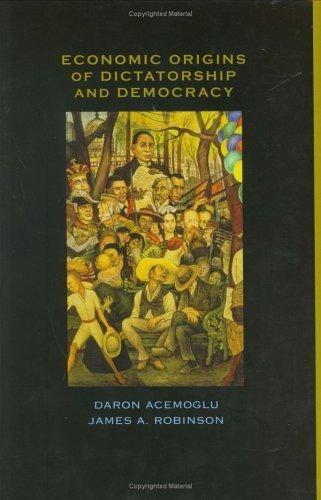
Economic Origins of Dictatorship and Democracy
by
Daron Acemoğlu
and
James A. Robinson
Published 28 Sep 2001
Risk, Diversification, and Growth,” Journal of Political Economy, 105, 709–51. 381 382 Bibliography Acemoglu, Daron, and Fabrizio Zilibotti (1999) “Information Acquisition in Development,” Journal of Economic Growth, 4, 5–38. Ades, Alberto (1995) “Economic Development with Endogenous Political Participation,” Economics and Politics, 7, 93–117. Ades, Alberto, and Thierry Verdier (1996) “The Rise and Fall of Elites: A Theory of Economic Development and Social Polarization in Rent-Seeking Societies,” CEPR Discussion Paper #1495. Aguilera Peña, Mario (1985) Los Comuneros: Guerra Social y Lucha Anticolonia, Bogotá: Universidad Nacional de Colombia. Alesina, Alberto (1988) “Credibility and Political Convergence in a Two-Party System with Rational Voters,” American Economic Review, 78, 796–805.
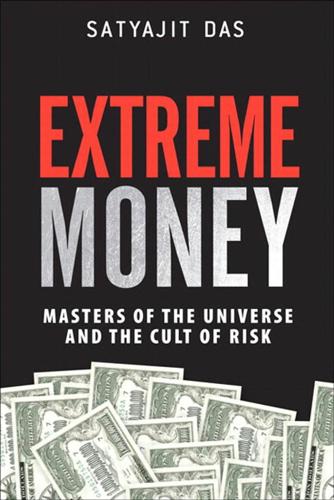
Extreme Money: Masters of the Universe and the Cult of Risk
by
Satyajit Das
Published 14 Oct 2011
Investors hired advisers, who hired consultants, who hired fund managers, who hired other fund managers, who bought products from banks, who laid off the risk with other banks or investors. Everybody along the chain earned a share of the action. There is no “try before you buy” with financial products. Marketed on the basis of past returns, complex and long-term in nature, financial products lend themselves to economic rent seeking. When fund management fees were reduced by migration to low-cost index tracking funds, investment managers tempted investors into new higher margin products, structured investments, private equity and hedge funds, with the promise of high returns. Simple derivatives were repackaged into complicated and opaque exotic structures to increase profit margins.

The Future of Money: How the Digital Revolution Is Transforming Currencies and Finance
by
Eswar S. Prasad
Published 27 Sep 2021
Freedom and Liberty Building on concerns about the threats that government intrusion poses to individual liberties and privacy, Libertarians argue that CBDC might pose risks to certain basic tenets of an open democratic society. One argument is that cash is used in activities that might run afoul of laws but that are nonetheless welfare enhancing. High tax rates, it is claimed, choke off productivity, and certain regulation exists only to protect rent seeking or to enhance the power of regulators seeking bribes. In this telling, the benefits of revenue gains from restricting cash could be overwhelmed by the potential loss from discouraging economic activity that is underground but beneficial. The ubiquitous street vendors in India conduct their transactions almost exclusively in cash, paying no taxes and subject to little regulation but certainly providing an essential service.

The Brussels Effect: How the European Union Rules the World
by
Anu Bradford
Published 14 Sep 2020
, in The State of the European Union Vol. 7: With US or Against US? European Trends in American Perspective (2006). 83.Ben Clift, Comparative Capitalism, Ideational Political Economy and French Post-Dirigiste Responses to the Global Financial Crisis, 17 J. New Pol. Econ. 565 (2012); Ulrich Witt, Germany’s “Social Market Economy”: Between Social Ethos and Rent Seeking, 6 Indep. Rev. 365 (2002). 84.See Clift, supra note 83, at 565; Witt, supra note 83, at 365. 85.Stein Kuhnle, The Beginnings of the Nordic Welfare States: Similarities and Differences, 21 Acta Sociologica 9 (1978). 86.Veit Koester, Nordic Countries’ Legislation on the Environment with Special Emphasis on Conservation—A Survey, (1979); Konrad Adenauer Stiftung, History of Energy and Climate Energy Policy in Germany: CUD Perspectives 1958–2014 (2014). 87.Commission Institutional Paper on State-Owned Enterprises in the EU: Lessons Learnt and Ways Forward in a Post-Crisis Context, No. 031, COM (July 2016), https://ec.europa.eu/info/sites/info/files/file_import/ip031_en_2.pdf [https://perma.cc/QSC8-83ZZ]. 88.See Peter A.

The Prize: The Epic Quest for Oil, Money & Power
by
Daniel Yergin
Published 23 Dec 2008
(New York: Bailliere Bros., 1865), chap. 1; Henry, Early and Later History of Petroleum, p. 53; Kendall Beaton, "Dr. Gesner's Kerosene: The Start of American Oil Refining," Business History Review 29 (March 1955), pp. 35-41 ("new liquid hydrocarbon"); Gregory Patrick Nowell, "Realpolitik vs. Transnational Rent-Seeking: French Mercantilism and the Development of the World Oil Cartel, 1860-1939" (Ph.D., Massachusetts Institute of Technology 1988), pp. 104-08; Business History Review, ed., Oil's First Century (Boston: Harvard Business School, 1960), pp. 8 ("coal oils"), 19 ("impetuous energy"). [4] R. J. Forbes, Bitumen and Petroleum in Antiquity (Leiden: E.
…
Baton Rouge: Louisiana State University Press, 1962. Nomura, Kichisaburo. "Stepping Stones to War." United States Naval Institute Proceedings 77 (September 1951): 927-31. Nordhauser, Norman. The Quest for Stability: Domestic Oil Regulation, 1917-1935. New York: Garland, 1979. Nowell, Gregory Patrick. "Realpolitik vs. Transnational Rent-seeking: French Mercantilism and the Development of the World Oil Cartel, 18601939." Ph.D. dissertation, Massachusetts Institute of Technology, 1988. Nutting, Anthony. Nasser. New York: E. P. Dutton, 1972. ---------. No End of a Lesson: The Story of Suez. London: Constable, 1967. O'Brien, Dennis J.

Tools of Titans: The Tactics, Routines, and Habits of Billionaires, Icons, and World-Class Performers
by
Timothy Ferriss
Published 6 Dec 2016
I think what I needed to do was decamp and realize that technology was going to be a boom area. And even though I wanted to do science rather than technology, it’s better to be in an expanding world and not quite in exactly the right field, than to be in a contracting world where peoples’ worst behavior comes out. [In the latter,] your mind is grooved in defensive and rent-seeking types of ways. Life is too short to be petty and defensive and cruel to other people who are seeking to innovate alongside you.” PARTING ADVICE? “What I would really like is for those of you who have been told that you’re learning disabled, or you’re not good at math, or that you’re terrible at music, or something like that, to seek out unconventional ways of proving that wrong.

Liberalism at Large: The World According to the Economist
by
Alex Zevin
Published 12 Nov 2019
Rather it was protection – a flawed, unnatural system of government interference with commerce – that was the enemy, ‘prejudicial to all classes of the community’.11 It was not a matter for ‘class enmity … the interest of all classes was the same’, and Wilson spoke privately, on this score, of ‘the rubbish they have been talking at Manchester’.12 It is unlikely Cobden and Bright were ever won over to this line of thinking, so different from their broadsides against the parasitism of rent-seeking aristocrats. Cobden even ventured a small criticism at the time. ‘I think you have lost sight of one gain to the aristocratic land-lords … the political power arising out of the present state of their tenantry – and political power in this country has been pecuniary gain.’13 Whatever its flaws, however, the pamphlet proved strategically invaluable.

The Golden Passport: Harvard Business School, the Limits of Capitalism, and the Moral Failure of the MBA Elite
by
Duff McDonald
Published 24 Apr 2017
“[There] is [also] widespread malpractice in compensation setting which seems to indicate rent-extraction. For example, 30 percent of firms from 1996 to 2005 seem to have used ‘options backdating’ (which consists in choosing the ‘grant dates’ ex-post to allow for the minimal strike price of at-the-money options). [Evidence] for rent-seeking among CEOs is substantial.”14 More recently, a February 2016 study by three professors at the University of Michigan’s Stephen M. Ross School of Business concluded that between 2008 and 2014, executives continued to use manipulative devices, including backdating, to increase their compensation by some 6 percent.15 Roughly 80 percent of life, Woody Allen has explained, is simply showing up.

The Atlantic and Its Enemies: A History of the Cold War
by
Norman Stone
Published 15 Feb 2010
One such, Alfred Sherman, dismissed economics as jumped-up accountancy: paper-money inflation just reflected the power of labour and the trade unions to impose transfer payments; he also saw the interest of the Keynesians themselves in the power of the State in organizing the transfers, the productive parts of the economy having to pay for it all. It was described in the United States as ‘rent-seeking’, as political economists tried to find a theory to fit what had been happening. A bureaucracy, complete with its own wooden language, was established to effect the transfers, and it taxed the middle: as Sherman said, the State turns everybody into a proletarian or a functionary. This was again a very old argument.
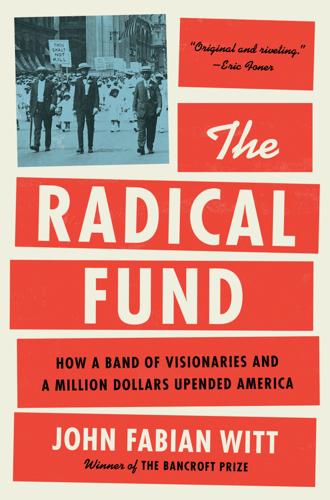
The Radical Fund: How a Band of Visionaries and a Million Dollars Upended America
by
John Fabian Witt
Published 14 Oct 2025
Parker & Son, 1859), 1, 6; Ray D. Madoff and Rob Reich, “Now or Forever: Rethinking Foundation Life Spans,” Chronicle of Philanthropy, Mar. 30, 2016. 17. diminishing returns: Brian Galle, “Charities in Politics: A Reappraisal,” William & Mary Law Review 54 (2013): 1561, 1581–82; Richard L. Hasen, “Lobbying, Rent-Seeking, and the Constitution,” Stanford Law Review 64 (2012): 191, 229. 18. 23 million people: “Number of High Net Worth Individuals in the United States from 2017 to 2024,” Statista, July 29, 2024, https://www.statista.com/forecasts/1478254/number-of-high-net-worth-individuals-usa. more than $30 million: Robert Frank, “The Ultra-Wealthy Just Gained $49 Trillion,” CNBC, July 19, 2024, https://www.cnbc.com/2024/07/19/population-ultra-high-net-worth-wealth.

The Man Who Knew: The Life and Times of Alan Greenspan
by
Sebastian Mallaby
Published 10 Oct 2016
As recently as 1978, he had suggested that budget policy, not monetary policy, was the key driver of prices; and even when he was not blaming the budget deficit, he resisted the idea that the Fed was responsible, instead pointing the finger at cost-push factors: commodity-price shocks, over-mighty labor unions, rent-seeking monopolists, regulations that created bottlenecks and scarcities.1 On occasions when he acknowledged the power of interest rates, he nonetheless took refuge behind a version of Greenspan’s conundrum. In congressional testimony in July 1975, he noted that it was long-term interest rates that really influenced the economy, and that “all of us recognize that the influence the Federal Reserve has on long-term rates is negligible.”2 In declaring unambiguously that the Fed did have the power to control inflation, Burns was announcing the arrival of a new consensus.

Ashes to Ashes: America's Hundred-Year Cigarette War, the Public Health, and the Unabashed Triumph of Philip Morris
by
Richard Kluger
Published 1 Jan 1996
University of North Carolina Press, 1948. Tollison, Robert D., ed. Clearing the Air: Perspectives on Environmental Tobacco Smoke. D. C. Heath/Lexington Books, 1988. ———, ed. Smoking and Society: Toward a More Balanced Assessment. D. C. Heath/Lexington Books, 1986. ———, and Richard E. Wagner. Smoking and the State: Social Costs, Rent Seeking, and Public Policy. D. C. Heath/Lexington Books, 1988. Troyer, Ronald J., and Gerald E. Markle. Cigarettes: The Battle over Smoking. Rutgers University Press, 1983. U.S. Surgeon General. Smoking and Health: Report of the Advisory Committee to the Surgeon General. U.S. Public Health Service, 1964. ———.